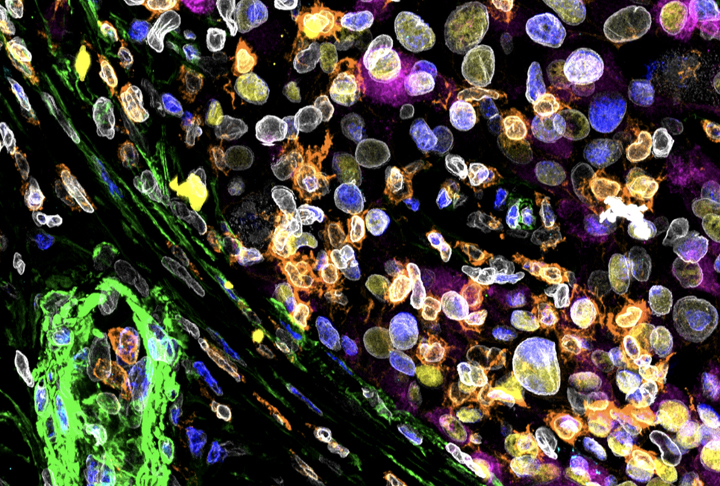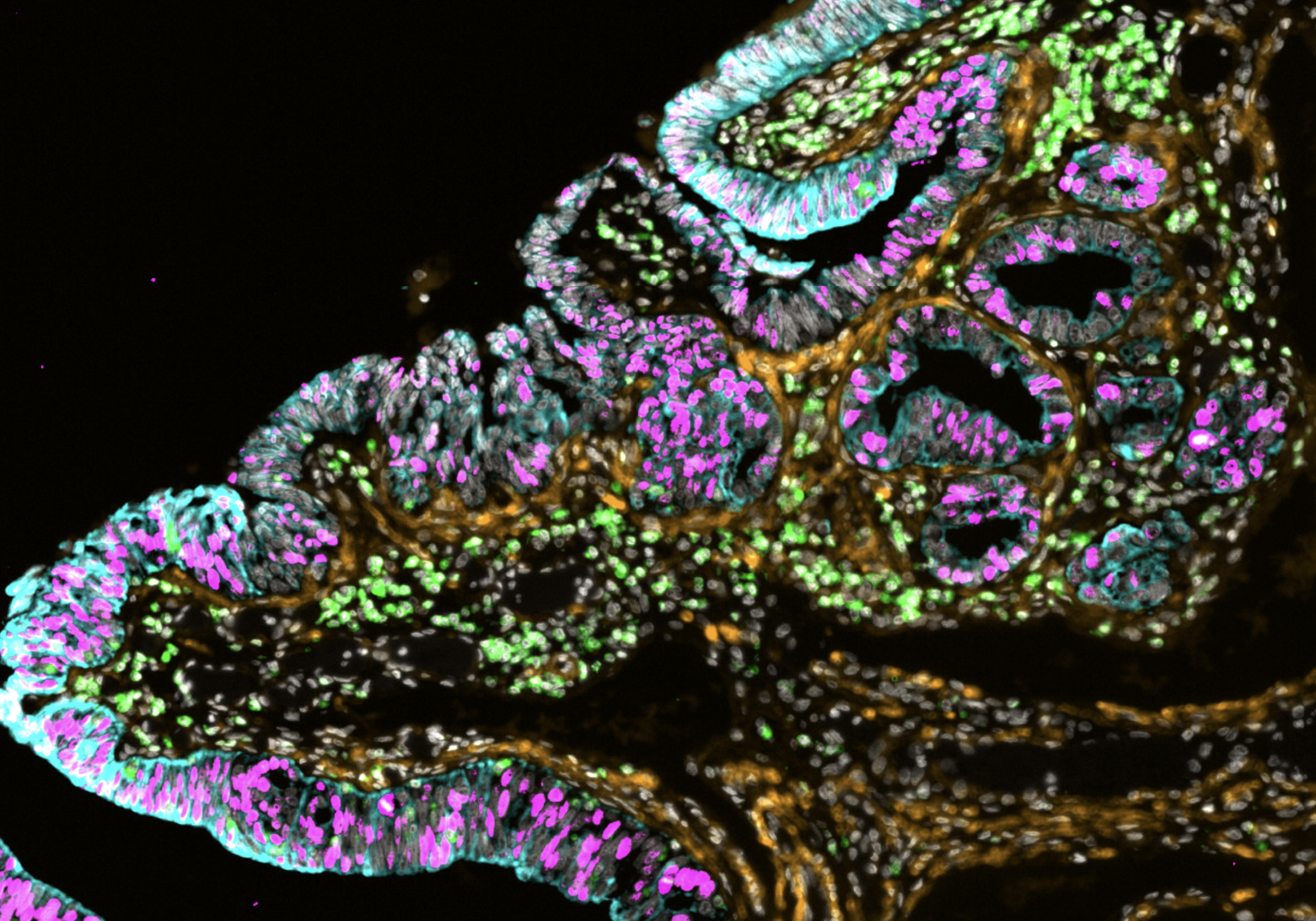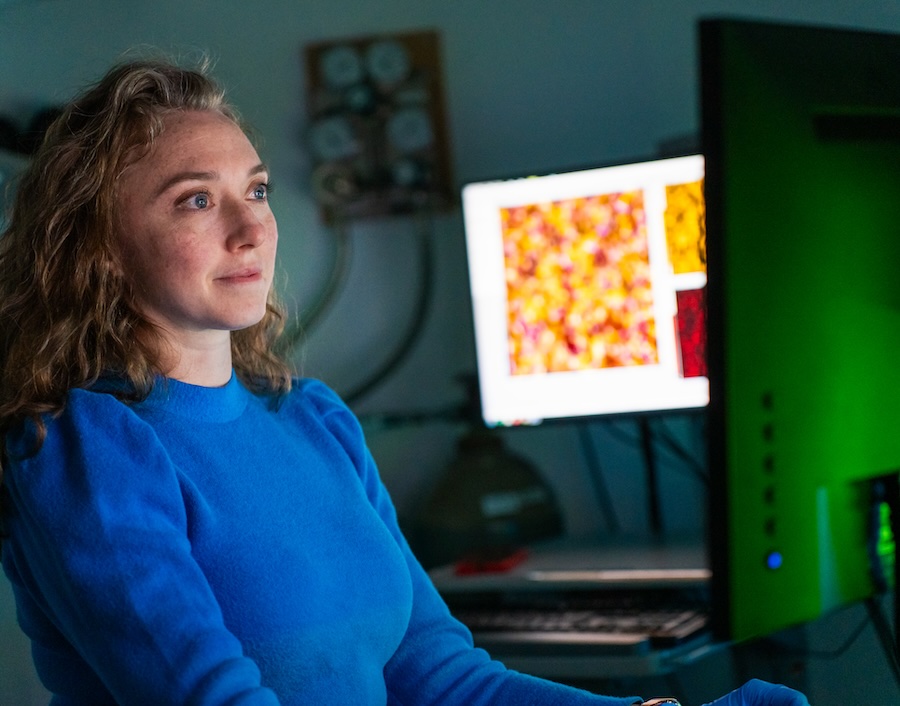Related Publications
Brain cancer
2576724
IXMHRBF6
brain cancer
1
apa-cv
50
date
desc
1
1
4129
https://labsyspharm.org/wp-content/plugins/zotpress/
%7B%22status%22%3A%22success%22%2C%22updateneeded%22%3Afalse%2C%22instance%22%3Afalse%2C%22meta%22%3A%7B%22request_last%22%3A0%2C%22request_next%22%3A0%2C%22used_cache%22%3Atrue%7D%2C%22data%22%3A%5B%7B%22key%22%3A%22DFLGSH39%22%2C%22library%22%3A%7B%22id%22%3A2576724%7D%2C%22meta%22%3A%7B%22creatorSummary%22%3A%22Rendo%20et%20al.%22%2C%22parsedDate%22%3A%222025-02-19%22%2C%22numChildren%22%3A2%7D%2C%22bib%22%3A%22%3Cdiv%20class%3D%5C%22csl-bib-body%5C%22%20style%3D%5C%22line-height%3A%202%3B%20padding-left%3A%201em%3B%20text-indent%3A-1em%3B%5C%22%3E%5Cn%20%20%3Cdiv%20class%3D%5C%22csl-entry%5C%22%3ERendo%2C%20V.%2C%20Lee%2C%20E.%20Q.%2C%20Bossi%2C%20C.%2C%20Khuu%2C%20N.%2C%20Rudek%2C%20M.%20A.%2C%20Pal%2C%20S.%2C%20Azazmeh%2C%20N.%2C%20Rashid%2C%20R.%2C%20Lin%2C%20J.-R.%2C%20Cusick%2C%20M.%2C%20Reynolds%2C%20A.%20R.%20N.%2C%20Fassinou%2C%20A.%20C.%20R.%2C%20Ayoub%2C%20G.%2C%20Malinowski%2C%20S.%2C%20Lapinskas%2C%20E.%2C%20Pisano%2C%20W.%2C%20Jeang%2C%20J.%2C%20Stopka%2C%20S.%20A.%2C%20Regan%2C%20M.%20S.%2C%20%26%23x2026%3B%20Beroukhim%2C%20R.%20%282025%29.%20A%20window-of-opportunity%20trial%20reveals%20mechanisms%20of%20response%20and%20resistance%20to%20navtemadlin%20in%20patients%20with%20recurrent%20glioblastoma.%20%3Ci%3EScience%20Translational%20Medicine%3C%5C%2Fi%3E%2C%20%3Ci%3E17%3C%5C%2Fi%3E%28786%29%2C%20eadn6274.%20%3Ca%20class%3D%27zp-DOIURL%27%20target%3D%27_blank%27%20href%3D%27https%3A%5C%2F%5C%2Fdoi.org%5C%2F10.1126%5C%2Fscitranslmed.adn6274%27%3Ehttps%3A%5C%2F%5C%2Fdoi.org%5C%2F10.1126%5C%2Fscitranslmed.adn6274%3C%5C%2Fa%3E%3C%5C%2Fdiv%3E%5Cn%3C%5C%2Fdiv%3E%22%2C%22data%22%3A%7B%22itemType%22%3A%22journalArticle%22%2C%22title%22%3A%22A%20window-of-opportunity%20trial%20reveals%20mechanisms%20of%20response%20and%20resistance%20to%20navtemadlin%20in%20patients%20with%20recurrent%20glioblastoma%22%2C%22creators%22%3A%5B%7B%22creatorType%22%3A%22author%22%2C%22firstName%22%3A%22Veronica%22%2C%22lastName%22%3A%22Rendo%22%7D%2C%7B%22creatorType%22%3A%22author%22%2C%22firstName%22%3A%22Eudocia%20Q.%22%2C%22lastName%22%3A%22Lee%22%7D%2C%7B%22creatorType%22%3A%22author%22%2C%22firstName%22%3A%22Connor%22%2C%22lastName%22%3A%22Bossi%22%7D%2C%7B%22creatorType%22%3A%22author%22%2C%22firstName%22%3A%22Nicholas%22%2C%22lastName%22%3A%22Khuu%22%7D%2C%7B%22creatorType%22%3A%22author%22%2C%22firstName%22%3A%22Michelle%20A.%22%2C%22lastName%22%3A%22Rudek%22%7D%2C%7B%22creatorType%22%3A%22author%22%2C%22firstName%22%3A%22Sangita%22%2C%22lastName%22%3A%22Pal%22%7D%2C%7B%22creatorType%22%3A%22author%22%2C%22firstName%22%3A%22Narmen%22%2C%22lastName%22%3A%22Azazmeh%22%7D%2C%7B%22creatorType%22%3A%22author%22%2C%22firstName%22%3A%22Rumana%22%2C%22lastName%22%3A%22Rashid%22%7D%2C%7B%22creatorType%22%3A%22author%22%2C%22firstName%22%3A%22Jia-Ren%22%2C%22lastName%22%3A%22Lin%22%7D%2C%7B%22creatorType%22%3A%22author%22%2C%22firstName%22%3A%22Margaret%22%2C%22lastName%22%3A%22Cusick%22%7D%2C%7B%22creatorType%22%3A%22author%22%2C%22firstName%22%3A%22Abigail%20R.%20N.%22%2C%22lastName%22%3A%22Reynolds%22%7D%2C%7B%22creatorType%22%3A%22author%22%2C%22firstName%22%3A%22Auriole%20C.%20R.%22%2C%22lastName%22%3A%22Fassinou%22%7D%2C%7B%22creatorType%22%3A%22author%22%2C%22firstName%22%3A%22Georges%22%2C%22lastName%22%3A%22Ayoub%22%7D%2C%7B%22creatorType%22%3A%22author%22%2C%22firstName%22%3A%22Seth%22%2C%22lastName%22%3A%22Malinowski%22%7D%2C%7B%22creatorType%22%3A%22author%22%2C%22firstName%22%3A%22Emily%22%2C%22lastName%22%3A%22Lapinskas%22%7D%2C%7B%22creatorType%22%3A%22author%22%2C%22firstName%22%3A%22William%22%2C%22lastName%22%3A%22Pisano%22%7D%2C%7B%22creatorType%22%3A%22author%22%2C%22firstName%22%3A%22John%22%2C%22lastName%22%3A%22Jeang%22%7D%2C%7B%22creatorType%22%3A%22author%22%2C%22firstName%22%3A%22Sylwia%20A.%22%2C%22lastName%22%3A%22Stopka%22%7D%2C%7B%22creatorType%22%3A%22author%22%2C%22firstName%22%3A%22Michael%20S.%22%2C%22lastName%22%3A%22Regan%22%7D%2C%7B%22creatorType%22%3A%22author%22%2C%22firstName%22%3A%22Johan%22%2C%22lastName%22%3A%22Spetz%22%7D%2C%7B%22creatorType%22%3A%22author%22%2C%22firstName%22%3A%22Arati%22%2C%22lastName%22%3A%22Desai%22%7D%2C%7B%22creatorType%22%3A%22author%22%2C%22firstName%22%3A%22Frank%22%2C%22lastName%22%3A%22Lieberman%22%7D%2C%7B%22creatorType%22%3A%22author%22%2C%22firstName%22%3A%22Kamalakannan%22%2C%22lastName%22%3A%22Palanichamy%22%7D%2C%7B%22creatorType%22%3A%22author%22%2C%22firstName%22%3A%22Joy%20D.%22%2C%22lastName%22%3A%22Fisher%22%7D%2C%7B%22creatorType%22%3A%22author%22%2C%22firstName%22%3A%22Kristine%22%2C%22lastName%22%3A%22Pelton%22%7D%2C%7B%22creatorType%22%3A%22author%22%2C%22firstName%22%3A%22Raymond%20Y.%22%2C%22lastName%22%3A%22Huang%22%7D%2C%7B%22creatorType%22%3A%22author%22%2C%22firstName%22%3A%22Kristopher%20A.%22%2C%22lastName%22%3A%22Sarosiek%22%7D%2C%7B%22creatorType%22%3A%22author%22%2C%22firstName%22%3A%22Louis%20B.%22%2C%22lastName%22%3A%22Nabors%22%7D%2C%7B%22creatorType%22%3A%22author%22%2C%22firstName%22%3A%22Matthias%22%2C%22lastName%22%3A%22Holdhoff%22%7D%2C%7B%22creatorType%22%3A%22author%22%2C%22firstName%22%3A%22Neeraja%22%2C%22lastName%22%3A%22Danda%22%7D%2C%7B%22creatorType%22%3A%22author%22%2C%22firstName%22%3A%22Roy%22%2C%22lastName%22%3A%22Strowd%22%7D%2C%7B%22creatorType%22%3A%22author%22%2C%22firstName%22%3A%22Serena%22%2C%22lastName%22%3A%22Desideri%22%7D%2C%7B%22creatorType%22%3A%22author%22%2C%22firstName%22%3A%22Tobias%22%2C%22lastName%22%3A%22Walbert%22%7D%2C%7B%22creatorType%22%3A%22author%22%2C%22firstName%22%3A%22Xiaobu%22%2C%22lastName%22%3A%22Ye%22%7D%2C%7B%22creatorType%22%3A%22author%22%2C%22firstName%22%3A%22Arnab%22%2C%22lastName%22%3A%22Chakravarti%22%7D%2C%7B%22creatorType%22%3A%22author%22%2C%22firstName%22%3A%22Peter%20K.%22%2C%22lastName%22%3A%22Sorger%22%7D%2C%7B%22creatorType%22%3A%22author%22%2C%22firstName%22%3A%22Sandro%22%2C%22lastName%22%3A%22Santagata%22%7D%2C%7B%22creatorType%22%3A%22author%22%2C%22firstName%22%3A%22Nathalie%20Y.%20R.%22%2C%22lastName%22%3A%22Agar%22%7D%2C%7B%22creatorType%22%3A%22author%22%2C%22firstName%22%3A%22Stuart%20A.%22%2C%22lastName%22%3A%22Grossman%22%7D%2C%7B%22creatorType%22%3A%22author%22%2C%22firstName%22%3A%22Brian%20M.%22%2C%22lastName%22%3A%22Alexander%22%7D%2C%7B%22creatorType%22%3A%22author%22%2C%22firstName%22%3A%22Patrick%20Y.%22%2C%22lastName%22%3A%22Wen%22%7D%2C%7B%22creatorType%22%3A%22author%22%2C%22firstName%22%3A%22Keith%20L.%22%2C%22lastName%22%3A%22Ligon%22%7D%2C%7B%22creatorType%22%3A%22author%22%2C%22firstName%22%3A%22Rameen%22%2C%22lastName%22%3A%22Beroukhim%22%7D%5D%2C%22abstractNote%22%3A%22Inhibitors%20of%20murine%20double%20minute%20homolog%202%20%28MDM2%29%20represent%20a%20promising%20therapeutic%20approach%20for%20the%20treatment%20of%20TP53%20wild-type%20glioblastomas%20%28GBMs%29%2C%20reactivating%20p53%20signaling%20to%20induce%20cancer%20cell%20death.%20We%20conducted%20a%20surgical%20window-of-opportunity%20trial%20%28NCT03107780%29%20of%20the%20MDM2%20inhibitor%20navtemadlin%20%28KRT-232%29%20in%2021%20patients%20with%20TP53%20wild-type%20recurrent%20GBM%20to%20determine%20achievable%20drug%20concentrations%20within%20tumor%20tissues%20and%20biological%20mechanisms%20of%20response%20and%20resistance.%20Participants%20received%20navtemadlin%20at%20120%20mg%20%28n%20%3D%2010%29%20or%20240%20mg%20%28n%20%3D%2011%29%20for%202%20days%20before%20surgical%20resection%20and%20after%20surgery%20until%20progression%20or%20unacceptable%20toxicity.%20Both%20120%20and%20240%20mg%20daily%20dosing%20achieved%20a%20pharmacodynamic%20impact%2C%20but%20median%20progression-free%20survival%20was%203.1%20months.%20DNA%20sequencing%20of%20three%20recurrent%20tumors%20revealed%20an%20absence%20of%20TP53-inactivating%20mutations%2C%20indicating%20alternative%20mechanisms%20of%20resistance.%20To%20understand%20the%20mechanisms%20of%20response%20and%20resistance%20associated%20with%20navtemadlin%2C%20we%20conducted%20functional%20and%20spatial%20analyses%20of%20human%20tissue%20and%20patient-derived%20GBM%20neurosphere%20models.%20Navtemadlin%20induced%20partial%20tumor%20cell%20death%20as%20monotherapy%2C%20and%20combination%20with%20temozolomide%20enhanced%20apoptosis%20in%20GBM%20neurospheres%20while%20sparing%20normal%20bone%20marrow%20cells%20in%20vitro.%20We%20also%20observed%20up-regulation%20of%20oligodendrocyte%20differentiation%20genes%20with%20navtemadlin%20treatment%20and%20enrichment%20of%20oligodendrocyte%20transcription%20factor%202%20%28OLIG2%29-positive%20cells%20at%20relapse%2C%20suggesting%20an%20unexplored%20mechanism%20of%20navtemadlin%20tolerance%20in%20GBM.%20Overall%2C%20these%20results%20indicated%20that%20clinically%20achievable%20doses%20of%20navtemadlin%20exert%20pharmacodynamic%20effects%20on%20GBM%20and%20suggest%20that%20combined%20treatment%20with%20temozolomide%20may%20be%20a%20route%20to%20more%20durable%20survival%20benefits.%22%2C%22date%22%3A%222025-02-19%22%2C%22language%22%3A%22eng%22%2C%22DOI%22%3A%2210.1126%5C%2Fscitranslmed.adn6274%22%2C%22ISSN%22%3A%221946-6242%22%2C%22url%22%3A%22%22%2C%22collections%22%3A%5B%22IXMHRBF6%22%5D%2C%22dateModified%22%3A%222025-04-28T14%3A37%3A23Z%22%7D%7D%2C%7B%22key%22%3A%2289B3ISJF%22%2C%22library%22%3A%7B%22id%22%3A2576724%7D%2C%22meta%22%3A%7B%22lastModifiedByUser%22%3A%7B%22id%22%3A9036456%2C%22username%22%3A%22jtefft%22%2C%22name%22%3A%22%22%2C%22links%22%3A%7B%22alternate%22%3A%7B%22href%22%3A%22https%3A%5C%2F%5C%2Fwww.zotero.org%5C%2Fjtefft%22%2C%22type%22%3A%22text%5C%2Fhtml%22%7D%7D%7D%2C%22creatorSummary%22%3A%22Lee%20et%20al.%22%2C%22parsedDate%22%3A%222025-01-17%22%2C%22numChildren%22%3A1%7D%2C%22bib%22%3A%22%3Cdiv%20class%3D%5C%22csl-bib-body%5C%22%20style%3D%5C%22line-height%3A%202%3B%20padding-left%3A%201em%3B%20text-indent%3A-1em%3B%5C%22%3E%5Cn%20%20%3Cdiv%20class%3D%5C%22csl-entry%5C%22%3ELee%2C%20E.%20Q.%2C%20Alexander%2C%20B.%20M.%2C%20Romo%2C%20C.%20G.%2C%20Supko%2C%20J.%20G.%2C%20Agar%2C%20N.%20Y.%20R.%2C%20Talebi%2C%20Z.%2C%20Ahluwalia%2C%20M.%20S.%2C%20Desai%2C%20A.%20S.%2C%20Dietrich%2C%20J.%2C%20Kaley%2C%20T.%20J.%2C%20Peereboom%2C%20D.%20M.%2C%20Gantchev%2C%20J.%2C%20Baquer%2C%20G.%2C%20Santagata%2C%20S.%2C%20Takebe%2C%20N.%2C%20Desideri%2C%20S.%2C%20Fisher%2C%20J.%20D.%2C%20Sims%2C%20M.%2C%20Ye%2C%20X.%2C%20%26%23x2026%3B%20Wen%2C%20P.%20Y.%20%282025%29.%20Phase%20I%20study%20of%20adavosertib%20with%20radiation%20therapy%20and%20temozolomide%20in%20newly%20diagnosed%20glioblastoma%20and%20intratumoral%20drug%20levels%20in%20recurrent%20glioblastoma.%20%3Ci%3EClinical%20Cancer%20Research%3A%20An%20Official%20Journal%20of%20the%20American%20Association%20for%20Cancer%20Research%3C%5C%2Fi%3E.%20%3Ca%20class%3D%27zp-DOIURL%27%20target%3D%27_blank%27%20href%3D%27https%3A%5C%2F%5C%2Fdoi.org%5C%2F10.1158%5C%2F1078-0432.CCR-24-2311%27%3Ehttps%3A%5C%2F%5C%2Fdoi.org%5C%2F10.1158%5C%2F1078-0432.CCR-24-2311%3C%5C%2Fa%3E%3C%5C%2Fdiv%3E%5Cn%3C%5C%2Fdiv%3E%22%2C%22data%22%3A%7B%22itemType%22%3A%22journalArticle%22%2C%22title%22%3A%22Phase%20I%20study%20of%20adavosertib%20with%20radiation%20therapy%20and%20temozolomide%20in%20newly%20diagnosed%20glioblastoma%20and%20intratumoral%20drug%20levels%20in%20recurrent%20glioblastoma%22%2C%22creators%22%3A%5B%7B%22creatorType%22%3A%22author%22%2C%22firstName%22%3A%22Eudocia%20Q.%22%2C%22lastName%22%3A%22Lee%22%7D%2C%7B%22creatorType%22%3A%22author%22%2C%22firstName%22%3A%22Brian%20M.%22%2C%22lastName%22%3A%22Alexander%22%7D%2C%7B%22creatorType%22%3A%22author%22%2C%22firstName%22%3A%22Carlos%20G.%22%2C%22lastName%22%3A%22Romo%22%7D%2C%7B%22creatorType%22%3A%22author%22%2C%22firstName%22%3A%22Jeffrey%20G.%22%2C%22lastName%22%3A%22Supko%22%7D%2C%7B%22creatorType%22%3A%22author%22%2C%22firstName%22%3A%22Nathalie%20Y.%20R.%22%2C%22lastName%22%3A%22Agar%22%7D%2C%7B%22creatorType%22%3A%22author%22%2C%22firstName%22%3A%22Zahra%22%2C%22lastName%22%3A%22Talebi%22%7D%2C%7B%22creatorType%22%3A%22author%22%2C%22firstName%22%3A%22Manmeet%20S.%22%2C%22lastName%22%3A%22Ahluwalia%22%7D%2C%7B%22creatorType%22%3A%22author%22%2C%22firstName%22%3A%22Arati%20S.%22%2C%22lastName%22%3A%22Desai%22%7D%2C%7B%22creatorType%22%3A%22author%22%2C%22firstName%22%3A%22Jorg%22%2C%22lastName%22%3A%22Dietrich%22%7D%2C%7B%22creatorType%22%3A%22author%22%2C%22firstName%22%3A%22Thomas%20J.%22%2C%22lastName%22%3A%22Kaley%22%7D%2C%7B%22creatorType%22%3A%22author%22%2C%22firstName%22%3A%22David%20M.%22%2C%22lastName%22%3A%22Peereboom%22%7D%2C%7B%22creatorType%22%3A%22author%22%2C%22firstName%22%3A%22Jennifer%22%2C%22lastName%22%3A%22Gantchev%22%7D%2C%7B%22creatorType%22%3A%22author%22%2C%22firstName%22%3A%22Gerard%22%2C%22lastName%22%3A%22Baquer%22%7D%2C%7B%22creatorType%22%3A%22author%22%2C%22firstName%22%3A%22Sandro%22%2C%22lastName%22%3A%22Santagata%22%7D%2C%7B%22creatorType%22%3A%22author%22%2C%22firstName%22%3A%22Naoko%22%2C%22lastName%22%3A%22Takebe%22%7D%2C%7B%22creatorType%22%3A%22author%22%2C%22firstName%22%3A%22Serena%22%2C%22lastName%22%3A%22Desideri%22%7D%2C%7B%22creatorType%22%3A%22author%22%2C%22firstName%22%3A%22Joy%20D.%22%2C%22lastName%22%3A%22Fisher%22%7D%2C%7B%22creatorType%22%3A%22author%22%2C%22firstName%22%3A%22Megan%22%2C%22lastName%22%3A%22Sims%22%7D%2C%7B%22creatorType%22%3A%22author%22%2C%22firstName%22%3A%22Xiaobu%22%2C%22lastName%22%3A%22Ye%22%7D%2C%7B%22creatorType%22%3A%22author%22%2C%22firstName%22%3A%22Keith%20L.%22%2C%22lastName%22%3A%22Ligon%22%7D%2C%7B%22creatorType%22%3A%22author%22%2C%22firstName%22%3A%22Louis%20B.%22%2C%22lastName%22%3A%22Nabors%22%7D%2C%7B%22creatorType%22%3A%22author%22%2C%22firstName%22%3A%22Stuart%20A.%22%2C%22lastName%22%3A%22Grossman%22%7D%2C%7B%22creatorType%22%3A%22author%22%2C%22firstName%22%3A%22Patrick%20Y.%22%2C%22lastName%22%3A%22Wen%22%7D%5D%2C%22abstractNote%22%3A%22PURPOSE%3A%20Adavosertib%20is%20an%20oral%20small%20molecular%20inhibitor%20of%20Wee1.%20The%20Adult%20Brain%20Tumor%20Consortium%20performed%20a%20phase%20I%20study%20of%20adavosertib%2C%20radiation%20%28RT%29%20and%20temozolomide%20%28TMZ%29%20in%20newly%20diagnosed%20glioblastoma%20%28GBM%29%20as%20well%20as%20a%20surgical%20window%20of%20opportunity%20study%20in%20recurrent%20GBM.%5CnPATIENTS%20AND%20METHODS%3A%20The%20maximum%20tolerated%20dose%20%28MTD%29%20of%20adavosertib%20was%20determined%20in%20adult%20patients%20with%20newly%20diagnosed%20GBM%20using%20a%20standard%203%2B3%20design%20in%202%20separate%20cohorts%3A%20with%20concurrent%20RT%5C%2FTMZ%20or%20with%20adjuvant%20TMZ.%20A%20combination%20cohort%20with%20both%20concurrent%20and%20adjuvant%20adavosertib%20at%20MTD%20followed.%20We%20also%20performed%20intratumoral%20drug%20distribution%20studies%20in%20recurrent%20GBM%20patients%20undergoing%20surgery.%5CnRESULTS%3A%20As%20separate%20cohorts%2C%20MTD%20for%20concurrent%20adavosertib%20with%20RT%5C%2FTMZ%20was%20200%20mg%20daily%20M-F%20x%206%20weeks%20during%20RT%20and%20for%20adjuvant%20adavosertib%20with%20TMZ%20was%20425%20mg%20daily%20for%205%20days%20of%20each%2028-day%20cycle.%20However%2C%206%5C%2F12%20patients%20experienced%20DLTs%20in%20the%20combination%20cohort.%20The%20mean%20ratio%20of%20the%20intratumoral-to-plasma%20concentration%20of%20adavosertib%20was%204.18%20%5Cu00b1%203.36%20for%20contrast-enhancing%20tissue%20and%200.74%20%5Cu00b1%200.63%20in%20non-enhancing%20tissue.%5CnCONCLUSIONS%3A%20Adavosertib%20200%20mg%20daily%20M-F%20x%206%20weeks%20with%20RT%5C%2FTMZ%20and%20425%20mg%20daily%20on%20a%205d%5C%2F28d%20cycle%20with%20TMZ%20had%20an%20unacceptable%20DLT%20rate.%20Additional%20dose%20levels%20in%20combination%20cohorts%20resulted%20in%20DLTs%20and%20we%20deemed%20concurrent%20adavosertib%20too%20toxic%20for%20further%20examination.%20Adavosertib%20425%20mg%20daily%20on%20a%205d%5C%2F28d%20cycle%20with%20adjuvant%20TMZ%20is%20the%20recommended%20phase%20II%20dose.%20Tissue%20PK%20in%20tissue%20homogenates%20and%20by%20microdialysis%20provided%20complementary%20information%20about%20drug%20penetration.%22%2C%22date%22%3A%222025-01-17%22%2C%22language%22%3A%22eng%22%2C%22DOI%22%3A%2210.1158%5C%2F1078-0432.CCR-24-2311%22%2C%22ISSN%22%3A%221557-3265%22%2C%22url%22%3A%22%22%2C%22collections%22%3A%5B%22IXMHRBF6%22%5D%2C%22dateModified%22%3A%222025-04-21T17%3A14%3A59Z%22%7D%7D%2C%7B%22key%22%3A%22YJQWLXYE%22%2C%22library%22%3A%7B%22id%22%3A2576724%7D%2C%22meta%22%3A%7B%22lastModifiedByUser%22%3A%7B%22id%22%3A9036456%2C%22username%22%3A%22jtefft%22%2C%22name%22%3A%22%22%2C%22links%22%3A%7B%22alternate%22%3A%7B%22href%22%3A%22https%3A%5C%2F%5C%2Fwww.zotero.org%5C%2Fjtefft%22%2C%22type%22%3A%22text%5C%2Fhtml%22%7D%7D%7D%2C%22creatorSummary%22%3A%22Sahm%20et%20al.%22%2C%22parsedDate%22%3A%222024-08-30%22%2C%22numChildren%22%3A1%7D%2C%22bib%22%3A%22%3Cdiv%20class%3D%5C%22csl-bib-body%5C%22%20style%3D%5C%22line-height%3A%202%3B%20padding-left%3A%201em%3B%20text-indent%3A-1em%3B%5C%22%3E%5Cn%20%20%3Cdiv%20class%3D%5C%22csl-entry%5C%22%3ESahm%2C%20F.%2C%20Aldape%2C%20K.%20D.%2C%20Brastianos%2C%20P.%20K.%2C%20Brat%2C%20D.%20J.%2C%20Dahiya%2C%20S.%2C%20von%20Deimling%2C%20A.%2C%20Giannini%2C%20C.%2C%20Gilbert%2C%20M.%20R.%2C%20Louis%2C%20D.%20N.%2C%20Raleigh%2C%20D.%20R.%2C%20Reifenberger%2C%20G.%2C%20Santagata%2C%20S.%2C%20Sarkar%2C%20C.%2C%20Zadeh%2C%20G.%2C%20Wesseling%2C%20P.%2C%20%26amp%3B%20Perry%2C%20A.%20%282024%29.%20cIMPACT-NOW%20Update%208%3A%20Clarifications%20on%20molecular%20risk%20parameters%20and%20recommendations%20for%20WHO%20grading%20of%20meningiomas.%20%3Ci%3ENeuro-Oncology%3C%5C%2Fi%3E%2C%20noae170.%20%3Ca%20class%3D%27zp-DOIURL%27%20target%3D%27_blank%27%20href%3D%27https%3A%5C%2F%5C%2Fdoi.org%5C%2F10.1093%5C%2Fneuonc%5C%2Fnoae170%27%3Ehttps%3A%5C%2F%5C%2Fdoi.org%5C%2F10.1093%5C%2Fneuonc%5C%2Fnoae170%3C%5C%2Fa%3E%3C%5C%2Fdiv%3E%5Cn%3C%5C%2Fdiv%3E%22%2C%22data%22%3A%7B%22itemType%22%3A%22journalArticle%22%2C%22title%22%3A%22cIMPACT-NOW%20Update%208%3A%20Clarifications%20on%20molecular%20risk%20parameters%20and%20recommendations%20for%20WHO%20grading%20of%20meningiomas%22%2C%22creators%22%3A%5B%7B%22creatorType%22%3A%22author%22%2C%22firstName%22%3A%22Felix%22%2C%22lastName%22%3A%22Sahm%22%7D%2C%7B%22creatorType%22%3A%22author%22%2C%22firstName%22%3A%22Kenneth%20D.%22%2C%22lastName%22%3A%22Aldape%22%7D%2C%7B%22creatorType%22%3A%22author%22%2C%22firstName%22%3A%22Priscilla%20K.%22%2C%22lastName%22%3A%22Brastianos%22%7D%2C%7B%22creatorType%22%3A%22author%22%2C%22firstName%22%3A%22Daniel%20J.%22%2C%22lastName%22%3A%22Brat%22%7D%2C%7B%22creatorType%22%3A%22author%22%2C%22firstName%22%3A%22Sonika%22%2C%22lastName%22%3A%22Dahiya%22%7D%2C%7B%22creatorType%22%3A%22author%22%2C%22firstName%22%3A%22Andreas%22%2C%22lastName%22%3A%22von%20Deimling%22%7D%2C%7B%22creatorType%22%3A%22author%22%2C%22firstName%22%3A%22Caterina%22%2C%22lastName%22%3A%22Giannini%22%7D%2C%7B%22creatorType%22%3A%22author%22%2C%22firstName%22%3A%22Mark%20R.%22%2C%22lastName%22%3A%22Gilbert%22%7D%2C%7B%22creatorType%22%3A%22author%22%2C%22firstName%22%3A%22David%20N.%22%2C%22lastName%22%3A%22Louis%22%7D%2C%7B%22creatorType%22%3A%22author%22%2C%22firstName%22%3A%22David%20R.%22%2C%22lastName%22%3A%22Raleigh%22%7D%2C%7B%22creatorType%22%3A%22author%22%2C%22firstName%22%3A%22Guido%22%2C%22lastName%22%3A%22Reifenberger%22%7D%2C%7B%22creatorType%22%3A%22author%22%2C%22firstName%22%3A%22Sandro%22%2C%22lastName%22%3A%22Santagata%22%7D%2C%7B%22creatorType%22%3A%22author%22%2C%22firstName%22%3A%22Chitra%22%2C%22lastName%22%3A%22Sarkar%22%7D%2C%7B%22creatorType%22%3A%22author%22%2C%22firstName%22%3A%22Gelareh%22%2C%22lastName%22%3A%22Zadeh%22%7D%2C%7B%22creatorType%22%3A%22author%22%2C%22firstName%22%3A%22Pieter%22%2C%22lastName%22%3A%22Wesseling%22%7D%2C%7B%22creatorType%22%3A%22author%22%2C%22firstName%22%3A%22Arie%22%2C%22lastName%22%3A%22Perry%22%7D%5D%2C%22abstractNote%22%3A%22Meningiomas%20are%20the%20most%20frequent%20primary%20intracranial%20tumors.%20Hence%2C%20they%20constitute%20a%20major%20share%20of%20diagnostic%20specimens%20in%20neuropathology%20practice.%20The%202021%20WHO%20Classification%20of%20Central%20Nervous%20System%20Tumors%20%28%5C%22CNS5%5C%22%29%20has%20introduced%20the%20first%20molecular%20grading%20parameters%20for%20meningioma%20with%20oncogenic%20variants%20in%20the%20TERT%20promoter%20and%20homozygous%20deletion%20of%20CDKN2A%5C%2FB%20as%20markers%20for%20CNS%20WHO%20grade%203.%20However%2C%20after%20publication%20of%20the%20new%20classification%20volume%2C%20clarifications%20were%20requested%2C%20not%20only%20on%20novel%20but%20also%20on%20long-standing%20questions%20in%20meningioma%20grading%20that%20were%20beyond%20the%20scope%20of%20the%20WHO%20%5C%22blue%20book%5C%22.%20In%20addition%2C%20more%20recent%20research%20into%20possible%20new%20molecular%20grading%20parameters%20could%20not%20yet%20be%20implemented%20in%20the%202021%20classification%20but%20constitute%20a%20compelling%20body%20of%20literature.%20Hence%2C%20the%20cIMPACT-NOW%20Steering%20Committee%20convened%20a%20working%20group%20to%20provide%20such%20clarification%20and%20assess%20the%20evidence%20of%20possible%20novel%20molecular%20criteria.%20As%20a%20result%2C%20this%20cIMPACT-NOW%20update%20provides%20guidance%20for%20more%20standardized%20morphological%20evaluation%20and%20interpretation%2C%20most%20prominently%20pertaining%20to%20brain%20invasion%2C%20identifies%20scenarios%20in%20which%20advanced%20molecular%20testing%20is%20recommended%2C%20proposes%20to%20assign%20CNS%20WHO%20grade%202%20for%20cases%20with%20CNS%20WHO%20grade%201%20morphology%20but%20chromosomal%20arm%201p%20deletion%20in%20combination%20with%2022q%20deletion%20and%5C%2For%20NF2%20oncogenic%20variants%2C%20and%20discusses%20areas%20in%20which%20the%20current%20evidence%20is%20not%20yet%20sufficient%20to%20result%20in%20new%20recommendations.%22%2C%22date%22%3A%222024-08-30%22%2C%22language%22%3A%22eng%22%2C%22DOI%22%3A%2210.1093%5C%2Fneuonc%5C%2Fnoae170%22%2C%22ISSN%22%3A%221523-5866%22%2C%22url%22%3A%22%22%2C%22collections%22%3A%5B%22IXMHRBF6%22%5D%2C%22dateModified%22%3A%222025-01-29T10%3A47%3A02Z%22%7D%7D%2C%7B%22key%22%3A%22BYLLLUC2%22%2C%22library%22%3A%7B%22id%22%3A2576724%7D%2C%22meta%22%3A%7B%22lastModifiedByUser%22%3A%7B%22id%22%3A9036456%2C%22username%22%3A%22jtefft%22%2C%22name%22%3A%22%22%2C%22links%22%3A%7B%22alternate%22%3A%7B%22href%22%3A%22https%3A%5C%2F%5C%2Fwww.zotero.org%5C%2Fjtefft%22%2C%22type%22%3A%22text%5C%2Fhtml%22%7D%7D%7D%2C%22creatorSummary%22%3A%22Coy%20et%20al.%22%2C%22parsedDate%22%3A%222024-03-04%22%2C%22numChildren%22%3A1%7D%2C%22bib%22%3A%22%3Cdiv%20class%3D%5C%22csl-bib-body%5C%22%20style%3D%5C%22line-height%3A%202%3B%20padding-left%3A%201em%3B%20text-indent%3A-1em%3B%5C%22%3E%5Cn%20%20%3Cdiv%20class%3D%5C%22csl-entry%5C%22%3ECoy%2C%20S.%2C%20Lee%2C%20J.%20S.%2C%20Chan%2C%20S.%20J.%2C%20Woo%2C%20T.%2C%20Jones%2C%20J.%2C%20Alexandrescu%2C%20S.%2C%20Wen%2C%20P.%20Y.%2C%20Sorger%2C%20P.%20K.%2C%20Ligon%2C%20K.%20L.%2C%20%26amp%3B%20Santagata%2C%20S.%20%282024%29.%20Systematic%20characterization%20of%20antibody-drug%20conjugate%20targets%20in%20central%20nervous%20system%20tumors.%20%3Ci%3ENeuro-Oncology%3C%5C%2Fi%3E%2C%20%3Ci%3E26%3C%5C%2Fi%3E%283%29%2C%20458%26%23x2013%3B472.%20%3Ca%20class%3D%27zp-DOIURL%27%20target%3D%27_blank%27%20href%3D%27https%3A%5C%2F%5C%2Fdoi.org%5C%2F10.1093%5C%2Fneuonc%5C%2Fnoad205%27%3Ehttps%3A%5C%2F%5C%2Fdoi.org%5C%2F10.1093%5C%2Fneuonc%5C%2Fnoad205%3C%5C%2Fa%3E%3C%5C%2Fdiv%3E%5Cn%3C%5C%2Fdiv%3E%22%2C%22data%22%3A%7B%22itemType%22%3A%22journalArticle%22%2C%22title%22%3A%22Systematic%20characterization%20of%20antibody-drug%20conjugate%20targets%20in%20central%20nervous%20system%20tumors%22%2C%22creators%22%3A%5B%7B%22creatorType%22%3A%22author%22%2C%22firstName%22%3A%22Shannon%22%2C%22lastName%22%3A%22Coy%22%7D%2C%7B%22creatorType%22%3A%22author%22%2C%22firstName%22%3A%22Jong%20Suk%22%2C%22lastName%22%3A%22Lee%22%7D%2C%7B%22creatorType%22%3A%22author%22%2C%22firstName%22%3A%22Sabrina%20J.%22%2C%22lastName%22%3A%22Chan%22%7D%2C%7B%22creatorType%22%3A%22author%22%2C%22firstName%22%3A%22Terri%22%2C%22lastName%22%3A%22Woo%22%7D%2C%7B%22creatorType%22%3A%22author%22%2C%22firstName%22%3A%22Jacquelyn%22%2C%22lastName%22%3A%22Jones%22%7D%2C%7B%22creatorType%22%3A%22author%22%2C%22firstName%22%3A%22Sanda%22%2C%22lastName%22%3A%22Alexandrescu%22%7D%2C%7B%22creatorType%22%3A%22author%22%2C%22firstName%22%3A%22Patrick%20Y.%22%2C%22lastName%22%3A%22Wen%22%7D%2C%7B%22creatorType%22%3A%22author%22%2C%22firstName%22%3A%22Peter%20K.%22%2C%22lastName%22%3A%22Sorger%22%7D%2C%7B%22creatorType%22%3A%22author%22%2C%22firstName%22%3A%22Keith%20L.%22%2C%22lastName%22%3A%22Ligon%22%7D%2C%7B%22creatorType%22%3A%22author%22%2C%22firstName%22%3A%22Sandro%22%2C%22lastName%22%3A%22Santagata%22%7D%5D%2C%22abstractNote%22%3A%22BACKGROUND%3A%20Antibody-drug%20conjugates%20%28ADCs%29%20enhance%20the%20specificity%20of%20cytotoxic%20drugs%20by%20directing%20them%20to%20cells%20expressing%20target%20antigens.%20Multiple%20ADCs%20are%20FDA-approved%20for%20solid%20and%20hematologic%20malignancies%2C%20including%20those%20expressing%20HER2%2C%20TROP2%2C%20and%20NECTIN4.%20Recently%2C%20an%20ADC%20targeting%20HER2%20%28Trastuzumab-Deruxtecan%29%20increased%20survival%20and%20reduced%20growth%20of%20brain%20metastases%20in%20treatment-refractory%20metastatic%20breast%20cancer%2C%20even%20in%20tumors%20with%20low%20HER2%20expression.%20Thus%2C%20low-level%20expression%20of%20ADC%20targets%20may%20be%20sufficient%20for%20treatment%20responsiveness.%20However%2C%20ADC%20target%20expression%20is%20poorly%20characterized%20in%20many%20central%20nervous%20system%20%28CNS%29%20tumors.%5CnMETHODS%3A%20We%20analyzed%20publicly%20available%20RNA-sequencing%20and%20proteomic%20data%20from%20the%20children%27s%20brain%20tumor%20network%20%28N%5Cu2005%3D%5Cu2005188%20tumors%29%20and%20gene-expression-omnibus%20RNA-expression%20datasets%20%28N%5Cu2005%3D%5Cu2005356%29%20to%20evaluate%20expression%20of%2014%20potential%20ADC%20targets%20that%20are%20FDA-approved%20or%20under%20investigation%20in%20solid%20cancers.%20We%20also%20used%20immunohistochemistry%20to%20measure%20the%20levels%20of%20HER2%2C%20HER3%2C%20NECTIN4%2C%20TROP2%2C%20CLDN6%2C%20CLDN18.2%2C%20and%20CD276%5C%2FB7-H3%20protein%20in%20glioblastoma%2C%20oligodendroglioma%2C%20meningioma%2C%20ependymoma%2C%20pilocytic%20astrocytoma%2C%20medulloblastoma%2C%20atypical%20teratoid%5C%2Frhabdoid%20tumor%20%28AT%5C%2FRT%29%2C%20adamantinomatous%20craniopharyngioma%20%28ACP%29%2C%20papillary%20craniopharyngioma%20%28PCP%29%2C%20and%20primary%20CNS%20lymphoma%20%28N%5Cu2005%3D%5Cu2005575%29.%5CnRESULTS%3A%20Pan-CNS%20analysis%20showed%20subtype-specific%20expression%20of%20ADC%20target%20proteins.%20Most%20tumors%20expressed%20HER3%2C%20B7-H3%2C%20and%20NECTIN4.%20Ependymomas%20strongly%20expressed%20HER2%2C%20while%20meningiomas%20showed%20weak-moderate%20HER2%20expression.%20ACP%20and%20PCP%20strongly%20expressed%20B7-H3%2C%20with%20TROP2%20expression%20in%20whorled%20ACP%20epithelium.%20AT%5C%2FRT%20strongly%20expressed%20CLDN6.%20Glioblastoma%20showed%20little%20subtype-specific%20marker%20expression%2C%20suggesting%20a%20need%20for%20further%20target%20development.%5CnCONCLUSIONS%3A%20CNS%20tumors%20exhibit%20subtype-specific%20expression%20of%20ADC%20targets%20including%20several%20FDA-approved%20for%20other%20indications.%20Clinical%20trials%20of%20ADCs%20in%20CNS%20tumors%20may%20therefore%20be%20warranted.%22%2C%22date%22%3A%222024-03-04%22%2C%22language%22%3A%22eng%22%2C%22DOI%22%3A%2210.1093%5C%2Fneuonc%5C%2Fnoad205%22%2C%22ISSN%22%3A%221523-5866%22%2C%22url%22%3A%22%22%2C%22collections%22%3A%5B%22IXMHRBF6%22%5D%2C%22dateModified%22%3A%222025-01-29T10%3A45%3A28Z%22%7D%7D%2C%7B%22key%22%3A%22AVDHB6Q5%22%2C%22library%22%3A%7B%22id%22%3A2576724%7D%2C%22meta%22%3A%7B%22creatorSummary%22%3A%22Gritsch%20et%20al.%22%2C%22parsedDate%22%3A%222024-02%22%2C%22numChildren%22%3A1%7D%2C%22bib%22%3A%22%3Cdiv%20class%3D%5C%22csl-bib-body%5C%22%20style%3D%5C%22line-height%3A%202%3B%20padding-left%3A%201em%3B%20text-indent%3A-1em%3B%5C%22%3E%5Cn%20%20%3Cdiv%20class%3D%5C%22csl-entry%5C%22%3EGritsch%2C%20D.%2C%20Santagata%2C%20S.%2C%20%26amp%3B%20Brastianos%2C%20P.%20K.%20%282024%29.%20Integrating%20Systemic%20Therapies%20into%20the%20Multimodality%20Therapy%20of%20Patients%20with%20Craniopharyngioma.%20%3Ci%3ECurrent%20Treatment%20Options%20in%20Oncology%3C%5C%2Fi%3E%2C%20%3Ci%3E25%3C%5C%2Fi%3E%282%29%2C%20261%26%23x2013%3B273.%20%3Ca%20class%3D%27zp-DOIURL%27%20target%3D%27_blank%27%20href%3D%27https%3A%5C%2F%5C%2Fdoi.org%5C%2F10.1007%5C%2Fs11864-023-01156-2%27%3Ehttps%3A%5C%2F%5C%2Fdoi.org%5C%2F10.1007%5C%2Fs11864-023-01156-2%3C%5C%2Fa%3E%3C%5C%2Fdiv%3E%5Cn%3C%5C%2Fdiv%3E%22%2C%22data%22%3A%7B%22itemType%22%3A%22journalArticle%22%2C%22title%22%3A%22Integrating%20Systemic%20Therapies%20into%20the%20Multimodality%20Therapy%20of%20Patients%20with%20Craniopharyngioma%22%2C%22creators%22%3A%5B%7B%22creatorType%22%3A%22author%22%2C%22firstName%22%3A%22David%22%2C%22lastName%22%3A%22Gritsch%22%7D%2C%7B%22creatorType%22%3A%22author%22%2C%22firstName%22%3A%22Sandro%22%2C%22lastName%22%3A%22Santagata%22%7D%2C%7B%22creatorType%22%3A%22author%22%2C%22firstName%22%3A%22Priscilla%20K.%22%2C%22lastName%22%3A%22Brastianos%22%7D%5D%2C%22abstractNote%22%3A%22The%20integration%20of%20targeted%20therapy%20into%20the%20multimodal%20management%20of%20craniopharyngiomas%20represents%20a%20significant%20advancement%20in%20the%20field%20of%20neuro-oncology.%20Historically%2C%20the%20management%20of%20these%20tumors%20has%20been%20challenging%20due%20to%20their%20proximity%20to%20vital%20brain%20structures%2C%20necessitating%20a%20delicate%20balance%20between%20tumor%20control%20and%20the%20preservation%20of%20neurological%20function.%20Traditional%20treatment%20modalities%2C%20such%20as%20surgical%20resection%20and%20radiation%2C%20while%20effective%2C%20carry%20their%20own%20set%20of%20risks%2C%20including%20potential%20damage%20to%20surrounding%20healthy%20tissues%20and%20the%20potential%20for%20long-term%20side%20effects.%20Recent%20insights%20into%20the%20molecular%20biology%20of%20craniopharyngiomas%2C%20particularly%20the%20discovery%20of%20the%20BRAF%20V600E%20mutation%20in%20nearly%20all%20papillary%20craniopharyngiomas%2C%20have%20paved%20the%20way%20for%20a%20targeted%20systemic%20treatment%20approach.%20However%2C%20advances%20have%20been%20limited%20for%20adamantinomatous%20craniopharyngiomas.%20The%20success%20of%20BRAF%5C%2FMEK%20inhibitors%20in%20clinical%20trials%20underscores%20the%20potential%20of%20these%20targeted%20therapies%20not%20only%20to%20control%20tumor%20growth%20but%20also%20to%20reduce%20the%20need%20for%20more%20invasive%20treatments%2C%20potentially%20minimizing%20treatment-related%20complications.%20However%2C%20the%20introduction%20of%20these%20novel%20therapies%20also%20brings%20forth%20new%20challenges%2C%20such%20as%20determining%20the%20optimal%20timing%2C%20sequencing%2C%20and%20duration%20of%20targeted%20treatments.%20Furthermore%2C%20there%20are%20open%20questions%20regarding%20which%20specific%20BRAF%5C%2FMEK%20inhibitors%20to%20use%2C%20the%20potential%20need%20for%20combination%20therapy%2C%20and%20the%20strategies%20for%20managing%20intolerable%20adverse%20events.%20Finally%2C%20ensuring%20equitable%20access%20to%20these%20therapies%2C%20especially%20in%20healthcare%20systems%20with%20limited%20resources%2C%20is%20crucial%20to%20prevent%20widening%20healthcare%20disparities.%20In%20conclusion%2C%20targeted%20therapy%20with%20BRAF%5C%2FMEK%20inhibitors%20holds%20great%20promise%20for%20improving%20outcomes%20and%20quality%20of%20life%20for%20patients%20with%20BRAF-mutated%20craniopharyngiomas.%20However%2C%20additional%20research%20is%20needed%20to%20address%20the%20questions%20that%20remain%20about%20its%20optimal%20use%20and%20integration%20into%20comprehensive%20treatment%20plans.%22%2C%22date%22%3A%222024-02%22%2C%22language%22%3A%22eng%22%2C%22DOI%22%3A%2210.1007%5C%2Fs11864-023-01156-2%22%2C%22ISSN%22%3A%221534-6277%22%2C%22url%22%3A%22%22%2C%22collections%22%3A%5B%22IXMHRBF6%22%5D%2C%22dateModified%22%3A%222024-10-25T14%3A38%3A11Z%22%7D%7D%2C%7B%22key%22%3A%22FQ7CCTWU%22%2C%22library%22%3A%7B%22id%22%3A2576724%7D%2C%22meta%22%3A%7B%22lastModifiedByUser%22%3A%7B%22id%22%3A9036456%2C%22username%22%3A%22jtefft%22%2C%22name%22%3A%22%22%2C%22links%22%3A%7B%22alternate%22%3A%7B%22href%22%3A%22https%3A%5C%2F%5C%2Fwww.zotero.org%5C%2Fjtefft%22%2C%22type%22%3A%22text%5C%2Fhtml%22%7D%7D%7D%2C%22creatorSummary%22%3A%22Rahman%20et%20al.%22%2C%22parsedDate%22%3A%222023-12-20%22%2C%22numChildren%22%3A1%7D%2C%22bib%22%3A%22%3Cdiv%20class%3D%5C%22csl-bib-body%5C%22%20style%3D%5C%22line-height%3A%202%3B%20padding-left%3A%201em%3B%20text-indent%3A-1em%3B%5C%22%3E%5Cn%20%20%3Cdiv%20class%3D%5C%22csl-entry%5C%22%3ERahman%2C%20R.%2C%20Trippa%2C%20L.%2C%20Lee%2C%20E.%20Q.%2C%20Arrillaga-Romany%2C%20I.%2C%20Fell%2C%20G.%2C%20Touat%2C%20M.%2C%20McCluskey%2C%20C.%2C%20Wiley%2C%20J.%2C%20Gaffey%2C%20S.%2C%20Drappatz%2C%20J.%2C%20Welch%2C%20M.%20R.%2C%20Galanis%2C%20E.%2C%20Ahluwalia%2C%20M.%20S.%2C%20Colman%2C%20H.%2C%20Nabors%2C%20L.%20B.%2C%20Hepel%2C%20J.%2C%20Elinzano%2C%20H.%2C%20Schiff%2C%20D.%2C%20Chukwueke%2C%20U.%20N.%2C%20%26%23x2026%3B%20Wen%2C%20P.%20Y.%20%282023%29.%20Inaugural%20results%20of%20the%20Individualized%20Screening%20Trial%20of%20Innovative%20Glioblastoma%20Therapy%3A%20a%20phase%20II%20platform%20trial%20for%20newly%20diagnosed%20glioblastoma%20using%20Bayesian%20adaptive%20randomization.%20%3Ci%3EJournal%20of%20Clinical%20Oncology%3A%20Official%20Journal%20of%20the%20American%20Society%20of%20Clinical%20Oncology%3C%5C%2Fi%3E%2C%20%3Ci%3E41%3C%5C%2Fi%3E%2836%29%2C%205524%26%23x2013%3B5535.%20%3Ca%20class%3D%27zp-DOIURL%27%20target%3D%27_blank%27%20href%3D%27https%3A%5C%2F%5C%2Fdoi.org%5C%2F10.1200%5C%2FJCO.23.00493%27%3Ehttps%3A%5C%2F%5C%2Fdoi.org%5C%2F10.1200%5C%2FJCO.23.00493%3C%5C%2Fa%3E%3C%5C%2Fdiv%3E%5Cn%3C%5C%2Fdiv%3E%22%2C%22data%22%3A%7B%22itemType%22%3A%22journalArticle%22%2C%22title%22%3A%22Inaugural%20results%20of%20the%20Individualized%20Screening%20Trial%20of%20Innovative%20Glioblastoma%20Therapy%3A%20a%20phase%20II%20platform%20trial%20for%20newly%20diagnosed%20glioblastoma%20using%20Bayesian%20adaptive%20randomization%22%2C%22creators%22%3A%5B%7B%22creatorType%22%3A%22author%22%2C%22firstName%22%3A%22Rifaquat%22%2C%22lastName%22%3A%22Rahman%22%7D%2C%7B%22creatorType%22%3A%22author%22%2C%22firstName%22%3A%22Lorenzo%22%2C%22lastName%22%3A%22Trippa%22%7D%2C%7B%22creatorType%22%3A%22author%22%2C%22firstName%22%3A%22Eudocia%20Q.%22%2C%22lastName%22%3A%22Lee%22%7D%2C%7B%22creatorType%22%3A%22author%22%2C%22firstName%22%3A%22Isabel%22%2C%22lastName%22%3A%22Arrillaga-Romany%22%7D%2C%7B%22creatorType%22%3A%22author%22%2C%22firstName%22%3A%22Geoffrey%22%2C%22lastName%22%3A%22Fell%22%7D%2C%7B%22creatorType%22%3A%22author%22%2C%22firstName%22%3A%22Mehdi%22%2C%22lastName%22%3A%22Touat%22%7D%2C%7B%22creatorType%22%3A%22author%22%2C%22firstName%22%3A%22Christine%22%2C%22lastName%22%3A%22McCluskey%22%7D%2C%7B%22creatorType%22%3A%22author%22%2C%22firstName%22%3A%22Jennifer%22%2C%22lastName%22%3A%22Wiley%22%7D%2C%7B%22creatorType%22%3A%22author%22%2C%22firstName%22%3A%22Sarah%22%2C%22lastName%22%3A%22Gaffey%22%7D%2C%7B%22creatorType%22%3A%22author%22%2C%22firstName%22%3A%22Jan%22%2C%22lastName%22%3A%22Drappatz%22%7D%2C%7B%22creatorType%22%3A%22author%22%2C%22firstName%22%3A%22Mary%20R.%22%2C%22lastName%22%3A%22Welch%22%7D%2C%7B%22creatorType%22%3A%22author%22%2C%22firstName%22%3A%22Evanthia%22%2C%22lastName%22%3A%22Galanis%22%7D%2C%7B%22creatorType%22%3A%22author%22%2C%22firstName%22%3A%22Manmeet%20S.%22%2C%22lastName%22%3A%22Ahluwalia%22%7D%2C%7B%22creatorType%22%3A%22author%22%2C%22firstName%22%3A%22Howard%22%2C%22lastName%22%3A%22Colman%22%7D%2C%7B%22creatorType%22%3A%22author%22%2C%22firstName%22%3A%22L.%20Burt%22%2C%22lastName%22%3A%22Nabors%22%7D%2C%7B%22creatorType%22%3A%22author%22%2C%22firstName%22%3A%22Jaroslaw%22%2C%22lastName%22%3A%22Hepel%22%7D%2C%7B%22creatorType%22%3A%22author%22%2C%22firstName%22%3A%22Heinrich%22%2C%22lastName%22%3A%22Elinzano%22%7D%2C%7B%22creatorType%22%3A%22author%22%2C%22firstName%22%3A%22David%22%2C%22lastName%22%3A%22Schiff%22%7D%2C%7B%22creatorType%22%3A%22author%22%2C%22firstName%22%3A%22Ugonma%20N.%22%2C%22lastName%22%3A%22Chukwueke%22%7D%2C%7B%22creatorType%22%3A%22author%22%2C%22firstName%22%3A%22Rameen%22%2C%22lastName%22%3A%22Beroukhim%22%7D%2C%7B%22creatorType%22%3A%22author%22%2C%22firstName%22%3A%22Lakshmi%22%2C%22lastName%22%3A%22Nayak%22%7D%2C%7B%22creatorType%22%3A%22author%22%2C%22firstName%22%3A%22J.%20Ricardo%22%2C%22lastName%22%3A%22McFaline-Figueroa%22%7D%2C%7B%22creatorType%22%3A%22author%22%2C%22firstName%22%3A%22Tracy%20T.%22%2C%22lastName%22%3A%22Batchelor%22%7D%2C%7B%22creatorType%22%3A%22author%22%2C%22firstName%22%3A%22Mikael%20L.%22%2C%22lastName%22%3A%22Rinne%22%7D%2C%7B%22creatorType%22%3A%22author%22%2C%22firstName%22%3A%22Thomas%20J.%22%2C%22lastName%22%3A%22Kaley%22%7D%2C%7B%22creatorType%22%3A%22author%22%2C%22firstName%22%3A%22Christine%22%2C%22lastName%22%3A%22Lu-Emerson%22%7D%2C%7B%22creatorType%22%3A%22author%22%2C%22firstName%22%3A%22Ingo%20K.%22%2C%22lastName%22%3A%22Mellinghoff%22%7D%2C%7B%22creatorType%22%3A%22author%22%2C%22firstName%22%3A%22Wenya%20Linda%22%2C%22lastName%22%3A%22Bi%22%7D%2C%7B%22creatorType%22%3A%22author%22%2C%22firstName%22%3A%22Omar%22%2C%22lastName%22%3A%22Arnaout%22%7D%2C%7B%22creatorType%22%3A%22author%22%2C%22firstName%22%3A%22Pier%20Paolo%22%2C%22lastName%22%3A%22Peruzzi%22%7D%2C%7B%22creatorType%22%3A%22author%22%2C%22firstName%22%3A%22Daphne%22%2C%22lastName%22%3A%22Haas-Kogan%22%7D%2C%7B%22creatorType%22%3A%22author%22%2C%22firstName%22%3A%22Shyam%22%2C%22lastName%22%3A%22Tanguturi%22%7D%2C%7B%22creatorType%22%3A%22author%22%2C%22firstName%22%3A%22Daniel%22%2C%22lastName%22%3A%22Cagney%22%7D%2C%7B%22creatorType%22%3A%22author%22%2C%22firstName%22%3A%22Ayal%22%2C%22lastName%22%3A%22Aizer%22%7D%2C%7B%22creatorType%22%3A%22author%22%2C%22firstName%22%3A%22Lisa%22%2C%22lastName%22%3A%22Doherty%22%7D%2C%7B%22creatorType%22%3A%22author%22%2C%22firstName%22%3A%22Maria%22%2C%22lastName%22%3A%22Lavallee%22%7D%2C%7B%22creatorType%22%3A%22author%22%2C%22firstName%22%3A%22Brittany%22%2C%22lastName%22%3A%22Fisher-Longden%22%7D%2C%7B%22creatorType%22%3A%22author%22%2C%22firstName%22%3A%22Shanna%22%2C%22lastName%22%3A%22Dowling%22%7D%2C%7B%22creatorType%22%3A%22author%22%2C%22firstName%22%3A%22Jack%22%2C%22lastName%22%3A%22Geduldig%22%7D%2C%7B%22creatorType%22%3A%22author%22%2C%22firstName%22%3A%22Fiona%22%2C%22lastName%22%3A%22Watkinson%22%7D%2C%7B%22creatorType%22%3A%22author%22%2C%22firstName%22%3A%22William%22%2C%22lastName%22%3A%22Pisano%22%7D%2C%7B%22creatorType%22%3A%22author%22%2C%22firstName%22%3A%22Seth%22%2C%22lastName%22%3A%22Malinowski%22%7D%2C%7B%22creatorType%22%3A%22author%22%2C%22firstName%22%3A%22Shakti%22%2C%22lastName%22%3A%22Ramkissoon%22%7D%2C%7B%22creatorType%22%3A%22author%22%2C%22firstName%22%3A%22Sandro%22%2C%22lastName%22%3A%22Santagata%22%7D%2C%7B%22creatorType%22%3A%22author%22%2C%22firstName%22%3A%22David%20M.%22%2C%22lastName%22%3A%22Meredith%22%7D%2C%7B%22creatorType%22%3A%22author%22%2C%22firstName%22%3A%22E.%20Antonio%22%2C%22lastName%22%3A%22Chiocca%22%7D%2C%7B%22creatorType%22%3A%22author%22%2C%22firstName%22%3A%22David%20A.%22%2C%22lastName%22%3A%22Reardon%22%7D%2C%7B%22creatorType%22%3A%22author%22%2C%22firstName%22%3A%22Brian%20M.%22%2C%22lastName%22%3A%22Alexander%22%7D%2C%7B%22creatorType%22%3A%22author%22%2C%22firstName%22%3A%22Keith%20L.%22%2C%22lastName%22%3A%22Ligon%22%7D%2C%7B%22creatorType%22%3A%22author%22%2C%22firstName%22%3A%22Patrick%20Y.%22%2C%22lastName%22%3A%22Wen%22%7D%5D%2C%22abstractNote%22%3A%22PURPOSE%3A%20The%20Individualized%20Screening%20Trial%20of%20Innovative%20Glioblastoma%20Therapy%20%28INSIGhT%29%20is%20a%20phase%20II%20platform%20trial%20that%20uses%20response%20adaptive%20randomization%20and%20genomic%20profiling%20to%20efficiently%20identify%20novel%20therapies%20for%20phase%20III%20testing.%20Three%20initial%20experimental%20arms%20%28abemaciclib%20%5Ba%20cyclin-dependent%20kinase%20%5BCDK%5D4%5C%2F6%20inhibitor%5D%2C%20neratinib%20%5Ban%20epidermal%20growth%20factor%20receptor%20%5BEGFR%5D%5C%2Fhuman%20epidermal%20growth%20factor%20receptor%202%20inhibitor%5D%2C%20and%20CC-115%20%5Ba%20deoxyribonucleic%20acid-dependent%20protein%20kinase%5C%2Fmammalian%20target%20of%20rapamycin%20inhibitor%5D%29%20were%20simultaneously%20evaluated%20against%20a%20common%20control%20arm.%20We%20report%20the%20results%20for%20each%20arm%20and%20examine%20the%20feasibility%20and%20conduct%20of%20the%20adaptive%20platform%20design.%5CnPATIENTS%20AND%20METHODS%3A%20Patients%20with%20newly%20diagnosed%20O6-methylguanine-DNA%20methyltransferase-unmethylated%20glioblastoma%20were%20eligible%20if%20they%20had%20tumor%20genotyping%20to%20identify%20prespecified%20biomarker%20subpopulations%20of%20dominant%20glioblastoma%20signaling%20pathways%20%28EGFR%2C%20phosphatidylinositol%203-kinase%2C%20and%20CDK%29.%20Initial%20random%20assignment%20was%201%3A1%3A1%3A1%20between%20control%20%28radiation%20therapy%20and%20temozolomide%29%20and%20the%20experimental%20arms.%20Subsequent%20Bayesian%20adaptive%20randomization%20was%20incorporated%20on%20the%20basis%20of%20biomarker-specific%20progression-free%20survival%20%28PFS%29%20data.%20The%20primary%20end%20point%20was%20overall%20survival%20%28OS%29%2C%20and%20one-sided%20P%20values%20are%20reported.%20The%20trial%20is%20registered%20with%20ClinicalTrials.gov%20%28identifier%3A%20NCT02977780%29.%5CnRESULTS%3A%20Two%20hundred%20thirty-seven%20patients%20were%20treated%20%2871%20control%3B%2073%20abemaciclib%3B%2081%20neratinib%3B%2012%20CC-115%29%20in%20years%202017-2021.%20Abemaciclib%20and%20neratinib%20were%20well%20tolerated%2C%20but%20CC-115%20was%20associated%20with%20%5Cu2265%20grade%203%20treatment-related%20toxicity%20in%2058%25%20of%20patients.%20PFS%20was%20significantly%20longer%20with%20abemaciclib%20%28hazard%20ratio%20%5BHR%5D%2C%200.72%3B%2095%25%20CI%2C%200.49%20to%201.06%3B%20one-sided%20P%20%3D%20.046%29%20and%20neratinib%20%28HR%2C%200.72%3B%2095%25%20CI%2C%200.50%20to%201.02%3B%20one-sided%20P%20%3D%20.033%29%20relative%20to%20the%20control%20arm%20but%20there%20was%20no%20PFS%20benefit%20with%20CC-115%20%28one-sided%20P%20%3D%20.523%29.%20None%20of%20the%20experimental%20therapies%20demonstrated%20a%20significant%20OS%20benefit%20%28P%20%3E%20.05%29.%5CnCONCLUSION%3A%20The%20INSIGhT%20design%20enabled%20efficient%20simultaneous%20testing%20of%20three%20experimental%20agents%20using%20a%20shared%20control%20arm%20and%20adaptive%20randomization.%20Two%20investigational%20arms%20had%20superior%20PFS%20compared%20with%20the%20control%20arm%2C%20but%20none%20demonstrated%20an%20OS%20benefit.%20The%20INSIGhT%20design%20may%20promote%20improved%20and%20more%20efficient%20therapeutic%20discovery%20in%20glioblastoma.%20New%20arms%20have%20been%20added%20to%20the%20trial.%22%2C%22date%22%3A%222023-12-20%22%2C%22language%22%3A%22eng%22%2C%22DOI%22%3A%2210.1200%5C%2FJCO.23.00493%22%2C%22ISSN%22%3A%221527-7755%22%2C%22url%22%3A%22%22%2C%22collections%22%3A%5B%22IXMHRBF6%22%5D%2C%22dateModified%22%3A%222024-10-25T14%3A57%3A22Z%22%7D%7D%2C%7B%22key%22%3A%228GS7F94K%22%2C%22library%22%3A%7B%22id%22%3A2576724%7D%2C%22meta%22%3A%7B%22lastModifiedByUser%22%3A%7B%22id%22%3A9036456%2C%22username%22%3A%22jtefft%22%2C%22name%22%3A%22%22%2C%22links%22%3A%7B%22alternate%22%3A%7B%22href%22%3A%22https%3A%5C%2F%5C%2Fwww.zotero.org%5C%2Fjtefft%22%2C%22type%22%3A%22text%5C%2Fhtml%22%7D%7D%7D%2C%22creatorSummary%22%3A%22Chen%20et%20al.%22%2C%22parsedDate%22%3A%222023-12%22%2C%22numChildren%22%3A2%7D%2C%22bib%22%3A%22%3Cdiv%20class%3D%5C%22csl-bib-body%5C%22%20style%3D%5C%22line-height%3A%202%3B%20padding-left%3A%201em%3B%20text-indent%3A-1em%3B%5C%22%3E%5Cn%20%20%3Cdiv%20class%3D%5C%22csl-entry%5C%22%3EChen%2C%20W.%20C.%2C%20Choudhury%2C%20A.%2C%20Youngblood%2C%20M.%20W.%2C%20Polley%2C%20M.-Y.%20C.%2C%20Lucas%2C%20C.-H.%20G.%2C%20Mirchia%2C%20K.%2C%20Maas%2C%20S.%20L.%20N.%2C%20Suwala%2C%20A.%20K.%2C%20Won%2C%20M.%2C%20Bayley%2C%20J.%20C.%2C%20Harmanci%2C%20A.%20S.%2C%20Harmanci%2C%20A.%20O.%2C%20Klisch%2C%20T.%20J.%2C%20Nguyen%2C%20M.%20P.%2C%20Vasudevan%2C%20H.%20N.%2C%20McCortney%2C%20K.%2C%20Yu%2C%20T.%20J.%2C%20Bhave%2C%20V.%2C%20Lam%2C%20T.-C.%2C%20%26%23x2026%3B%20Raleigh%2C%20D.%20R.%20%282023%29.%20Targeted%20gene%20expression%20profiling%20predicts%20meningioma%20outcomes%20and%20radiotherapy%20responses.%20%3Ci%3ENature%20Medicine%3C%5C%2Fi%3E%2C%20%3Ci%3E29%3C%5C%2Fi%3E%2812%29%2C%203067%26%23x2013%3B3076.%20%3Ca%20class%3D%27zp-DOIURL%27%20target%3D%27_blank%27%20href%3D%27https%3A%5C%2F%5C%2Fdoi.org%5C%2F10.1038%5C%2Fs41591-023-02586-z%27%3Ehttps%3A%5C%2F%5C%2Fdoi.org%5C%2F10.1038%5C%2Fs41591-023-02586-z%3C%5C%2Fa%3E%3C%5C%2Fdiv%3E%5Cn%3C%5C%2Fdiv%3E%22%2C%22data%22%3A%7B%22itemType%22%3A%22journalArticle%22%2C%22title%22%3A%22Targeted%20gene%20expression%20profiling%20predicts%20meningioma%20outcomes%20and%20radiotherapy%20responses%22%2C%22creators%22%3A%5B%7B%22creatorType%22%3A%22author%22%2C%22firstName%22%3A%22William%20C.%22%2C%22lastName%22%3A%22Chen%22%7D%2C%7B%22creatorType%22%3A%22author%22%2C%22firstName%22%3A%22Abrar%22%2C%22lastName%22%3A%22Choudhury%22%7D%2C%7B%22creatorType%22%3A%22author%22%2C%22firstName%22%3A%22Mark%20W.%22%2C%22lastName%22%3A%22Youngblood%22%7D%2C%7B%22creatorType%22%3A%22author%22%2C%22firstName%22%3A%22Mei-Yin%20C.%22%2C%22lastName%22%3A%22Polley%22%7D%2C%7B%22creatorType%22%3A%22author%22%2C%22firstName%22%3A%22Calixto-Hope%20G.%22%2C%22lastName%22%3A%22Lucas%22%7D%2C%7B%22creatorType%22%3A%22author%22%2C%22firstName%22%3A%22Kanish%22%2C%22lastName%22%3A%22Mirchia%22%7D%2C%7B%22creatorType%22%3A%22author%22%2C%22firstName%22%3A%22Sybren%20L.%20N.%22%2C%22lastName%22%3A%22Maas%22%7D%2C%7B%22creatorType%22%3A%22author%22%2C%22firstName%22%3A%22Abigail%20K.%22%2C%22lastName%22%3A%22Suwala%22%7D%2C%7B%22creatorType%22%3A%22author%22%2C%22firstName%22%3A%22Minhee%22%2C%22lastName%22%3A%22Won%22%7D%2C%7B%22creatorType%22%3A%22author%22%2C%22firstName%22%3A%22James%20C.%22%2C%22lastName%22%3A%22Bayley%22%7D%2C%7B%22creatorType%22%3A%22author%22%2C%22firstName%22%3A%22Akdes%20S.%22%2C%22lastName%22%3A%22Harmanci%22%7D%2C%7B%22creatorType%22%3A%22author%22%2C%22firstName%22%3A%22Arif%20O.%22%2C%22lastName%22%3A%22Harmanci%22%7D%2C%7B%22creatorType%22%3A%22author%22%2C%22firstName%22%3A%22Tiemo%20J.%22%2C%22lastName%22%3A%22Klisch%22%7D%2C%7B%22creatorType%22%3A%22author%22%2C%22firstName%22%3A%22Minh%20P.%22%2C%22lastName%22%3A%22Nguyen%22%7D%2C%7B%22creatorType%22%3A%22author%22%2C%22firstName%22%3A%22Harish%20N.%22%2C%22lastName%22%3A%22Vasudevan%22%7D%2C%7B%22creatorType%22%3A%22author%22%2C%22firstName%22%3A%22Kathleen%22%2C%22lastName%22%3A%22McCortney%22%7D%2C%7B%22creatorType%22%3A%22author%22%2C%22firstName%22%3A%22Theresa%20J.%22%2C%22lastName%22%3A%22Yu%22%7D%2C%7B%22creatorType%22%3A%22author%22%2C%22firstName%22%3A%22Varun%22%2C%22lastName%22%3A%22Bhave%22%7D%2C%7B%22creatorType%22%3A%22author%22%2C%22firstName%22%3A%22Tai-Chung%22%2C%22lastName%22%3A%22Lam%22%7D%2C%7B%22creatorType%22%3A%22author%22%2C%22firstName%22%3A%22Jenny%20Kan-Suen%22%2C%22lastName%22%3A%22Pu%22%7D%2C%7B%22creatorType%22%3A%22author%22%2C%22firstName%22%3A%22Lai-Fung%22%2C%22lastName%22%3A%22Li%22%7D%2C%7B%22creatorType%22%3A%22author%22%2C%22firstName%22%3A%22Gilberto%20Ka-Kit%22%2C%22lastName%22%3A%22Leung%22%7D%2C%7B%22creatorType%22%3A%22author%22%2C%22firstName%22%3A%22Jason%20W.%22%2C%22lastName%22%3A%22Chan%22%7D%2C%7B%22creatorType%22%3A%22author%22%2C%22firstName%22%3A%22Haley%20K.%22%2C%22lastName%22%3A%22Perlow%22%7D%2C%7B%22creatorType%22%3A%22author%22%2C%22firstName%22%3A%22Joshua%20D.%22%2C%22lastName%22%3A%22Palmer%22%7D%2C%7B%22creatorType%22%3A%22author%22%2C%22firstName%22%3A%22Christine%22%2C%22lastName%22%3A%22Haberler%22%7D%2C%7B%22creatorType%22%3A%22author%22%2C%22firstName%22%3A%22Anna%20S.%22%2C%22lastName%22%3A%22Berghoff%22%7D%2C%7B%22creatorType%22%3A%22author%22%2C%22firstName%22%3A%22Matthias%22%2C%22lastName%22%3A%22Preusser%22%7D%2C%7B%22creatorType%22%3A%22author%22%2C%22firstName%22%3A%22Theodore%20P.%22%2C%22lastName%22%3A%22Nicolaides%22%7D%2C%7B%22creatorType%22%3A%22author%22%2C%22firstName%22%3A%22Christian%22%2C%22lastName%22%3A%22Mawrin%22%7D%2C%7B%22creatorType%22%3A%22author%22%2C%22firstName%22%3A%22Sameer%22%2C%22lastName%22%3A%22Agnihotri%22%7D%2C%7B%22creatorType%22%3A%22author%22%2C%22firstName%22%3A%22Adam%22%2C%22lastName%22%3A%22Resnick%22%7D%2C%7B%22creatorType%22%3A%22author%22%2C%22firstName%22%3A%22Brian%20R.%22%2C%22lastName%22%3A%22Rood%22%7D%2C%7B%22creatorType%22%3A%22author%22%2C%22firstName%22%3A%22Jessica%22%2C%22lastName%22%3A%22Chew%22%7D%2C%7B%22creatorType%22%3A%22author%22%2C%22firstName%22%3A%22Jacob%20S.%22%2C%22lastName%22%3A%22Young%22%7D%2C%7B%22creatorType%22%3A%22author%22%2C%22firstName%22%3A%22Lauren%22%2C%22lastName%22%3A%22Boreta%22%7D%2C%7B%22creatorType%22%3A%22author%22%2C%22firstName%22%3A%22Steve%20E.%22%2C%22lastName%22%3A%22Braunstein%22%7D%2C%7B%22creatorType%22%3A%22author%22%2C%22firstName%22%3A%22Jessica%22%2C%22lastName%22%3A%22Schulte%22%7D%2C%7B%22creatorType%22%3A%22author%22%2C%22firstName%22%3A%22Nicholas%22%2C%22lastName%22%3A%22Butowski%22%7D%2C%7B%22creatorType%22%3A%22author%22%2C%22firstName%22%3A%22Sandro%22%2C%22lastName%22%3A%22Santagata%22%7D%2C%7B%22creatorType%22%3A%22author%22%2C%22firstName%22%3A%22David%22%2C%22lastName%22%3A%22Spetzler%22%7D%2C%7B%22creatorType%22%3A%22author%22%2C%22firstName%22%3A%22Nancy%20Ann%20Oberheim%22%2C%22lastName%22%3A%22Bush%22%7D%2C%7B%22creatorType%22%3A%22author%22%2C%22firstName%22%3A%22Javier%20E.%22%2C%22lastName%22%3A%22Villanueva-Meyer%22%7D%2C%7B%22creatorType%22%3A%22author%22%2C%22firstName%22%3A%22James%20P.%22%2C%22lastName%22%3A%22Chandler%22%7D%2C%7B%22creatorType%22%3A%22author%22%2C%22firstName%22%3A%22David%20A.%22%2C%22lastName%22%3A%22Solomon%22%7D%2C%7B%22creatorType%22%3A%22author%22%2C%22firstName%22%3A%22C.%20Leland%22%2C%22lastName%22%3A%22Rogers%22%7D%2C%7B%22creatorType%22%3A%22author%22%2C%22firstName%22%3A%22Stephanie%20L.%22%2C%22lastName%22%3A%22Pugh%22%7D%2C%7B%22creatorType%22%3A%22author%22%2C%22firstName%22%3A%22Minesh%20P.%22%2C%22lastName%22%3A%22Mehta%22%7D%2C%7B%22creatorType%22%3A%22author%22%2C%22firstName%22%3A%22Penny%20K.%22%2C%22lastName%22%3A%22Sneed%22%7D%2C%7B%22creatorType%22%3A%22author%22%2C%22firstName%22%3A%22Mitchel%20S.%22%2C%22lastName%22%3A%22Berger%22%7D%2C%7B%22creatorType%22%3A%22author%22%2C%22firstName%22%3A%22Craig%20M.%22%2C%22lastName%22%3A%22Horbinski%22%7D%2C%7B%22creatorType%22%3A%22author%22%2C%22firstName%22%3A%22Michael%20W.%22%2C%22lastName%22%3A%22McDermott%22%7D%2C%7B%22creatorType%22%3A%22author%22%2C%22firstName%22%3A%22Arie%22%2C%22lastName%22%3A%22Perry%22%7D%2C%7B%22creatorType%22%3A%22author%22%2C%22firstName%22%3A%22Wenya%20Linda%22%2C%22lastName%22%3A%22Bi%22%7D%2C%7B%22creatorType%22%3A%22author%22%2C%22firstName%22%3A%22Akash%20J.%22%2C%22lastName%22%3A%22Patel%22%7D%2C%7B%22creatorType%22%3A%22author%22%2C%22firstName%22%3A%22Felix%22%2C%22lastName%22%3A%22Sahm%22%7D%2C%7B%22creatorType%22%3A%22author%22%2C%22firstName%22%3A%22Stephen%20T.%22%2C%22lastName%22%3A%22Magill%22%7D%2C%7B%22creatorType%22%3A%22author%22%2C%22firstName%22%3A%22David%20R.%22%2C%22lastName%22%3A%22Raleigh%22%7D%5D%2C%22abstractNote%22%3A%22Surgery%20is%20the%20mainstay%20of%20treatment%20for%20meningioma%2C%20the%20most%20common%20primary%20intracranial%20tumor%2C%20but%20improvements%20in%20meningioma%20risk%20stratification%20are%20needed%20and%20indications%20for%20postoperative%20radiotherapy%20are%20controversial.%20Here%20we%20develop%20a%20targeted%20gene%20expression%20biomarker%20that%20predicts%20meningioma%20outcomes%20and%20radiotherapy%20responses.%20Using%20a%20discovery%20cohort%20of%20173%20meningiomas%2C%20we%20developed%20a%2034-gene%20expression%20risk%20score%20and%20performed%20clinical%20and%20analytical%20validation%20of%20this%20biomarker%20on%20independent%20meningiomas%20from%2012%20institutions%20across%203%20continents%20%28N%5Cu2009%3D%5Cu20091%2C856%29%2C%20including%20103%20meningiomas%20from%20a%20prospective%20clinical%20trial.%20The%20gene%20expression%20biomarker%20improved%20discrimination%20of%20outcomes%20compared%20with%20all%20other%20systems%20tested%20%28N%5Cu2009%3D%5Cu20099%29%20in%20the%20clinical%20validation%20cohort%20for%20local%20recurrence%20%285-year%20area%20under%20the%20curve%20%28AUC%29%200.81%29%20and%20overall%20survival%20%285-year%20AUC%200.80%29.%20The%20increase%20in%20AUC%20compared%20with%20the%20standard%20of%20care%2C%20World%20Health%20Organization%202021%20grade%2C%20was%200.11%20for%20local%20recurrence%20%2895%25%20confidence%20interval%200.07%20to%200.17%2C%20P%5Cu2009%3C%5Cu20090.001%29.%20The%20gene%20expression%20biomarker%20identified%20meningiomas%20benefiting%20from%20postoperative%20radiotherapy%20%28hazard%20ratio%200.54%2C%2095%25%20confidence%20interval%200.37%20to%200.78%2C%20P%5Cu2009%3D%5Cu20090.0001%29%20and%20suggested%20postoperative%20management%20could%20be%20refined%20for%2029.8%25%20of%20patients.%20In%20sum%2C%20our%20results%20identify%20a%20targeted%20gene%20expression%20biomarker%20that%20improves%20discrimination%20of%20meningioma%20outcomes%2C%20including%20prediction%20of%20postoperative%20radiotherapy%20responses.%22%2C%22date%22%3A%222023-12%22%2C%22language%22%3A%22eng%22%2C%22DOI%22%3A%2210.1038%5C%2Fs41591-023-02586-z%22%2C%22ISSN%22%3A%221546-170X%22%2C%22url%22%3A%22%22%2C%22collections%22%3A%5B%22IXMHRBF6%22%5D%2C%22dateModified%22%3A%222025-02-28T15%3A49%3A29Z%22%7D%7D%2C%7B%22key%22%3A%22AKCGA5KT%22%2C%22library%22%3A%7B%22id%22%3A2576724%7D%2C%22meta%22%3A%7B%22lastModifiedByUser%22%3A%7B%22id%22%3A5018704%2C%22username%22%3A%22AlyceChen%22%2C%22name%22%3A%22Alyce%20A%20Chen%22%2C%22links%22%3A%7B%22alternate%22%3A%7B%22href%22%3A%22https%3A%5C%2F%5C%2Fwww.zotero.org%5C%2Falycechen%22%2C%22type%22%3A%22text%5C%2Fhtml%22%7D%7D%7D%2C%22creatorSummary%22%3A%22Coy%20et%20al.%22%2C%22parsedDate%22%3A%222023-11-11%22%2C%22numChildren%22%3A2%7D%2C%22bib%22%3A%22%3Cdiv%20class%3D%5C%22csl-bib-body%5C%22%20style%3D%5C%22line-height%3A%202%3B%20padding-left%3A%201em%3B%20text-indent%3A-1em%3B%5C%22%3E%5Cn%20%20%3Cdiv%20class%3D%5C%22csl-entry%5C%22%3ECoy%2C%20S.%2C%20Cheng%2C%20B.%2C%20Lee%2C%20J.%20S.%2C%20Rashid%2C%20R.%2C%20Browning%2C%20L.%2C%20Xu%2C%20Y.%2C%20Chakrabarty%2C%20S.%20S.%2C%20Yapp%2C%20C.%2C%20Chan%2C%20S.%2C%20Tefft%2C%20J.%20B.%2C%20Scott%2C%20E.%2C%20Spektor%2C%20A.%2C%20Ligon%2C%20K.%20L.%2C%20Baker%2C%20G.%20J.%2C%20Pellman%2C%20D.%2C%20Sorger%2C%20P.%20K.%2C%20%26amp%3B%20Santagata%2C%20S.%20%282023%29.%20%3Ci%3E2D%20and%203D%20multiplexed%20subcellular%20profiling%20of%20nuclear%20instability%20in%20human%20cancer%3C%5C%2Fi%3E%20%5BPreprint%5D.%20bioRxiv.%20%3Ca%20class%3D%27zp-DOIURL%27%20target%3D%27_blank%27%20href%3D%27https%3A%5C%2F%5C%2Fdoi.org%5C%2F10.1101%5C%2F2023.11.07.566063%27%3Ehttps%3A%5C%2F%5C%2Fdoi.org%5C%2F10.1101%5C%2F2023.11.07.566063%3C%5C%2Fa%3E%3C%5C%2Fdiv%3E%5Cn%3C%5C%2Fdiv%3E%22%2C%22data%22%3A%7B%22itemType%22%3A%22preprint%22%2C%22title%22%3A%222D%20and%203D%20multiplexed%20subcellular%20profiling%20of%20nuclear%20instability%20in%20human%20cancer%22%2C%22creators%22%3A%5B%7B%22creatorType%22%3A%22author%22%2C%22firstName%22%3A%22Shannon%22%2C%22lastName%22%3A%22Coy%22%7D%2C%7B%22creatorType%22%3A%22author%22%2C%22firstName%22%3A%22Brian%22%2C%22lastName%22%3A%22Cheng%22%7D%2C%7B%22creatorType%22%3A%22author%22%2C%22firstName%22%3A%22Jong%20Suk%22%2C%22lastName%22%3A%22Lee%22%7D%2C%7B%22creatorType%22%3A%22author%22%2C%22firstName%22%3A%22Rumana%22%2C%22lastName%22%3A%22Rashid%22%7D%2C%7B%22creatorType%22%3A%22author%22%2C%22firstName%22%3A%22Lindsay%22%2C%22lastName%22%3A%22Browning%22%7D%2C%7B%22creatorType%22%3A%22author%22%2C%22firstName%22%3A%22Yilin%22%2C%22lastName%22%3A%22Xu%22%7D%2C%7B%22creatorType%22%3A%22author%22%2C%22firstName%22%3A%22Sankha%20S.%22%2C%22lastName%22%3A%22Chakrabarty%22%7D%2C%7B%22creatorType%22%3A%22author%22%2C%22firstName%22%3A%22Clarence%22%2C%22lastName%22%3A%22Yapp%22%7D%2C%7B%22creatorType%22%3A%22author%22%2C%22firstName%22%3A%22Sabrina%22%2C%22lastName%22%3A%22Chan%22%7D%2C%7B%22creatorType%22%3A%22author%22%2C%22firstName%22%3A%22Juliann%20B.%22%2C%22lastName%22%3A%22Tefft%22%7D%2C%7B%22creatorType%22%3A%22author%22%2C%22firstName%22%3A%22Emily%22%2C%22lastName%22%3A%22Scott%22%7D%2C%7B%22creatorType%22%3A%22author%22%2C%22firstName%22%3A%22Alexander%22%2C%22lastName%22%3A%22Spektor%22%7D%2C%7B%22creatorType%22%3A%22author%22%2C%22firstName%22%3A%22Keith%20L.%22%2C%22lastName%22%3A%22Ligon%22%7D%2C%7B%22creatorType%22%3A%22author%22%2C%22firstName%22%3A%22Gregory%20J.%22%2C%22lastName%22%3A%22Baker%22%7D%2C%7B%22creatorType%22%3A%22author%22%2C%22firstName%22%3A%22David%22%2C%22lastName%22%3A%22Pellman%22%7D%2C%7B%22creatorType%22%3A%22author%22%2C%22firstName%22%3A%22Peter%20K.%22%2C%22lastName%22%3A%22Sorger%22%7D%2C%7B%22creatorType%22%3A%22author%22%2C%22firstName%22%3A%22Sandro%22%2C%22lastName%22%3A%22Santagata%22%7D%5D%2C%22abstractNote%22%3A%22Nuclear%20atypia%2C%20including%20altered%20nuclear%20size%2C%20contour%2C%20and%20chromatin%20organization%2C%20is%20ubiquitous%20in%20cancer%20cells.%20Atypical%20primary%20nuclei%20and%20micronuclei%20can%20rupture%20during%20interphase%3B%20however%2C%20the%20frequency%2C%20causes%2C%20and%20consequences%20of%20nuclear%20rupture%20are%20unknown%20in%20most%20cancers.%20We%20demonstrate%20that%20nuclear%20envelope%20rupture%20is%20surprisingly%20common%20in%20many%20human%20cancers%2C%20particularly%20glioblastoma.%20Using%20highly-multiplexed%202D%20and%20super-resolution%203D-imaging%20of%20glioblastoma%20tissues%20and%20patient-derived%20xenografts%20and%20cells%2C%20we%20link%20primary%20nuclear%20rupture%20with%20reduced%20lamin%20A%5C%2FC%20and%20micronuclear%20rupture%20with%20reduced%20lamin%20B1.%20Moreover%2C%20ruptured%20glioblastoma%20cells%20activate%20cGAS-STING-signaling%20involved%20in%20innate%20immunity.%20We%20observe%20that%20local%20patterning%20of%20cell%20states%20influences%20tumor%20spatial%20organization%20and%20is%20linked%20to%20both%20lamin%20expression%20and%20rupture%20frequency%2C%20with%20neural-progenitor-cell-like%20states%20exhibiting%20the%20lowest%20lamin%20A%5C%2FC%20levels%20and%20greatest%20susceptibility%20to%20primary%20nuclear%20rupture.%20Our%20study%20reveals%20that%20nuclear%20instability%20is%20a%20core%20feature%20of%20cancer%2C%20and%20links%20nuclear%20integrity%2C%20cell%20state%2C%20and%20immune%20signaling.%22%2C%22genre%22%3A%22preprint%22%2C%22repository%22%3A%22bioRxiv%22%2C%22archiveID%22%3A%22%22%2C%22date%22%3A%222023-11-11%22%2C%22DOI%22%3A%2210.1101%5C%2F2023.11.07.566063%22%2C%22citationKey%22%3A%22%22%2C%22url%22%3A%22%22%2C%22language%22%3A%22eng%22%2C%22collections%22%3A%5B%22IXMHRBF6%22%5D%2C%22dateModified%22%3A%222025-04-07T22%3A57%3A08Z%22%7D%7D%2C%7B%22key%22%3A%22Q2MND573%22%2C%22library%22%3A%7B%22id%22%3A2576724%7D%2C%22meta%22%3A%7B%22lastModifiedByUser%22%3A%7B%22id%22%3A9036456%2C%22username%22%3A%22jtefft%22%2C%22name%22%3A%22%22%2C%22links%22%3A%7B%22alternate%22%3A%7B%22href%22%3A%22https%3A%5C%2F%5C%2Fwww.zotero.org%5C%2Fjtefft%22%2C%22type%22%3A%22text%5C%2Fhtml%22%7D%7D%7D%2C%22creatorSummary%22%3A%22Cello%20et%20al.%22%2C%22parsedDate%22%3A%222023-07-25%22%2C%22numChildren%22%3A1%7D%2C%22bib%22%3A%22%3Cdiv%20class%3D%5C%22csl-bib-body%5C%22%20style%3D%5C%22line-height%3A%202%3B%20padding-left%3A%201em%3B%20text-indent%3A-1em%3B%5C%22%3E%5Cn%20%20%3Cdiv%20class%3D%5C%22csl-entry%5C%22%3ECello%2C%20G.%2C%20Patel%2C%20R.%20V.%2C%20McMahon%2C%20J.%20T.%2C%20Santagata%2C%20S.%2C%20%26amp%3B%20Bi%2C%20W.%20L.%20%282023%29.%20Impact%20of%20H3K27%20trimethylation%20loss%20in%20meningiomas%3A%20a%20meta-analysis.%20%3Ci%3EActa%20Neuropathologica%20Communications%3C%5C%2Fi%3E%2C%20%3Ci%3E11%3C%5C%2Fi%3E%281%29%2C%20122.%20%3Ca%20class%3D%27zp-DOIURL%27%20target%3D%27_blank%27%20href%3D%27https%3A%5C%2F%5C%2Fdoi.org%5C%2F10.1186%5C%2Fs40478-023-01615-9%27%3Ehttps%3A%5C%2F%5C%2Fdoi.org%5C%2F10.1186%5C%2Fs40478-023-01615-9%3C%5C%2Fa%3E%3C%5C%2Fdiv%3E%5Cn%3C%5C%2Fdiv%3E%22%2C%22data%22%3A%7B%22itemType%22%3A%22journalArticle%22%2C%22title%22%3A%22Impact%20of%20H3K27%20trimethylation%20loss%20in%20meningiomas%3A%20a%20meta-analysis%22%2C%22creators%22%3A%5B%7B%22creatorType%22%3A%22author%22%2C%22firstName%22%3A%22Gregory%22%2C%22lastName%22%3A%22Cello%22%7D%2C%7B%22creatorType%22%3A%22author%22%2C%22firstName%22%3A%22Ruchit%20V.%22%2C%22lastName%22%3A%22Patel%22%7D%2C%7B%22creatorType%22%3A%22author%22%2C%22firstName%22%3A%22James%20Tanner%22%2C%22lastName%22%3A%22McMahon%22%7D%2C%7B%22creatorType%22%3A%22author%22%2C%22firstName%22%3A%22Sandro%22%2C%22lastName%22%3A%22Santagata%22%7D%2C%7B%22creatorType%22%3A%22author%22%2C%22firstName%22%3A%22Wenya%20Linda%22%2C%22lastName%22%3A%22Bi%22%7D%5D%2C%22abstractNote%22%3A%22Trimethylation%20of%20lysine%2027%20on%20histone%203%20%28H3K27me3%29%20loss%20has%20been%20implicated%20in%20worse%20prognoses%20for%20patients%20with%20meningiomas.%20However%2C%20there%20have%20been%20challenges%20in%20measuring%20H3K27me3%20loss%2C%20quantifying%20its%20impact%2C%20and%20interpreting%20its%20clinical%20utility.%20We%20conducted%20a%20systematic%20review%20across%20Pubmed%2C%20Embase%2C%20and%20Web%20of%20Science%20to%20identify%20studies%20examining%20H3K27me3%20loss%20in%20meningioma.%20Clinical%2C%20histopathological%2C%20and%20immunohistochemistry%20%28IHC%29%20characteristics%20were%20aggregated.%20A%20meta-analysis%20was%20performed%20using%20a%20random-effects%20model%20to%20assess%20prevalence%20of%20H3K27me3%20loss%20and%20meningioma%20recurrence%20risk.%20Study%20bias%20was%20characterized%20using%20the%20NIH%20Quality%20Assessment%20Tool%20and%20funnel%20plots.%20Nine%20publications%20met%20inclusion%20criteria%20with%20a%20total%20of%202376%20meningioma%20cases.%20The%20prevalence%20of%20H3K27me3%20loss%20was%2016%25%20%2895%25%20CI%200.09-0.27%29%2C%20with%20higher%20grade%20tumors%20associated%20with%20a%20significantly%20greater%20proportion%20of%20loss.%20H3K27me3%20loss%20was%20more%20common%20in%20patients%20who%20were%20male%2C%20had%20recurrent%20meningiomas%2C%20or%20required%20adjuvant%20radiation%20therapy.%20Patients%20were%201.70%20times%20more%20likely%20to%20have%20tumor%20recurrence%20with%20H3K27me3%20loss%20%2895%25%20CI%201.35-2.15%29.%20The%20prevalence%20of%20H3K27me3%20loss%20in%20WHO%20grade%202%20and%203%20meningiomas%20was%20found%20to%20be%20significantly%20greater%20in%20tissue%20samples%20less%20than%20five%20years%20old%20versus%20tissue%20of%20all%20ages%20and%20when%20a%20broader%20definition%20of%20IHC%20staining%20loss%20was%20applied.%20This%20analysis%20demonstrates%20that%20H3K27me3%20loss%20significantly%20associates%20with%20more%20aggressive%20meningiomas.%20While%20differences%20in%20IHC%20and%20tumor%20tissue%20age%20have%20led%20to%20heterogeneity%20in%20studying%20H3K27me3%20loss%2C%20a%20robust%20prognostic%20signal%20is%20present.%20Our%20findings%20suggest%20an%20opportunity%20to%20improve%20study%20design%20and%20standardize%20tissue%20processing%20to%20optimize%20clinical%20viability%20of%20this%20epigenetic%20marker.%22%2C%22date%22%3A%222023-07-25%22%2C%22language%22%3A%22eng%22%2C%22DOI%22%3A%2210.1186%5C%2Fs40478-023-01615-9%22%2C%22ISSN%22%3A%222051-5960%22%2C%22url%22%3A%22%22%2C%22collections%22%3A%5B%22IXMHRBF6%22%5D%2C%22dateModified%22%3A%222025-01-29T10%3A46%3A35Z%22%7D%7D%2C%7B%22key%22%3A%22Q4JRKPIG%22%2C%22library%22%3A%7B%22id%22%3A2576724%7D%2C%22meta%22%3A%7B%22lastModifiedByUser%22%3A%7B%22id%22%3A9036456%2C%22username%22%3A%22jtefft%22%2C%22name%22%3A%22%22%2C%22links%22%3A%7B%22alternate%22%3A%7B%22href%22%3A%22https%3A%5C%2F%5C%2Fwww.zotero.org%5C%2Fjtefft%22%2C%22type%22%3A%22text%5C%2Fhtml%22%7D%7D%7D%2C%22creatorSummary%22%3A%22Brastianos%20et%20al.%22%2C%22parsedDate%22%3A%222023-07-13%22%2C%22numChildren%22%3A1%7D%2C%22bib%22%3A%22%3Cdiv%20class%3D%5C%22csl-bib-body%5C%22%20style%3D%5C%22line-height%3A%202%3B%20padding-left%3A%201em%3B%20text-indent%3A-1em%3B%5C%22%3E%5Cn%20%20%3Cdiv%20class%3D%5C%22csl-entry%5C%22%3EBrastianos%2C%20P.%20K.%2C%20Twohy%2C%20E.%2C%20Geyer%2C%20S.%2C%20Gerstner%2C%20E.%20R.%2C%20Kaufmann%2C%20T.%20J.%2C%20Tabrizi%2C%20S.%2C%20Kabat%2C%20B.%2C%20Thierauf%2C%20J.%2C%20Ruff%2C%20M.%20W.%2C%20Bota%2C%20D.%20A.%2C%20Reardon%2C%20D.%20A.%2C%20Cohen%2C%20A.%20L.%2C%20De%20La%20Fuente%2C%20M.%20I.%2C%20Lesser%2C%20G.%20J.%2C%20Campian%2C%20J.%2C%20Agarwalla%2C%20P.%20K.%2C%20Kumthekar%2C%20P.%2C%20Mann%2C%20B.%2C%20Vora%2C%20S.%2C%20%26%23x2026%3B%20Galanis%2C%20E.%20%282023%29.%20BRAF-MEK%20inhibition%20in%20newly%20diagnosed%20papillary%20craniopharyngiomas.%20%3Ci%3EThe%20New%20England%20Journal%20of%20Medicine%3C%5C%2Fi%3E%2C%20%3Ci%3E389%3C%5C%2Fi%3E%282%29%2C%20118%26%23x2013%3B126.%20%3Ca%20class%3D%27zp-DOIURL%27%20target%3D%27_blank%27%20href%3D%27https%3A%5C%2F%5C%2Fdoi.org%5C%2F10.1056%5C%2FNEJMoa2213329%27%3Ehttps%3A%5C%2F%5C%2Fdoi.org%5C%2F10.1056%5C%2FNEJMoa2213329%3C%5C%2Fa%3E%3C%5C%2Fdiv%3E%5Cn%3C%5C%2Fdiv%3E%22%2C%22data%22%3A%7B%22itemType%22%3A%22journalArticle%22%2C%22title%22%3A%22BRAF-MEK%20inhibition%20in%20newly%20diagnosed%20papillary%20craniopharyngiomas%22%2C%22creators%22%3A%5B%7B%22creatorType%22%3A%22author%22%2C%22firstName%22%3A%22Priscilla%20K.%22%2C%22lastName%22%3A%22Brastianos%22%7D%2C%7B%22creatorType%22%3A%22author%22%2C%22firstName%22%3A%22Erin%22%2C%22lastName%22%3A%22Twohy%22%7D%2C%7B%22creatorType%22%3A%22author%22%2C%22firstName%22%3A%22Susan%22%2C%22lastName%22%3A%22Geyer%22%7D%2C%7B%22creatorType%22%3A%22author%22%2C%22firstName%22%3A%22Elizabeth%20R.%22%2C%22lastName%22%3A%22Gerstner%22%7D%2C%7B%22creatorType%22%3A%22author%22%2C%22firstName%22%3A%22Timothy%20J.%22%2C%22lastName%22%3A%22Kaufmann%22%7D%2C%7B%22creatorType%22%3A%22author%22%2C%22firstName%22%3A%22Shervin%22%2C%22lastName%22%3A%22Tabrizi%22%7D%2C%7B%22creatorType%22%3A%22author%22%2C%22firstName%22%3A%22Brian%22%2C%22lastName%22%3A%22Kabat%22%7D%2C%7B%22creatorType%22%3A%22author%22%2C%22firstName%22%3A%22Julia%22%2C%22lastName%22%3A%22Thierauf%22%7D%2C%7B%22creatorType%22%3A%22author%22%2C%22firstName%22%3A%22Michael%20W.%22%2C%22lastName%22%3A%22Ruff%22%7D%2C%7B%22creatorType%22%3A%22author%22%2C%22firstName%22%3A%22Daniela%20A.%22%2C%22lastName%22%3A%22Bota%22%7D%2C%7B%22creatorType%22%3A%22author%22%2C%22firstName%22%3A%22David%20A.%22%2C%22lastName%22%3A%22Reardon%22%7D%2C%7B%22creatorType%22%3A%22author%22%2C%22firstName%22%3A%22Adam%20L.%22%2C%22lastName%22%3A%22Cohen%22%7D%2C%7B%22creatorType%22%3A%22author%22%2C%22firstName%22%3A%22Macarena%20I.%22%2C%22lastName%22%3A%22De%20La%20Fuente%22%7D%2C%7B%22creatorType%22%3A%22author%22%2C%22firstName%22%3A%22Glenn%20J.%22%2C%22lastName%22%3A%22Lesser%22%7D%2C%7B%22creatorType%22%3A%22author%22%2C%22firstName%22%3A%22Jian%22%2C%22lastName%22%3A%22Campian%22%7D%2C%7B%22creatorType%22%3A%22author%22%2C%22firstName%22%3A%22Pankaj%20K.%22%2C%22lastName%22%3A%22Agarwalla%22%7D%2C%7B%22creatorType%22%3A%22author%22%2C%22firstName%22%3A%22Priya%22%2C%22lastName%22%3A%22Kumthekar%22%7D%2C%7B%22creatorType%22%3A%22author%22%2C%22firstName%22%3A%22Bhupinder%22%2C%22lastName%22%3A%22Mann%22%7D%2C%7B%22creatorType%22%3A%22author%22%2C%22firstName%22%3A%22Shivangi%22%2C%22lastName%22%3A%22Vora%22%7D%2C%7B%22creatorType%22%3A%22author%22%2C%22firstName%22%3A%22Michael%22%2C%22lastName%22%3A%22Knopp%22%7D%2C%7B%22creatorType%22%3A%22author%22%2C%22firstName%22%3A%22A.%20John%22%2C%22lastName%22%3A%22Iafrate%22%7D%2C%7B%22creatorType%22%3A%22author%22%2C%22firstName%22%3A%22William%20T.%22%2C%22lastName%22%3A%22Curry%22%7D%2C%7B%22creatorType%22%3A%22author%22%2C%22firstName%22%3A%22Daniel%20P.%22%2C%22lastName%22%3A%22Cahill%22%7D%2C%7B%22creatorType%22%3A%22author%22%2C%22firstName%22%3A%22Helen%20A.%22%2C%22lastName%22%3A%22Shih%22%7D%2C%7B%22creatorType%22%3A%22author%22%2C%22firstName%22%3A%22Paul%20D.%22%2C%22lastName%22%3A%22Brown%22%7D%2C%7B%22creatorType%22%3A%22author%22%2C%22firstName%22%3A%22Sandro%22%2C%22lastName%22%3A%22Santagata%22%7D%2C%7B%22creatorType%22%3A%22author%22%2C%22firstName%22%3A%22Fred%20G.%22%2C%22lastName%22%3A%22Barker%22%7D%2C%7B%22creatorType%22%3A%22author%22%2C%22firstName%22%3A%22Evanthia%22%2C%22lastName%22%3A%22Galanis%22%7D%5D%2C%22abstractNote%22%3A%22BACKGROUND%3A%20Craniopharyngiomas%2C%20primary%20brain%20tumors%20of%20the%20pituitary-hypothalamic%20axis%2C%20can%20cause%20clinically%20significant%20sequelae.%20Treatment%20with%20the%20use%20of%20surgery%2C%20radiation%2C%20or%20both%20is%20often%20associated%20with%20substantial%20morbidity%20related%20to%20vision%20loss%2C%20neuroendocrine%20dysfunction%2C%20and%20memory%20loss.%20Genotyping%20has%20shown%20that%20more%20than%2090%25%20of%20papillary%20craniopharyngiomas%20carry%20BRAF%20V600E%20mutations%2C%20but%20data%20are%20lacking%20with%20regard%20to%20the%20safety%20and%20efficacy%20of%20BRAF-MEK%20inhibition%20in%20patients%20with%20papillary%20craniopharyngiomas%20who%20have%20not%20undergone%20previous%20radiation%20therapy.%5CnMETHODS%3A%20Eligible%20patients%20who%20had%20papillary%20craniopharyngiomas%20that%20tested%20positive%20for%20BRAF%20mutations%2C%20had%20not%20undergone%20radiation%20therapy%20previously%2C%20and%20had%20measurable%20disease%20received%20the%20BRAF-MEK%20inhibitor%20combination%20vemurafenib-cobimetinib%20in%2028-day%20cycles.%20The%20primary%20end%20point%20of%20this%20single-group%2C%20phase%202%20study%20was%20objective%20response%20at%204%20months%20as%20determined%20with%20the%20use%20of%20centrally%20determined%20volumetric%20data.%5CnRESULTS%3A%20Of%20the%2016%20patients%20in%20the%20study%2C%2015%20%2894%25%3B%2095%25%20confidence%20interval%20%5BCI%5D%2C%2070%20to%20100%29%20had%20a%20durable%20objective%20partial%20response%20or%20better%20to%20therapy.%20The%20median%20reduction%20in%20the%20volume%20of%20the%20tumor%20was%2091%25%20%28range%2C%2068%20to%2099%29.%20The%20median%20follow-up%20was%2022%20months%20%2895%25%20CI%2C%2019%20to%2030%29%20and%20the%20median%20number%20of%20treatment%20cycles%20was%208.%20Progression-free%20survival%20was%2087%25%20%2895%25%20CI%2C%2057%20to%2098%29%20at%2012%20months%20and%2058%25%20%2895%25%20CI%2C%2010%20to%2089%29%20at%2024%20months.%20Three%20patients%20had%20disease%20progression%20during%20follow-up%20after%20therapy%20had%20been%20discontinued%3B%20none%20have%20died.%20The%20sole%20patient%20who%20did%20not%20have%20a%20response%20stopped%20treatment%20after%208%20days%20owing%20to%20toxic%20effects.%20Grade%203%20adverse%20events%20that%20were%20at%20least%20possibly%20related%20to%20treatment%20occurred%20in%2012%20patients%2C%20including%20rash%20in%206%20patients.%20In%202%20patients%2C%20grade%204%20adverse%20events%20%28hyperglycemia%20in%201%20patient%20and%20increased%20creatine%20kinase%20levels%20in%201%20patient%29%20were%20reported%3B%203%20patients%20discontinued%20treatment%20owing%20to%20adverse%20events.%5CnCONCLUSIONS%3A%20In%20this%20small%2C%20single-group%20study%20involving%20patients%20with%20papillary%20craniopharyngiomas%2C%2015%20of%2016%20patients%20had%20a%20partial%20response%20or%20better%20to%20the%20BRAF-MEK%20inhibitor%20combination%20vemurafenib-cobimetinib.%20%28Funded%20by%20the%20National%20Cancer%20Institute%20and%20others%3B%20ClinicalTrials.gov%20number%2C%20NCT03224767.%29.%22%2C%22date%22%3A%222023-07-13%22%2C%22language%22%3A%22eng%22%2C%22DOI%22%3A%2210.1056%5C%2FNEJMoa2213329%22%2C%22ISSN%22%3A%221533-4406%22%2C%22url%22%3A%22%22%2C%22collections%22%3A%5B%22IXMHRBF6%22%5D%2C%22dateModified%22%3A%222025-04-24T13%3A47%3A06Z%22%7D%7D%2C%7B%22key%22%3A%22ULG489J3%22%2C%22library%22%3A%7B%22id%22%3A2576724%7D%2C%22meta%22%3A%7B%22lastModifiedByUser%22%3A%7B%22id%22%3A9036456%2C%22username%22%3A%22jtefft%22%2C%22name%22%3A%22%22%2C%22links%22%3A%7B%22alternate%22%3A%7B%22href%22%3A%22https%3A%5C%2F%5C%2Fwww.zotero.org%5C%2Fjtefft%22%2C%22type%22%3A%22text%5C%2Fhtml%22%7D%7D%7D%2C%22creatorSummary%22%3A%22Coy%20et%20al.%22%2C%22parsedDate%22%3A%222022-08-16%22%2C%22numChildren%22%3A2%7D%2C%22bib%22%3A%22%3Cdiv%20class%3D%5C%22csl-bib-body%5C%22%20style%3D%5C%22line-height%3A%202%3B%20padding-left%3A%201em%3B%20text-indent%3A-1em%3B%5C%22%3E%5Cn%20%20%3Cdiv%20class%3D%5C%22csl-entry%5C%22%3ECoy%2C%20S.%2C%20Wang%2C%20S.%2C%20Stopka%2C%20S.%20A.%2C%20Lin%2C%20J.-R.%2C%20Yapp%2C%20C.%2C%20Ritch%2C%20C.%20C.%2C%20Salhi%2C%20L.%2C%20Baker%2C%20G.%20J.%2C%20Rashid%2C%20R.%2C%20Baquer%2C%20G.%2C%20Regan%2C%20M.%2C%20Khadka%2C%20P.%2C%20Cole%2C%20K.%20A.%2C%20Hwang%2C%20J.%2C%20Wen%2C%20P.%20Y.%2C%20Bandopadhayay%2C%20P.%2C%20Santi%2C%20M.%2C%20De%20Raedt%2C%20T.%2C%20Ligon%2C%20K.%20L.%2C%20%26%23x2026%3B%20Santagata%2C%20S.%20%282022%29.%20Single%20cell%20spatial%20analysis%20reveals%20the%20topology%20of%20immunomodulatory%20purinergic%20signaling%20in%20glioblastoma.%20%3Ci%3ENature%20Communications%3C%5C%2Fi%3E%2C%20%3Ci%3E13%3C%5C%2Fi%3E%281%29%2C%204814.%20%3Ca%20class%3D%27zp-DOIURL%27%20target%3D%27_blank%27%20href%3D%27https%3A%5C%2F%5C%2Fdoi.org%5C%2F10.1038%5C%2Fs41467-022-32430-w%27%3Ehttps%3A%5C%2F%5C%2Fdoi.org%5C%2F10.1038%5C%2Fs41467-022-32430-w%3C%5C%2Fa%3E%3C%5C%2Fdiv%3E%5Cn%3C%5C%2Fdiv%3E%22%2C%22data%22%3A%7B%22itemType%22%3A%22journalArticle%22%2C%22title%22%3A%22Single%20cell%20spatial%20analysis%20reveals%20the%20topology%20of%20immunomodulatory%20purinergic%20signaling%20in%20glioblastoma%22%2C%22creators%22%3A%5B%7B%22creatorType%22%3A%22author%22%2C%22firstName%22%3A%22Shannon%22%2C%22lastName%22%3A%22Coy%22%7D%2C%7B%22creatorType%22%3A%22author%22%2C%22firstName%22%3A%22Shu%22%2C%22lastName%22%3A%22Wang%22%7D%2C%7B%22creatorType%22%3A%22author%22%2C%22firstName%22%3A%22Sylwia%20A.%22%2C%22lastName%22%3A%22Stopka%22%7D%2C%7B%22creatorType%22%3A%22author%22%2C%22firstName%22%3A%22Jia-Ren%22%2C%22lastName%22%3A%22Lin%22%7D%2C%7B%22creatorType%22%3A%22author%22%2C%22firstName%22%3A%22Clarence%22%2C%22lastName%22%3A%22Yapp%22%7D%2C%7B%22creatorType%22%3A%22author%22%2C%22firstName%22%3A%22Cecily%20C.%22%2C%22lastName%22%3A%22Ritch%22%7D%2C%7B%22creatorType%22%3A%22author%22%2C%22firstName%22%3A%22Lisa%22%2C%22lastName%22%3A%22Salhi%22%7D%2C%7B%22creatorType%22%3A%22author%22%2C%22firstName%22%3A%22Gregory%20J.%22%2C%22lastName%22%3A%22Baker%22%7D%2C%7B%22creatorType%22%3A%22author%22%2C%22firstName%22%3A%22Rumana%22%2C%22lastName%22%3A%22Rashid%22%7D%2C%7B%22creatorType%22%3A%22author%22%2C%22firstName%22%3A%22Gerard%22%2C%22lastName%22%3A%22Baquer%22%7D%2C%7B%22creatorType%22%3A%22author%22%2C%22firstName%22%3A%22Michael%22%2C%22lastName%22%3A%22Regan%22%7D%2C%7B%22creatorType%22%3A%22author%22%2C%22firstName%22%3A%22Prasidda%22%2C%22lastName%22%3A%22Khadka%22%7D%2C%7B%22creatorType%22%3A%22author%22%2C%22firstName%22%3A%22Kristina%20A.%22%2C%22lastName%22%3A%22Cole%22%7D%2C%7B%22creatorType%22%3A%22author%22%2C%22firstName%22%3A%22Jaeho%22%2C%22lastName%22%3A%22Hwang%22%7D%2C%7B%22creatorType%22%3A%22author%22%2C%22firstName%22%3A%22Patrick%20Y.%22%2C%22lastName%22%3A%22Wen%22%7D%2C%7B%22creatorType%22%3A%22author%22%2C%22firstName%22%3A%22Pratiti%22%2C%22lastName%22%3A%22Bandopadhayay%22%7D%2C%7B%22creatorType%22%3A%22author%22%2C%22firstName%22%3A%22Mariarita%22%2C%22lastName%22%3A%22Santi%22%7D%2C%7B%22creatorType%22%3A%22author%22%2C%22firstName%22%3A%22Thomas%22%2C%22lastName%22%3A%22De%20Raedt%22%7D%2C%7B%22creatorType%22%3A%22author%22%2C%22firstName%22%3A%22Keith%20L.%22%2C%22lastName%22%3A%22Ligon%22%7D%2C%7B%22creatorType%22%3A%22author%22%2C%22firstName%22%3A%22Nathalie%20Y.%20R.%22%2C%22lastName%22%3A%22Agar%22%7D%2C%7B%22creatorType%22%3A%22author%22%2C%22firstName%22%3A%22Peter%20K.%22%2C%22lastName%22%3A%22Sorger%22%7D%2C%7B%22creatorType%22%3A%22author%22%2C%22firstName%22%3A%22Mehdi%22%2C%22lastName%22%3A%22Touat%22%7D%2C%7B%22creatorType%22%3A%22author%22%2C%22firstName%22%3A%22Sandro%22%2C%22lastName%22%3A%22Santagata%22%7D%5D%2C%22abstractNote%22%3A%22How%20the%20glioma%20immune%20microenvironment%20fosters%20tumorigenesis%20remains%20incompletely%20defined.%20Here%2C%20we%20use%20single-cell%20RNA-sequencing%20and%20multiplexed%20tissue-imaging%20to%20characterize%20the%20composition%2C%20spatial%20organization%2C%20and%20clinical%20significance%20of%20extracellular%20purinergic%20signaling%20in%20glioma.%20We%20show%20that%20microglia%20are%20the%20predominant%20source%20of%20CD39%2C%20while%20tumor%20cells%20principally%20express%20CD73.%20In%20glioblastoma%2C%20CD73%20is%20associated%20with%20EGFR%20amplification%2C%20astrocyte-like%20differentiation%2C%20and%20increased%20adenosine%2C%20and%20is%20linked%20to%20hypoxia.%20Glioblastomas%20enriched%20for%20CD73%20exhibit%20inflammatory%20microenvironments%2C%20suggesting%20that%20purinergic%20signaling%20regulates%20immune%20adaptation.%20Spatially-resolved%20single-cell%20analyses%20demonstrate%20a%20strong%20spatial%20correlation%20between%20tumor-CD73%20and%20microglial-CD39%2C%20with%20proximity%20associated%20with%20poor%20outcomes.%20Similar%20spatial%20organization%20is%20present%20in%20pediatric%20high-grade%20gliomas%20including%20H3K27M-mutant%20diffuse%20midline%20glioma.%20These%20data%20reveal%20that%20purinergic%20signaling%20in%20gliomas%20is%20shaped%20by%20genotype%2C%20lineage%2C%20and%20functional%20state%2C%20and%20that%20core%20enzymes%20expressed%20by%20tumor%20and%20myeloid%20cells%20are%20organized%20to%20promote%20adenosine-rich%20microenvironments%20potentially%20amenable%20to%20therapeutic%20targeting.%22%2C%22date%22%3A%222022-08-16%22%2C%22language%22%3A%22eng%22%2C%22DOI%22%3A%2210.1038%5C%2Fs41467-022-32430-w%22%2C%22ISSN%22%3A%222041-1723%22%2C%22url%22%3A%22%22%2C%22collections%22%3A%5B%22IXMHRBF6%22%5D%2C%22dateModified%22%3A%222024-11-01T14%3A16%3A36Z%22%7D%7D%2C%7B%22key%22%3A%22KEIPIKLS%22%2C%22library%22%3A%7B%22id%22%3A2576724%7D%2C%22meta%22%3A%7B%22creatorSummary%22%3A%22Driver%20et%20al.%22%2C%22parsedDate%22%3A%222022-05-04%22%2C%22numChildren%22%3A2%7D%2C%22bib%22%3A%22%3Cdiv%20class%3D%5C%22csl-bib-body%5C%22%20style%3D%5C%22line-height%3A%202%3B%20padding-left%3A%201em%3B%20text-indent%3A-1em%3B%5C%22%3E%5Cn%20%20%3Cdiv%20class%3D%5C%22csl-entry%5C%22%3EDriver%2C%20J.%2C%20Hoffman%2C%20S.%20E.%2C%20Tavakol%2C%20S.%2C%20Woodward%2C%20E.%2C%20Maury%2C%20E.%20A.%2C%20Bhave%2C%20V.%2C%20Greenwald%2C%20N.%20F.%2C%20Nassiri%2C%20F.%2C%20Aldape%2C%20K.%2C%20Zadeh%2C%20G.%2C%20Choudhury%2C%20A.%2C%20Vasudevan%2C%20H.%20N.%2C%20Magill%2C%20S.%20T.%2C%20Raleigh%2C%20D.%20R.%2C%20Abedalthagafi%2C%20M.%2C%20Aizer%2C%20A.%20A.%2C%20Alexander%2C%20B.%20M.%2C%20Ligon%2C%20K.%20L.%2C%20Reardon%2C%20D.%20A.%2C%20%26%23x2026%3B%20Bi%2C%20W.%20L.%20%282022%29.%20A%20molecularly%20integrated%20grade%20for%20meningioma.%20%3Ci%3ENeuro-Oncology%3C%5C%2Fi%3E%2C%20%3Ci%3E24%3C%5C%2Fi%3E%285%29%2C%20796%26%23x2013%3B808.%20%3Ca%20class%3D%27zp-DOIURL%27%20target%3D%27_blank%27%20href%3D%27https%3A%5C%2F%5C%2Fdoi.org%5C%2F10.1093%5C%2Fneuonc%5C%2Fnoab213%27%3Ehttps%3A%5C%2F%5C%2Fdoi.org%5C%2F10.1093%5C%2Fneuonc%5C%2Fnoab213%3C%5C%2Fa%3E%3C%5C%2Fdiv%3E%5Cn%3C%5C%2Fdiv%3E%22%2C%22data%22%3A%7B%22itemType%22%3A%22journalArticle%22%2C%22title%22%3A%22A%20molecularly%20integrated%20grade%20for%20meningioma%22%2C%22creators%22%3A%5B%7B%22creatorType%22%3A%22author%22%2C%22firstName%22%3A%22Joseph%22%2C%22lastName%22%3A%22Driver%22%7D%2C%7B%22creatorType%22%3A%22author%22%2C%22firstName%22%3A%22Samantha%20E.%22%2C%22lastName%22%3A%22Hoffman%22%7D%2C%7B%22creatorType%22%3A%22author%22%2C%22firstName%22%3A%22Sherwin%22%2C%22lastName%22%3A%22Tavakol%22%7D%2C%7B%22creatorType%22%3A%22author%22%2C%22firstName%22%3A%22Eleanor%22%2C%22lastName%22%3A%22Woodward%22%7D%2C%7B%22creatorType%22%3A%22author%22%2C%22firstName%22%3A%22Eduardo%20A.%22%2C%22lastName%22%3A%22Maury%22%7D%2C%7B%22creatorType%22%3A%22author%22%2C%22firstName%22%3A%22Varun%22%2C%22lastName%22%3A%22Bhave%22%7D%2C%7B%22creatorType%22%3A%22author%22%2C%22firstName%22%3A%22Noah%20F.%22%2C%22lastName%22%3A%22Greenwald%22%7D%2C%7B%22creatorType%22%3A%22author%22%2C%22firstName%22%3A%22Farshad%22%2C%22lastName%22%3A%22Nassiri%22%7D%2C%7B%22creatorType%22%3A%22author%22%2C%22firstName%22%3A%22Kenneth%22%2C%22lastName%22%3A%22Aldape%22%7D%2C%7B%22creatorType%22%3A%22author%22%2C%22firstName%22%3A%22Gelareh%22%2C%22lastName%22%3A%22Zadeh%22%7D%2C%7B%22creatorType%22%3A%22author%22%2C%22firstName%22%3A%22Abrar%22%2C%22lastName%22%3A%22Choudhury%22%7D%2C%7B%22creatorType%22%3A%22author%22%2C%22firstName%22%3A%22Harish%20N.%22%2C%22lastName%22%3A%22Vasudevan%22%7D%2C%7B%22creatorType%22%3A%22author%22%2C%22firstName%22%3A%22Stephen%20T.%22%2C%22lastName%22%3A%22Magill%22%7D%2C%7B%22creatorType%22%3A%22author%22%2C%22firstName%22%3A%22David%20R.%22%2C%22lastName%22%3A%22Raleigh%22%7D%2C%7B%22creatorType%22%3A%22author%22%2C%22firstName%22%3A%22Malak%22%2C%22lastName%22%3A%22Abedalthagafi%22%7D%2C%7B%22creatorType%22%3A%22author%22%2C%22firstName%22%3A%22Ayal%20A.%22%2C%22lastName%22%3A%22Aizer%22%7D%2C%7B%22creatorType%22%3A%22author%22%2C%22firstName%22%3A%22Brian%20M.%22%2C%22lastName%22%3A%22Alexander%22%7D%2C%7B%22creatorType%22%3A%22author%22%2C%22firstName%22%3A%22Keith%20L.%22%2C%22lastName%22%3A%22Ligon%22%7D%2C%7B%22creatorType%22%3A%22author%22%2C%22firstName%22%3A%22David%20A.%22%2C%22lastName%22%3A%22Reardon%22%7D%2C%7B%22creatorType%22%3A%22author%22%2C%22firstName%22%3A%22Patrick%20Y.%22%2C%22lastName%22%3A%22Wen%22%7D%2C%7B%22creatorType%22%3A%22author%22%2C%22firstName%22%3A%22Ossama%22%2C%22lastName%22%3A%22Al-Mefty%22%7D%2C%7B%22creatorType%22%3A%22author%22%2C%22firstName%22%3A%22Azra%20H.%22%2C%22lastName%22%3A%22Ligon%22%7D%2C%7B%22creatorType%22%3A%22author%22%2C%22firstName%22%3A%22Adrian%20M.%22%2C%22lastName%22%3A%22Dubuc%22%7D%2C%7B%22creatorType%22%3A%22author%22%2C%22firstName%22%3A%22Rameen%22%2C%22lastName%22%3A%22Beroukhim%22%7D%2C%7B%22creatorType%22%3A%22author%22%2C%22firstName%22%3A%22Elizabeth%20B.%22%2C%22lastName%22%3A%22Claus%22%7D%2C%7B%22creatorType%22%3A%22author%22%2C%22firstName%22%3A%22Ian%20F.%22%2C%22lastName%22%3A%22Dunn%22%7D%2C%7B%22creatorType%22%3A%22author%22%2C%22firstName%22%3A%22Sandro%22%2C%22lastName%22%3A%22Santagata%22%7D%2C%7B%22creatorType%22%3A%22author%22%2C%22firstName%22%3A%22Wenya%20Linda%22%2C%22lastName%22%3A%22Bi%22%7D%5D%2C%22abstractNote%22%3A%22BACKGROUND%3A%20Meningiomas%20are%20the%20most%20common%20primary%20intracranial%20tumor%20in%20adults.%20Clinical%20care%20is%20currently%20guided%20by%20the%20World%20Health%20Organization%20%28WHO%29%20grade%20assigned%20to%20meningiomas%2C%20a%203-tiered%20grading%20system%20based%20on%20histopathology%20features%2C%20as%20well%20as%20extent%20of%20surgical%20resection.%20Clinical%20behavior%2C%20however%2C%20often%20fails%20to%20conform%20to%20the%20WHO%20grade.%20Additional%20prognostic%20information%20is%20needed%20to%20optimize%20patient%20management.%5CnMETHODS%3A%20We%20evaluated%20whether%20chromosomal%20copy-number%20data%20improved%20prediction%20of%20time-to-recurrence%20for%20patients%20with%20meningioma%20who%20were%20treated%20with%20surgery%2C%20relative%20to%20the%20WHO%20schema.%20The%20models%20were%20developed%20using%20Cox%20proportional%20hazards%2C%20random%20survival%20forest%2C%20and%20gradient%20boosting%20in%20a%20discovery%20cohort%20of%20527%20meningioma%20patients%20and%20validated%20in%202%20independent%20cohorts%20of%20172%20meningioma%20patients%20characterized%20by%20orthogonal%20genomic%20platforms.%5CnRESULTS%3A%20We%20developed%20a%203-tiered%20grading%20scheme%20%28Integrated%20Grades%201-3%29%2C%20which%20incorporated%20mitotic%20count%20and%20loss%20of%20chromosome%201p%2C%203p%2C%204%2C%206%2C%2010%2C%2014q%2C%2018%2C%2019%2C%20or%20CDKN2A.%2032%25%20of%20meningiomas%20reclassified%20to%20either%20a%20lower-risk%20or%20higher-risk%20Integrated%20Grade%20compared%20to%20their%20assigned%20WHO%20grade.%20The%20Integrated%20Grade%20more%20accurately%20identified%20meningioma%20patients%20at%20risk%20for%20recurrence%2C%20relative%20to%20the%20WHO%20grade%2C%20as%20determined%20by%20time-dependent%20area%20under%20the%20curve%2C%20average%20precision%2C%20and%20the%20Brier%20score.%5CnCONCLUSION%3A%20We%20propose%20a%20molecularly%20integrated%20grading%20scheme%20for%20meningiomas%20that%20significantly%20improves%20upon%20the%20current%20WHO%20grading%20system%20in%20prediction%20of%20progression-free%20survival.%20This%20framework%20can%20be%20broadly%20adopted%20by%20clinicians%20with%20relative%20ease%20using%20widely%20available%20genomic%20technologies%20and%20presents%20an%20advance%20in%20the%20care%20of%20meningioma%20patients.%22%2C%22date%22%3A%222022-05-04%22%2C%22language%22%3A%22eng%22%2C%22DOI%22%3A%2210.1093%5C%2Fneuonc%5C%2Fnoab213%22%2C%22ISSN%22%3A%221523-5866%22%2C%22url%22%3A%22%22%2C%22collections%22%3A%5B%22IXMHRBF6%22%5D%2C%22dateModified%22%3A%222025-04-24T15%3A20%3A06Z%22%7D%7D%2C%7B%22key%22%3A%227RIC93TE%22%2C%22library%22%3A%7B%22id%22%3A2576724%7D%2C%22meta%22%3A%7B%22lastModifiedByUser%22%3A%7B%22id%22%3A9036456%2C%22username%22%3A%22jtefft%22%2C%22name%22%3A%22%22%2C%22links%22%3A%7B%22alternate%22%3A%7B%22href%22%3A%22https%3A%5C%2F%5C%2Fwww.zotero.org%5C%2Fjtefft%22%2C%22type%22%3A%22text%5C%2Fhtml%22%7D%7D%7D%2C%22creatorSummary%22%3A%22Brastianos%20et%20al.%22%2C%22parsedDate%22%3A%222022-03-14%22%2C%22numChildren%22%3A2%7D%2C%22bib%22%3A%22%3Cdiv%20class%3D%5C%22csl-bib-body%5C%22%20style%3D%5C%22line-height%3A%202%3B%20padding-left%3A%201em%3B%20text-indent%3A-1em%3B%5C%22%3E%5Cn%20%20%3Cdiv%20class%3D%5C%22csl-entry%5C%22%3EBrastianos%2C%20P.%20K.%2C%20Kim%2C%20A.%20E.%2C%20Giobbie-Hurder%2C%20A.%2C%20Lee%2C%20E.%20Q.%2C%20Wang%2C%20N.%2C%20Eichler%2C%20A.%20F.%2C%20Chukwueke%2C%20U.%2C%20Forst%2C%20D.%20A.%2C%20Arrillaga-Romany%2C%20I.%20C.%2C%20Dietrich%2C%20J.%2C%20Corbin%2C%20Z.%2C%20Moliterno%2C%20J.%2C%20Baehring%2C%20J.%2C%20White%2C%20M.%2C%20Lou%2C%20K.%20W.%2C%20Larson%2C%20J.%2C%20de%20Sauvage%2C%20M.%20A.%2C%20Evancic%2C%20K.%2C%20Mora%2C%20J.%2C%20%26%23x2026%3B%20Santagata%2C%20S.%20%282022%29.%20Phase%202%20study%20of%20pembrolizumab%20in%20patients%20with%20recurrent%20and%20residual%20high-grade%20meningiomas.%20%3Ci%3ENature%20Communications%3C%5C%2Fi%3E%2C%20%3Ci%3E13%3C%5C%2Fi%3E%281%29%2C%201325.%20%3Ca%20class%3D%27zp-DOIURL%27%20target%3D%27_blank%27%20href%3D%27https%3A%5C%2F%5C%2Fdoi.org%5C%2F10.1038%5C%2Fs41467-022-29052-7%27%3Ehttps%3A%5C%2F%5C%2Fdoi.org%5C%2F10.1038%5C%2Fs41467-022-29052-7%3C%5C%2Fa%3E%3C%5C%2Fdiv%3E%5Cn%3C%5C%2Fdiv%3E%22%2C%22data%22%3A%7B%22itemType%22%3A%22journalArticle%22%2C%22title%22%3A%22Phase%202%20study%20of%20pembrolizumab%20in%20patients%20with%20recurrent%20and%20residual%20high-grade%20meningiomas%22%2C%22creators%22%3A%5B%7B%22creatorType%22%3A%22author%22%2C%22firstName%22%3A%22Priscilla%20K.%22%2C%22lastName%22%3A%22Brastianos%22%7D%2C%7B%22creatorType%22%3A%22author%22%2C%22firstName%22%3A%22Albert%20E.%22%2C%22lastName%22%3A%22Kim%22%7D%2C%7B%22creatorType%22%3A%22author%22%2C%22firstName%22%3A%22Anita%22%2C%22lastName%22%3A%22Giobbie-Hurder%22%7D%2C%7B%22creatorType%22%3A%22author%22%2C%22firstName%22%3A%22Eudocia%20Quant%22%2C%22lastName%22%3A%22Lee%22%7D%2C%7B%22creatorType%22%3A%22author%22%2C%22firstName%22%3A%22Nancy%22%2C%22lastName%22%3A%22Wang%22%7D%2C%7B%22creatorType%22%3A%22author%22%2C%22firstName%22%3A%22April%20F.%22%2C%22lastName%22%3A%22Eichler%22%7D%2C%7B%22creatorType%22%3A%22author%22%2C%22firstName%22%3A%22Ugonma%22%2C%22lastName%22%3A%22Chukwueke%22%7D%2C%7B%22creatorType%22%3A%22author%22%2C%22firstName%22%3A%22Deborah%20A.%22%2C%22lastName%22%3A%22Forst%22%7D%2C%7B%22creatorType%22%3A%22author%22%2C%22firstName%22%3A%22Isabel%20C.%22%2C%22lastName%22%3A%22Arrillaga-Romany%22%7D%2C%7B%22creatorType%22%3A%22author%22%2C%22firstName%22%3A%22Jorg%22%2C%22lastName%22%3A%22Dietrich%22%7D%2C%7B%22creatorType%22%3A%22author%22%2C%22firstName%22%3A%22Zachary%22%2C%22lastName%22%3A%22Corbin%22%7D%2C%7B%22creatorType%22%3A%22author%22%2C%22firstName%22%3A%22Jennifer%22%2C%22lastName%22%3A%22Moliterno%22%7D%2C%7B%22creatorType%22%3A%22author%22%2C%22firstName%22%3A%22Joachim%22%2C%22lastName%22%3A%22Baehring%22%7D%2C%7B%22creatorType%22%3A%22author%22%2C%22firstName%22%3A%22Michael%22%2C%22lastName%22%3A%22White%22%7D%2C%7B%22creatorType%22%3A%22author%22%2C%22firstName%22%3A%22Kevin%20W.%22%2C%22lastName%22%3A%22Lou%22%7D%2C%7B%22creatorType%22%3A%22author%22%2C%22firstName%22%3A%22Juliana%22%2C%22lastName%22%3A%22Larson%22%7D%2C%7B%22creatorType%22%3A%22author%22%2C%22firstName%22%3A%22Magali%20A.%22%2C%22lastName%22%3A%22de%20Sauvage%22%7D%2C%7B%22creatorType%22%3A%22author%22%2C%22firstName%22%3A%22Kathryn%22%2C%22lastName%22%3A%22Evancic%22%7D%2C%7B%22creatorType%22%3A%22author%22%2C%22firstName%22%3A%22Joana%22%2C%22lastName%22%3A%22Mora%22%7D%2C%7B%22creatorType%22%3A%22author%22%2C%22firstName%22%3A%22Naema%22%2C%22lastName%22%3A%22Nayyar%22%7D%2C%7B%22creatorType%22%3A%22author%22%2C%22firstName%22%3A%22Jay%22%2C%22lastName%22%3A%22Loeffler%22%7D%2C%7B%22creatorType%22%3A%22author%22%2C%22firstName%22%3A%22Kevin%22%2C%22lastName%22%3A%22Oh%22%7D%2C%7B%22creatorType%22%3A%22author%22%2C%22firstName%22%3A%22Helen%20A.%22%2C%22lastName%22%3A%22Shih%22%7D%2C%7B%22creatorType%22%3A%22author%22%2C%22firstName%22%3A%22William%20T.%22%2C%22lastName%22%3A%22Curry%22%7D%2C%7B%22creatorType%22%3A%22author%22%2C%22firstName%22%3A%22Daniel%20P.%22%2C%22lastName%22%3A%22Cahill%22%7D%2C%7B%22creatorType%22%3A%22author%22%2C%22firstName%22%3A%22Fred%20G.%22%2C%22lastName%22%3A%22Barker%22%7D%2C%7B%22creatorType%22%3A%22author%22%2C%22firstName%22%3A%22Elizabeth%20R.%22%2C%22lastName%22%3A%22Gerstner%22%7D%2C%7B%22creatorType%22%3A%22author%22%2C%22firstName%22%3A%22Sandro%22%2C%22lastName%22%3A%22Santagata%22%7D%5D%2C%22abstractNote%22%3A%22High-grade%20meningiomas%20are%20associated%20with%20neuro-cognitive%20morbidity%20and%20have%20limited%20treatments.%20High-grade%20meningiomas%20harbor%20an%20immunosuppressive%20tumor%20microenvironment%20%28TME%29%20and%20programmed%20death-ligand%201%20%28PD-L1%29%20expression%20may%20contribute%20to%20their%20aggressive%20phenotype.%20Here%2C%20we%20present%20the%20results%20of%20a%20single-arm%2C%20open-label%20phase%202%20trial%20%28NCT03279692%29%20evaluating%20the%20efficacy%20of%20pembrolizumab%2C%20a%20PD-1%20inhibitor%2C%20in%20a%20cohort%20of%2025%20evaluable%20patients%20with%20recurrent%20and%20progressive%20grade%202%20and%203%20meningiomas.%20The%20primary%20endpoint%20is%20the%20proportion%20of%20patients%20alive%20and%20progression-free%20at%206%20months%20%28PFS-6%29.%20Secondary%20endpoints%20include%20progression-free%20and%20overall%20survival%2C%20best%20intracranial%20response%2C%20and%20toxicity.%20Our%20study%20has%20met%20its%20primary%20endpoint%20and%20achieved%20a%20PFS-6%20rate%20of%200.48%20%2890%25%20exact%20CI%3A%200.31-0.66%29%20and%20a%20median%20PFS%20of%207.6%20months%20%2890%25%20CI%3A%203.4-12.9%20months%29.%20Twenty%20percent%20of%20patients%20have%20experienced%20one%20%28or%20more%29%20grade-3%20or%20higher%20treatment-related%20adverse%20events.%20These%20results%20suggest%20that%20pembrolizumab%20exerts%20promising%20efficacy%20on%20a%20subset%20of%20these%20tumors.%20Further%20studies%20are%20needed%20to%20identify%20the%20biological%20facets%20within%20the%20meningioma%20TME%20that%20may%20drive%20response%20to%20immune-based%20therapies.%22%2C%22date%22%3A%222022-03-14%22%2C%22language%22%3A%22eng%22%2C%22DOI%22%3A%2210.1038%5C%2Fs41467-022-29052-7%22%2C%22ISSN%22%3A%222041-1723%22%2C%22url%22%3A%22%22%2C%22collections%22%3A%5B%22IXMHRBF6%22%5D%2C%22dateModified%22%3A%222025-01-29T10%3A48%3A47Z%22%7D%7D%2C%7B%22key%22%3A%2254U4RR6F%22%2C%22library%22%3A%7B%22id%22%3A2576724%7D%2C%22meta%22%3A%7B%22lastModifiedByUser%22%3A%7B%22id%22%3A9036456%2C%22username%22%3A%22jtefft%22%2C%22name%22%3A%22%22%2C%22links%22%3A%7B%22alternate%22%3A%7B%22href%22%3A%22https%3A%5C%2F%5C%2Fwww.zotero.org%5C%2Fjtefft%22%2C%22type%22%3A%22text%5C%2Fhtml%22%7D%7D%7D%2C%22creatorSummary%22%3A%22Bi%20et%20al.%22%2C%22parsedDate%22%3A%222022-01-05%22%2C%22numChildren%22%3A3%7D%2C%22bib%22%3A%22%3Cdiv%20class%3D%5C%22csl-bib-body%5C%22%20style%3D%5C%22line-height%3A%202%3B%20padding-left%3A%201em%3B%20text-indent%3A-1em%3B%5C%22%3E%5Cn%20%20%3Cdiv%20class%3D%5C%22csl-entry%5C%22%3EBi%2C%20W.%20L.%2C%20Nayak%2C%20L.%2C%20Meredith%2C%20D.%20M.%2C%20Driver%2C%20J.%2C%20Du%2C%20Z.%2C%20Hoffman%2C%20S.%2C%20Li%2C%20Y.%2C%20Lee%2C%20E.%20Q.%2C%20Beroukhim%2C%20R.%2C%20Rinne%2C%20M.%2C%20McFaline-Figueroa%2C%20R.%2C%20Chukwueke%2C%20U.%2C%20McCluskey%2C%20C.%2C%20Gaffey%2C%20S.%2C%20Cherniack%2C%20A.%20D.%2C%20Stefanik%2C%20J.%2C%20Doherty%2C%20L.%2C%20Taubert%2C%20C.%2C%20Cifrino%2C%20M.%2C%20%26%23x2026%3B%20Reardon%2C%20D.%20A.%20%282022%29.%20Activity%20of%20PD-1%20blockade%20with%20nivolumab%20among%20patients%20with%20recurrent%20atypical%5C%2Fanaplastic%20meningioma%3A%20phase%20II%20trial%20results.%20%3Ci%3ENeuro-Oncology%3C%5C%2Fi%3E%2C%20%3Ci%3E24%3C%5C%2Fi%3E%281%29%2C%20101%26%23x2013%3B113.%20%3Ca%20class%3D%27zp-DOIURL%27%20target%3D%27_blank%27%20href%3D%27https%3A%5C%2F%5C%2Fdoi.org%5C%2F10.1093%5C%2Fneuonc%5C%2Fnoab118%27%3Ehttps%3A%5C%2F%5C%2Fdoi.org%5C%2F10.1093%5C%2Fneuonc%5C%2Fnoab118%3C%5C%2Fa%3E%3C%5C%2Fdiv%3E%5Cn%3C%5C%2Fdiv%3E%22%2C%22data%22%3A%7B%22itemType%22%3A%22journalArticle%22%2C%22title%22%3A%22Activity%20of%20PD-1%20blockade%20with%20nivolumab%20among%20patients%20with%20recurrent%20atypical%5C%2Fanaplastic%20meningioma%3A%20phase%20II%20trial%20results%22%2C%22creators%22%3A%5B%7B%22creatorType%22%3A%22author%22%2C%22firstName%22%3A%22Wenya%20Linda%22%2C%22lastName%22%3A%22Bi%22%7D%2C%7B%22creatorType%22%3A%22author%22%2C%22firstName%22%3A%22Lakshmi%22%2C%22lastName%22%3A%22Nayak%22%7D%2C%7B%22creatorType%22%3A%22author%22%2C%22firstName%22%3A%22David%20M.%22%2C%22lastName%22%3A%22Meredith%22%7D%2C%7B%22creatorType%22%3A%22author%22%2C%22firstName%22%3A%22Joseph%22%2C%22lastName%22%3A%22Driver%22%7D%2C%7B%22creatorType%22%3A%22author%22%2C%22firstName%22%3A%22Ziming%22%2C%22lastName%22%3A%22Du%22%7D%2C%7B%22creatorType%22%3A%22author%22%2C%22firstName%22%3A%22Samantha%22%2C%22lastName%22%3A%22Hoffman%22%7D%2C%7B%22creatorType%22%3A%22author%22%2C%22firstName%22%3A%22Yvonne%22%2C%22lastName%22%3A%22Li%22%7D%2C%7B%22creatorType%22%3A%22author%22%2C%22firstName%22%3A%22Eudocia%20Quant%22%2C%22lastName%22%3A%22Lee%22%7D%2C%7B%22creatorType%22%3A%22author%22%2C%22firstName%22%3A%22Rameen%22%2C%22lastName%22%3A%22Beroukhim%22%7D%2C%7B%22creatorType%22%3A%22author%22%2C%22firstName%22%3A%22Mikael%22%2C%22lastName%22%3A%22Rinne%22%7D%2C%7B%22creatorType%22%3A%22author%22%2C%22firstName%22%3A%22Ricardo%22%2C%22lastName%22%3A%22McFaline-Figueroa%22%7D%2C%7B%22creatorType%22%3A%22author%22%2C%22firstName%22%3A%22Ugonma%22%2C%22lastName%22%3A%22Chukwueke%22%7D%2C%7B%22creatorType%22%3A%22author%22%2C%22firstName%22%3A%22Christine%22%2C%22lastName%22%3A%22McCluskey%22%7D%2C%7B%22creatorType%22%3A%22author%22%2C%22firstName%22%3A%22Sarah%22%2C%22lastName%22%3A%22Gaffey%22%7D%2C%7B%22creatorType%22%3A%22author%22%2C%22firstName%22%3A%22Andrew%20D.%22%2C%22lastName%22%3A%22Cherniack%22%7D%2C%7B%22creatorType%22%3A%22author%22%2C%22firstName%22%3A%22Jennifer%22%2C%22lastName%22%3A%22Stefanik%22%7D%2C%7B%22creatorType%22%3A%22author%22%2C%22firstName%22%3A%22Lisa%22%2C%22lastName%22%3A%22Doherty%22%7D%2C%7B%22creatorType%22%3A%22author%22%2C%22firstName%22%3A%22Christina%22%2C%22lastName%22%3A%22Taubert%22%7D%2C%7B%22creatorType%22%3A%22author%22%2C%22firstName%22%3A%22Meghan%22%2C%22lastName%22%3A%22Cifrino%22%7D%2C%7B%22creatorType%22%3A%22author%22%2C%22firstName%22%3A%22Deborah%22%2C%22lastName%22%3A%22LaFrankie%22%7D%2C%7B%22creatorType%22%3A%22author%22%2C%22firstName%22%3A%22Thomas%22%2C%22lastName%22%3A%22Graillon%22%7D%2C%7B%22creatorType%22%3A%22author%22%2C%22firstName%22%3A%22Patrick%20Y.%22%2C%22lastName%22%3A%22Wen%22%7D%2C%7B%22creatorType%22%3A%22author%22%2C%22firstName%22%3A%22Keith%20L.%22%2C%22lastName%22%3A%22Ligon%22%7D%2C%7B%22creatorType%22%3A%22author%22%2C%22firstName%22%3A%22Ossama%22%2C%22lastName%22%3A%22Al-Mefty%22%7D%2C%7B%22creatorType%22%3A%22author%22%2C%22firstName%22%3A%22Raymond%20Y.%22%2C%22lastName%22%3A%22Huang%22%7D%2C%7B%22creatorType%22%3A%22author%22%2C%22firstName%22%3A%22Alona%22%2C%22lastName%22%3A%22Muzikansky%22%7D%2C%7B%22creatorType%22%3A%22author%22%2C%22firstName%22%3A%22E.%20Antonio%22%2C%22lastName%22%3A%22Chiocca%22%7D%2C%7B%22creatorType%22%3A%22author%22%2C%22firstName%22%3A%22Sandro%22%2C%22lastName%22%3A%22Santagata%22%7D%2C%7B%22creatorType%22%3A%22author%22%2C%22firstName%22%3A%22Ian%20F.%22%2C%22lastName%22%3A%22Dunn%22%7D%2C%7B%22creatorType%22%3A%22author%22%2C%22firstName%22%3A%22David%20A.%22%2C%22lastName%22%3A%22Reardon%22%7D%5D%2C%22abstractNote%22%3A%22BACKGROUND%3A%20Programmed%20death%20ligand%201%20%28PD-L1%29%20contributes%20to%20tumor%20immunosuppression%20and%20is%20upregulated%20in%20aggressive%20meningiomas.%20We%20performed%20a%20phase%20II%20study%20of%20nivolumab%2C%20a%20programmed%20death%201%20%28PD-1%29%20blocking%20antibody%20among%20patients%20with%20grade%20%5Cu22652%20meningioma%20that%20recurred%20after%20surgery%20and%20radiation%20therapy.%5CnMETHODS%3A%20Twenty-five%20patients%20received%20nivolumab%20%28240%20mg%20biweekly%29%20until%20progression%2C%20voluntary%20withdrawal%2C%20unacceptable%20toxicity%2C%20or%20death.%20Tumor%20mutational%20burden%20%28TMB%29%20and%20quantification%20of%20tumor-infiltrating%20lymphocytes%20%28TIL%29%20were%20evaluated%20as%20potential%20immunocorrelative%20biomarkers.%20Change%20in%20neurologic%20function%20was%20prospectively%20assessed%20using%20the%20Neurologic%20Assessment%20in%20Neuro-Oncology%20%28NANO%29%20scale.%5CnRESULTS%3A%20Enrolled%20patients%20had%20multiple%20recurrences%20including%20%5Cu22653%20prior%20surgeries%20and%20%5Cu22652%20prior%20courses%20of%20radiation%20in%2060%25%20and%2072%25%2C%20respectively.%20Nivolumab%20was%20well%20tolerated%20with%20no%20unexpected%20adverse%20events.%20Six-month%20progression-free%20survival%20%28PFS-6%29%20rate%20was%2042.4%25%20%2895%25%20CI%3A%2022.8%2C%2060.7%29%20and%20the%20median%20OS%20was%2030.9%20months%20%2895%25%20CI%3A%2017.6%2C%20NA%29.%20One%20patient%20achieved%20radiographic%20response%20%28ongoing%20at%204.5%20years%29.%20TMB%20was%20%3E10%5C%2FMb%20in%202%20of%2015%20profiled%20tumors%20%2813.3%25%29.%20Baseline%20TIL%20density%20was%20low%20but%20increased%20posttreatment%20in%203%20patients%20including%20both%20patients%20with%20elevated%20TMB.%20Most%20patients%20who%20achieved%20PFS-6%20maintained%20neurologic%20function%20prior%20to%20progression%20as%20assessed%20by%20NANO.%5CnCONCLUSION%3A%20Nivolumab%20was%20well%20tolerated%20but%20failed%20to%20improve%20PFS-6%2C%20although%20a%20subset%20of%20patients%20appeared%20to%20derive%20benefit.%20Low%20levels%20of%20TMB%20and%20TIL%20density%20were%20typically%20observed.%20NANO%20assessment%20of%20neurologic%20function%20contributed%20to%20outcome%20assessment.%20Future%20studies%20may%20consider%20rationally%20designed%20combinatorial%20regimens.%22%2C%22date%22%3A%222022-01-05%22%2C%22language%22%3A%22eng%22%2C%22DOI%22%3A%2210.1093%5C%2Fneuonc%5C%2Fnoab118%22%2C%22ISSN%22%3A%221523-5866%22%2C%22url%22%3A%22%22%2C%22collections%22%3A%5B%22IXMHRBF6%22%5D%2C%22dateModified%22%3A%222025-04-24T13%3A47%3A40Z%22%7D%7D%2C%7B%22key%22%3A%22SDZUHNJY%22%2C%22library%22%3A%7B%22id%22%3A2576724%7D%2C%22meta%22%3A%7B%22creatorSummary%22%3A%22Touat%20et%20al.%22%2C%22parsedDate%22%3A%222020-04%22%2C%22numChildren%22%3A2%7D%2C%22bib%22%3A%22%3Cdiv%20class%3D%5C%22csl-bib-body%5C%22%20style%3D%5C%22line-height%3A%202%3B%20padding-left%3A%201em%3B%20text-indent%3A-1em%3B%5C%22%3E%5Cn%20%20%3Cdiv%20class%3D%5C%22csl-entry%5C%22%3ETouat%2C%20M.%2C%20Li%2C%20Y.%20Y.%2C%20Boynton%2C%20A.%20N.%2C%20Spurr%2C%20L.%20F.%2C%20Iorgulescu%2C%20J.%20B.%2C%20Bohrson%2C%20C.%20L.%2C%20Cortes-Ciriano%2C%20I.%2C%20Birzu%2C%20C.%2C%20Geduldig%2C%20J.%20E.%2C%20Pelton%2C%20K.%2C%20Lim-Fat%2C%20M.%20J.%2C%20Pal%2C%20S.%2C%20Ferrer-Luna%2C%20R.%2C%20Ramkissoon%2C%20S.%20H.%2C%20Dubois%2C%20F.%2C%20Bellamy%2C%20C.%2C%20Currimjee%2C%20N.%2C%20Bonardi%2C%20J.%2C%20Qian%2C%20K.%2C%20%26%23x2026%3B%20Ligon%2C%20K.%20L.%20%282020%29.%20Mechanisms%20and%20therapeutic%20implications%20of%20hypermutation%20in%20gliomas.%20%3Ci%3ENature%3C%5C%2Fi%3E%2C%20%3Ci%3E580%3C%5C%2Fi%3E%287804%29%2C%20517%26%23x2013%3B523.%20%3Ca%20class%3D%27zp-DOIURL%27%20target%3D%27_blank%27%20href%3D%27https%3A%5C%2F%5C%2Fdoi.org%5C%2F10.1038%5C%2Fs41586-020-2209-9%27%3Ehttps%3A%5C%2F%5C%2Fdoi.org%5C%2F10.1038%5C%2Fs41586-020-2209-9%3C%5C%2Fa%3E%3C%5C%2Fdiv%3E%5Cn%3C%5C%2Fdiv%3E%22%2C%22data%22%3A%7B%22itemType%22%3A%22journalArticle%22%2C%22title%22%3A%22Mechanisms%20and%20therapeutic%20implications%20of%20hypermutation%20in%20gliomas%22%2C%22creators%22%3A%5B%7B%22creatorType%22%3A%22author%22%2C%22firstName%22%3A%22Mehdi%22%2C%22lastName%22%3A%22Touat%22%7D%2C%7B%22creatorType%22%3A%22author%22%2C%22firstName%22%3A%22Yvonne%20Y.%22%2C%22lastName%22%3A%22Li%22%7D%2C%7B%22creatorType%22%3A%22author%22%2C%22firstName%22%3A%22Adam%20N.%22%2C%22lastName%22%3A%22Boynton%22%7D%2C%7B%22creatorType%22%3A%22author%22%2C%22firstName%22%3A%22Liam%20F.%22%2C%22lastName%22%3A%22Spurr%22%7D%2C%7B%22creatorType%22%3A%22author%22%2C%22firstName%22%3A%22J.%20Bryan%22%2C%22lastName%22%3A%22Iorgulescu%22%7D%2C%7B%22creatorType%22%3A%22author%22%2C%22firstName%22%3A%22Craig%20L.%22%2C%22lastName%22%3A%22Bohrson%22%7D%2C%7B%22creatorType%22%3A%22author%22%2C%22firstName%22%3A%22Isidro%22%2C%22lastName%22%3A%22Cortes-Ciriano%22%7D%2C%7B%22creatorType%22%3A%22author%22%2C%22firstName%22%3A%22Cristina%22%2C%22lastName%22%3A%22Birzu%22%7D%2C%7B%22creatorType%22%3A%22author%22%2C%22firstName%22%3A%22Jack%20E.%22%2C%22lastName%22%3A%22Geduldig%22%7D%2C%7B%22creatorType%22%3A%22author%22%2C%22firstName%22%3A%22Kristine%22%2C%22lastName%22%3A%22Pelton%22%7D%2C%7B%22creatorType%22%3A%22author%22%2C%22firstName%22%3A%22Mary%20Jane%22%2C%22lastName%22%3A%22Lim-Fat%22%7D%2C%7B%22creatorType%22%3A%22author%22%2C%22firstName%22%3A%22Sangita%22%2C%22lastName%22%3A%22Pal%22%7D%2C%7B%22creatorType%22%3A%22author%22%2C%22firstName%22%3A%22Ruben%22%2C%22lastName%22%3A%22Ferrer-Luna%22%7D%2C%7B%22creatorType%22%3A%22author%22%2C%22firstName%22%3A%22Shakti%20H.%22%2C%22lastName%22%3A%22Ramkissoon%22%7D%2C%7B%22creatorType%22%3A%22author%22%2C%22firstName%22%3A%22Frank%22%2C%22lastName%22%3A%22Dubois%22%7D%2C%7B%22creatorType%22%3A%22author%22%2C%22firstName%22%3A%22Charlotte%22%2C%22lastName%22%3A%22Bellamy%22%7D%2C%7B%22creatorType%22%3A%22author%22%2C%22firstName%22%3A%22Naomi%22%2C%22lastName%22%3A%22Currimjee%22%7D%2C%7B%22creatorType%22%3A%22author%22%2C%22firstName%22%3A%22Juliana%22%2C%22lastName%22%3A%22Bonardi%22%7D%2C%7B%22creatorType%22%3A%22author%22%2C%22firstName%22%3A%22Kenin%22%2C%22lastName%22%3A%22Qian%22%7D%2C%7B%22creatorType%22%3A%22author%22%2C%22firstName%22%3A%22Patricia%22%2C%22lastName%22%3A%22Ho%22%7D%2C%7B%22creatorType%22%3A%22author%22%2C%22firstName%22%3A%22Seth%22%2C%22lastName%22%3A%22Malinowski%22%7D%2C%7B%22creatorType%22%3A%22author%22%2C%22firstName%22%3A%22Leon%22%2C%22lastName%22%3A%22Taquet%22%7D%2C%7B%22creatorType%22%3A%22author%22%2C%22firstName%22%3A%22Robert%20E.%22%2C%22lastName%22%3A%22Jones%22%7D%2C%7B%22creatorType%22%3A%22author%22%2C%22firstName%22%3A%22Aniket%22%2C%22lastName%22%3A%22Shetty%22%7D%2C%7B%22creatorType%22%3A%22author%22%2C%22firstName%22%3A%22Kin-Hoe%22%2C%22lastName%22%3A%22Chow%22%7D%2C%7B%22creatorType%22%3A%22author%22%2C%22firstName%22%3A%22Radwa%22%2C%22lastName%22%3A%22Sharaf%22%7D%2C%7B%22creatorType%22%3A%22author%22%2C%22firstName%22%3A%22Dean%22%2C%22lastName%22%3A%22Pavlick%22%7D%2C%7B%22creatorType%22%3A%22author%22%2C%22firstName%22%3A%22Lee%20A.%22%2C%22lastName%22%3A%22Albacker%22%7D%2C%7B%22creatorType%22%3A%22author%22%2C%22firstName%22%3A%22Nadia%22%2C%22lastName%22%3A%22Younan%22%7D%2C%7B%22creatorType%22%3A%22author%22%2C%22firstName%22%3A%22Capucine%22%2C%22lastName%22%3A%22Baldini%22%7D%2C%7B%22creatorType%22%3A%22author%22%2C%22firstName%22%3A%22Ma%5Cu00eft%5Cu00e9%22%2C%22lastName%22%3A%22Verreault%22%7D%2C%7B%22creatorType%22%3A%22author%22%2C%22firstName%22%3A%22Marine%22%2C%22lastName%22%3A%22Giry%22%7D%2C%7B%22creatorType%22%3A%22author%22%2C%22firstName%22%3A%22Erell%22%2C%22lastName%22%3A%22Guillerm%22%7D%2C%7B%22creatorType%22%3A%22author%22%2C%22firstName%22%3A%22Samy%22%2C%22lastName%22%3A%22Ammari%22%7D%2C%7B%22creatorType%22%3A%22author%22%2C%22firstName%22%3A%22Fr%5Cu00e9d%5Cu00e9ric%22%2C%22lastName%22%3A%22Beuvon%22%7D%2C%7B%22creatorType%22%3A%22author%22%2C%22firstName%22%3A%22Karima%22%2C%22lastName%22%3A%22Mokhtari%22%7D%2C%7B%22creatorType%22%3A%22author%22%2C%22firstName%22%3A%22Agusti%22%2C%22lastName%22%3A%22Alentorn%22%7D%2C%7B%22creatorType%22%3A%22author%22%2C%22firstName%22%3A%22Caroline%22%2C%22lastName%22%3A%22Dehais%22%7D%2C%7B%22creatorType%22%3A%22author%22%2C%22firstName%22%3A%22Caroline%22%2C%22lastName%22%3A%22Houillier%22%7D%2C%7B%22creatorType%22%3A%22author%22%2C%22firstName%22%3A%22Florence%22%2C%22lastName%22%3A%22Laigle-Donadey%22%7D%2C%7B%22creatorType%22%3A%22author%22%2C%22firstName%22%3A%22Dimitri%22%2C%22lastName%22%3A%22Psimaras%22%7D%2C%7B%22creatorType%22%3A%22author%22%2C%22firstName%22%3A%22Eudocia%20Q.%22%2C%22lastName%22%3A%22Lee%22%7D%2C%7B%22creatorType%22%3A%22author%22%2C%22firstName%22%3A%22Lakshmi%22%2C%22lastName%22%3A%22Nayak%22%7D%2C%7B%22creatorType%22%3A%22author%22%2C%22firstName%22%3A%22J.%20Ricardo%22%2C%22lastName%22%3A%22McFaline-Figueroa%22%7D%2C%7B%22creatorType%22%3A%22author%22%2C%22firstName%22%3A%22Alexandre%22%2C%22lastName%22%3A%22Carpentier%22%7D%2C%7B%22creatorType%22%3A%22author%22%2C%22firstName%22%3A%22Philippe%22%2C%22lastName%22%3A%22Cornu%22%7D%2C%7B%22creatorType%22%3A%22author%22%2C%22firstName%22%3A%22Laurent%22%2C%22lastName%22%3A%22Capelle%22%7D%2C%7B%22creatorType%22%3A%22author%22%2C%22firstName%22%3A%22Bertrand%22%2C%22lastName%22%3A%22Mathon%22%7D%2C%7B%22creatorType%22%3A%22author%22%2C%22firstName%22%3A%22Jill%20S.%22%2C%22lastName%22%3A%22Barnholtz-Sloan%22%7D%2C%7B%22creatorType%22%3A%22author%22%2C%22firstName%22%3A%22Arnab%22%2C%22lastName%22%3A%22Chakravarti%22%7D%2C%7B%22creatorType%22%3A%22author%22%2C%22firstName%22%3A%22Wenya%20Linda%22%2C%22lastName%22%3A%22Bi%22%7D%2C%7B%22creatorType%22%3A%22author%22%2C%22firstName%22%3A%22E.%20Antonio%22%2C%22lastName%22%3A%22Chiocca%22%7D%2C%7B%22creatorType%22%3A%22author%22%2C%22firstName%22%3A%22Katie%20Pricola%22%2C%22lastName%22%3A%22Fehnel%22%7D%2C%7B%22creatorType%22%3A%22author%22%2C%22firstName%22%3A%22Sanda%22%2C%22lastName%22%3A%22Alexandrescu%22%7D%2C%7B%22creatorType%22%3A%22author%22%2C%22firstName%22%3A%22Susan%20N.%22%2C%22lastName%22%3A%22Chi%22%7D%2C%7B%22creatorType%22%3A%22author%22%2C%22firstName%22%3A%22Daphne%22%2C%22lastName%22%3A%22Haas-Kogan%22%7D%2C%7B%22creatorType%22%3A%22author%22%2C%22firstName%22%3A%22Tracy%20T.%22%2C%22lastName%22%3A%22Batchelor%22%7D%2C%7B%22creatorType%22%3A%22author%22%2C%22firstName%22%3A%22Garrett%20M.%22%2C%22lastName%22%3A%22Frampton%22%7D%2C%7B%22creatorType%22%3A%22author%22%2C%22firstName%22%3A%22Brian%20M.%22%2C%22lastName%22%3A%22Alexander%22%7D%2C%7B%22creatorType%22%3A%22author%22%2C%22firstName%22%3A%22Raymond%20Y.%22%2C%22lastName%22%3A%22Huang%22%7D%2C%7B%22creatorType%22%3A%22author%22%2C%22firstName%22%3A%22Azra%20H.%22%2C%22lastName%22%3A%22Ligon%22%7D%2C%7B%22creatorType%22%3A%22author%22%2C%22firstName%22%3A%22Florence%22%2C%22lastName%22%3A%22Coulet%22%7D%2C%7B%22creatorType%22%3A%22author%22%2C%22firstName%22%3A%22Jean-Yves%22%2C%22lastName%22%3A%22Delattre%22%7D%2C%7B%22creatorType%22%3A%22author%22%2C%22firstName%22%3A%22Kh%5Cu00ea%22%2C%22lastName%22%3A%22Hoang-Xuan%22%7D%2C%7B%22creatorType%22%3A%22author%22%2C%22firstName%22%3A%22David%20M.%22%2C%22lastName%22%3A%22Meredith%22%7D%2C%7B%22creatorType%22%3A%22author%22%2C%22firstName%22%3A%22Sandro%22%2C%22lastName%22%3A%22Santagata%22%7D%2C%7B%22creatorType%22%3A%22author%22%2C%22firstName%22%3A%22Alex%22%2C%22lastName%22%3A%22Duval%22%7D%2C%7B%22creatorType%22%3A%22author%22%2C%22firstName%22%3A%22Marc%22%2C%22lastName%22%3A%22Sanson%22%7D%2C%7B%22creatorType%22%3A%22author%22%2C%22firstName%22%3A%22Andrew%20D.%22%2C%22lastName%22%3A%22Cherniack%22%7D%2C%7B%22creatorType%22%3A%22author%22%2C%22firstName%22%3A%22Patrick%20Y.%22%2C%22lastName%22%3A%22Wen%22%7D%2C%7B%22creatorType%22%3A%22author%22%2C%22firstName%22%3A%22David%20A.%22%2C%22lastName%22%3A%22Reardon%22%7D%2C%7B%22creatorType%22%3A%22author%22%2C%22firstName%22%3A%22Aur%5Cu00e9lien%22%2C%22lastName%22%3A%22Marabelle%22%7D%2C%7B%22creatorType%22%3A%22author%22%2C%22firstName%22%3A%22Peter%20J.%22%2C%22lastName%22%3A%22Park%22%7D%2C%7B%22creatorType%22%3A%22author%22%2C%22firstName%22%3A%22Ahmed%22%2C%22lastName%22%3A%22Idbaih%22%7D%2C%7B%22creatorType%22%3A%22author%22%2C%22firstName%22%3A%22Rameen%22%2C%22lastName%22%3A%22Beroukhim%22%7D%2C%7B%22creatorType%22%3A%22author%22%2C%22firstName%22%3A%22Pratiti%22%2C%22lastName%22%3A%22Bandopadhayay%22%7D%2C%7B%22creatorType%22%3A%22author%22%2C%22firstName%22%3A%22Franck%22%2C%22lastName%22%3A%22Bielle%22%7D%2C%7B%22creatorType%22%3A%22author%22%2C%22firstName%22%3A%22Keith%20L.%22%2C%22lastName%22%3A%22Ligon%22%7D%5D%2C%22abstractNote%22%3A%22A%20high%20tumour%20mutational%20burden%20%28hypermutation%29%20is%20observed%20in%20some%20gliomas1-5%3B%20however%2C%20the%20mechanisms%20by%20which%20hypermutation%20develops%20and%20whether%20it%20predicts%20the%20response%20to%20immunotherapy%20are%20poorly%20understood.%20Here%20we%20comprehensively%20analyse%20the%20molecular%20determinants%20of%20mutational%20burden%20and%20signatures%20in%2010%2C294%20gliomas.%20We%20delineate%20two%20main%20pathways%20to%20hypermutation%3A%20a%20de%20novo%20pathway%20associated%20with%20constitutional%20defects%20in%20DNA%20polymerase%20and%20mismatch%20repair%20%28MMR%29%20genes%2C%20and%20a%20more%20common%20post-treatment%20pathway%2C%20associated%20with%20acquired%20resistance%20driven%20by%20MMR%20defects%20in%20chemotherapy-sensitive%20gliomas%20that%20recur%20after%20treatment%20with%20the%20chemotherapy%20drug%20temozolomide.%20Experimentally%2C%20the%20mutational%20signature%20of%20post-treatment%20hypermutated%20gliomas%20was%20recapitulated%20by%20temozolomide-induced%20damage%20in%20cells%20with%20MMR%20deficiency.%20MMR-deficient%20gliomas%20were%20characterized%20by%20a%20lack%20of%20prominent%20T%20cell%20infiltrates%2C%20extensive%20intratumoral%20heterogeneity%2C%20poor%20patient%20survival%20and%20a%20low%20rate%20of%20response%20to%20PD-1%20blockade.%20Moreover%2C%20although%20bulk%20analyses%20did%20not%20detect%20microsatellite%20instability%20in%20MMR-deficient%20gliomas%2C%20single-cell%20whole-genome%20sequencing%20analysis%20of%20post-treatment%20hypermutated%20glioma%20cells%20identified%20microsatellite%20mutations.%20These%20results%20show%20that%20chemotherapy%20can%20drive%20the%20acquisition%20of%20hypermutated%20populations%20without%20promoting%20a%20response%20to%20PD-1%20blockade%20and%20supports%20the%20diagnostic%20use%20of%20mutational%20burden%20and%20signatures%20in%20cancer.%22%2C%22date%22%3A%222020-04%22%2C%22language%22%3A%22eng%22%2C%22DOI%22%3A%2210.1038%5C%2Fs41586-020-2209-9%22%2C%22ISSN%22%3A%221476-4687%22%2C%22url%22%3A%22%22%2C%22collections%22%3A%5B%22IXMHRBF6%22%5D%2C%22dateModified%22%3A%222025-02-28T15%3A35%3A29Z%22%7D%7D%2C%7B%22key%22%3A%223XUM2LCZ%22%2C%22library%22%3A%7B%22id%22%3A2576724%7D%2C%22meta%22%3A%7B%22lastModifiedByUser%22%3A%7B%22id%22%3A9036456%2C%22username%22%3A%22jtefft%22%2C%22name%22%3A%22%22%2C%22links%22%3A%7B%22alternate%22%3A%7B%22href%22%3A%22https%3A%5C%2F%5C%2Fwww.zotero.org%5C%2Fjtefft%22%2C%22type%22%3A%22text%5C%2Fhtml%22%7D%7D%7D%2C%22creatorSummary%22%3A%22Dunn%20et%20al.%22%2C%22parsedDate%22%3A%222018-11-27%22%2C%22numChildren%22%3A9%7D%2C%22bib%22%3A%22%3Cdiv%20class%3D%5C%22csl-bib-body%5C%22%20style%3D%5C%22line-height%3A%202%3B%20padding-left%3A%201em%3B%20text-indent%3A-1em%3B%5C%22%3E%5Cn%20%20%3Cdiv%20class%3D%5C%22csl-entry%5C%22%3EDunn%2C%20I.%20F.%2C%20Du%2C%20Z.%2C%20Touat%2C%20M.%2C%20Sisti%2C%20M.%20B.%2C%20Wen%2C%20P.%20Y.%2C%20Umeton%2C%20R.%2C%20Dubuc%2C%20A.%20M.%2C%20Ducar%2C%20M.%2C%20Canoll%2C%20P.%20D.%2C%20Severson%2C%20E.%2C%20Elvin%2C%20J.%20A.%2C%20Ramkissoon%2C%20S.%20H.%2C%20Lin%2C%20J.-R.%2C%20Cabrera%2C%20L.%2C%20Acevedo%2C%20B.%2C%20Sorger%2C%20P.%20K.%2C%20Ligon%2C%20K.%20L.%2C%20Santagata%2C%20S.%2C%20%26amp%3B%20Reardon%2C%20D.%20A.%20%282018%29.%20Mismatch%20repair%20deficiency%20in%20high-grade%20meningioma%3A%20a%20rare%20but%20recurrent%20event%20associated%20with%20dramatic%20immune%20activation%20and%20clinical%20response%20to%20PD-1%20blockade.%20%3Ci%3EJCO%20Precision%20Oncology%3C%5C%2Fi%3E%2C%20%3Ci%3E2018%3C%5C%2Fi%3E.%20%3Ca%20class%3D%27zp-DOIURL%27%20target%3D%27_blank%27%20href%3D%27https%3A%5C%2F%5C%2Fdoi.org%5C%2F10.1200%5C%2FPO.18.00190%27%3Ehttps%3A%5C%2F%5C%2Fdoi.org%5C%2F10.1200%5C%2FPO.18.00190%3C%5C%2Fa%3E%3C%5C%2Fdiv%3E%5Cn%3C%5C%2Fdiv%3E%22%2C%22data%22%3A%7B%22itemType%22%3A%22journalArticle%22%2C%22title%22%3A%22Mismatch%20repair%20deficiency%20in%20high-grade%20meningioma%3A%20a%20rare%20but%20recurrent%20event%20associated%20with%20dramatic%20immune%20activation%20and%20clinical%20response%20to%20PD-1%20blockade%22%2C%22creators%22%3A%5B%7B%22creatorType%22%3A%22author%22%2C%22firstName%22%3A%22Ian%20F.%22%2C%22lastName%22%3A%22Dunn%22%7D%2C%7B%22creatorType%22%3A%22author%22%2C%22firstName%22%3A%22Ziming%22%2C%22lastName%22%3A%22Du%22%7D%2C%7B%22creatorType%22%3A%22author%22%2C%22firstName%22%3A%22Mehdi%22%2C%22lastName%22%3A%22Touat%22%7D%2C%7B%22creatorType%22%3A%22author%22%2C%22firstName%22%3A%22Michael%20B.%22%2C%22lastName%22%3A%22Sisti%22%7D%2C%7B%22creatorType%22%3A%22author%22%2C%22firstName%22%3A%22Patrick%20Y.%22%2C%22lastName%22%3A%22Wen%22%7D%2C%7B%22creatorType%22%3A%22author%22%2C%22firstName%22%3A%22Renato%22%2C%22lastName%22%3A%22Umeton%22%7D%2C%7B%22creatorType%22%3A%22author%22%2C%22firstName%22%3A%22Adrian%20M.%22%2C%22lastName%22%3A%22Dubuc%22%7D%2C%7B%22creatorType%22%3A%22author%22%2C%22firstName%22%3A%22Matthew%22%2C%22lastName%22%3A%22Ducar%22%7D%2C%7B%22creatorType%22%3A%22author%22%2C%22firstName%22%3A%22Peter%20D.%22%2C%22lastName%22%3A%22Canoll%22%7D%2C%7B%22creatorType%22%3A%22author%22%2C%22firstName%22%3A%22Eric%22%2C%22lastName%22%3A%22Severson%22%7D%2C%7B%22creatorType%22%3A%22author%22%2C%22firstName%22%3A%22Julia%20A.%22%2C%22lastName%22%3A%22Elvin%22%7D%2C%7B%22creatorType%22%3A%22author%22%2C%22firstName%22%3A%22Shakti%20H.%22%2C%22lastName%22%3A%22Ramkissoon%22%7D%2C%7B%22creatorType%22%3A%22author%22%2C%22firstName%22%3A%22Jia-Ren%22%2C%22lastName%22%3A%22Lin%22%7D%2C%7B%22creatorType%22%3A%22author%22%2C%22firstName%22%3A%22Lais%22%2C%22lastName%22%3A%22Cabrera%22%7D%2C%7B%22creatorType%22%3A%22author%22%2C%22firstName%22%3A%22Brenda%22%2C%22lastName%22%3A%22Acevedo%22%7D%2C%7B%22creatorType%22%3A%22author%22%2C%22firstName%22%3A%22Peter%20K.%22%2C%22lastName%22%3A%22Sorger%22%7D%2C%7B%22creatorType%22%3A%22author%22%2C%22firstName%22%3A%22Keith%20L.%22%2C%22lastName%22%3A%22Ligon%22%7D%2C%7B%22creatorType%22%3A%22author%22%2C%22firstName%22%3A%22Sandro%22%2C%22lastName%22%3A%22Santagata%22%7D%2C%7B%22creatorType%22%3A%22author%22%2C%22firstName%22%3A%22David%20A.%22%2C%22lastName%22%3A%22Reardon%22%7D%5D%2C%22abstractNote%22%3A%22%22%2C%22date%22%3A%22Nov%2027%2C%202018%22%2C%22language%22%3A%22eng%22%2C%22DOI%22%3A%2210.1200%5C%2FPO.18.00190%22%2C%22ISSN%22%3A%222473-4284%22%2C%22url%22%3A%22%22%2C%22collections%22%3A%5B%22IXMHRBF6%22%5D%2C%22dateModified%22%3A%222025-04-24T13%3A48%3A09Z%22%7D%7D%2C%7B%22key%22%3A%22VW38Y323%22%2C%22library%22%3A%7B%22id%22%3A2576724%7D%2C%22meta%22%3A%7B%22lastModifiedByUser%22%3A%7B%22id%22%3A9036456%2C%22username%22%3A%22jtefft%22%2C%22name%22%3A%22%22%2C%22links%22%3A%7B%22alternate%22%3A%7B%22href%22%3A%22https%3A%5C%2F%5C%2Fwww.zotero.org%5C%2Fjtefft%22%2C%22type%22%3A%22text%5C%2Fhtml%22%7D%7D%7D%2C%22creatorSummary%22%3A%22Coy%20et%20al.%22%2C%22parsedDate%22%3A%222018-07-05%22%2C%22numChildren%22%3A7%7D%2C%22bib%22%3A%22%3Cdiv%20class%3D%5C%22csl-bib-body%5C%22%20style%3D%5C%22line-height%3A%202%3B%20padding-left%3A%201em%3B%20text-indent%3A-1em%3B%5C%22%3E%5Cn%20%20%3Cdiv%20class%3D%5C%22csl-entry%5C%22%3ECoy%2C%20S.%2C%20Rashid%2C%20R.%2C%20Lin%2C%20J.-R.%2C%20Du%2C%20Z.%2C%20Donson%2C%20A.%20M.%2C%20Hankinson%2C%20T.%20C.%2C%20Foreman%2C%20N.%20K.%2C%20Manley%2C%20P.%20E.%2C%20Kieran%2C%20M.%20W.%2C%20Reardon%2C%20D.%20A.%2C%20Sorger%2C%20P.%20K.%2C%20%26amp%3B%20Santagata%2C%20S.%20%282018%29.%20Multiplexed%20immunofluorescence%20reveals%20potential%20PD-1%5C%2FPD-L1%20pathway%20vulnerabilities%20in%20craniopharyngioma.%20%3Ci%3ENeuro-Oncology%3C%5C%2Fi%3E%2C%20%3Ci%3E20%3C%5C%2Fi%3E%288%29%2C%201101%26%23x2013%3B1112.%20%3Ca%20class%3D%27zp-DOIURL%27%20target%3D%27_blank%27%20href%3D%27https%3A%5C%2F%5C%2Fdoi.org%5C%2F10.1093%5C%2Fneuonc%5C%2Fnoy035%27%3Ehttps%3A%5C%2F%5C%2Fdoi.org%5C%2F10.1093%5C%2Fneuonc%5C%2Fnoy035%3C%5C%2Fa%3E%3C%5C%2Fdiv%3E%5Cn%3C%5C%2Fdiv%3E%22%2C%22data%22%3A%7B%22itemType%22%3A%22journalArticle%22%2C%22title%22%3A%22Multiplexed%20immunofluorescence%20reveals%20potential%20PD-1%5C%2FPD-L1%20pathway%20vulnerabilities%20in%20craniopharyngioma%22%2C%22creators%22%3A%5B%7B%22creatorType%22%3A%22author%22%2C%22firstName%22%3A%22Shannon%22%2C%22lastName%22%3A%22Coy%22%7D%2C%7B%22creatorType%22%3A%22author%22%2C%22firstName%22%3A%22Rumana%22%2C%22lastName%22%3A%22Rashid%22%7D%2C%7B%22creatorType%22%3A%22author%22%2C%22firstName%22%3A%22Jia-Ren%22%2C%22lastName%22%3A%22Lin%22%7D%2C%7B%22creatorType%22%3A%22author%22%2C%22firstName%22%3A%22Ziming%22%2C%22lastName%22%3A%22Du%22%7D%2C%7B%22creatorType%22%3A%22author%22%2C%22firstName%22%3A%22Andrew%20M.%22%2C%22lastName%22%3A%22Donson%22%7D%2C%7B%22creatorType%22%3A%22author%22%2C%22firstName%22%3A%22Todd%20C.%22%2C%22lastName%22%3A%22Hankinson%22%7D%2C%7B%22creatorType%22%3A%22author%22%2C%22firstName%22%3A%22Nicholas%20K.%22%2C%22lastName%22%3A%22Foreman%22%7D%2C%7B%22creatorType%22%3A%22author%22%2C%22firstName%22%3A%22Peter%20E.%22%2C%22lastName%22%3A%22Manley%22%7D%2C%7B%22creatorType%22%3A%22author%22%2C%22firstName%22%3A%22Mark%20W.%22%2C%22lastName%22%3A%22Kieran%22%7D%2C%7B%22creatorType%22%3A%22author%22%2C%22firstName%22%3A%22David%20A.%22%2C%22lastName%22%3A%22Reardon%22%7D%2C%7B%22creatorType%22%3A%22author%22%2C%22firstName%22%3A%22Peter%20K.%22%2C%22lastName%22%3A%22Sorger%22%7D%2C%7B%22creatorType%22%3A%22author%22%2C%22firstName%22%3A%22Sandro%22%2C%22lastName%22%3A%22Santagata%22%7D%5D%2C%22abstractNote%22%3A%22BACKGROUND%3A%20Craniopharyngiomas%20are%20neoplasms%20of%20the%20sellar%5C%2Fparasellar%20region%20that%20are%20classified%20into%20adamantinomatous%20craniopharyngioma%20%28ACP%29%20and%20papillary%20craniopharyngioma%20%28PCP%29%20subtypes.%20Surgical%20resection%20of%20craniopharyngiomas%20is%20challenging%2C%20and%20recurrence%20is%20common%2C%20frequently%20leading%20to%20profound%20morbidity.%20BRAF%20V600E%20mutations%20render%20PCP%20susceptible%20to%20BRAF%5C%2FMEK%20inhibitors%2C%20but%20effective%20targeted%20therapies%20are%20needed%20for%20ACP.%20We%20explored%20the%20feasibility%20of%20targeting%20the%20programmed%20cell%20death%20protein%201%5C%2Fprogrammed%20death-ligand%201%20%28PD-1%5C%2FPD-L1%29%20immune%20checkpoint%20pathway%20in%20ACP%20and%20PCP.%5CnMETHODS%3A%20We%20mapped%20and%20quantified%20PD-L1%20and%20PD-1%20expression%20in%20ACP%20and%20PCP%20resections%20using%20immunohistochemistry%2C%20immunofluorescence%2C%20and%20RNA%20in%20situ%20hybridization.%20We%20used%20tissue-based%20cyclic%20immunofluorescence%20to%20map%20the%20spatial%20distribution%20of%20immune%20cells%20and%20characterize%20cell%20cycle%20and%20signaling%20pathways%20in%20ACP%20tumor%20cells%20which%20intrinsically%20express%20PD-1.%5CnRESULTS%3A%20All%20ACP%20%2815%20%5Cu00b1%2014%25%20of%20cells%2C%20n%20%3D%2023%2C%20average%20%5Cu00b1%20SD%29%20and%20PCP%20%2835%20%5Cu00b1%2022%25%20of%20cells%2C%20n%20%3D%2018%29%20resections%20expressed%20PD-L1.%20In%20ACP%2C%20PD-L1%20was%20predominantly%20expressed%20by%20tumor%20cells%20comprising%20the%20cyst%20lining.%20In%20PCP%2C%20PD-L1%20was%20highly%20expressed%20by%20tumor%20cells%20surrounding%20the%20stromal%20fibrovascular%20cores.%20ACP%20also%20exhibited%20tumor%20cell-intrinsic%20PD-1%20expression%20in%20whorled%20epithelial%20cells%20with%20nuclear-localized%20beta-catenin.%20These%20cells%20exhibited%20evidence%20of%20elevated%20mammalian%20target%20of%20rapamycin%20%28mTOR%29%20and%20mitogen-activated%20protein%20kinase%20%28MAPK%29%20signaling.%20Profiling%20of%20immune%20populations%20in%20ACP%20and%20PCP%20showed%20a%20modest%20density%20of%20CD8%2B%20T%20cells.%5CnCONCLUSIONS%3A%20ACP%20exhibit%20PD-L1%20expression%20in%20the%20tumor%20cyst%20lining%20and%20intrinsic%20PD-1%20expression%20in%20cells%20proposed%20to%20comprise%20an%20oncogenic%20stem-like%20population.%20In%20PCP%2C%20proliferative%20tumor%20cells%20express%20PD-L1%20in%20a%20continuous%20band%20at%20the%20stromal-epithelial%20interface.%20Targeting%20PD-L1%20and%5C%2For%20PD-1%20in%20both%20subtypes%20of%20craniopharyngioma%20might%20therefore%20be%20an%20effective%20therapeutic%20strategy.%22%2C%22date%22%3A%222018-07-05%22%2C%22language%22%3A%22eng%22%2C%22DOI%22%3A%2210.1093%5C%2Fneuonc%5C%2Fnoy035%22%2C%22ISSN%22%3A%221523-5866%22%2C%22url%22%3A%22%22%2C%22collections%22%3A%5B%22IXMHRBF6%22%5D%2C%22dateModified%22%3A%222025-04-29T12%3A45%3A29Z%22%7D%7D%2C%7B%22key%22%3A%224W6UPUUA%22%2C%22library%22%3A%7B%22id%22%3A2576724%7D%2C%22meta%22%3A%7B%22creatorSummary%22%3A%22Brastianos%20et%20al.%22%2C%22parsedDate%22%3A%222015-11%22%2C%22numChildren%22%3A2%7D%2C%22bib%22%3A%22%3Cdiv%20class%3D%5C%22csl-bib-body%5C%22%20style%3D%5C%22line-height%3A%202%3B%20padding-left%3A%201em%3B%20text-indent%3A-1em%3B%5C%22%3E%5Cn%20%20%3Cdiv%20class%3D%5C%22csl-entry%5C%22%3EBrastianos%2C%20P.%20K.%2C%20Carter%2C%20S.%20L.%2C%20Santagata%2C%20S.%2C%20Cahill%2C%20D.%20P.%2C%20Taylor-Weiner%2C%20A.%2C%20Jones%2C%20R.%20T.%2C%20Van%20Allen%2C%20E.%20M.%2C%20Lawrence%2C%20M.%20S.%2C%20Horowitz%2C%20P.%20M.%2C%20Cibulskis%2C%20K.%2C%20Ligon%2C%20K.%20L.%2C%20Tabernero%2C%20J.%2C%20Seoane%2C%20J.%2C%20Martinez-Saez%2C%20E.%2C%20Curry%2C%20W.%20T.%2C%20Dunn%2C%20I.%20F.%2C%20Paek%2C%20S.%20H.%2C%20Park%2C%20S.-H.%2C%20McKenna%2C%20A.%2C%20%26%23x2026%3B%20Hahn%2C%20W.%20C.%20%282015%29.%20Genomic%20Characterization%20of%20Brain%20Metastases%20Reveals%20Branched%20Evolution%20and%20Potential%20Therapeutic%20Targets.%20%3Ci%3ECancer%20Discovery%3C%5C%2Fi%3E%2C%20%3Ci%3E5%3C%5C%2Fi%3E%2811%29%2C%201164%26%23x2013%3B1177.%20%3Ca%20class%3D%27zp-DOIURL%27%20target%3D%27_blank%27%20href%3D%27https%3A%5C%2F%5C%2Fdoi.org%5C%2F10.1158%5C%2F2159-8290.CD-15-0369%27%3Ehttps%3A%5C%2F%5C%2Fdoi.org%5C%2F10.1158%5C%2F2159-8290.CD-15-0369%3C%5C%2Fa%3E%3C%5C%2Fdiv%3E%5Cn%3C%5C%2Fdiv%3E%22%2C%22data%22%3A%7B%22itemType%22%3A%22journalArticle%22%2C%22title%22%3A%22Genomic%20Characterization%20of%20Brain%20Metastases%20Reveals%20Branched%20Evolution%20and%20Potential%20Therapeutic%20Targets%22%2C%22creators%22%3A%5B%7B%22creatorType%22%3A%22author%22%2C%22firstName%22%3A%22Priscilla%20K.%22%2C%22lastName%22%3A%22Brastianos%22%7D%2C%7B%22creatorType%22%3A%22author%22%2C%22firstName%22%3A%22Scott%20L.%22%2C%22lastName%22%3A%22Carter%22%7D%2C%7B%22creatorType%22%3A%22author%22%2C%22firstName%22%3A%22Sandro%22%2C%22lastName%22%3A%22Santagata%22%7D%2C%7B%22creatorType%22%3A%22author%22%2C%22firstName%22%3A%22Daniel%20P.%22%2C%22lastName%22%3A%22Cahill%22%7D%2C%7B%22creatorType%22%3A%22author%22%2C%22firstName%22%3A%22Amaro%22%2C%22lastName%22%3A%22Taylor-Weiner%22%7D%2C%7B%22creatorType%22%3A%22author%22%2C%22firstName%22%3A%22Robert%20T.%22%2C%22lastName%22%3A%22Jones%22%7D%2C%7B%22creatorType%22%3A%22author%22%2C%22firstName%22%3A%22Eliezer%20M.%22%2C%22lastName%22%3A%22Van%20Allen%22%7D%2C%7B%22creatorType%22%3A%22author%22%2C%22firstName%22%3A%22Michael%20S.%22%2C%22lastName%22%3A%22Lawrence%22%7D%2C%7B%22creatorType%22%3A%22author%22%2C%22firstName%22%3A%22Peleg%20M.%22%2C%22lastName%22%3A%22Horowitz%22%7D%2C%7B%22creatorType%22%3A%22author%22%2C%22firstName%22%3A%22Kristian%22%2C%22lastName%22%3A%22Cibulskis%22%7D%2C%7B%22creatorType%22%3A%22author%22%2C%22firstName%22%3A%22Keith%20L.%22%2C%22lastName%22%3A%22Ligon%22%7D%2C%7B%22creatorType%22%3A%22author%22%2C%22firstName%22%3A%22Josep%22%2C%22lastName%22%3A%22Tabernero%22%7D%2C%7B%22creatorType%22%3A%22author%22%2C%22firstName%22%3A%22Joan%22%2C%22lastName%22%3A%22Seoane%22%7D%2C%7B%22creatorType%22%3A%22author%22%2C%22firstName%22%3A%22Elena%22%2C%22lastName%22%3A%22Martinez-Saez%22%7D%2C%7B%22creatorType%22%3A%22author%22%2C%22firstName%22%3A%22William%20T.%22%2C%22lastName%22%3A%22Curry%22%7D%2C%7B%22creatorType%22%3A%22author%22%2C%22firstName%22%3A%22Ian%20F.%22%2C%22lastName%22%3A%22Dunn%22%7D%2C%7B%22creatorType%22%3A%22author%22%2C%22firstName%22%3A%22Sun%20Ha%22%2C%22lastName%22%3A%22Paek%22%7D%2C%7B%22creatorType%22%3A%22author%22%2C%22firstName%22%3A%22Sung-Hye%22%2C%22lastName%22%3A%22Park%22%7D%2C%7B%22creatorType%22%3A%22author%22%2C%22firstName%22%3A%22Aaron%22%2C%22lastName%22%3A%22McKenna%22%7D%2C%7B%22creatorType%22%3A%22author%22%2C%22firstName%22%3A%22Aaron%22%2C%22lastName%22%3A%22Chevalier%22%7D%2C%7B%22creatorType%22%3A%22author%22%2C%22firstName%22%3A%22Mara%22%2C%22lastName%22%3A%22Rosenberg%22%7D%2C%7B%22creatorType%22%3A%22author%22%2C%22firstName%22%3A%22Frederick%20G.%22%2C%22lastName%22%3A%22Barker%22%7D%2C%7B%22creatorType%22%3A%22author%22%2C%22firstName%22%3A%22Corey%20M.%22%2C%22lastName%22%3A%22Gill%22%7D%2C%7B%22creatorType%22%3A%22author%22%2C%22firstName%22%3A%22Paul%22%2C%22lastName%22%3A%22Van%20Hummelen%22%7D%2C%7B%22creatorType%22%3A%22author%22%2C%22firstName%22%3A%22Aaron%20R.%22%2C%22lastName%22%3A%22Thorner%22%7D%2C%7B%22creatorType%22%3A%22author%22%2C%22firstName%22%3A%22Bruce%20E.%22%2C%22lastName%22%3A%22Johnson%22%7D%2C%7B%22creatorType%22%3A%22author%22%2C%22firstName%22%3A%22Mai%20P.%22%2C%22lastName%22%3A%22Hoang%22%7D%2C%7B%22creatorType%22%3A%22author%22%2C%22firstName%22%3A%22Toni%20K.%22%2C%22lastName%22%3A%22Choueiri%22%7D%2C%7B%22creatorType%22%3A%22author%22%2C%22firstName%22%3A%22Sabina%22%2C%22lastName%22%3A%22Signoretti%22%7D%2C%7B%22creatorType%22%3A%22author%22%2C%22firstName%22%3A%22Carrie%22%2C%22lastName%22%3A%22Sougnez%22%7D%2C%7B%22creatorType%22%3A%22author%22%2C%22firstName%22%3A%22Michael%20S.%22%2C%22lastName%22%3A%22Rabin%22%7D%2C%7B%22creatorType%22%3A%22author%22%2C%22firstName%22%3A%22Nancy%20U.%22%2C%22lastName%22%3A%22Lin%22%7D%2C%7B%22creatorType%22%3A%22author%22%2C%22firstName%22%3A%22Eric%20P.%22%2C%22lastName%22%3A%22Winer%22%7D%2C%7B%22creatorType%22%3A%22author%22%2C%22firstName%22%3A%22Anat%22%2C%22lastName%22%3A%22Stemmer-Rachamimov%22%7D%2C%7B%22creatorType%22%3A%22author%22%2C%22firstName%22%3A%22Matthew%22%2C%22lastName%22%3A%22Meyerson%22%7D%2C%7B%22creatorType%22%3A%22author%22%2C%22firstName%22%3A%22Levi%22%2C%22lastName%22%3A%22Garraway%22%7D%2C%7B%22creatorType%22%3A%22author%22%2C%22firstName%22%3A%22Stacey%22%2C%22lastName%22%3A%22Gabriel%22%7D%2C%7B%22creatorType%22%3A%22author%22%2C%22firstName%22%3A%22Eric%20S.%22%2C%22lastName%22%3A%22Lander%22%7D%2C%7B%22creatorType%22%3A%22author%22%2C%22firstName%22%3A%22Rameen%22%2C%22lastName%22%3A%22Beroukhim%22%7D%2C%7B%22creatorType%22%3A%22author%22%2C%22firstName%22%3A%22Tracy%20T.%22%2C%22lastName%22%3A%22Batchelor%22%7D%2C%7B%22creatorType%22%3A%22author%22%2C%22firstName%22%3A%22Jose%22%2C%22lastName%22%3A%22Baselga%22%7D%2C%7B%22creatorType%22%3A%22author%22%2C%22firstName%22%3A%22David%20N.%22%2C%22lastName%22%3A%22Louis%22%7D%2C%7B%22creatorType%22%3A%22author%22%2C%22firstName%22%3A%22Gad%22%2C%22lastName%22%3A%22Getz%22%7D%2C%7B%22creatorType%22%3A%22author%22%2C%22firstName%22%3A%22William%20C.%22%2C%22lastName%22%3A%22Hahn%22%7D%5D%2C%22abstractNote%22%3A%22Brain%20metastases%20are%20associated%20with%20a%20dismal%20prognosis.%20Whether%20brain%20metastases%20harbor%20distinct%20genetic%20alterations%20beyond%20those%20observed%20in%20primary%20tumors%20is%20unknown.%20We%20performed%20whole-exome%20sequencing%20of%2086%20matched%20brain%20metastases%2C%20primary%20tumors%2C%20and%20normal%20tissue.%20In%20all%20clonally%20related%20cancer%20samples%2C%20we%20observed%20branched%20evolution%2C%20where%20all%20metastatic%20and%20primary%20sites%20shared%20a%20common%20ancestor%20yet%20continued%20to%20evolve%20independently.%20In%2053%25%20of%20cases%2C%20we%20found%20potentially%20clinically%20informative%20alterations%20in%20the%20brain%20metastases%20not%20detected%20in%20the%20matched%20primary-tumor%20sample.%20In%20contrast%2C%20spatially%20and%20temporally%20separated%20brain%20metastasis%20sites%20were%20genetically%20homogenous.%20Distal%20extracranial%20and%20regional%20lymph%20node%20metastases%20were%20highly%20divergent%20from%20brain%20metastases.%20We%20detected%20alterations%20associated%20with%20sensitivity%20to%20PI3K%5C%2FAKT%5C%2FmTOR%2C%20CDK%2C%20and%20HER2%5C%2FEGFR%20inhibitors%20in%20the%20brain%20metastases.%20Genomic%20analysis%20of%20brain%20metastases%20provides%20an%20opportunity%20to%20identify%20potentially%20clinically%20informative%20alterations%20not%20detected%20in%20clinically%20sampled%20primary%20tumors%2C%20regional%20lymph%20nodes%2C%20or%20extracranial%20metastases.%5CnSIGNIFICANCE%3A%20Decisions%20for%20individualized%20therapies%20in%20patients%20with%20brain%20metastasis%20are%20often%20made%20from%20primary-tumor%20biopsies.%20We%20demonstrate%20that%20clinically%20actionable%20alterations%20present%20in%20brain%20metastases%20are%20frequently%20not%20detected%20in%20primary%20biopsies%2C%20suggesting%20that%20sequencing%20of%20primary%20biopsies%20alone%20may%20miss%20a%20substantial%20number%20of%20opportunities%20for%20targeted%20therapy.%22%2C%22date%22%3A%222015-11%22%2C%22language%22%3A%22eng%22%2C%22DOI%22%3A%2210.1158%5C%2F2159-8290.CD-15-0369%22%2C%22ISSN%22%3A%222159-8290%22%2C%22url%22%3A%22%22%2C%22collections%22%3A%5B%22IXMHRBF6%22%5D%2C%22dateModified%22%3A%222025-02-28T15%3A30%3A48Z%22%7D%7D%2C%7B%22key%22%3A%22GWII33PD%22%2C%22library%22%3A%7B%22id%22%3A2576724%7D%2C%22meta%22%3A%7B%22creatorSummary%22%3A%22Brastianos%20et%20al.%22%2C%22parsedDate%22%3A%222014-02%22%2C%22numChildren%22%3A2%7D%2C%22bib%22%3A%22%3Cdiv%20class%3D%5C%22csl-bib-body%5C%22%20style%3D%5C%22line-height%3A%202%3B%20padding-left%3A%201em%3B%20text-indent%3A-1em%3B%5C%22%3E%5Cn%20%20%3Cdiv%20class%3D%5C%22csl-entry%5C%22%3EBrastianos%2C%20P.%20K.%2C%20Taylor-Weiner%2C%20A.%2C%20Manley%2C%20P.%20E.%2C%20Jones%2C%20R.%20T.%2C%20Dias-Santagata%2C%20D.%2C%20Thorner%2C%20A.%20R.%2C%20Lawrence%2C%20M.%20S.%2C%20Rodriguez%2C%20F.%20J.%2C%20Bernardo%2C%20L.%20A.%2C%20Schubert%2C%20L.%2C%20Sunkavalli%2C%20A.%2C%20Shillingford%2C%20N.%2C%20Calicchio%2C%20M.%20L.%2C%20Lidov%2C%20H.%20G.%20W.%2C%20Taha%2C%20H.%2C%20Martinez-Lage%2C%20M.%2C%20Santi%2C%20M.%2C%20Storm%2C%20P.%20B.%2C%20Lee%2C%20J.%20Y.%20K.%2C%20%26%23x2026%3B%20Santagata%2C%20S.%20%282014%29.%20Exome%20sequencing%20identifies%20BRAF%20mutations%20in%20papillary%20craniopharyngiomas.%20%3Ci%3ENature%20Genetics%3C%5C%2Fi%3E%2C%20%3Ci%3E46%3C%5C%2Fi%3E%282%29%2C%20161%26%23x2013%3B165.%20%3Ca%20class%3D%27zp-DOIURL%27%20target%3D%27_blank%27%20href%3D%27https%3A%5C%2F%5C%2Fdoi.org%5C%2F10.1038%5C%2Fng.2868%27%3Ehttps%3A%5C%2F%5C%2Fdoi.org%5C%2F10.1038%5C%2Fng.2868%3C%5C%2Fa%3E%3C%5C%2Fdiv%3E%5Cn%3C%5C%2Fdiv%3E%22%2C%22data%22%3A%7B%22itemType%22%3A%22journalArticle%22%2C%22title%22%3A%22Exome%20sequencing%20identifies%20BRAF%20mutations%20in%20papillary%20craniopharyngiomas%22%2C%22creators%22%3A%5B%7B%22creatorType%22%3A%22author%22%2C%22firstName%22%3A%22Priscilla%20K.%22%2C%22lastName%22%3A%22Brastianos%22%7D%2C%7B%22creatorType%22%3A%22author%22%2C%22firstName%22%3A%22Amaro%22%2C%22lastName%22%3A%22Taylor-Weiner%22%7D%2C%7B%22creatorType%22%3A%22author%22%2C%22firstName%22%3A%22Peter%20E.%22%2C%22lastName%22%3A%22Manley%22%7D%2C%7B%22creatorType%22%3A%22author%22%2C%22firstName%22%3A%22Robert%20T.%22%2C%22lastName%22%3A%22Jones%22%7D%2C%7B%22creatorType%22%3A%22author%22%2C%22firstName%22%3A%22Dora%22%2C%22lastName%22%3A%22Dias-Santagata%22%7D%2C%7B%22creatorType%22%3A%22author%22%2C%22firstName%22%3A%22Aaron%20R.%22%2C%22lastName%22%3A%22Thorner%22%7D%2C%7B%22creatorType%22%3A%22author%22%2C%22firstName%22%3A%22Michael%20S.%22%2C%22lastName%22%3A%22Lawrence%22%7D%2C%7B%22creatorType%22%3A%22author%22%2C%22firstName%22%3A%22Fausto%20J.%22%2C%22lastName%22%3A%22Rodriguez%22%7D%2C%7B%22creatorType%22%3A%22author%22%2C%22firstName%22%3A%22Lindsay%20A.%22%2C%22lastName%22%3A%22Bernardo%22%7D%2C%7B%22creatorType%22%3A%22author%22%2C%22firstName%22%3A%22Laura%22%2C%22lastName%22%3A%22Schubert%22%7D%2C%7B%22creatorType%22%3A%22author%22%2C%22firstName%22%3A%22Ashwini%22%2C%22lastName%22%3A%22Sunkavalli%22%7D%2C%7B%22creatorType%22%3A%22author%22%2C%22firstName%22%3A%22Nick%22%2C%22lastName%22%3A%22Shillingford%22%7D%2C%7B%22creatorType%22%3A%22author%22%2C%22firstName%22%3A%22Monica%20L.%22%2C%22lastName%22%3A%22Calicchio%22%7D%2C%7B%22creatorType%22%3A%22author%22%2C%22firstName%22%3A%22Hart%20G.%20W.%22%2C%22lastName%22%3A%22Lidov%22%7D%2C%7B%22creatorType%22%3A%22author%22%2C%22firstName%22%3A%22Hala%22%2C%22lastName%22%3A%22Taha%22%7D%2C%7B%22creatorType%22%3A%22author%22%2C%22firstName%22%3A%22Maria%22%2C%22lastName%22%3A%22Martinez-Lage%22%7D%2C%7B%22creatorType%22%3A%22author%22%2C%22firstName%22%3A%22Mariarita%22%2C%22lastName%22%3A%22Santi%22%7D%2C%7B%22creatorType%22%3A%22author%22%2C%22firstName%22%3A%22Phillip%20B.%22%2C%22lastName%22%3A%22Storm%22%7D%2C%7B%22creatorType%22%3A%22author%22%2C%22firstName%22%3A%22John%20Y.%20K.%22%2C%22lastName%22%3A%22Lee%22%7D%2C%7B%22creatorType%22%3A%22author%22%2C%22firstName%22%3A%22James%20N.%22%2C%22lastName%22%3A%22Palmer%22%7D%2C%7B%22creatorType%22%3A%22author%22%2C%22firstName%22%3A%22Nithin%20D.%22%2C%22lastName%22%3A%22Adappa%22%7D%2C%7B%22creatorType%22%3A%22author%22%2C%22firstName%22%3A%22R.%20Michael%22%2C%22lastName%22%3A%22Scott%22%7D%2C%7B%22creatorType%22%3A%22author%22%2C%22firstName%22%3A%22Ian%20F.%22%2C%22lastName%22%3A%22Dunn%22%7D%2C%7B%22creatorType%22%3A%22author%22%2C%22firstName%22%3A%22Edward%20R.%22%2C%22lastName%22%3A%22Laws%22%7D%2C%7B%22creatorType%22%3A%22author%22%2C%22firstName%22%3A%22Chip%22%2C%22lastName%22%3A%22Stewart%22%7D%2C%7B%22creatorType%22%3A%22author%22%2C%22firstName%22%3A%22Keith%20L.%22%2C%22lastName%22%3A%22Ligon%22%7D%2C%7B%22creatorType%22%3A%22author%22%2C%22firstName%22%3A%22Mai%20P.%22%2C%22lastName%22%3A%22Hoang%22%7D%2C%7B%22creatorType%22%3A%22author%22%2C%22firstName%22%3A%22Paul%22%2C%22lastName%22%3A%22Van%20Hummelen%22%7D%2C%7B%22creatorType%22%3A%22author%22%2C%22firstName%22%3A%22William%20C.%22%2C%22lastName%22%3A%22Hahn%22%7D%2C%7B%22creatorType%22%3A%22author%22%2C%22firstName%22%3A%22David%20N.%22%2C%22lastName%22%3A%22Louis%22%7D%2C%7B%22creatorType%22%3A%22author%22%2C%22firstName%22%3A%22Adam%20C.%22%2C%22lastName%22%3A%22Resnick%22%7D%2C%7B%22creatorType%22%3A%22author%22%2C%22firstName%22%3A%22Mark%20W.%22%2C%22lastName%22%3A%22Kieran%22%7D%2C%7B%22creatorType%22%3A%22author%22%2C%22firstName%22%3A%22Gad%22%2C%22lastName%22%3A%22Getz%22%7D%2C%7B%22creatorType%22%3A%22author%22%2C%22firstName%22%3A%22Sandro%22%2C%22lastName%22%3A%22Santagata%22%7D%5D%2C%22abstractNote%22%3A%22Craniopharyngiomas%20are%20epithelial%20tumors%20that%20typically%20arise%20in%20the%20suprasellar%20region%20of%20the%20brain.%20Patients%20experience%20substantial%20clinical%20sequelae%20from%20both%20extension%20of%20the%20tumors%20and%20therapeutic%20interventions%20that%20damage%20the%20optic%20chiasm%2C%20the%20pituitary%20stalk%20and%20the%20hypothalamic%20area.%20Using%20whole-exome%20sequencing%2C%20we%20identified%20mutations%20in%20CTNNB1%20%28%5Cu03b2-catenin%29%20in%20nearly%20all%20adamantinomatous%20craniopharyngiomas%20examined%20%2811%5C%2F12%2C%2092%25%29%20and%20recurrent%20mutations%20in%20BRAF%20%28resulting%20in%20p.Val600Glu%29%20in%20all%20papillary%20craniopharyngiomas%20%283%5C%2F3%2C%20100%25%29.%20Targeted%20genotyping%20revealed%20BRAF%20p.Val600Glu%20in%2095%25%20of%20papillary%20craniopharyngiomas%20%2836%20of%2039%20tumors%29%20and%20mutation%20of%20CTNNB1%20in%2096%25%20of%20adamantinomatous%20craniopharyngiomas%20%2851%20of%2053%20tumors%29.%20The%20CTNNB1%20and%20BRAF%20mutations%20were%20clonal%20in%20each%20tumor%20subtype%2C%20and%20we%20detected%20no%20other%20recurrent%20mutations%20or%20genomic%20aberrations%20in%20either%20subtype.%20Adamantinomatous%20and%20papillary%20craniopharyngiomas%20harbor%20mutations%20that%20are%20mutually%20exclusive%20and%20clonal.%20These%20findings%20have%20important%20implications%20for%20the%20diagnosis%20and%20treatment%20of%20these%20neoplasms.%22%2C%22date%22%3A%222014-02%22%2C%22language%22%3A%22eng%22%2C%22DOI%22%3A%2210.1038%5C%2Fng.2868%22%2C%22ISSN%22%3A%221546-1718%22%2C%22url%22%3A%22%22%2C%22collections%22%3A%5B%22IXMHRBF6%22%5D%2C%22dateModified%22%3A%222025-02-28T15%3A34%3A41Z%22%7D%7D%2C%7B%22key%22%3A%22I4I489X8%22%2C%22library%22%3A%7B%22id%22%3A2576724%7D%2C%22meta%22%3A%7B%22creatorSummary%22%3A%22Clark%20et%20al.%22%2C%22parsedDate%22%3A%222013-03-01%22%2C%22numChildren%22%3A2%7D%2C%22bib%22%3A%22%3Cdiv%20class%3D%5C%22csl-bib-body%5C%22%20style%3D%5C%22line-height%3A%202%3B%20padding-left%3A%201em%3B%20text-indent%3A-1em%3B%5C%22%3E%5Cn%20%20%3Cdiv%20class%3D%5C%22csl-entry%5C%22%3EClark%2C%20V.%20E.%2C%20Erson-Omay%2C%20E.%20Z.%2C%20Serin%2C%20A.%2C%20Yin%2C%20J.%2C%20Cotney%2C%20J.%2C%20Ozduman%2C%20K.%2C%20Av%26%23x15F%3Bar%2C%20T.%2C%20Li%2C%20J.%2C%20Murray%2C%20P.%20B.%2C%20Henegariu%2C%20O.%2C%20Yilmaz%2C%20S.%2C%20G%26%23xFC%3Bnel%2C%20J.%20M.%2C%20Carri%26%23xF3%3Bn-Grant%2C%20G.%2C%20Yilmaz%2C%20B.%2C%20Grady%2C%20C.%2C%20Tanrikulu%2C%20B.%2C%20Bakircio%26%23x11F%3Blu%2C%20M.%2C%20Kaymak%26%23xE7%3Balan%2C%20H.%2C%20Caglayan%2C%20A.%20O.%2C%20%26%23x2026%3B%20G%26%23xFC%3Bnel%2C%20M.%20%282013%29.%20Genomic%20analysis%20of%20non-NF2%20meningiomas%20reveals%20mutations%20in%20TRAF7%2C%20KLF4%2C%20AKT1%2C%20and%20SMO.%20%3Ci%3EScience%20%28New%20York%2C%20N.Y.%29%3C%5C%2Fi%3E%2C%20%3Ci%3E339%3C%5C%2Fi%3E%286123%29%2C%201077%26%23x2013%3B1080.%20%3Ca%20class%3D%27zp-DOIURL%27%20target%3D%27_blank%27%20href%3D%27https%3A%5C%2F%5C%2Fdoi.org%5C%2F10.1126%5C%2Fscience.1233009%27%3Ehttps%3A%5C%2F%5C%2Fdoi.org%5C%2F10.1126%5C%2Fscience.1233009%3C%5C%2Fa%3E%3C%5C%2Fdiv%3E%5Cn%3C%5C%2Fdiv%3E%22%2C%22data%22%3A%7B%22itemType%22%3A%22journalArticle%22%2C%22title%22%3A%22Genomic%20analysis%20of%20non-NF2%20meningiomas%20reveals%20mutations%20in%20TRAF7%2C%20KLF4%2C%20AKT1%2C%20and%20SMO%22%2C%22creators%22%3A%5B%7B%22creatorType%22%3A%22author%22%2C%22firstName%22%3A%22Victoria%20E.%22%2C%22lastName%22%3A%22Clark%22%7D%2C%7B%22creatorType%22%3A%22author%22%2C%22firstName%22%3A%22E.%20Zeynep%22%2C%22lastName%22%3A%22Erson-Omay%22%7D%2C%7B%22creatorType%22%3A%22author%22%2C%22firstName%22%3A%22Akdes%22%2C%22lastName%22%3A%22Serin%22%7D%2C%7B%22creatorType%22%3A%22author%22%2C%22firstName%22%3A%22Jun%22%2C%22lastName%22%3A%22Yin%22%7D%2C%7B%22creatorType%22%3A%22author%22%2C%22firstName%22%3A%22Justin%22%2C%22lastName%22%3A%22Cotney%22%7D%2C%7B%22creatorType%22%3A%22author%22%2C%22firstName%22%3A%22Koray%22%2C%22lastName%22%3A%22Ozduman%22%7D%2C%7B%22creatorType%22%3A%22author%22%2C%22firstName%22%3A%22Timu%5Cu00e7in%22%2C%22lastName%22%3A%22Av%5Cu015far%22%7D%2C%7B%22creatorType%22%3A%22author%22%2C%22firstName%22%3A%22Jie%22%2C%22lastName%22%3A%22Li%22%7D%2C%7B%22creatorType%22%3A%22author%22%2C%22firstName%22%3A%22Phillip%20B.%22%2C%22lastName%22%3A%22Murray%22%7D%2C%7B%22creatorType%22%3A%22author%22%2C%22firstName%22%3A%22Octavian%22%2C%22lastName%22%3A%22Henegariu%22%7D%2C%7B%22creatorType%22%3A%22author%22%2C%22firstName%22%3A%22Saliha%22%2C%22lastName%22%3A%22Yilmaz%22%7D%2C%7B%22creatorType%22%3A%22author%22%2C%22firstName%22%3A%22Jennifer%20Moliterno%22%2C%22lastName%22%3A%22G%5Cu00fcnel%22%7D%2C%7B%22creatorType%22%3A%22author%22%2C%22firstName%22%3A%22Geneive%22%2C%22lastName%22%3A%22Carri%5Cu00f3n-Grant%22%7D%2C%7B%22creatorType%22%3A%22author%22%2C%22firstName%22%3A%22Baran%22%2C%22lastName%22%3A%22Yilmaz%22%7D%2C%7B%22creatorType%22%3A%22author%22%2C%22firstName%22%3A%22Conor%22%2C%22lastName%22%3A%22Grady%22%7D%2C%7B%22creatorType%22%3A%22author%22%2C%22firstName%22%3A%22Bahattin%22%2C%22lastName%22%3A%22Tanrikulu%22%7D%2C%7B%22creatorType%22%3A%22author%22%2C%22firstName%22%3A%22Mehmet%22%2C%22lastName%22%3A%22Bakircio%5Cu011flu%22%7D%2C%7B%22creatorType%22%3A%22author%22%2C%22firstName%22%3A%22Hande%22%2C%22lastName%22%3A%22Kaymak%5Cu00e7alan%22%7D%2C%7B%22creatorType%22%3A%22author%22%2C%22firstName%22%3A%22Ahmet%20Okay%22%2C%22lastName%22%3A%22Caglayan%22%7D%2C%7B%22creatorType%22%3A%22author%22%2C%22firstName%22%3A%22Leman%22%2C%22lastName%22%3A%22Sencar%22%7D%2C%7B%22creatorType%22%3A%22author%22%2C%22firstName%22%3A%22Emre%22%2C%22lastName%22%3A%22Ceyhun%22%7D%2C%7B%22creatorType%22%3A%22author%22%2C%22firstName%22%3A%22A.%20Fatih%22%2C%22lastName%22%3A%22Atik%22%7D%2C%7B%22creatorType%22%3A%22author%22%2C%22firstName%22%3A%22Ya%5Cu015far%22%2C%22lastName%22%3A%22Bayri%22%7D%2C%7B%22creatorType%22%3A%22author%22%2C%22firstName%22%3A%22Hanwen%22%2C%22lastName%22%3A%22Bai%22%7D%2C%7B%22creatorType%22%3A%22author%22%2C%22firstName%22%3A%22Luis%20E.%22%2C%22lastName%22%3A%22Kolb%22%7D%2C%7B%22creatorType%22%3A%22author%22%2C%22firstName%22%3A%22Ryan%20M.%22%2C%22lastName%22%3A%22Hebert%22%7D%2C%7B%22creatorType%22%3A%22author%22%2C%22firstName%22%3A%22S.%20Bulent%22%2C%22lastName%22%3A%22Omay%22%7D%2C%7B%22creatorType%22%3A%22author%22%2C%22firstName%22%3A%22Ketu%22%2C%22lastName%22%3A%22Mishra-Gorur%22%7D%2C%7B%22creatorType%22%3A%22author%22%2C%22firstName%22%3A%22Murim%22%2C%22lastName%22%3A%22Choi%22%7D%2C%7B%22creatorType%22%3A%22author%22%2C%22firstName%22%3A%22John%20D.%22%2C%22lastName%22%3A%22Overton%22%7D%2C%7B%22creatorType%22%3A%22author%22%2C%22firstName%22%3A%22Eric%20C.%22%2C%22lastName%22%3A%22Holland%22%7D%2C%7B%22creatorType%22%3A%22author%22%2C%22firstName%22%3A%22Shrikant%22%2C%22lastName%22%3A%22Mane%22%7D%2C%7B%22creatorType%22%3A%22author%22%2C%22firstName%22%3A%22Matthew%20W.%22%2C%22lastName%22%3A%22State%22%7D%2C%7B%22creatorType%22%3A%22author%22%2C%22firstName%22%3A%22Kaya%22%2C%22lastName%22%3A%22Bilg%5Cu00fcvar%22%7D%2C%7B%22creatorType%22%3A%22author%22%2C%22firstName%22%3A%22Joachim%20M.%22%2C%22lastName%22%3A%22Baehring%22%7D%2C%7B%22creatorType%22%3A%22author%22%2C%22firstName%22%3A%22Philip%20H.%22%2C%22lastName%22%3A%22Gutin%22%7D%2C%7B%22creatorType%22%3A%22author%22%2C%22firstName%22%3A%22Joseph%20M.%22%2C%22lastName%22%3A%22Piepmeier%22%7D%2C%7B%22creatorType%22%3A%22author%22%2C%22firstName%22%3A%22Alexander%22%2C%22lastName%22%3A%22Vortmeyer%22%7D%2C%7B%22creatorType%22%3A%22author%22%2C%22firstName%22%3A%22Cameron%20W.%22%2C%22lastName%22%3A%22Brennan%22%7D%2C%7B%22creatorType%22%3A%22author%22%2C%22firstName%22%3A%22M.%20Necmettin%22%2C%22lastName%22%3A%22Pamir%22%7D%2C%7B%22creatorType%22%3A%22author%22%2C%22firstName%22%3A%22T%5Cu00fcrker%22%2C%22lastName%22%3A%22Kili%5Cu00e7%22%7D%2C%7B%22creatorType%22%3A%22author%22%2C%22firstName%22%3A%22Richard%20P.%22%2C%22lastName%22%3A%22Lifton%22%7D%2C%7B%22creatorType%22%3A%22author%22%2C%22firstName%22%3A%22James%20P.%22%2C%22lastName%22%3A%22Noonan%22%7D%2C%7B%22creatorType%22%3A%22author%22%2C%22firstName%22%3A%22Katsuhito%22%2C%22lastName%22%3A%22Yasuno%22%7D%2C%7B%22creatorType%22%3A%22author%22%2C%22firstName%22%3A%22Murat%22%2C%22lastName%22%3A%22G%5Cu00fcnel%22%7D%5D%2C%22abstractNote%22%3A%22We%20report%20genomic%20analysis%20of%20300%20meningiomas%2C%20the%20most%20common%20primary%20brain%20tumors%2C%20leading%20to%20the%20discovery%20of%20mutations%20in%20TRAF7%2C%20a%20proapoptotic%20E3%20ubiquitin%20ligase%2C%20in%20nearly%20one-fourth%20of%20all%20meningiomas.%20Mutations%20in%20TRAF7%20commonly%20occurred%20with%20a%20recurrent%20mutation%20%28K409Q%29%20in%20KLF4%2C%20a%20transcription%20factor%20known%20for%20its%20role%20in%20inducing%20pluripotency%2C%20or%20with%20AKT1%28E17K%29%2C%20a%20mutation%20known%20to%20activate%20the%20PI3K%20pathway.%20SMO%20mutations%2C%20which%20activate%20Hedgehog%20signaling%2C%20were%20identified%20in%20~5%25%20of%20non-NF2%20mutant%20meningiomas.%20These%20non-NF2%20meningiomas%20were%20clinically%20distinctive-nearly%20always%20benign%2C%20with%20chromosomal%20stability%2C%20and%20originating%20from%20the%20medial%20skull%20base.%20In%20contrast%2C%20meningiomas%20with%20mutant%20NF2%20and%5C%2For%20chromosome%2022%20loss%20were%20more%20likely%20to%20be%20atypical%2C%20showing%20genomic%20instability%2C%20and%20localizing%20to%20the%20cerebral%20and%20cerebellar%20hemispheres.%20Collectively%2C%20these%20findings%20identify%20distinct%20meningioma%20subtypes%2C%20suggesting%20avenues%20for%20targeted%20therapeutics.%22%2C%22date%22%3A%222013-03-01%22%2C%22language%22%3A%22eng%22%2C%22DOI%22%3A%2210.1126%5C%2Fscience.1233009%22%2C%22ISSN%22%3A%221095-9203%22%2C%22url%22%3A%22%22%2C%22collections%22%3A%5B%22IXMHRBF6%22%5D%2C%22dateModified%22%3A%222025-02-28T15%3A32%3A22Z%22%7D%7D%2C%7B%22key%22%3A%22VHDE4WDM%22%2C%22library%22%3A%7B%22id%22%3A2576724%7D%2C%22meta%22%3A%7B%22creatorSummary%22%3A%22Cho%20et%20al.%22%2C%22parsedDate%22%3A%222011-04-10%22%2C%22numChildren%22%3A2%7D%2C%22bib%22%3A%22%3Cdiv%20class%3D%5C%22csl-bib-body%5C%22%20style%3D%5C%22line-height%3A%202%3B%20padding-left%3A%201em%3B%20text-indent%3A-1em%3B%5C%22%3E%5Cn%20%20%3Cdiv%20class%3D%5C%22csl-entry%5C%22%3ECho%2C%20Y.-J.%2C%20Tsherniak%2C%20A.%2C%20Tamayo%2C%20P.%2C%20Santagata%2C%20S.%2C%20Ligon%2C%20A.%2C%20Greulich%2C%20H.%2C%20Berhoukim%2C%20R.%2C%20Amani%2C%20V.%2C%20Goumnerova%2C%20L.%2C%20Eberhart%2C%20C.%20G.%2C%20Lau%2C%20C.%20C.%2C%20Olson%2C%20J.%20M.%2C%20Gilbertson%2C%20R.%20J.%2C%20Gajjar%2C%20A.%2C%20Delattre%2C%20O.%2C%20Kool%2C%20M.%2C%20Ligon%2C%20K.%2C%20Meyerson%2C%20M.%2C%20Mesirov%2C%20J.%20P.%2C%20%26amp%3B%20Pomeroy%2C%20S.%20L.%20%282011%29.%20Integrative%20genomic%20analysis%20of%20medulloblastoma%20identifies%20a%20molecular%20subgroup%20that%20drives%20poor%20clinical%20outcome.%20%3Ci%3EJournal%20of%20Clinical%20Oncology%3A%20Official%20Journal%20of%20the%20American%20Society%20of%20Clinical%20Oncology%3C%5C%2Fi%3E%2C%20%3Ci%3E29%3C%5C%2Fi%3E%2811%29%2C%201424%26%23x2013%3B1430.%20%3Ca%20class%3D%27zp-DOIURL%27%20target%3D%27_blank%27%20href%3D%27https%3A%5C%2F%5C%2Fdoi.org%5C%2F10.1200%5C%2FJCO.2010.28.5148%27%3Ehttps%3A%5C%2F%5C%2Fdoi.org%5C%2F10.1200%5C%2FJCO.2010.28.5148%3C%5C%2Fa%3E%3C%5C%2Fdiv%3E%5Cn%3C%5C%2Fdiv%3E%22%2C%22data%22%3A%7B%22itemType%22%3A%22journalArticle%22%2C%22title%22%3A%22Integrative%20genomic%20analysis%20of%20medulloblastoma%20identifies%20a%20molecular%20subgroup%20that%20drives%20poor%20clinical%20outcome%22%2C%22creators%22%3A%5B%7B%22creatorType%22%3A%22author%22%2C%22firstName%22%3A%22Yoon-Jae%22%2C%22lastName%22%3A%22Cho%22%7D%2C%7B%22creatorType%22%3A%22author%22%2C%22firstName%22%3A%22Aviad%22%2C%22lastName%22%3A%22Tsherniak%22%7D%2C%7B%22creatorType%22%3A%22author%22%2C%22firstName%22%3A%22Pablo%22%2C%22lastName%22%3A%22Tamayo%22%7D%2C%7B%22creatorType%22%3A%22author%22%2C%22firstName%22%3A%22Sandro%22%2C%22lastName%22%3A%22Santagata%22%7D%2C%7B%22creatorType%22%3A%22author%22%2C%22firstName%22%3A%22Azra%22%2C%22lastName%22%3A%22Ligon%22%7D%2C%7B%22creatorType%22%3A%22author%22%2C%22firstName%22%3A%22Heidi%22%2C%22lastName%22%3A%22Greulich%22%7D%2C%7B%22creatorType%22%3A%22author%22%2C%22firstName%22%3A%22Rameen%22%2C%22lastName%22%3A%22Berhoukim%22%7D%2C%7B%22creatorType%22%3A%22author%22%2C%22firstName%22%3A%22Vladimir%22%2C%22lastName%22%3A%22Amani%22%7D%2C%7B%22creatorType%22%3A%22author%22%2C%22firstName%22%3A%22Liliana%22%2C%22lastName%22%3A%22Goumnerova%22%7D%2C%7B%22creatorType%22%3A%22author%22%2C%22firstName%22%3A%22Charles%20G.%22%2C%22lastName%22%3A%22Eberhart%22%7D%2C%7B%22creatorType%22%3A%22author%22%2C%22firstName%22%3A%22Ching%20C.%22%2C%22lastName%22%3A%22Lau%22%7D%2C%7B%22creatorType%22%3A%22author%22%2C%22firstName%22%3A%22James%20M.%22%2C%22lastName%22%3A%22Olson%22%7D%2C%7B%22creatorType%22%3A%22author%22%2C%22firstName%22%3A%22Richard%20J.%22%2C%22lastName%22%3A%22Gilbertson%22%7D%2C%7B%22creatorType%22%3A%22author%22%2C%22firstName%22%3A%22Amar%22%2C%22lastName%22%3A%22Gajjar%22%7D%2C%7B%22creatorType%22%3A%22author%22%2C%22firstName%22%3A%22Olivier%22%2C%22lastName%22%3A%22Delattre%22%7D%2C%7B%22creatorType%22%3A%22author%22%2C%22firstName%22%3A%22Marcel%22%2C%22lastName%22%3A%22Kool%22%7D%2C%7B%22creatorType%22%3A%22author%22%2C%22firstName%22%3A%22Keith%22%2C%22lastName%22%3A%22Ligon%22%7D%2C%7B%22creatorType%22%3A%22author%22%2C%22firstName%22%3A%22Matthew%22%2C%22lastName%22%3A%22Meyerson%22%7D%2C%7B%22creatorType%22%3A%22author%22%2C%22firstName%22%3A%22Jill%20P.%22%2C%22lastName%22%3A%22Mesirov%22%7D%2C%7B%22creatorType%22%3A%22author%22%2C%22firstName%22%3A%22Scott%20L.%22%2C%22lastName%22%3A%22Pomeroy%22%7D%5D%2C%22abstractNote%22%3A%22PURPOSE%3A%20Medulloblastomas%20are%20heterogeneous%20tumors%20that%20collectively%20represent%20the%20most%20common%20malignant%20brain%20tumor%20in%20children.%20To%20understand%20the%20molecular%20characteristics%20underlying%20their%20heterogeneity%20and%20to%20identify%20whether%20such%20characteristics%20represent%20risk%20factors%20for%20patients%20with%20this%20disease%2C%20we%20performed%20an%20integrated%20genomic%20analysis%20of%20a%20large%20series%20of%20primary%20tumors.%5CnPATIENTS%20AND%20METHODS%3A%20We%20profiled%20the%20mRNA%20transcriptome%20of%20194%20medulloblastomas%20and%20performed%20high-density%20single%20nucleotide%20polymorphism%20array%20and%20miRNA%20analysis%20on%20115%20and%2098%20of%20these%2C%20respectively.%20Non-negative%20matrix%20factorization-based%20clustering%20of%20mRNA%20expression%20data%20was%20used%20to%20identify%20molecular%20subgroups%20of%20medulloblastoma%3B%20DNA%20copy%20number%2C%20miRNA%20profiles%2C%20and%20clinical%20outcomes%20were%20analyzed%20for%20each.%20We%20additionally%20validated%20our%20findings%20in%20three%20previously%20published%20independent%20medulloblastoma%20data%20sets.%5CnRESULTS%3A%20Identified%20are%20six%20molecular%20subgroups%20of%20medulloblastoma%2C%20each%20with%20a%20unique%20combination%20of%20numerical%20and%20structural%20chromosomal%20aberrations%20that%20globally%20influence%20mRNA%20and%20miRNA%20expression.%20We%20reveal%20the%20relative%20contribution%20of%20each%20subgroup%20to%20clinical%20outcome%20as%20a%20whole%20and%20show%20that%20a%20previously%20unidentified%20molecular%20subgroup%2C%20characterized%20genetically%20by%20c-MYC%20copy%20number%20gains%20and%20transcriptionally%20by%20enrichment%20of%20photoreceptor%20pathways%20and%20increased%20miR-183%5Cu223c96%5Cu223c182%20expression%2C%20is%20associated%20with%20significantly%20lower%20rates%20of%20event-free%20and%20overall%20survivals.%5CnCONCLUSION%3A%20Our%20results%20detail%20the%20complex%20genomic%20heterogeneity%20of%20medulloblastomas%20and%20identify%20a%20previously%20unrecognized%20molecular%20subgroup%20with%20poor%20clinical%20outcome%20for%20which%20more%20effective%20therapeutic%20strategies%20should%20be%20developed.%22%2C%22date%22%3A%222011-04-10%22%2C%22language%22%3A%22eng%22%2C%22DOI%22%3A%2210.1200%5C%2FJCO.2010.28.5148%22%2C%22ISSN%22%3A%221527-7755%22%2C%22url%22%3A%22%22%2C%22collections%22%3A%5B%22IXMHRBF6%22%5D%2C%22dateModified%22%3A%222025-02-28T15%3A30%3A36Z%22%7D%7D%2C%7B%22key%22%3A%22N6XLE8FK%22%2C%22library%22%3A%7B%22id%22%3A2576724%7D%2C%22meta%22%3A%7B%22creatorSummary%22%3A%22Dias-Santagata%20et%20al.%22%2C%22parsedDate%22%3A%222011-03-29%22%2C%22numChildren%22%3A2%7D%2C%22bib%22%3A%22%3Cdiv%20class%3D%5C%22csl-bib-body%5C%22%20style%3D%5C%22line-height%3A%202%3B%20padding-left%3A%201em%3B%20text-indent%3A-1em%3B%5C%22%3E%5Cn%20%20%3Cdiv%20class%3D%5C%22csl-entry%5C%22%3EDias-Santagata%2C%20D.%2C%20Lam%2C%20Q.%2C%20Vernovsky%2C%20K.%2C%20Vena%2C%20N.%2C%20Lennerz%2C%20J.%20K.%2C%20Borger%2C%20D.%20R.%2C%20Batchelor%2C%20T.%20T.%2C%20Ligon%2C%20K.%20L.%2C%20Iafrate%2C%20A.%20J.%2C%20Ligon%2C%20A.%20H.%2C%20Louis%2C%20D.%20N.%2C%20%26amp%3B%20Santagata%2C%20S.%20%282011%29.%20BRAF%20V600E%20mutations%20are%20common%20in%20pleomorphic%20xanthoastrocytoma%3A%20diagnostic%20and%20therapeutic%20implications.%20%3Ci%3EPloS%20One%3C%5C%2Fi%3E%2C%20%3Ci%3E6%3C%5C%2Fi%3E%283%29%2C%20e17948.%20%3Ca%20class%3D%27zp-DOIURL%27%20target%3D%27_blank%27%20href%3D%27https%3A%5C%2F%5C%2Fdoi.org%5C%2F10.1371%5C%2Fjournal.pone.0017948%27%3Ehttps%3A%5C%2F%5C%2Fdoi.org%5C%2F10.1371%5C%2Fjournal.pone.0017948%3C%5C%2Fa%3E%3C%5C%2Fdiv%3E%5Cn%3C%5C%2Fdiv%3E%22%2C%22data%22%3A%7B%22itemType%22%3A%22journalArticle%22%2C%22title%22%3A%22BRAF%20V600E%20mutations%20are%20common%20in%20pleomorphic%20xanthoastrocytoma%3A%20diagnostic%20and%20therapeutic%20implications%22%2C%22creators%22%3A%5B%7B%22creatorType%22%3A%22author%22%2C%22firstName%22%3A%22Dora%22%2C%22lastName%22%3A%22Dias-Santagata%22%7D%2C%7B%22creatorType%22%3A%22author%22%2C%22firstName%22%3A%22Quynh%22%2C%22lastName%22%3A%22Lam%22%7D%2C%7B%22creatorType%22%3A%22author%22%2C%22firstName%22%3A%22Kathy%22%2C%22lastName%22%3A%22Vernovsky%22%7D%2C%7B%22creatorType%22%3A%22author%22%2C%22firstName%22%3A%22Natalie%22%2C%22lastName%22%3A%22Vena%22%7D%2C%7B%22creatorType%22%3A%22author%22%2C%22firstName%22%3A%22Jochen%20K.%22%2C%22lastName%22%3A%22Lennerz%22%7D%2C%7B%22creatorType%22%3A%22author%22%2C%22firstName%22%3A%22Darrell%20R.%22%2C%22lastName%22%3A%22Borger%22%7D%2C%7B%22creatorType%22%3A%22author%22%2C%22firstName%22%3A%22Tracy%20T.%22%2C%22lastName%22%3A%22Batchelor%22%7D%2C%7B%22creatorType%22%3A%22author%22%2C%22firstName%22%3A%22Keith%20L.%22%2C%22lastName%22%3A%22Ligon%22%7D%2C%7B%22creatorType%22%3A%22author%22%2C%22firstName%22%3A%22A.%20John%22%2C%22lastName%22%3A%22Iafrate%22%7D%2C%7B%22creatorType%22%3A%22author%22%2C%22firstName%22%3A%22Azra%20H.%22%2C%22lastName%22%3A%22Ligon%22%7D%2C%7B%22creatorType%22%3A%22author%22%2C%22firstName%22%3A%22David%20N.%22%2C%22lastName%22%3A%22Louis%22%7D%2C%7B%22creatorType%22%3A%22author%22%2C%22firstName%22%3A%22Sandro%22%2C%22lastName%22%3A%22Santagata%22%7D%5D%2C%22abstractNote%22%3A%22Pleomorphic%20xanthoastrocytoma%20%28PXA%29%20is%20low-grade%20glial%20neoplasm%20principally%20affecting%20children%20and%20young%20adults.%20Approximately%2040%25%20of%20PXA%20are%20reported%20to%20recur%20within%2010%20years%20of%20primary%20resection.%20Upon%20recurrence%2C%20patients%20receive%20radiation%20therapy%20and%20conventional%20chemotherapeutics%20designed%20for%20high-grade%20gliomas.%20Genetic%20changes%20that%20can%20be%20targeted%20by%20selective%20therapeutics%20have%20not%20been%20extensively%20evaluated%20in%20PXA%20and%20ancillary%20diagnostic%20tests%20to%20help%20discriminate%20PXA%20from%20other%20pleomorphic%20and%20often%20more%20aggressive%20astrocytic%20malignancies%20are%20limited.%20In%20this%20study%2C%20we%20apply%20the%20SNaPshot%20multiplexed%20targeted%20sequencing%20platform%20in%20the%20analysis%20of%20brain%20tumors%20to%20interrogate%2060%20genetic%20loci%20that%20are%20frequently%20mutated%20in%2015%20cancer%20genes.%20In%20our%20analysis%20we%20detect%20BRAF%20V600E%20mutations%20in%2012%20of%2020%20%2860%25%29%20WHO%20grade%20II%20PXA%2C%20in%201%20of%206%20%2817%25%29%20PXA%20with%20anaplasia%20and%20in%201%20glioblastoma%20arising%20in%20a%20PXA.%20Phospho-ERK%20was%20detected%20in%20all%20tumors%20independent%20of%20the%20BRAF%20mutation%20status.%20BRAF%20duplication%20was%20not%20detected%20in%20any%20of%20the%20PXA%20cases.%20BRAF%20V600E%20mutations%20were%20identified%20in%20only%202%20of%2071%20%282.8%25%29%20glioblastoma%20%28GBM%29%20analyzed%2C%20including%201%20of%209%20%2811.1%25%29%20giant%20cell%20GBM%20%28gcGBM%29.%20The%20finding%20that%20BRAF%20V600E%20mutations%20are%20common%20in%20the%20majority%20of%20PXA%20has%20important%20therapeutic%20implications%20and%20may%20help%20in%20differentiating%20less%20aggressive%20PXAs%20from%20lethal%20gcGBMs%20and%20GBMs.%22%2C%22date%22%3A%222011-03-29%22%2C%22language%22%3A%22eng%22%2C%22DOI%22%3A%2210.1371%5C%2Fjournal.pone.0017948%22%2C%22ISSN%22%3A%221932-6203%22%2C%22url%22%3A%22%22%2C%22collections%22%3A%5B%22IXMHRBF6%22%5D%2C%22dateModified%22%3A%222025-02-28T15%3A37%3A48Z%22%7D%7D%5D%7D
Rendo, V., Lee, E. Q., Bossi, C., Khuu, N., Rudek, M. A., Pal, S., Azazmeh, N., Rashid, R., Lin, J.-R., Cusick, M., Reynolds, A. R. N., Fassinou, A. C. R., Ayoub, G., Malinowski, S., Lapinskas, E., Pisano, W., Jeang, J., Stopka, S. A., Regan, M. S., … Beroukhim, R. (2025). A window-of-opportunity trial reveals mechanisms of response and resistance to navtemadlin in patients with recurrent glioblastoma.
Science Translational Medicine,
17(786), eadn6274.
https://doi.org/10.1126/scitranslmed.adn6274
Lee, E. Q., Alexander, B. M., Romo, C. G., Supko, J. G., Agar, N. Y. R., Talebi, Z., Ahluwalia, M. S., Desai, A. S., Dietrich, J., Kaley, T. J., Peereboom, D. M., Gantchev, J., Baquer, G., Santagata, S., Takebe, N., Desideri, S., Fisher, J. D., Sims, M., Ye, X., … Wen, P. Y. (2025). Phase I study of adavosertib with radiation therapy and temozolomide in newly diagnosed glioblastoma and intratumoral drug levels in recurrent glioblastoma.
Clinical Cancer Research: An Official Journal of the American Association for Cancer Research.
https://doi.org/10.1158/1078-0432.CCR-24-2311
Sahm, F., Aldape, K. D., Brastianos, P. K., Brat, D. J., Dahiya, S., von Deimling, A., Giannini, C., Gilbert, M. R., Louis, D. N., Raleigh, D. R., Reifenberger, G., Santagata, S., Sarkar, C., Zadeh, G., Wesseling, P., & Perry, A. (2024). cIMPACT-NOW Update 8: Clarifications on molecular risk parameters and recommendations for WHO grading of meningiomas.
Neuro-Oncology, noae170.
https://doi.org/10.1093/neuonc/noae170
Coy, S., Lee, J. S., Chan, S. J., Woo, T., Jones, J., Alexandrescu, S., Wen, P. Y., Sorger, P. K., Ligon, K. L., & Santagata, S. (2024). Systematic characterization of antibody-drug conjugate targets in central nervous system tumors.
Neuro-Oncology,
26(3), 458–472.
https://doi.org/10.1093/neuonc/noad205
Gritsch, D., Santagata, S., & Brastianos, P. K. (2024). Integrating Systemic Therapies into the Multimodality Therapy of Patients with Craniopharyngioma.
Current Treatment Options in Oncology,
25(2), 261–273.
https://doi.org/10.1007/s11864-023-01156-2
Rahman, R., Trippa, L., Lee, E. Q., Arrillaga-Romany, I., Fell, G., Touat, M., McCluskey, C., Wiley, J., Gaffey, S., Drappatz, J., Welch, M. R., Galanis, E., Ahluwalia, M. S., Colman, H., Nabors, L. B., Hepel, J., Elinzano, H., Schiff, D., Chukwueke, U. N., … Wen, P. Y. (2023). Inaugural results of the Individualized Screening Trial of Innovative Glioblastoma Therapy: a phase II platform trial for newly diagnosed glioblastoma using Bayesian adaptive randomization.
Journal of Clinical Oncology: Official Journal of the American Society of Clinical Oncology,
41(36), 5524–5535.
https://doi.org/10.1200/JCO.23.00493
Chen, W. C., Choudhury, A., Youngblood, M. W., Polley, M.-Y. C., Lucas, C.-H. G., Mirchia, K., Maas, S. L. N., Suwala, A. K., Won, M., Bayley, J. C., Harmanci, A. S., Harmanci, A. O., Klisch, T. J., Nguyen, M. P., Vasudevan, H. N., McCortney, K., Yu, T. J., Bhave, V., Lam, T.-C., … Raleigh, D. R. (2023). Targeted gene expression profiling predicts meningioma outcomes and radiotherapy responses.
Nature Medicine,
29(12), 3067–3076.
https://doi.org/10.1038/s41591-023-02586-z
Coy, S., Cheng, B., Lee, J. S., Rashid, R., Browning, L., Xu, Y., Chakrabarty, S. S., Yapp, C., Chan, S., Tefft, J. B., Scott, E., Spektor, A., Ligon, K. L., Baker, G. J., Pellman, D., Sorger, P. K., & Santagata, S. (2023).
2D and 3D multiplexed subcellular profiling of nuclear instability in human cancer [Preprint]. bioRxiv.
https://doi.org/10.1101/2023.11.07.566063
Cello, G., Patel, R. V., McMahon, J. T., Santagata, S., & Bi, W. L. (2023). Impact of H3K27 trimethylation loss in meningiomas: a meta-analysis.
Acta Neuropathologica Communications,
11(1), 122.
https://doi.org/10.1186/s40478-023-01615-9
Brastianos, P. K., Twohy, E., Geyer, S., Gerstner, E. R., Kaufmann, T. J., Tabrizi, S., Kabat, B., Thierauf, J., Ruff, M. W., Bota, D. A., Reardon, D. A., Cohen, A. L., De La Fuente, M. I., Lesser, G. J., Campian, J., Agarwalla, P. K., Kumthekar, P., Mann, B., Vora, S., … Galanis, E. (2023). BRAF-MEK inhibition in newly diagnosed papillary craniopharyngiomas.
The New England Journal of Medicine,
389(2), 118–126.
https://doi.org/10.1056/NEJMoa2213329
Coy, S., Wang, S., Stopka, S. A., Lin, J.-R., Yapp, C., Ritch, C. C., Salhi, L., Baker, G. J., Rashid, R., Baquer, G., Regan, M., Khadka, P., Cole, K. A., Hwang, J., Wen, P. Y., Bandopadhayay, P., Santi, M., De Raedt, T., Ligon, K. L., … Santagata, S. (2022). Single cell spatial analysis reveals the topology of immunomodulatory purinergic signaling in glioblastoma.
Nature Communications,
13(1), 4814.
https://doi.org/10.1038/s41467-022-32430-w
Driver, J., Hoffman, S. E., Tavakol, S., Woodward, E., Maury, E. A., Bhave, V., Greenwald, N. F., Nassiri, F., Aldape, K., Zadeh, G., Choudhury, A., Vasudevan, H. N., Magill, S. T., Raleigh, D. R., Abedalthagafi, M., Aizer, A. A., Alexander, B. M., Ligon, K. L., Reardon, D. A., … Bi, W. L. (2022). A molecularly integrated grade for meningioma.
Neuro-Oncology,
24(5), 796–808.
https://doi.org/10.1093/neuonc/noab213
Brastianos, P. K., Kim, A. E., Giobbie-Hurder, A., Lee, E. Q., Wang, N., Eichler, A. F., Chukwueke, U., Forst, D. A., Arrillaga-Romany, I. C., Dietrich, J., Corbin, Z., Moliterno, J., Baehring, J., White, M., Lou, K. W., Larson, J., de Sauvage, M. A., Evancic, K., Mora, J., … Santagata, S. (2022). Phase 2 study of pembrolizumab in patients with recurrent and residual high-grade meningiomas.
Nature Communications,
13(1), 1325.
https://doi.org/10.1038/s41467-022-29052-7
Bi, W. L., Nayak, L., Meredith, D. M., Driver, J., Du, Z., Hoffman, S., Li, Y., Lee, E. Q., Beroukhim, R., Rinne, M., McFaline-Figueroa, R., Chukwueke, U., McCluskey, C., Gaffey, S., Cherniack, A. D., Stefanik, J., Doherty, L., Taubert, C., Cifrino, M., … Reardon, D. A. (2022). Activity of PD-1 blockade with nivolumab among patients with recurrent atypical/anaplastic meningioma: phase II trial results.
Neuro-Oncology,
24(1), 101–113.
https://doi.org/10.1093/neuonc/noab118
Touat, M., Li, Y. Y., Boynton, A. N., Spurr, L. F., Iorgulescu, J. B., Bohrson, C. L., Cortes-Ciriano, I., Birzu, C., Geduldig, J. E., Pelton, K., Lim-Fat, M. J., Pal, S., Ferrer-Luna, R., Ramkissoon, S. H., Dubois, F., Bellamy, C., Currimjee, N., Bonardi, J., Qian, K., … Ligon, K. L. (2020). Mechanisms and therapeutic implications of hypermutation in gliomas.
Nature,
580(7804), 517–523.
https://doi.org/10.1038/s41586-020-2209-9
Dunn, I. F., Du, Z., Touat, M., Sisti, M. B., Wen, P. Y., Umeton, R., Dubuc, A. M., Ducar, M., Canoll, P. D., Severson, E., Elvin, J. A., Ramkissoon, S. H., Lin, J.-R., Cabrera, L., Acevedo, B., Sorger, P. K., Ligon, K. L., Santagata, S., & Reardon, D. A. (2018). Mismatch repair deficiency in high-grade meningioma: a rare but recurrent event associated with dramatic immune activation and clinical response to PD-1 blockade.
JCO Precision Oncology,
2018.
https://doi.org/10.1200/PO.18.00190
Coy, S., Rashid, R., Lin, J.-R., Du, Z., Donson, A. M., Hankinson, T. C., Foreman, N. K., Manley, P. E., Kieran, M. W., Reardon, D. A., Sorger, P. K., & Santagata, S. (2018). Multiplexed immunofluorescence reveals potential PD-1/PD-L1 pathway vulnerabilities in craniopharyngioma.
Neuro-Oncology,
20(8), 1101–1112.
https://doi.org/10.1093/neuonc/noy035
Brastianos, P. K., Carter, S. L., Santagata, S., Cahill, D. P., Taylor-Weiner, A., Jones, R. T., Van Allen, E. M., Lawrence, M. S., Horowitz, P. M., Cibulskis, K., Ligon, K. L., Tabernero, J., Seoane, J., Martinez-Saez, E., Curry, W. T., Dunn, I. F., Paek, S. H., Park, S.-H., McKenna, A., … Hahn, W. C. (2015). Genomic Characterization of Brain Metastases Reveals Branched Evolution and Potential Therapeutic Targets.
Cancer Discovery,
5(11), 1164–1177.
https://doi.org/10.1158/2159-8290.CD-15-0369
Brastianos, P. K., Taylor-Weiner, A., Manley, P. E., Jones, R. T., Dias-Santagata, D., Thorner, A. R., Lawrence, M. S., Rodriguez, F. J., Bernardo, L. A., Schubert, L., Sunkavalli, A., Shillingford, N., Calicchio, M. L., Lidov, H. G. W., Taha, H., Martinez-Lage, M., Santi, M., Storm, P. B., Lee, J. Y. K., … Santagata, S. (2014). Exome sequencing identifies BRAF mutations in papillary craniopharyngiomas.
Nature Genetics,
46(2), 161–165.
https://doi.org/10.1038/ng.2868
Clark, V. E., Erson-Omay, E. Z., Serin, A., Yin, J., Cotney, J., Ozduman, K., Avşar, T., Li, J., Murray, P. B., Henegariu, O., Yilmaz, S., Günel, J. M., Carrión-Grant, G., Yilmaz, B., Grady, C., Tanrikulu, B., Bakircioğlu, M., Kaymakçalan, H., Caglayan, A. O., … Günel, M. (2013). Genomic analysis of non-NF2 meningiomas reveals mutations in TRAF7, KLF4, AKT1, and SMO.
Science (New York, N.Y.),
339(6123), 1077–1080.
https://doi.org/10.1126/science.1233009
Cho, Y.-J., Tsherniak, A., Tamayo, P., Santagata, S., Ligon, A., Greulich, H., Berhoukim, R., Amani, V., Goumnerova, L., Eberhart, C. G., Lau, C. C., Olson, J. M., Gilbertson, R. J., Gajjar, A., Delattre, O., Kool, M., Ligon, K., Meyerson, M., Mesirov, J. P., & Pomeroy, S. L. (2011). Integrative genomic analysis of medulloblastoma identifies a molecular subgroup that drives poor clinical outcome.
Journal of Clinical Oncology: Official Journal of the American Society of Clinical Oncology,
29(11), 1424–1430.
https://doi.org/10.1200/JCO.2010.28.5148
Dias-Santagata, D., Lam, Q., Vernovsky, K., Vena, N., Lennerz, J. K., Borger, D. R., Batchelor, T. T., Ligon, K. L., Iafrate, A. J., Ligon, A. H., Louis, D. N., & Santagata, S. (2011). BRAF V600E mutations are common in pleomorphic xanthoastrocytoma: diagnostic and therapeutic implications.
PloS One,
6(3), e17948.
https://doi.org/10.1371/journal.pone.0017948
Breast cancer
2576724
IXMHRBF6
breast cancer
1
apa-cv
50
date
desc
1
1
4129
https://labsyspharm.org/wp-content/plugins/zotpress/
%7B%22status%22%3A%22success%22%2C%22updateneeded%22%3Afalse%2C%22instance%22%3Afalse%2C%22meta%22%3A%7B%22request_last%22%3A0%2C%22request_next%22%3A0%2C%22used_cache%22%3Atrue%7D%2C%22data%22%3A%5B%7B%22key%22%3A%2272XL4YQK%22%2C%22library%22%3A%7B%22id%22%3A2576724%7D%2C%22meta%22%3A%7B%22creatorSummary%22%3A%22Girnius%20et%20al.%22%2C%22parsedDate%22%3A%222024-12-20%22%2C%22numChildren%22%3A1%7D%2C%22bib%22%3A%22%3Cdiv%20class%3D%5C%22csl-bib-body%5C%22%20style%3D%5C%22line-height%3A%202%3B%20padding-left%3A%201em%3B%20text-indent%3A-1em%3B%5C%22%3E%5Cn%20%20%3Cdiv%20class%3D%5C%22csl-entry%5C%22%3EGirnius%2C%20N.%2C%20Henstridge%2C%20A.%20Z.%2C%20Marks%2C%20B.%2C%20Yu%2C%20J.%20K.%2C%20Gray%2C%20G.%20K.%2C%20Sander%2C%20C.%2C%20Zervantonakis%2C%20I.%20K.%2C%20%26amp%3B%20Luna%2C%20A.%20%282024%29.%20Cilengitide%20sensitivity%20is%20predicted%20by%20overall%20integrin%20expression%20in%20breast%20cancer.%20%3Ci%3EBreast%20Cancer%20Research%3A%20BCR%3C%5C%2Fi%3E%2C%20%3Ci%3E26%3C%5C%2Fi%3E%281%29%2C%20187.%20%3Ca%20class%3D%27zp-DOIURL%27%20target%3D%27_blank%27%20href%3D%27https%3A%5C%2F%5C%2Fdoi.org%5C%2F10.1186%5C%2Fs13058-024-01942-2%27%3Ehttps%3A%5C%2F%5C%2Fdoi.org%5C%2F10.1186%5C%2Fs13058-024-01942-2%3C%5C%2Fa%3E%3C%5C%2Fdiv%3E%5Cn%3C%5C%2Fdiv%3E%22%2C%22data%22%3A%7B%22itemType%22%3A%22journalArticle%22%2C%22title%22%3A%22Cilengitide%20sensitivity%20is%20predicted%20by%20overall%20integrin%20expression%20in%20breast%20cancer%22%2C%22creators%22%3A%5B%7B%22creatorType%22%3A%22author%22%2C%22firstName%22%3A%22Nomeda%22%2C%22lastName%22%3A%22Girnius%22%7D%2C%7B%22creatorType%22%3A%22author%22%2C%22firstName%22%3A%22Aylin%20Z.%22%2C%22lastName%22%3A%22Henstridge%22%7D%2C%7B%22creatorType%22%3A%22author%22%2C%22firstName%22%3A%22Benjamin%22%2C%22lastName%22%3A%22Marks%22%7D%2C%7B%22creatorType%22%3A%22author%22%2C%22firstName%22%3A%22Jeffrey%20K.%22%2C%22lastName%22%3A%22Yu%22%7D%2C%7B%22creatorType%22%3A%22author%22%2C%22firstName%22%3A%22G.%20Kenneth%22%2C%22lastName%22%3A%22Gray%22%7D%2C%7B%22creatorType%22%3A%22author%22%2C%22firstName%22%3A%22Chris%22%2C%22lastName%22%3A%22Sander%22%7D%2C%7B%22creatorType%22%3A%22author%22%2C%22firstName%22%3A%22Ioannis%20K.%22%2C%22lastName%22%3A%22Zervantonakis%22%7D%2C%7B%22creatorType%22%3A%22author%22%2C%22firstName%22%3A%22Augustin%22%2C%22lastName%22%3A%22Luna%22%7D%5D%2C%22abstractNote%22%3A%22BACKGROUND%3A%20Treatment%20options%20for%20triple-negative%20breast%20cancer%20%28TNBC%29%20are%20limited%20and%20patients%20face%20a%20poor%20prognosis.%20Here%2C%20we%20sought%20to%20identify%20drugs%20that%20target%20TNBC%20vulnerabilities%20and%20understand%20the%20biology%20underlying%20these%20responses.%20We%20analyzed%20the%20Broad%20Institute%20DepMap%20to%20identify%20recurrent%20TNBC%20vulnerabilities%20and%20performed%20a%2045-compound%20screen%20on%20vulnerability-related%20pathways%20on%20a%20set%20of%20up%20to%208%20TNBC%20cell%20lines.%20We%20identified%20a%20subset%20of%20cell%20lines%20with%20an%20ITGAV%20vulnerability%20and%20a%20differential%20sensitivity%20to%20cilengitide%2C%20an%20integrin%20inhibitor%20targeting%20ITGAV%3AITGB3%20and%20ITGAV%3AITGB5.%20Next%2C%20we%20sought%20to%20understand%20cilengitide%20resistance%20and%20response%20biomarkers.%20Clinical%20trials%20targeting%20integrins%20continue%20enrolling%20patients%2C%20necessitating%20an%20understanding%20of%20how%20these%20drugs%20affect%20tumors.%5CnMETHODS%3A%20We%20combined%20in%20vitro%20assays%20with%20computational%20approaches%20to%20systematically%20explore%20the%20differential%20sensitivity%20to%20cilengitide%20and%20resistance%20mechanisms.%20We%20tested%20an%20additional%20pan-ITGAV%20inhibitor%20%28GLPG0187%29%20to%20determine%20how%20generalizable%20our%20findings%20on%20cilengitide%20sensitivity%20might%20be%20to%20integrin%20inhibition.%20ITGB4%2C%20ITGA3%2C%20and%20ITGA6%20knockdown%20experiments%20assessed%20the%20importance%20of%20integrin%20monomers%20in%20cell%20attachment%20during%20cilengitide%20treatment.%20Additionally%2C%20we%20explored%20the%20role%20of%20extracellular%20matrix%20%28ECM%29%20proteins%20in%20cilengitide%20response%20by%20performing%20cell%20replating%20experiments%20and%20by%20culturing%20on%20collagen%2C%20fibronectin%2C%20or%20laminin%20coated%20plates.%5CnRESULTS%3A%20We%20discovered%20that%20cell-derived%20ECM%20modulates%20cilengitide%20sensitivity%20and%20exogenous%20fibronectin%20addition%20conferred%20resistance%20to%20all%20sensitive%20TNBC%20cell%20lines%2C%20though%20fibronectin%20expression%20did%20not%20correlate%20with%20sensitivity.%20Instead%2C%20elevated%20overall%20integrin%20protein%20levels%2C%20not%20specific%20integrins%2C%20in%20TNBC%20cells%20positively%20correlated%20with%20resistance.%20This%20suggested%20that%20high%20pan-integrin%20expression%20promotes%20cilengitide%20resistance.%20Thus%2C%20we%20tested%20cilengitide%20in%20six%20luminal%20breast%20cancer%20cell%20lines%20%28which%20have%20low%20integrin%20levels%29%3B%20all%20were%20sensitive.%20Also%2C%20pan-ITGAV%20inhibitor%2C%20GLPG0187%2C%20showed%20the%20same%20sensitivity%20profile%20across%20our%20TNBC%20cell%20lines%2C%20suggesting%20our%20findings%20apply%20to%20other%20integrin%20inhibitors.%5CnCONCLUSIONS%3A%20Integrin%20inhibitors%20are%20appealing%20candidates%20to%20pursue%20as%20anti-cancer%20drugs%20because%20they%20are%20generally%20well-tolerated%2C%20but%20their%20efficacy%20is%20mixed%2C%20possibly%20due%20to%20the%20absence%20of%20predictive%20markers.%20Cilengitide%20induces%20death%20in%20breast%20cancer%20cells%20with%20low%20integrin%20abundance%2C%20where%20complementary%20ECM%20promotes%20survival.%20Thus%2C%20integrin%20inhibition%20in%20breast%20cancer%20warrants%20further%20study.%22%2C%22date%22%3A%222024-12-20%22%2C%22language%22%3A%22eng%22%2C%22DOI%22%3A%2210.1186%5C%2Fs13058-024-01942-2%22%2C%22ISSN%22%3A%221465-542X%22%2C%22url%22%3A%22%22%2C%22collections%22%3A%5B%22IXMHRBF6%22%5D%2C%22dateModified%22%3A%222025-01-06T15%3A12%3A25Z%22%7D%7D%2C%7B%22key%22%3A%22VSPLVMKA%22%2C%22library%22%3A%7B%22id%22%3A2576724%7D%2C%22meta%22%3A%7B%22lastModifiedByUser%22%3A%7B%22id%22%3A9036456%2C%22username%22%3A%22jtefft%22%2C%22name%22%3A%22%22%2C%22links%22%3A%7B%22alternate%22%3A%7B%22href%22%3A%22https%3A%5C%2F%5C%2Fwww.zotero.org%5C%2Fjtefft%22%2C%22type%22%3A%22text%5C%2Fhtml%22%7D%7D%7D%2C%22creatorSummary%22%3A%22Schade%20et%20al.%22%2C%22parsedDate%22%3A%222024-11%22%2C%22numChildren%22%3A2%7D%2C%22bib%22%3A%22%3Cdiv%20class%3D%5C%22csl-bib-body%5C%22%20style%3D%5C%22line-height%3A%202%3B%20padding-left%3A%201em%3B%20text-indent%3A-1em%3B%5C%22%3E%5Cn%20%20%3Cdiv%20class%3D%5C%22csl-entry%5C%22%3ESchade%2C%20A.%20E.%2C%20Perurena%2C%20N.%2C%20Yang%2C%20Y.%2C%20Rodriguez%2C%20C.%20L.%2C%20Krishnan%2C%20A.%2C%20Gardner%2C%20A.%2C%20Loi%2C%20P.%2C%20Xu%2C%20Y.%2C%20Nguyen%2C%20V.%20T.%20M.%2C%20Mastellone%2C%20G.%20M.%2C%20Pilla%2C%20N.%20F.%2C%20Watanabe%2C%20M.%2C%20Ota%2C%20K.%2C%20Davis%2C%20R.%20A.%2C%20Mattioli%2C%20K.%2C%20Xiang%2C%20D.%2C%20Zoeller%2C%20J.%20J.%2C%20Lin%2C%20J.-R.%2C%20Morganti%2C%20S.%2C%20%26%23x2026%3B%20Cichowski%2C%20K.%20%282024%29.%20AKT%20and%20EZH2%20inhibitors%20kill%20TNBCs%20by%20hijacking%20mechanisms%20of%20involution.%20%3Ci%3ENature%3C%5C%2Fi%3E%2C%20%3Ci%3E635%3C%5C%2Fi%3E%288039%29%2C%20755%26%23x2013%3B763.%20%3Ca%20class%3D%27zp-DOIURL%27%20target%3D%27_blank%27%20href%3D%27https%3A%5C%2F%5C%2Fdoi.org%5C%2F10.1038%5C%2Fs41586-024-08031-6%27%3Ehttps%3A%5C%2F%5C%2Fdoi.org%5C%2F10.1038%5C%2Fs41586-024-08031-6%3C%5C%2Fa%3E%3C%5C%2Fdiv%3E%5Cn%3C%5C%2Fdiv%3E%22%2C%22data%22%3A%7B%22itemType%22%3A%22journalArticle%22%2C%22title%22%3A%22AKT%20and%20EZH2%20inhibitors%20kill%20TNBCs%20by%20hijacking%20mechanisms%20of%20involution%22%2C%22creators%22%3A%5B%7B%22creatorType%22%3A%22author%22%2C%22firstName%22%3A%22Amy%20E.%22%2C%22lastName%22%3A%22Schade%22%7D%2C%7B%22creatorType%22%3A%22author%22%2C%22firstName%22%3A%22Naiara%22%2C%22lastName%22%3A%22Perurena%22%7D%2C%7B%22creatorType%22%3A%22author%22%2C%22firstName%22%3A%22Yoona%22%2C%22lastName%22%3A%22Yang%22%7D%2C%7B%22creatorType%22%3A%22author%22%2C%22firstName%22%3A%22Carrie%20L.%22%2C%22lastName%22%3A%22Rodriguez%22%7D%2C%7B%22creatorType%22%3A%22author%22%2C%22firstName%22%3A%22Anjana%22%2C%22lastName%22%3A%22Krishnan%22%7D%2C%7B%22creatorType%22%3A%22author%22%2C%22firstName%22%3A%22Alycia%22%2C%22lastName%22%3A%22Gardner%22%7D%2C%7B%22creatorType%22%3A%22author%22%2C%22firstName%22%3A%22Patrick%22%2C%22lastName%22%3A%22Loi%22%7D%2C%7B%22creatorType%22%3A%22author%22%2C%22firstName%22%3A%22Yilin%22%2C%22lastName%22%3A%22Xu%22%7D%2C%7B%22creatorType%22%3A%22author%22%2C%22firstName%22%3A%22Van%20T.%20M.%22%2C%22lastName%22%3A%22Nguyen%22%7D%2C%7B%22creatorType%22%3A%22author%22%2C%22firstName%22%3A%22G.%20M.%22%2C%22lastName%22%3A%22Mastellone%22%7D%2C%7B%22creatorType%22%3A%22author%22%2C%22firstName%22%3A%22Natalie%20F.%22%2C%22lastName%22%3A%22Pilla%22%7D%2C%7B%22creatorType%22%3A%22author%22%2C%22firstName%22%3A%22Marina%22%2C%22lastName%22%3A%22Watanabe%22%7D%2C%7B%22creatorType%22%3A%22author%22%2C%22firstName%22%3A%22Keiichi%22%2C%22lastName%22%3A%22Ota%22%7D%2C%7B%22creatorType%22%3A%22author%22%2C%22firstName%22%3A%22Rachel%20A.%22%2C%22lastName%22%3A%22Davis%22%7D%2C%7B%22creatorType%22%3A%22author%22%2C%22firstName%22%3A%22Kaia%22%2C%22lastName%22%3A%22Mattioli%22%7D%2C%7B%22creatorType%22%3A%22author%22%2C%22firstName%22%3A%22Dongxi%22%2C%22lastName%22%3A%22Xiang%22%7D%2C%7B%22creatorType%22%3A%22author%22%2C%22firstName%22%3A%22Jason%20J.%22%2C%22lastName%22%3A%22Zoeller%22%7D%2C%7B%22creatorType%22%3A%22author%22%2C%22firstName%22%3A%22Jia-Ren%22%2C%22lastName%22%3A%22Lin%22%7D%2C%7B%22creatorType%22%3A%22author%22%2C%22firstName%22%3A%22Stefania%22%2C%22lastName%22%3A%22Morganti%22%7D%2C%7B%22creatorType%22%3A%22author%22%2C%22firstName%22%3A%22Ana%20C.%22%2C%22lastName%22%3A%22Garrido-Castro%22%7D%2C%7B%22creatorType%22%3A%22author%22%2C%22firstName%22%3A%22Sara%20M.%22%2C%22lastName%22%3A%22Tolaney%22%7D%2C%7B%22creatorType%22%3A%22author%22%2C%22firstName%22%3A%22Zhe%22%2C%22lastName%22%3A%22Li%22%7D%2C%7B%22creatorType%22%3A%22author%22%2C%22firstName%22%3A%22David%20A.%22%2C%22lastName%22%3A%22Barbie%22%7D%2C%7B%22creatorType%22%3A%22author%22%2C%22firstName%22%3A%22Peter%20K.%22%2C%22lastName%22%3A%22Sorger%22%7D%2C%7B%22creatorType%22%3A%22author%22%2C%22firstName%22%3A%22Kristian%22%2C%22lastName%22%3A%22Helin%22%7D%2C%7B%22creatorType%22%3A%22author%22%2C%22firstName%22%3A%22Sandro%22%2C%22lastName%22%3A%22Santagata%22%7D%2C%7B%22creatorType%22%3A%22author%22%2C%22firstName%22%3A%22Simon%20R.%20V.%22%2C%22lastName%22%3A%22Knott%22%7D%2C%7B%22creatorType%22%3A%22author%22%2C%22firstName%22%3A%22Karen%22%2C%22lastName%22%3A%22Cichowski%22%7D%5D%2C%22abstractNote%22%3A%22Triple-negative%20breast%20cancer%20%28TNBC%29%20is%20the%20most%20aggressive%20breast%20cancer%20subtype%20and%20has%20the%20highest%20rate%20of%20recurrence1.%20The%20predominant%20standard%20of%20care%20for%20advanced%20TNBC%20is%20systemic%20chemotherapy%20with%20or%20without%20immunotherapy%3B%20however%2C%20responses%20are%20typically%20short%20lived1%2C2.%20Thus%2C%20there%20is%20an%20urgent%20need%20to%20develop%20more%20effective%20treatments.%20Components%20of%20the%20PI3K%20pathway%20represent%20plausible%20therapeutic%20targets%3B%20more%20than%2070%25%20of%20TNBCs%20have%20alterations%20in%20PIK3CA%2C%20AKT1%20or%20PTEN3-6.%20However%2C%20in%20contrast%20to%20hormone-receptor-positive%20tumours%2C%20it%20is%20still%20unclear%20whether%20or%20how%20triple-negative%20disease%20will%20respond%20to%20PI3K%20pathway%20inhibitors7.%20Here%20we%20describe%20a%20promising%20AKT-inhibitor-based%20therapeutic%20combination%20for%20TNBC.%20Specifically%2C%20we%20show%20that%20AKT%20inhibitors%20synergize%20with%20agents%20that%20suppress%20the%20histone%20methyltransferase%20EZH2%20and%20promote%20robust%20tumour%20regression%20in%20multiple%20TNBC%20models%20in%20vivo.%20AKT%20and%20EZH2%20inhibitors%20exert%20these%20effects%20by%20first%20cooperatively%20driving%20basal-like%20TNBC%20cells%20into%20a%20more%20differentiated%2C%20luminal-like%20state%2C%20which%20cannot%20be%20effectively%20induced%20by%20either%20agent%20alone.%20Once%5Cu00a0TNBCs%20are%20differentiated%2C%20these%20agents%20kill%20them%20by%20hijacking%20signals%20that%20normally%20drive%20mammary%20gland%20involution.%20Using%20a%20machine%20learning%20approach%2C%20we%20developed%20a%20classifier%20that%20can%20be%20used%20to%20predict%20sensitivity.%20Together%2C%20these%20findings%20identify%20a%20promising%20therapeutic%20strategy%20for%20this%20highly%20aggressive%20tumour%20type%20and%20illustrate%20how%20deregulated%20epigenetic%20enzymes%20can%20insulate%20tumours%20from%20oncogenic%20vulnerabilities.%20These%20studies%20also%20reveal%20how%20developmental%20tissue-specific%20cell%20death%20pathways%20may%20be%20co-opted%20for%20therapeutic%20benefit.%22%2C%22date%22%3A%222024-11%22%2C%22language%22%3A%22eng%22%2C%22DOI%22%3A%2210.1038%5C%2Fs41586-024-08031-6%22%2C%22ISSN%22%3A%221476-4687%22%2C%22url%22%3A%22%22%2C%22collections%22%3A%5B%22IXMHRBF6%22%5D%2C%22dateModified%22%3A%222025-04-30T14%3A04%3A56Z%22%7D%7D%2C%7B%22key%22%3A%22K8L2ZTL7%22%2C%22library%22%3A%7B%22id%22%3A2576724%7D%2C%22meta%22%3A%7B%22creatorSummary%22%3A%22Conger%20et%20al.%22%2C%22parsedDate%22%3A%222024-08-27%22%2C%22numChildren%22%3A1%7D%2C%22bib%22%3A%22%3Cdiv%20class%3D%5C%22csl-bib-body%5C%22%20style%3D%5C%22line-height%3A%202%3B%20padding-left%3A%201em%3B%20text-indent%3A-1em%3B%5C%22%3E%5Cn%20%20%3Cdiv%20class%3D%5C%22csl-entry%5C%22%3EConger%2C%20K.%20O.%2C%20Chidley%2C%20C.%2C%20Ozgurses%2C%20M.%20E.%2C%20Zhao%2C%20H.%2C%20Kim%2C%20Y.%2C%20Semina%2C%20S.%20E.%2C%20Burns%2C%20P.%2C%20Rawat%2C%20V.%2C%20Lietuvninkas%2C%20L.%2C%20Sheldon%2C%20R.%2C%20Ben-Sahra%2C%20I.%2C%20Frasor%2C%20J.%2C%20Sorger%2C%20P.%20K.%2C%20DeNicola%2C%20G.%20M.%2C%20%26amp%3B%20Coloff%2C%20J.%20L.%20%282024%29.%20ASCT2%20is%20a%20major%20contributor%20to%20serine%20uptake%20in%20cancer%20cells.%20%3Ci%3ECell%20Reports%3C%5C%2Fi%3E%2C%20%3Ci%3E43%3C%5C%2Fi%3E%288%29%2C%20114552.%20%3Ca%20class%3D%27zp-DOIURL%27%20target%3D%27_blank%27%20href%3D%27https%3A%5C%2F%5C%2Fdoi.org%5C%2F10.1016%5C%2Fj.celrep.2024.114552%27%3Ehttps%3A%5C%2F%5C%2Fdoi.org%5C%2F10.1016%5C%2Fj.celrep.2024.114552%3C%5C%2Fa%3E%3C%5C%2Fdiv%3E%5Cn%3C%5C%2Fdiv%3E%22%2C%22data%22%3A%7B%22itemType%22%3A%22journalArticle%22%2C%22title%22%3A%22ASCT2%20is%20a%20major%20contributor%20to%20serine%20uptake%20in%20cancer%20cells%22%2C%22creators%22%3A%5B%7B%22creatorType%22%3A%22author%22%2C%22firstName%22%3A%22Kelly%20O.%22%2C%22lastName%22%3A%22Conger%22%7D%2C%7B%22creatorType%22%3A%22author%22%2C%22firstName%22%3A%22Christopher%22%2C%22lastName%22%3A%22Chidley%22%7D%2C%7B%22creatorType%22%3A%22author%22%2C%22firstName%22%3A%22Mete%20Emir%22%2C%22lastName%22%3A%22Ozgurses%22%7D%2C%7B%22creatorType%22%3A%22author%22%2C%22firstName%22%3A%22Huiping%22%2C%22lastName%22%3A%22Zhao%22%7D%2C%7B%22creatorType%22%3A%22author%22%2C%22firstName%22%3A%22Yumi%22%2C%22lastName%22%3A%22Kim%22%7D%2C%7B%22creatorType%22%3A%22author%22%2C%22firstName%22%3A%22Svetlana%20E.%22%2C%22lastName%22%3A%22Semina%22%7D%2C%7B%22creatorType%22%3A%22author%22%2C%22firstName%22%3A%22Philippa%22%2C%22lastName%22%3A%22Burns%22%7D%2C%7B%22creatorType%22%3A%22author%22%2C%22firstName%22%3A%22Vipin%22%2C%22lastName%22%3A%22Rawat%22%7D%2C%7B%22creatorType%22%3A%22author%22%2C%22firstName%22%3A%22Lina%22%2C%22lastName%22%3A%22Lietuvninkas%22%7D%2C%7B%22creatorType%22%3A%22author%22%2C%22firstName%22%3A%22Ryan%22%2C%22lastName%22%3A%22Sheldon%22%7D%2C%7B%22creatorType%22%3A%22author%22%2C%22firstName%22%3A%22Issam%22%2C%22lastName%22%3A%22Ben-Sahra%22%7D%2C%7B%22creatorType%22%3A%22author%22%2C%22firstName%22%3A%22Jonna%22%2C%22lastName%22%3A%22Frasor%22%7D%2C%7B%22creatorType%22%3A%22author%22%2C%22firstName%22%3A%22Peter%20K.%22%2C%22lastName%22%3A%22Sorger%22%7D%2C%7B%22creatorType%22%3A%22author%22%2C%22firstName%22%3A%22Gina%20M.%22%2C%22lastName%22%3A%22DeNicola%22%7D%2C%7B%22creatorType%22%3A%22author%22%2C%22firstName%22%3A%22Jonathan%20L.%22%2C%22lastName%22%3A%22Coloff%22%7D%5D%2C%22abstractNote%22%3A%22The%20non-essential%20amino%20acid%20serine%20is%20a%20critical%20nutrient%20for%20cancer%20cells%20due%20to%20its%20diverse%20biosynthetic%20functions.%20While%20some%20tumors%20can%20synthesize%20serine%20de%20novo%2C%20others%20are%20auxotrophic%20and%20therefore%20reliant%20on%20serine%20uptake.%20Importantly%2C%20despite%20several%20transporters%20being%20known%20to%20be%20capable%20of%20transporting%20serine%2C%20the%20transporters%20that%20mediate%20serine%20uptake%20in%20cancer%20cells%20are%20not%20known.%20Here%2C%20we%20characterize%20the%20amino%20acid%20transporter%20ASCT2%20%28SLC1A5%29%20as%20a%20major%20contributor%20to%20serine%20uptake%20in%20cancer%20cells.%20ASCT2%20is%20well%20known%20as%20a%20glutamine%20transporter%20in%20cancer%2C%20and%20our%20work%20demonstrates%20that%20serine%20and%20glutamine%20compete%20for%20uptake%20through%20ASCT2.%20We%20further%20show%20that%20ASCT2-mediated%20serine%20uptake%20is%20essential%20for%20purine%20nucleotide%20biosynthesis%20and%20that%20estrogen%20receptor%20%5Cu03b1%20%28ER%5Cu03b1%29%20promotes%20serine%20uptake%20by%20directly%20activating%20SLC1A5%20transcription.%20Collectively%2C%20our%20work%20defines%20an%20additional%20important%20role%20for%20ASCT2%20as%20a%20serine%20transporter%20in%20cancer%20and%20evaluates%20ASCT2%20as%20a%20potential%20therapeutic%20target.%22%2C%22date%22%3A%222024-08-27%22%2C%22language%22%3A%22eng%22%2C%22DOI%22%3A%2210.1016%5C%2Fj.celrep.2024.114552%22%2C%22ISSN%22%3A%222211-1247%22%2C%22url%22%3A%22%22%2C%22collections%22%3A%5B%22IXMHRBF6%22%5D%2C%22dateModified%22%3A%222025-04-07T22%3A43%3A01Z%22%7D%7D%2C%7B%22key%22%3A%22VXAQ4LHR%22%2C%22library%22%3A%7B%22id%22%3A2576724%7D%2C%22meta%22%3A%7B%22lastModifiedByUser%22%3A%7B%22id%22%3A9036456%2C%22username%22%3A%22jtefft%22%2C%22name%22%3A%22%22%2C%22links%22%3A%7B%22alternate%22%3A%7B%22href%22%3A%22https%3A%5C%2F%5C%2Fwww.zotero.org%5C%2Fjtefft%22%2C%22type%22%3A%22text%5C%2Fhtml%22%7D%7D%7D%2C%22creatorSummary%22%3A%22Guerriero%20et%20al.%22%2C%22parsedDate%22%3A%222024-01-02%22%2C%22numChildren%22%3A2%7D%2C%22bib%22%3A%22%3Cdiv%20class%3D%5C%22csl-bib-body%5C%22%20style%3D%5C%22line-height%3A%202%3B%20padding-left%3A%201em%3B%20text-indent%3A-1em%3B%5C%22%3E%5Cn%20%20%3Cdiv%20class%3D%5C%22csl-entry%5C%22%3EGuerriero%2C%20J.%20L.%2C%20Lin%2C%20J.-R.%2C%20Pastorello%2C%20R.%20G.%2C%20Du%2C%20Z.%2C%20Chen%2C%20Y.-A.%2C%20Townsend%2C%20M.%20G.%2C%20Shimada%2C%20K.%2C%20Hughes%2C%20M.%20E.%2C%20Ren%2C%20S.%2C%20Tayob%2C%20N.%2C%20Zheng%2C%20K.%2C%20Mei%2C%20S.%2C%20Patterson%2C%20A.%2C%20Taneja%2C%20K.%20L.%2C%20Metzger%2C%20O.%2C%20Tolaney%2C%20S.%20M.%2C%20Lin%2C%20N.%20U.%2C%20Dillon%2C%20D.%20A.%2C%20Schnitt%2C%20S.%20J.%2C%20%26%23x2026%3B%20Santagata%2C%20S.%20%282024%29.%20Qualification%20of%20a%20multiplexed%20tissue%20imaging%20assay%20and%20detection%20of%20novel%20patterns%20of%20HER2%20heterogeneity%20in%20breast%20cancer.%20%3Ci%3ENPJ%20Breast%20Cancer%3C%5C%2Fi%3E%2C%20%3Ci%3E10%3C%5C%2Fi%3E%281%29%2C%202.%20%3Ca%20class%3D%27zp-DOIURL%27%20target%3D%27_blank%27%20href%3D%27https%3A%5C%2F%5C%2Fdoi.org%5C%2F10.1038%5C%2Fs41523-023-00605-3%27%3Ehttps%3A%5C%2F%5C%2Fdoi.org%5C%2F10.1038%5C%2Fs41523-023-00605-3%3C%5C%2Fa%3E%3C%5C%2Fdiv%3E%5Cn%3C%5C%2Fdiv%3E%22%2C%22data%22%3A%7B%22itemType%22%3A%22journalArticle%22%2C%22title%22%3A%22Qualification%20of%20a%20multiplexed%20tissue%20imaging%20assay%20and%20detection%20of%20novel%20patterns%20of%20HER2%20heterogeneity%20in%20breast%20cancer%22%2C%22creators%22%3A%5B%7B%22creatorType%22%3A%22author%22%2C%22firstName%22%3A%22Jennifer%20L.%22%2C%22lastName%22%3A%22Guerriero%22%7D%2C%7B%22creatorType%22%3A%22author%22%2C%22firstName%22%3A%22Jia-Ren%22%2C%22lastName%22%3A%22Lin%22%7D%2C%7B%22creatorType%22%3A%22author%22%2C%22firstName%22%3A%22Ricardo%20G.%22%2C%22lastName%22%3A%22Pastorello%22%7D%2C%7B%22creatorType%22%3A%22author%22%2C%22firstName%22%3A%22Ziming%22%2C%22lastName%22%3A%22Du%22%7D%2C%7B%22creatorType%22%3A%22author%22%2C%22firstName%22%3A%22Yu-An%22%2C%22lastName%22%3A%22Chen%22%7D%2C%7B%22creatorType%22%3A%22author%22%2C%22firstName%22%3A%22Madeline%20G.%22%2C%22lastName%22%3A%22Townsend%22%7D%2C%7B%22creatorType%22%3A%22author%22%2C%22firstName%22%3A%22Kenichi%22%2C%22lastName%22%3A%22Shimada%22%7D%2C%7B%22creatorType%22%3A%22author%22%2C%22firstName%22%3A%22Melissa%20E.%22%2C%22lastName%22%3A%22Hughes%22%7D%2C%7B%22creatorType%22%3A%22author%22%2C%22firstName%22%3A%22Siyang%22%2C%22lastName%22%3A%22Ren%22%7D%2C%7B%22creatorType%22%3A%22author%22%2C%22firstName%22%3A%22Nabihah%22%2C%22lastName%22%3A%22Tayob%22%7D%2C%7B%22creatorType%22%3A%22author%22%2C%22firstName%22%3A%22Kelly%22%2C%22lastName%22%3A%22Zheng%22%7D%2C%7B%22creatorType%22%3A%22author%22%2C%22firstName%22%3A%22Shaolin%22%2C%22lastName%22%3A%22Mei%22%7D%2C%7B%22creatorType%22%3A%22author%22%2C%22firstName%22%3A%22Alyssa%22%2C%22lastName%22%3A%22Patterson%22%7D%2C%7B%22creatorType%22%3A%22author%22%2C%22firstName%22%3A%22Krishan%20L.%22%2C%22lastName%22%3A%22Taneja%22%7D%2C%7B%22creatorType%22%3A%22author%22%2C%22firstName%22%3A%22Otto%22%2C%22lastName%22%3A%22Metzger%22%7D%2C%7B%22creatorType%22%3A%22author%22%2C%22firstName%22%3A%22Sara%20M.%22%2C%22lastName%22%3A%22Tolaney%22%7D%2C%7B%22creatorType%22%3A%22author%22%2C%22firstName%22%3A%22Nancy%20U.%22%2C%22lastName%22%3A%22Lin%22%7D%2C%7B%22creatorType%22%3A%22author%22%2C%22firstName%22%3A%22Deborah%20A.%22%2C%22lastName%22%3A%22Dillon%22%7D%2C%7B%22creatorType%22%3A%22author%22%2C%22firstName%22%3A%22Stuart%20J.%22%2C%22lastName%22%3A%22Schnitt%22%7D%2C%7B%22creatorType%22%3A%22author%22%2C%22firstName%22%3A%22Peter%20K.%22%2C%22lastName%22%3A%22Sorger%22%7D%2C%7B%22creatorType%22%3A%22author%22%2C%22firstName%22%3A%22Elizabeth%20A.%22%2C%22lastName%22%3A%22Mittendorf%22%7D%2C%7B%22creatorType%22%3A%22author%22%2C%22firstName%22%3A%22Sandro%22%2C%22lastName%22%3A%22Santagata%22%7D%5D%2C%22abstractNote%22%3A%22Emerging%20data%20suggests%20that%20HER2%20intratumoral%20heterogeneity%20%28ITH%29%20is%20associated%20with%20therapy%20resistance%2C%20highlighting%20the%20need%20for%20new%20strategies%20to%20assess%20HER2%20ITH.%20A%20promising%20approach%20is%20leveraging%20multiplexed%20tissue%20analysis%20techniques%20such%20as%20cyclic%20immunofluorescence%20%28CyCIF%29%2C%20which%20enable%20visualization%20and%20quantification%20of%2010-60%20antigens%20at%20single-cell%20resolution%20from%20individual%20tissue%20sections.%20In%20this%20study%2C%20we%20qualified%20a%20breast%20cancer-specific%20antibody%20panel%2C%20including%20HER2%2C%20ER%2C%20and%20PR%2C%20for%20multiplexed%20tissue%20imaging.%20We%20then%20compared%20the%20performance%20of%20these%20antibodies%20against%20established%20clinical%20standards%20using%20pixel-%2C%20cell-%20and%20tissue-level%20analyses%2C%20utilizing%20866%20tissue%20cores%20%28representing%20294%20patients%29.%20To%20ensure%20reliability%2C%20the%20CyCIF%20antibodies%20were%20qualified%20against%20HER2%20immunohistochemistry%20%28IHC%29%20and%20fluorescence%20in%20situ%20hybridization%20%28FISH%29%20data%20from%20the%20same%20samples.%20Our%20findings%20demonstrate%20the%20successful%20qualification%20of%20a%20breast%20cancer%20antibody%20panel%20for%20CyCIF%2C%20showing%20high%20concordance%20with%20established%20clinical%20antibodies.%20Subsequently%2C%20we%20employed%20the%20qualified%20antibodies%2C%20along%20with%20antibodies%20for%20CD45%2C%20CD68%2C%20PD-L1%2C%20p53%2C%20Ki67%2C%20pRB%2C%20and%20AR%2C%20to%20characterize%20567%20HER2%2B%20invasive%20breast%20cancer%20samples%20from%20189%20patients.%20Through%20single-cell%20analysis%2C%20we%20identified%20four%20distinct%20cell%20clusters%20within%20HER2%2B%20breast%20cancer%20exhibiting%20heterogeneous%20HER2%20expression.%20Furthermore%2C%20these%20clusters%20displayed%20variations%20in%20ER%2C%20PR%2C%20p53%2C%20AR%2C%20and%20PD-L1%20expression.%20To%20quantify%20the%20extent%20of%20heterogeneity%2C%20we%20calculated%20heterogeneity%20scores%20based%20on%20the%20diversity%20among%20these%20clusters.%20Our%20analysis%20revealed%20expression%20patterns%20that%20are%20relevant%20to%20breast%20cancer%20biology%2C%20with%20correlations%20to%20HER2%20ITH%20and%20potential%20relevance%20to%20clinical%20outcomes.%22%2C%22date%22%3A%222024-01-02%22%2C%22language%22%3A%22eng%22%2C%22DOI%22%3A%2210.1038%5C%2Fs41523-023-00605-3%22%2C%22ISSN%22%3A%222374-4677%22%2C%22url%22%3A%22%22%2C%22collections%22%3A%5B%22IXMHRBF6%22%5D%2C%22dateModified%22%3A%222024-10-25T14%3A50%3A02Z%22%7D%7D%2C%7B%22key%22%3A%2239WJ84GV%22%2C%22library%22%3A%7B%22id%22%3A2576724%7D%2C%22meta%22%3A%7B%22lastModifiedByUser%22%3A%7B%22id%22%3A9036456%2C%22username%22%3A%22jtefft%22%2C%22name%22%3A%22%22%2C%22links%22%3A%7B%22alternate%22%3A%7B%22href%22%3A%22https%3A%5C%2F%5C%2Fwww.zotero.org%5C%2Fjtefft%22%2C%22type%22%3A%22text%5C%2Fhtml%22%7D%7D%7D%2C%22creatorSummary%22%3A%22Hermida-Prado%20et%20al.%22%2C%22parsedDate%22%3A%222023-10-02%22%2C%22numChildren%22%3A3%7D%2C%22bib%22%3A%22%3Cdiv%20class%3D%5C%22csl-bib-body%5C%22%20style%3D%5C%22line-height%3A%202%3B%20padding-left%3A%201em%3B%20text-indent%3A-1em%3B%5C%22%3E%5Cn%20%20%3Cdiv%20class%3D%5C%22csl-entry%5C%22%3EHermida-Prado%2C%20F.%2C%20Xie%2C%20Y.%2C%20Sherman%2C%20S.%2C%20Nagy%2C%20Z.%2C%20Russo%2C%20D.%2C%20Akhshi%2C%20T.%2C%20Chu%2C%20Z.%2C%20Feit%2C%20A.%2C%20Campisi%2C%20M.%2C%20Chen%2C%20M.%2C%20Nardone%2C%20A.%2C%20Guarducci%2C%20C.%2C%20Lim%2C%20K.%2C%20Font-Tello%2C%20A.%2C%20Lee%2C%20I.%2C%20Garc%26%23xED%3Ba-Pedrero%2C%20J.%2C%20Ca%26%23xF1%3Badas%2C%20I.%2C%20Agudo%2C%20J.%2C%20Huang%2C%20Y.%2C%20%26%23x2026%3B%20Jeselsohn%2C%20R.%20%282023%29.%20Endocrine%20therapy%20synergizes%20with%20SMAC%20mimetics%20to%20potentiate%20antigen%20presentation%20and%20tumor%20regression%20in%20hormone%20receptor-positive%20breast%20cancer.%20%3Ci%3ECancer%20Research%3C%5C%2Fi%3E%2C%20%3Ci%3E83%3C%5C%2Fi%3E%2819%29%2C%203284%26%23x2013%3B3304.%20%3Ca%20class%3D%27zp-DOIURL%27%20target%3D%27_blank%27%20href%3D%27https%3A%5C%2F%5C%2Fdoi.org%5C%2F10.1158%5C%2F0008-5472.CAN-23-1711%27%3Ehttps%3A%5C%2F%5C%2Fdoi.org%5C%2F10.1158%5C%2F0008-5472.CAN-23-1711%3C%5C%2Fa%3E%3C%5C%2Fdiv%3E%5Cn%3C%5C%2Fdiv%3E%22%2C%22data%22%3A%7B%22itemType%22%3A%22journalArticle%22%2C%22title%22%3A%22Endocrine%20therapy%20synergizes%20with%20SMAC%20mimetics%20to%20potentiate%20antigen%20presentation%20and%20tumor%20regression%20in%20hormone%20receptor-positive%20breast%20cancer%22%2C%22creators%22%3A%5B%7B%22creatorType%22%3A%22author%22%2C%22firstName%22%3A%22Francisco%22%2C%22lastName%22%3A%22Hermida-Prado%22%7D%2C%7B%22creatorType%22%3A%22author%22%2C%22firstName%22%3A%22Yingtian%22%2C%22lastName%22%3A%22Xie%22%7D%2C%7B%22creatorType%22%3A%22author%22%2C%22firstName%22%3A%22Shira%22%2C%22lastName%22%3A%22Sherman%22%7D%2C%7B%22creatorType%22%3A%22author%22%2C%22firstName%22%3A%22Zsuzsanna%22%2C%22lastName%22%3A%22Nagy%22%7D%2C%7B%22creatorType%22%3A%22author%22%2C%22firstName%22%3A%22Douglas%22%2C%22lastName%22%3A%22Russo%22%7D%2C%7B%22creatorType%22%3A%22author%22%2C%22firstName%22%3A%22Tara%22%2C%22lastName%22%3A%22Akhshi%22%7D%2C%7B%22creatorType%22%3A%22author%22%2C%22firstName%22%3A%22Zhengtao%22%2C%22lastName%22%3A%22Chu%22%7D%2C%7B%22creatorType%22%3A%22author%22%2C%22firstName%22%3A%22Avery%22%2C%22lastName%22%3A%22Feit%22%7D%2C%7B%22creatorType%22%3A%22author%22%2C%22firstName%22%3A%22Marco%22%2C%22lastName%22%3A%22Campisi%22%7D%2C%7B%22creatorType%22%3A%22author%22%2C%22firstName%22%3A%22Minyue%22%2C%22lastName%22%3A%22Chen%22%7D%2C%7B%22creatorType%22%3A%22author%22%2C%22firstName%22%3A%22Agostina%22%2C%22lastName%22%3A%22Nardone%22%7D%2C%7B%22creatorType%22%3A%22author%22%2C%22firstName%22%3A%22Cristina%22%2C%22lastName%22%3A%22Guarducci%22%7D%2C%7B%22creatorType%22%3A%22author%22%2C%22firstName%22%3A%22Klothilda%22%2C%22lastName%22%3A%22Lim%22%7D%2C%7B%22creatorType%22%3A%22author%22%2C%22firstName%22%3A%22Alba%22%2C%22lastName%22%3A%22Font-Tello%22%7D%2C%7B%22creatorType%22%3A%22author%22%2C%22firstName%22%3A%22Irene%22%2C%22lastName%22%3A%22Lee%22%7D%2C%7B%22creatorType%22%3A%22author%22%2C%22firstName%22%3A%22Juana%22%2C%22lastName%22%3A%22Garc%5Cu00eda-Pedrero%22%7D%2C%7B%22creatorType%22%3A%22author%22%2C%22firstName%22%3A%22Israel%22%2C%22lastName%22%3A%22Ca%5Cu00f1adas%22%7D%2C%7B%22creatorType%22%3A%22author%22%2C%22firstName%22%3A%22Judith%22%2C%22lastName%22%3A%22Agudo%22%7D%2C%7B%22creatorType%22%3A%22author%22%2C%22firstName%22%3A%22Ying%22%2C%22lastName%22%3A%22Huang%22%7D%2C%7B%22creatorType%22%3A%22author%22%2C%22firstName%22%3A%22Tal%22%2C%22lastName%22%3A%22Sella%22%7D%2C%7B%22creatorType%22%3A%22author%22%2C%22firstName%22%3A%22Qingchun%22%2C%22lastName%22%3A%22Jin%22%7D%2C%7B%22creatorType%22%3A%22author%22%2C%22firstName%22%3A%22Nabihah%22%2C%22lastName%22%3A%22Tayob%22%7D%2C%7B%22creatorType%22%3A%22author%22%2C%22firstName%22%3A%22Elizabeth%20A.%22%2C%22lastName%22%3A%22Mittendorf%22%7D%2C%7B%22creatorType%22%3A%22author%22%2C%22firstName%22%3A%22Sara%20M.%22%2C%22lastName%22%3A%22Tolaney%22%7D%2C%7B%22creatorType%22%3A%22author%22%2C%22firstName%22%3A%22Xintao%22%2C%22lastName%22%3A%22Qiu%22%7D%2C%7B%22creatorType%22%3A%22author%22%2C%22firstName%22%3A%22Henry%22%2C%22lastName%22%3A%22Long%22%7D%2C%7B%22creatorType%22%3A%22author%22%2C%22firstName%22%3A%22William%20F.%22%2C%22lastName%22%3A%22Symmans%22%7D%2C%7B%22creatorType%22%3A%22author%22%2C%22firstName%22%3A%22Jia-Ren%22%2C%22lastName%22%3A%22Lin%22%7D%2C%7B%22creatorType%22%3A%22author%22%2C%22firstName%22%3A%22Sandro%22%2C%22lastName%22%3A%22Santagata%22%7D%2C%7B%22creatorType%22%3A%22author%22%2C%22firstName%22%3A%22Isabelle%22%2C%22lastName%22%3A%22Bedrosian%22%7D%2C%7B%22creatorType%22%3A%22author%22%2C%22firstName%22%3A%22Denise%20A.%22%2C%22lastName%22%3A%22Yardley%22%7D%2C%7B%22creatorType%22%3A%22author%22%2C%22firstName%22%3A%22Ingrid%20A.%22%2C%22lastName%22%3A%22Mayer%22%7D%2C%7B%22creatorType%22%3A%22author%22%2C%22firstName%22%3A%22Edward%20T.%22%2C%22lastName%22%3A%22Richardson%22%7D%2C%7B%22creatorType%22%3A%22author%22%2C%22firstName%22%3A%22Giacomo%22%2C%22lastName%22%3A%22Oliveira%22%7D%2C%7B%22creatorType%22%3A%22author%22%2C%22firstName%22%3A%22Catherine%20J.%22%2C%22lastName%22%3A%22Wu%22%7D%2C%7B%22creatorType%22%3A%22author%22%2C%22firstName%22%3A%22Eugene%20F.%22%2C%22lastName%22%3A%22Schuster%22%7D%2C%7B%22creatorType%22%3A%22author%22%2C%22firstName%22%3A%22Mitch%22%2C%22lastName%22%3A%22Dowsett%22%7D%2C%7B%22creatorType%22%3A%22author%22%2C%22firstName%22%3A%22Alana%20L.%22%2C%22lastName%22%3A%22Welm%22%7D%2C%7B%22creatorType%22%3A%22author%22%2C%22firstName%22%3A%22David%22%2C%22lastName%22%3A%22Barbie%22%7D%2C%7B%22creatorType%22%3A%22author%22%2C%22firstName%22%3A%22Otto%22%2C%22lastName%22%3A%22Metzger%22%7D%2C%7B%22creatorType%22%3A%22author%22%2C%22firstName%22%3A%22Rinath%22%2C%22lastName%22%3A%22Jeselsohn%22%7D%5D%2C%22abstractNote%22%3A%22Immunotherapies%20have%20yet%20to%20demonstrate%20significant%20efficacy%20in%20the%20treatment%20of%20hormone%20receptor-positive%20%28HR%2B%29%20breast%20cancer.%20Given%20that%20endocrine%20therapy%20%28ET%29%20is%20the%20primary%20approach%20for%20treating%20HR%2B%20breast%20cancer%2C%20we%20investigated%20the%20effects%20of%20ET%20on%20the%20tumor%20immune%20microenvironment%20%28TME%29%20in%20HR%2B%20breast%20cancer.%20Spatial%20proteomics%20of%20primary%20HR%2B%20breast%20cancer%20samples%20obtained%20at%20baseline%20and%20after%20ET%20from%20patients%20enrolled%20in%20a%20neoadjuvant%20clinical%20trial%20%28NCT02764541%29%20indicated%20that%20ET%20upregulated%20%5Cu03b22-microglobulin%20and%20influenced%20the%20TME%20in%20a%20manner%20that%20promotes%20enhanced%20immunogenicity.%20To%20gain%20a%20deeper%20understanding%20of%20the%20underlying%20mechanisms%2C%20the%20intrinsic%20effects%20of%20ET%20on%20cancer%20cells%20were%20explored%2C%20which%20revealed%20that%20ET%20plays%20a%20crucial%20role%20in%20facilitating%20the%20chromatin%20binding%20of%20RelA%2C%20a%20key%20component%20of%20the%20NF-%5Cu03baB%20complex.%20Consequently%2C%20heightened%20NF-%5Cu03baB%20signaling%20enhanced%20the%20response%20to%20interferon-gamma%2C%20leading%20to%20the%20upregulation%20of%20%5Cu03b22-microglobulin%20and%20other%20antigen%20presentation-related%20genes.%20Further%2C%20modulation%20of%20NF-%5Cu03baB%20signaling%20using%20a%20SMAC%20mimetic%20in%20conjunction%20with%20ET%20augmented%20T-cell%20migration%20and%20enhanced%20MHC-I-specific%20T-cell-mediated%20cytotoxicity.%20Remarkably%2C%20the%20combination%20of%20ET%20and%20SMAC%20mimetics%2C%20which%20also%20blocks%20prosurvival%20effects%20of%20NF-%5Cu03baB%20signaling%20through%20the%20degradation%20of%20inhibitors%20of%20apoptosis%20proteins%2C%20elicited%20tumor%20regression%20through%20cell%20autonomous%20mechanisms%2C%20providing%20additional%20support%20for%20their%20combined%20use%20in%20HR%2B%20breast%20cancer.%5CnSIGNIFICANCE%3A%20Adding%20SMAC%20mimetics%20to%20endocrine%20therapy%20enhances%20tumor%20regression%20in%20a%20cell%20autonomous%20manner%20while%20increasing%20tumor%20immunogenicity%2C%20indicating%20that%20this%20combination%20could%20be%20an%20effective%20treatment%20for%20HR%2B%20patients%20with%20breast%20cancer.%22%2C%22date%22%3A%222023-10-02%22%2C%22language%22%3A%22eng%22%2C%22DOI%22%3A%2210.1158%5C%2F0008-5472.CAN-23-1711%22%2C%22ISSN%22%3A%221538-7445%22%2C%22url%22%3A%22%22%2C%22collections%22%3A%5B%22IXMHRBF6%22%5D%2C%22dateModified%22%3A%222024-11-04T20%3A42%3A00Z%22%7D%7D%2C%7B%22key%22%3A%22C5D2IEC6%22%2C%22library%22%3A%7B%22id%22%3A2576724%7D%2C%22meta%22%3A%7B%22lastModifiedByUser%22%3A%7B%22id%22%3A9036456%2C%22username%22%3A%22jtefft%22%2C%22name%22%3A%22%22%2C%22links%22%3A%7B%22alternate%22%3A%7B%22href%22%3A%22https%3A%5C%2F%5C%2Fwww.zotero.org%5C%2Fjtefft%22%2C%22type%22%3A%22text%5C%2Fhtml%22%7D%7D%7D%2C%22creatorSummary%22%3A%22Kalocsay%20et%20al.%22%2C%22parsedDate%22%3A%222023-08-04%22%2C%22numChildren%22%3A2%7D%2C%22bib%22%3A%22%3Cdiv%20class%3D%5C%22csl-bib-body%5C%22%20style%3D%5C%22line-height%3A%202%3B%20padding-left%3A%201em%3B%20text-indent%3A-1em%3B%5C%22%3E%5Cn%20%20%3Cdiv%20class%3D%5C%22csl-entry%5C%22%3EKalocsay%2C%20M.%2C%20Berberich%2C%20M.%20J.%2C%20Everley%2C%20R.%20A.%2C%20Nariya%2C%20M.%20K.%2C%20Chung%2C%20M.%2C%20Gaudio%2C%20B.%2C%20Victor%2C%20C.%2C%20Bradshaw%2C%20G.%20A.%2C%20Eisert%2C%20R.%20J.%2C%20Hafner%2C%20M.%2C%20Sorger%2C%20P.%20K.%2C%20Mills%2C%20C.%20E.%2C%20%26amp%3B%20Subramanian%2C%20K.%20%282023%29.%20Proteomic%20profiling%20across%20breast%20cancer%20cell%20lines%20and%20models.%20%3Ci%3EScientific%20Data%3C%5C%2Fi%3E%2C%20%3Ci%3E10%3C%5C%2Fi%3E%281%29%2C%20514.%20%3Ca%20class%3D%27zp-DOIURL%27%20target%3D%27_blank%27%20href%3D%27https%3A%5C%2F%5C%2Fdoi.org%5C%2F10.1038%5C%2Fs41597-023-02355-0%27%3Ehttps%3A%5C%2F%5C%2Fdoi.org%5C%2F10.1038%5C%2Fs41597-023-02355-0%3C%5C%2Fa%3E%3C%5C%2Fdiv%3E%5Cn%3C%5C%2Fdiv%3E%22%2C%22data%22%3A%7B%22itemType%22%3A%22journalArticle%22%2C%22title%22%3A%22Proteomic%20profiling%20across%20breast%20cancer%20cell%20lines%20and%20models%22%2C%22creators%22%3A%5B%7B%22creatorType%22%3A%22author%22%2C%22firstName%22%3A%22Marian%22%2C%22lastName%22%3A%22Kalocsay%22%7D%2C%7B%22creatorType%22%3A%22author%22%2C%22firstName%22%3A%22Matthew%20J.%22%2C%22lastName%22%3A%22Berberich%22%7D%2C%7B%22creatorType%22%3A%22author%22%2C%22firstName%22%3A%22Robert%20A.%22%2C%22lastName%22%3A%22Everley%22%7D%2C%7B%22creatorType%22%3A%22author%22%2C%22firstName%22%3A%22Maulik%20K.%22%2C%22lastName%22%3A%22Nariya%22%7D%2C%7B%22creatorType%22%3A%22author%22%2C%22firstName%22%3A%22Mirra%22%2C%22lastName%22%3A%22Chung%22%7D%2C%7B%22creatorType%22%3A%22author%22%2C%22firstName%22%3A%22Benjamin%22%2C%22lastName%22%3A%22Gaudio%22%7D%2C%7B%22creatorType%22%3A%22author%22%2C%22firstName%22%3A%22Chiara%22%2C%22lastName%22%3A%22Victor%22%7D%2C%7B%22creatorType%22%3A%22author%22%2C%22firstName%22%3A%22Gary%20A.%22%2C%22lastName%22%3A%22Bradshaw%22%7D%2C%7B%22creatorType%22%3A%22author%22%2C%22firstName%22%3A%22Robyn%20J.%22%2C%22lastName%22%3A%22Eisert%22%7D%2C%7B%22creatorType%22%3A%22author%22%2C%22firstName%22%3A%22Marc%22%2C%22lastName%22%3A%22Hafner%22%7D%2C%7B%22creatorType%22%3A%22author%22%2C%22firstName%22%3A%22Peter%20K.%22%2C%22lastName%22%3A%22Sorger%22%7D%2C%7B%22creatorType%22%3A%22author%22%2C%22firstName%22%3A%22Caitlin%20E.%22%2C%22lastName%22%3A%22Mills%22%7D%2C%7B%22creatorType%22%3A%22author%22%2C%22firstName%22%3A%22Kartik%22%2C%22lastName%22%3A%22Subramanian%22%7D%5D%2C%22abstractNote%22%3A%22We%20performed%20quantitative%20proteomics%20on%2060%20human-derived%20breast%20cancer%20cell%20line%20models%20to%20a%20depth%20of%20~13%2C000%20proteins.%20The%20resulting%20high-throughput%20datasets%20were%20assessed%20for%20quality%20and%20reproducibility.%20We%20used%20the%20datasets%20to%20identify%20and%20characterize%20the%20subtypes%20of%20breast%20cancer%20and%20showed%20that%20they%20conform%20to%20known%20transcriptional%20subtypes%2C%20revealing%20that%20molecular%20subtypes%20are%20preserved%20even%20in%20under-sampled%20protein%20feature%20sets.%20All%20datasets%20are%20freely%20available%20as%20public%20resources%20on%20the%20LINCS%20portal.%20We%20anticipate%20that%20these%20datasets%2C%20either%20in%20isolation%20or%20in%20combination%20with%20complimentary%20measurements%20such%20as%20genomics%2C%20transcriptomics%20and%20phosphoproteomics%2C%20can%20be%20mined%20for%20the%20purpose%20of%20predicting%20drug%20response%2C%20informing%20cell%20line%20specific%20context%20in%20models%20of%20signalling%20pathways%2C%20and%20identifying%20markers%20of%20sensitivity%20or%20resistance%20to%20therapeutics.%22%2C%22date%22%3A%222023-08-04%22%2C%22language%22%3A%22eng%22%2C%22DOI%22%3A%2210.1038%5C%2Fs41597-023-02355-0%22%2C%22ISSN%22%3A%222052-4463%22%2C%22url%22%3A%22%22%2C%22collections%22%3A%5B%22IXMHRBF6%22%5D%2C%22dateModified%22%3A%222024-10-31T19%3A00%3A27Z%22%7D%7D%2C%7B%22key%22%3A%2278WG5WJP%22%2C%22library%22%3A%7B%22id%22%3A2576724%7D%2C%22meta%22%3A%7B%22lastModifiedByUser%22%3A%7B%22id%22%3A9036456%2C%22username%22%3A%22jtefft%22%2C%22name%22%3A%22%22%2C%22links%22%3A%7B%22alternate%22%3A%7B%22href%22%3A%22https%3A%5C%2F%5C%2Fwww.zotero.org%5C%2Fjtefft%22%2C%22type%22%3A%22text%5C%2Fhtml%22%7D%7D%7D%2C%22creatorSummary%22%3A%22Mills%20et%20al.%22%2C%22parsedDate%22%3A%222022-11-14%22%2C%22numChildren%22%3A2%7D%2C%22bib%22%3A%22%3Cdiv%20class%3D%5C%22csl-bib-body%5C%22%20style%3D%5C%22line-height%3A%202%3B%20padding-left%3A%201em%3B%20text-indent%3A-1em%3B%5C%22%3E%5Cn%20%20%3Cdiv%20class%3D%5C%22csl-entry%5C%22%3EMills%2C%20C.%20E.%2C%20Subramanian%2C%20K.%2C%20Hafner%2C%20M.%2C%20Niepel%2C%20M.%2C%20Gerosa%2C%20L.%2C%20Chung%2C%20M.%2C%20Victor%2C%20C.%2C%20Gaudio%2C%20B.%2C%20Yapp%2C%20C.%2C%20Nirmal%2C%20A.%20J.%2C%20Clark%2C%20N.%2C%20%26amp%3B%20Sorger%2C%20P.%20K.%20%282022%29.%20Multiplexed%20and%20reproducible%20high%20content%20screening%20of%20live%20and%20fixed%20cells%20using%20Dye%20Drop.%20%3Ci%3ENature%20Communications%3C%5C%2Fi%3E%2C%20%3Ci%3E13%3C%5C%2Fi%3E%281%29%2C%206918.%20%3Ca%20class%3D%27zp-DOIURL%27%20target%3D%27_blank%27%20href%3D%27https%3A%5C%2F%5C%2Fdoi.org%5C%2F10.1038%5C%2Fs41467-022-34536-7%27%3Ehttps%3A%5C%2F%5C%2Fdoi.org%5C%2F10.1038%5C%2Fs41467-022-34536-7%3C%5C%2Fa%3E%3C%5C%2Fdiv%3E%5Cn%3C%5C%2Fdiv%3E%22%2C%22data%22%3A%7B%22itemType%22%3A%22journalArticle%22%2C%22title%22%3A%22Multiplexed%20and%20reproducible%20high%20content%20screening%20of%20live%20and%20fixed%20cells%20using%20Dye%20Drop%22%2C%22creators%22%3A%5B%7B%22creatorType%22%3A%22author%22%2C%22firstName%22%3A%22Caitlin%20E.%22%2C%22lastName%22%3A%22Mills%22%7D%2C%7B%22creatorType%22%3A%22author%22%2C%22firstName%22%3A%22Kartik%22%2C%22lastName%22%3A%22Subramanian%22%7D%2C%7B%22creatorType%22%3A%22author%22%2C%22firstName%22%3A%22Marc%22%2C%22lastName%22%3A%22Hafner%22%7D%2C%7B%22creatorType%22%3A%22author%22%2C%22firstName%22%3A%22Mario%22%2C%22lastName%22%3A%22Niepel%22%7D%2C%7B%22creatorType%22%3A%22author%22%2C%22firstName%22%3A%22Luca%22%2C%22lastName%22%3A%22Gerosa%22%7D%2C%7B%22creatorType%22%3A%22author%22%2C%22firstName%22%3A%22Mirra%22%2C%22lastName%22%3A%22Chung%22%7D%2C%7B%22creatorType%22%3A%22author%22%2C%22firstName%22%3A%22Chiara%22%2C%22lastName%22%3A%22Victor%22%7D%2C%7B%22creatorType%22%3A%22author%22%2C%22firstName%22%3A%22Benjamin%22%2C%22lastName%22%3A%22Gaudio%22%7D%2C%7B%22creatorType%22%3A%22author%22%2C%22firstName%22%3A%22Clarence%22%2C%22lastName%22%3A%22Yapp%22%7D%2C%7B%22creatorType%22%3A%22author%22%2C%22firstName%22%3A%22Ajit%20J.%22%2C%22lastName%22%3A%22Nirmal%22%7D%2C%7B%22creatorType%22%3A%22author%22%2C%22firstName%22%3A%22Nicholas%22%2C%22lastName%22%3A%22Clark%22%7D%2C%7B%22creatorType%22%3A%22author%22%2C%22firstName%22%3A%22Peter%20K.%22%2C%22lastName%22%3A%22Sorger%22%7D%5D%2C%22abstractNote%22%3A%22High-throughput%20measurement%20of%20cells%20perturbed%20using%20libraries%20of%20small%20molecules%2C%20gene%20knockouts%2C%20or%20different%20microenvironmental%20factors%20is%20a%20key%20step%20in%20functional%20genomics%20and%20pre-clinical%20drug%20discovery.%20However%2C%20it%20remains%20difficult%20to%20perform%20accurate%20single-cell%20assays%20in%20384-well%20plates%2C%20limiting%20many%20studies%20to%20well-average%20measurements%20%28e.g.%2C%20CellTiter-Glo%5Cu00ae%29.%20Here%20we%20describe%20a%20public%20domain%20Dye%20Drop%20method%20that%20uses%20sequential%20density%20displacement%20and%20microscopy%20to%20perform%20multi-step%20assays%20on%20living%20cells.%20We%20use%20Dye%20Drop%20cell%20viability%20and%20DNA%20replication%20assays%20followed%20by%20immunofluorescence%20imaging%20to%20collect%20single-cell%20dose-response%20data%20for%2067%20investigational%20and%20clinical-grade%20small%20molecules%20in%2058%20breast%20cancer%20cell%20lines.%20By%20separating%20the%20cytostatic%20and%20cytotoxic%20effects%20of%20drugs%20computationally%2C%20we%20uncover%20unexpected%20relationships%20between%20the%20two.%20Dye%20Drop%20is%20rapid%2C%20reproducible%2C%20customizable%2C%20and%20compatible%20with%20manual%20or%20automated%20laboratory%20equipment.%20Dye%20Drop%20improves%20the%20tradeoff%20between%20data%20content%20and%20cost%2C%20enabling%20the%20collection%20of%20information-rich%20perturbagen-response%20datasets.%22%2C%22date%22%3A%222022-11-14%22%2C%22language%22%3A%22eng%22%2C%22DOI%22%3A%2210.1038%5C%2Fs41467-022-34536-7%22%2C%22ISSN%22%3A%222041-1723%22%2C%22url%22%3A%22%22%2C%22collections%22%3A%5B%22IXMHRBF6%22%5D%2C%22dateModified%22%3A%222025-01-08T23%3A00%3A10Z%22%7D%7D%2C%7B%22key%22%3A%22CRYRSPBK%22%2C%22library%22%3A%7B%22id%22%3A2576724%7D%2C%22meta%22%3A%7B%22lastModifiedByUser%22%3A%7B%22id%22%3A9036456%2C%22username%22%3A%22jtefft%22%2C%22name%22%3A%22%22%2C%22links%22%3A%7B%22alternate%22%3A%7B%22href%22%3A%22https%3A%5C%2F%5C%2Fwww.zotero.org%5C%2Fjtefft%22%2C%22type%22%3A%22text%5C%2Fhtml%22%7D%7D%7D%2C%22creatorSummary%22%3A%22Gray%20et%20al.%22%2C%22parsedDate%22%3A%222022-06-06%22%2C%22numChildren%22%3A1%7D%2C%22bib%22%3A%22%3Cdiv%20class%3D%5C%22csl-bib-body%5C%22%20style%3D%5C%22line-height%3A%202%3B%20padding-left%3A%201em%3B%20text-indent%3A-1em%3B%5C%22%3E%5Cn%20%20%3Cdiv%20class%3D%5C%22csl-entry%5C%22%3EGray%2C%20G.%20K.%2C%20Li%2C%20C.%20M.-C.%2C%20Rosenbluth%2C%20J.%20M.%2C%20Selfors%2C%20L.%20M.%2C%20Girnius%2C%20N.%2C%20Lin%2C%20J.-R.%2C%20Schackmann%2C%20R.%20C.%20J.%2C%20Goh%2C%20W.%20L.%2C%20Moore%2C%20K.%2C%20Shapiro%2C%20H.%20K.%2C%20Mei%2C%20S.%2C%20D%26%23x2019%3BAndrea%2C%20K.%2C%20Nathanson%2C%20K.%20L.%2C%20Sorger%2C%20P.%20K.%2C%20Santagata%2C%20S.%2C%20Regev%2C%20A.%2C%20Garber%2C%20J.%20E.%2C%20Dillon%2C%20D.%20A.%2C%20%26amp%3B%20Brugge%2C%20J.%20S.%20%282022%29.%20A%20human%20breast%20atlas%20integrating%20single-cell%20proteomics%20and%20transcriptomics.%20%3Ci%3EDevelopmental%20Cell%3C%5C%2Fi%3E%2C%20%3Ci%3E57%3C%5C%2Fi%3E%2811%29%2C%201400-1420.e7.%20%3Ca%20class%3D%27zp-DOIURL%27%20target%3D%27_blank%27%20href%3D%27https%3A%5C%2F%5C%2Fdoi.org%5C%2F10.1016%5C%2Fj.devcel.2022.05.003%27%3Ehttps%3A%5C%2F%5C%2Fdoi.org%5C%2F10.1016%5C%2Fj.devcel.2022.05.003%3C%5C%2Fa%3E%3C%5C%2Fdiv%3E%5Cn%3C%5C%2Fdiv%3E%22%2C%22data%22%3A%7B%22itemType%22%3A%22journalArticle%22%2C%22title%22%3A%22A%20human%20breast%20atlas%20integrating%20single-cell%20proteomics%20and%20transcriptomics%22%2C%22creators%22%3A%5B%7B%22creatorType%22%3A%22author%22%2C%22firstName%22%3A%22G.%20Kenneth%22%2C%22lastName%22%3A%22Gray%22%7D%2C%7B%22creatorType%22%3A%22author%22%2C%22firstName%22%3A%22Carman%20Man-Chung%22%2C%22lastName%22%3A%22Li%22%7D%2C%7B%22creatorType%22%3A%22author%22%2C%22firstName%22%3A%22Jennifer%20M.%22%2C%22lastName%22%3A%22Rosenbluth%22%7D%2C%7B%22creatorType%22%3A%22author%22%2C%22firstName%22%3A%22Laura%20M.%22%2C%22lastName%22%3A%22Selfors%22%7D%2C%7B%22creatorType%22%3A%22author%22%2C%22firstName%22%3A%22Nomeda%22%2C%22lastName%22%3A%22Girnius%22%7D%2C%7B%22creatorType%22%3A%22author%22%2C%22firstName%22%3A%22Jia-Ren%22%2C%22lastName%22%3A%22Lin%22%7D%2C%7B%22creatorType%22%3A%22author%22%2C%22firstName%22%3A%22Ron%20C.%20J.%22%2C%22lastName%22%3A%22Schackmann%22%7D%2C%7B%22creatorType%22%3A%22author%22%2C%22firstName%22%3A%22Walter%20L.%22%2C%22lastName%22%3A%22Goh%22%7D%2C%7B%22creatorType%22%3A%22author%22%2C%22firstName%22%3A%22Kaitlin%22%2C%22lastName%22%3A%22Moore%22%7D%2C%7B%22creatorType%22%3A%22author%22%2C%22firstName%22%3A%22Hana%20K.%22%2C%22lastName%22%3A%22Shapiro%22%7D%2C%7B%22creatorType%22%3A%22author%22%2C%22firstName%22%3A%22Shaolin%22%2C%22lastName%22%3A%22Mei%22%7D%2C%7B%22creatorType%22%3A%22author%22%2C%22firstName%22%3A%22Kurt%22%2C%22lastName%22%3A%22D%27Andrea%22%7D%2C%7B%22creatorType%22%3A%22author%22%2C%22firstName%22%3A%22Katherine%20L.%22%2C%22lastName%22%3A%22Nathanson%22%7D%2C%7B%22creatorType%22%3A%22author%22%2C%22firstName%22%3A%22Peter%20K.%22%2C%22lastName%22%3A%22Sorger%22%7D%2C%7B%22creatorType%22%3A%22author%22%2C%22firstName%22%3A%22Sandro%22%2C%22lastName%22%3A%22Santagata%22%7D%2C%7B%22creatorType%22%3A%22author%22%2C%22firstName%22%3A%22Aviv%22%2C%22lastName%22%3A%22Regev%22%7D%2C%7B%22creatorType%22%3A%22author%22%2C%22firstName%22%3A%22Judy%20E.%22%2C%22lastName%22%3A%22Garber%22%7D%2C%7B%22creatorType%22%3A%22author%22%2C%22firstName%22%3A%22Deborah%20A.%22%2C%22lastName%22%3A%22Dillon%22%7D%2C%7B%22creatorType%22%3A%22author%22%2C%22firstName%22%3A%22Joan%20S.%22%2C%22lastName%22%3A%22Brugge%22%7D%5D%2C%22abstractNote%22%3A%22The%20breast%20is%20a%20dynamic%20organ%20whose%20response%20to%20physiological%20and%20pathophysiological%20conditions%20alters%20its%20disease%20susceptibility%2C%20yet%20the%20specific%20effects%20of%20these%20clinical%20variables%20on%20cell%20state%20remain%20poorly%20annotated.%20We%20present%20a%20unified%2C%20high-resolution%20breast%20atlas%20by%20integrating%20single-cell%20RNA-seq%2C%20mass%20cytometry%2C%20and%20cyclic%20immunofluorescence%2C%20encompassing%20a%20myriad%20of%20states.%20We%20define%20cell%20subtypes%20within%20the%20alveolar%2C%20hormone-sensing%2C%20and%20basal%20epithelial%20lineages%2C%20delineating%20associations%20of%20several%20subtypes%20with%20cancer%20risk%20factors%2C%20including%20age%2C%20parity%2C%20and%20BRCA2%20germline%20mutation.%20Of%20particular%20interest%20is%20a%20subset%20of%20alveolar%20cells%20termed%20basal-luminal%20%28BL%29%20cells%2C%20which%20exhibit%20poor%20transcriptional%20lineage%20fidelity%2C%20accumulate%20with%20age%2C%20and%20carry%20a%20gene%20signature%20associated%20with%20basal-like%20breast%20cancer.%20We%20further%20utilize%20a%20medium-depletion%20approach%20to%20identify%20molecular%20factors%20regulating%20cell-subtype%20proportion%20in%20organoids.%20Together%2C%20these%20data%20are%20a%20rich%20resource%20to%20elucidate%20diverse%20mammary%20cell%20states.%22%2C%22date%22%3A%222022-06-06%22%2C%22language%22%3A%22eng%22%2C%22DOI%22%3A%2210.1016%5C%2Fj.devcel.2022.05.003%22%2C%22ISSN%22%3A%221878-1551%22%2C%22url%22%3A%22%22%2C%22collections%22%3A%5B%22IXMHRBF6%22%5D%2C%22dateModified%22%3A%222024-10-31T19%3A00%3A42Z%22%7D%7D%2C%7B%22key%22%3A%22WLF2G2N7%22%2C%22library%22%3A%7B%22id%22%3A2576724%7D%2C%22meta%22%3A%7B%22lastModifiedByUser%22%3A%7B%22id%22%3A9036456%2C%22username%22%3A%22jtefft%22%2C%22name%22%3A%22%22%2C%22links%22%3A%7B%22alternate%22%3A%7B%22href%22%3A%22https%3A%5C%2F%5C%2Fwww.zotero.org%5C%2Fjtefft%22%2C%22type%22%3A%22text%5C%2Fhtml%22%7D%7D%7D%2C%22creatorSummary%22%3A%22Wang%20et%20al.%22%2C%22parsedDate%22%3A%222022-05-31%22%2C%22numChildren%22%3A2%7D%2C%22bib%22%3A%22%3Cdiv%20class%3D%5C%22csl-bib-body%5C%22%20style%3D%5C%22line-height%3A%202%3B%20padding-left%3A%201em%3B%20text-indent%3A-1em%3B%5C%22%3E%5Cn%20%20%3Cdiv%20class%3D%5C%22csl-entry%5C%22%3EWang%2C%20Q.%2C%20Bergholz%2C%20J.%20S.%2C%20Ding%2C%20L.%2C%20Lin%2C%20Z.%2C%20Kabraji%2C%20S.%20K.%2C%20Hughes%2C%20M.%20E.%2C%20He%2C%20X.%2C%20Xie%2C%20S.%2C%20Jiang%2C%20T.%2C%20Wang%2C%20W.%2C%20Zoeller%2C%20J.%20J.%2C%20Kim%2C%20H.-J.%2C%20Roberts%2C%20T.%20M.%2C%20Konstantinopoulos%2C%20P.%20A.%2C%20Matulonis%2C%20U.%20A.%2C%20Dillon%2C%20D.%20A.%2C%20Winer%2C%20E.%20P.%2C%20Lin%2C%20N.%20U.%2C%20%26amp%3B%20Zhao%2C%20J.%20J.%20%282022%29.%20STING%20agonism%20reprograms%20tumor-associated%20macrophages%20and%20overcomes%20resistance%20to%20PARP%20inhibition%20in%20BRCA1-deficient%20models%20of%20breast%20cancer.%20%3Ci%3ENature%20Communications%3C%5C%2Fi%3E%2C%20%3Ci%3E13%3C%5C%2Fi%3E%281%29%2C%203022.%20%3Ca%20class%3D%27zp-DOIURL%27%20target%3D%27_blank%27%20href%3D%27https%3A%5C%2F%5C%2Fdoi.org%5C%2F10.1038%5C%2Fs41467-022-30568-1%27%3Ehttps%3A%5C%2F%5C%2Fdoi.org%5C%2F10.1038%5C%2Fs41467-022-30568-1%3C%5C%2Fa%3E%3C%5C%2Fdiv%3E%5Cn%3C%5C%2Fdiv%3E%22%2C%22data%22%3A%7B%22itemType%22%3A%22journalArticle%22%2C%22title%22%3A%22STING%20agonism%20reprograms%20tumor-associated%20macrophages%20and%20overcomes%20resistance%20to%20PARP%20inhibition%20in%20BRCA1-deficient%20models%20of%20breast%20cancer%22%2C%22creators%22%3A%5B%7B%22creatorType%22%3A%22author%22%2C%22firstName%22%3A%22Qiwei%22%2C%22lastName%22%3A%22Wang%22%7D%2C%7B%22creatorType%22%3A%22author%22%2C%22firstName%22%3A%22Johann%20S.%22%2C%22lastName%22%3A%22Bergholz%22%7D%2C%7B%22creatorType%22%3A%22author%22%2C%22firstName%22%3A%22Liya%22%2C%22lastName%22%3A%22Ding%22%7D%2C%7B%22creatorType%22%3A%22author%22%2C%22firstName%22%3A%22Ziying%22%2C%22lastName%22%3A%22Lin%22%7D%2C%7B%22creatorType%22%3A%22author%22%2C%22firstName%22%3A%22Sheheryar%20K.%22%2C%22lastName%22%3A%22Kabraji%22%7D%2C%7B%22creatorType%22%3A%22author%22%2C%22firstName%22%3A%22Melissa%20E.%22%2C%22lastName%22%3A%22Hughes%22%7D%2C%7B%22creatorType%22%3A%22author%22%2C%22firstName%22%3A%22Xiadi%22%2C%22lastName%22%3A%22He%22%7D%2C%7B%22creatorType%22%3A%22author%22%2C%22firstName%22%3A%22Shaozhen%22%2C%22lastName%22%3A%22Xie%22%7D%2C%7B%22creatorType%22%3A%22author%22%2C%22firstName%22%3A%22Tao%22%2C%22lastName%22%3A%22Jiang%22%7D%2C%7B%22creatorType%22%3A%22author%22%2C%22firstName%22%3A%22Weihua%22%2C%22lastName%22%3A%22Wang%22%7D%2C%7B%22creatorType%22%3A%22author%22%2C%22firstName%22%3A%22Jason%20J.%22%2C%22lastName%22%3A%22Zoeller%22%7D%2C%7B%22creatorType%22%3A%22author%22%2C%22firstName%22%3A%22Hye-Jung%22%2C%22lastName%22%3A%22Kim%22%7D%2C%7B%22creatorType%22%3A%22author%22%2C%22firstName%22%3A%22Thomas%20M.%22%2C%22lastName%22%3A%22Roberts%22%7D%2C%7B%22creatorType%22%3A%22author%22%2C%22firstName%22%3A%22Panagiotis%20A.%22%2C%22lastName%22%3A%22Konstantinopoulos%22%7D%2C%7B%22creatorType%22%3A%22author%22%2C%22firstName%22%3A%22Ursula%20A.%22%2C%22lastName%22%3A%22Matulonis%22%7D%2C%7B%22creatorType%22%3A%22author%22%2C%22firstName%22%3A%22Deborah%20A.%22%2C%22lastName%22%3A%22Dillon%22%7D%2C%7B%22creatorType%22%3A%22author%22%2C%22firstName%22%3A%22Eric%20P.%22%2C%22lastName%22%3A%22Winer%22%7D%2C%7B%22creatorType%22%3A%22author%22%2C%22firstName%22%3A%22Nancy%20U.%22%2C%22lastName%22%3A%22Lin%22%7D%2C%7B%22creatorType%22%3A%22author%22%2C%22firstName%22%3A%22Jean%20J.%22%2C%22lastName%22%3A%22Zhao%22%7D%5D%2C%22abstractNote%22%3A%22PARP%20inhibitors%20%28PARPi%29%20have%20drastically%20changed%20the%20treatment%20landscape%20of%20advanced%20ovarian%20tumors%20with%20BRCA%20mutations.%20However%2C%20the%20impact%20of%20this%20class%20of%20inhibitors%20in%20patients%20with%20advanced%20BRCA-mutant%20breast%20cancer%20is%20relatively%20modest.%20Using%20a%20syngeneic%20genetically-engineered%20mouse%20model%20of%20breast%20tumor%20driven%20by%20Brca1%20deficiency%2C%20we%20show%20that%20tumor-associated%20macrophages%20%28TAMs%29%20blunt%20PARPi%20efficacy%20both%20in%20vivo%20and%20in%20vitro.%20Mechanistically%2C%20BRCA1-deficient%20breast%20tumor%20cells%20induce%20pro-tumor%20polarization%20of%20TAMs%2C%20which%20in%20turn%20suppress%20PARPi-elicited%20DNA%20damage%20in%20tumor%20cells%2C%20leading%20to%20reduced%20production%20of%20dsDNA%20fragments%20and%20synthetic%20lethality%2C%20hence%20impairing%20STING-dependent%20anti-tumor%20immunity.%20STING%20agonists%20reprogram%20M2-like%20pro-tumor%20macrophages%20into%20an%20M1-like%20anti-tumor%20state%20in%20a%20macrophage%20STING-dependent%20manner.%20Systemic%20administration%20of%20a%20STING%20agonist%20breaches%20multiple%20layers%20of%20tumor%20cell-mediated%20suppression%20of%20immune%20cells%2C%20and%20synergizes%20with%20PARPi%20to%20suppress%20tumor%20growth.%20The%20therapeutic%20benefits%20of%20this%20combination%20require%20host%20STING%20and%20are%20mediated%20by%20a%20type%20I%20IFN%20response%20and%20CD8%2B%20T%20cells%2C%20but%20do%20not%20rely%20on%20tumor%20cell-intrinsic%20STING.%20Our%20data%20illustrate%20the%20importance%20of%20targeting%20innate%20immune%20suppression%20to%20facilitate%20PARPi-mediated%20engagement%20of%20anti-tumor%20immunity%20in%20breast%20cancer.%22%2C%22date%22%3A%222022-05-31%22%2C%22language%22%3A%22eng%22%2C%22DOI%22%3A%2210.1038%5C%2Fs41467-022-30568-1%22%2C%22ISSN%22%3A%222041-1723%22%2C%22url%22%3A%22%22%2C%22collections%22%3A%5B%22IXMHRBF6%22%5D%2C%22dateModified%22%3A%222025-02-11T13%3A53%3A59Z%22%7D%7D%2C%7B%22key%22%3A%222RQMDVIH%22%2C%22library%22%3A%7B%22id%22%3A2576724%7D%2C%22meta%22%3A%7B%22lastModifiedByUser%22%3A%7B%22id%22%3A9036456%2C%22username%22%3A%22jtefft%22%2C%22name%22%3A%22%22%2C%22links%22%3A%7B%22alternate%22%3A%7B%22href%22%3A%22https%3A%5C%2F%5C%2Fwww.zotero.org%5C%2Fjtefft%22%2C%22type%22%3A%22text%5C%2Fhtml%22%7D%7D%7D%2C%22creatorSummary%22%3A%22Keenan%20et%20al.%22%2C%22parsedDate%22%3A%222021-02-15%22%2C%22numChildren%22%3A4%7D%2C%22bib%22%3A%22%3Cdiv%20class%3D%5C%22csl-bib-body%5C%22%20style%3D%5C%22line-height%3A%202%3B%20padding-left%3A%201em%3B%20text-indent%3A-1em%3B%5C%22%3E%5Cn%20%20%3Cdiv%20class%3D%5C%22csl-entry%5C%22%3EKeenan%2C%20T.%20E.%2C%20Li%2C%20T.%2C%20Vallius%2C%20T.%2C%20Guerriero%2C%20J.%20L.%2C%20Tayob%2C%20N.%2C%20Kochupurakkal%2C%20B.%2C%20Davis%2C%20J.%2C%20Pastorello%2C%20R.%2C%20Tahara%2C%20R.%20K.%2C%20Anderson%2C%20L.%2C%20Conway%2C%20J.%2C%20He%2C%20M.%20X.%2C%20Shannon%2C%20E.%2C%20Godin%2C%20R.%20E.%2C%20Sorger%2C%20P.%20K.%2C%20D%26%23x2019%3BAndrea%2C%20A.%2C%20Overmoyer%2C%20B.%2C%20Winer%2C%20E.%20P.%2C%20Mittendorf%2C%20E.%20A.%2C%20%26%23x2026%3B%20Tolaney%2C%20S.%20M.%20%282021%29.%20Clinical%20efficacy%20and%20molecular%20response%20correlates%20of%20the%20WEE1%20inhibitor%20adavosertib%20combined%20with%20cisplatin%20in%20patients%20with%20metastatic%20triple-negative%20breast%20cancer.%20%3Ci%3EClinical%20Cancer%20Research%3A%20An%20Official%20Journal%20of%20the%20American%20Association%20for%20Cancer%20Research%3C%5C%2Fi%3E%2C%20%3Ci%3E27%3C%5C%2Fi%3E%284%29%2C%20983%26%23x2013%3B991.%20%3Ca%20class%3D%27zp-DOIURL%27%20target%3D%27_blank%27%20href%3D%27https%3A%5C%2F%5C%2Fdoi.org%5C%2F10.1158%5C%2F1078-0432.CCR-20-3089%27%3Ehttps%3A%5C%2F%5C%2Fdoi.org%5C%2F10.1158%5C%2F1078-0432.CCR-20-3089%3C%5C%2Fa%3E%3C%5C%2Fdiv%3E%5Cn%3C%5C%2Fdiv%3E%22%2C%22data%22%3A%7B%22itemType%22%3A%22journalArticle%22%2C%22title%22%3A%22Clinical%20efficacy%20and%20molecular%20response%20correlates%20of%20the%20WEE1%20inhibitor%20adavosertib%20combined%20with%20cisplatin%20in%20patients%20with%20metastatic%20triple-negative%20breast%20cancer%22%2C%22creators%22%3A%5B%7B%22creatorType%22%3A%22author%22%2C%22firstName%22%3A%22Tanya%20E.%22%2C%22lastName%22%3A%22Keenan%22%7D%2C%7B%22creatorType%22%3A%22author%22%2C%22firstName%22%3A%22Tianyu%22%2C%22lastName%22%3A%22Li%22%7D%2C%7B%22creatorType%22%3A%22author%22%2C%22firstName%22%3A%22Tuulia%22%2C%22lastName%22%3A%22Vallius%22%7D%2C%7B%22creatorType%22%3A%22author%22%2C%22firstName%22%3A%22Jennifer%20L.%22%2C%22lastName%22%3A%22Guerriero%22%7D%2C%7B%22creatorType%22%3A%22author%22%2C%22firstName%22%3A%22Nabihah%22%2C%22lastName%22%3A%22Tayob%22%7D%2C%7B%22creatorType%22%3A%22author%22%2C%22firstName%22%3A%22Bose%22%2C%22lastName%22%3A%22Kochupurakkal%22%7D%2C%7B%22creatorType%22%3A%22author%22%2C%22firstName%22%3A%22Janae%22%2C%22lastName%22%3A%22Davis%22%7D%2C%7B%22creatorType%22%3A%22author%22%2C%22firstName%22%3A%22Ricardo%22%2C%22lastName%22%3A%22Pastorello%22%7D%2C%7B%22creatorType%22%3A%22author%22%2C%22firstName%22%3A%22Rie%20K.%22%2C%22lastName%22%3A%22Tahara%22%7D%2C%7B%22creatorType%22%3A%22author%22%2C%22firstName%22%3A%22Leilani%22%2C%22lastName%22%3A%22Anderson%22%7D%2C%7B%22creatorType%22%3A%22author%22%2C%22firstName%22%3A%22Jake%22%2C%22lastName%22%3A%22Conway%22%7D%2C%7B%22creatorType%22%3A%22author%22%2C%22firstName%22%3A%22Meng%20X.%22%2C%22lastName%22%3A%22He%22%7D%2C%7B%22creatorType%22%3A%22author%22%2C%22firstName%22%3A%22Erin%22%2C%22lastName%22%3A%22Shannon%22%7D%2C%7B%22creatorType%22%3A%22author%22%2C%22firstName%22%3A%22Robert%20E.%22%2C%22lastName%22%3A%22Godin%22%7D%2C%7B%22creatorType%22%3A%22author%22%2C%22firstName%22%3A%22Peter%20K.%22%2C%22lastName%22%3A%22Sorger%22%7D%2C%7B%22creatorType%22%3A%22author%22%2C%22firstName%22%3A%22Alan%22%2C%22lastName%22%3A%22D%27Andrea%22%7D%2C%7B%22creatorType%22%3A%22author%22%2C%22firstName%22%3A%22Beth%22%2C%22lastName%22%3A%22Overmoyer%22%7D%2C%7B%22creatorType%22%3A%22author%22%2C%22firstName%22%3A%22Eric%20P.%22%2C%22lastName%22%3A%22Winer%22%7D%2C%7B%22creatorType%22%3A%22author%22%2C%22firstName%22%3A%22Elizabeth%20A.%22%2C%22lastName%22%3A%22Mittendorf%22%7D%2C%7B%22creatorType%22%3A%22author%22%2C%22firstName%22%3A%22Eliezer%20M.%22%2C%22lastName%22%3A%22Van%20Allen%22%7D%2C%7B%22creatorType%22%3A%22author%22%2C%22firstName%22%3A%22Geoffrey%20I.%22%2C%22lastName%22%3A%22Shapiro%22%7D%2C%7B%22creatorType%22%3A%22author%22%2C%22firstName%22%3A%22Sara%20M.%22%2C%22lastName%22%3A%22Tolaney%22%7D%5D%2C%22abstractNote%22%3A%22PURPOSE%3A%20We%20report%20results%20from%20a%20phase%20II%20study%20assessing%20the%20efficacy%20of%20the%20WEE1%20inhibitor%20adavosertib%20with%20cisplatin%20in%20metastatic%20triple-negative%20breast%20cancer%20%28mTNBC%29.%5CnPATIENTS%20AND%20METHODS%3A%20Patients%20with%20mTNBC%20treated%20with%200-1%20prior%20lines%20of%20chemotherapy%20received%20cisplatin%2075%20mg%5C%2Fm2%20i.v.%20followed%2021%20days%20later%20by%20cisplatin%20plus%20adavosertib%20200%20mg%20oral%20twice%20daily%20for%20five%20doses%20every%2021%20days.%20The%20study%20had%2090%25%20power%20to%20detect%20the%20difference%20between%20null%20%2820%25%29%20and%20alternative%20%2840%25%29%20objective%20response%20rates%20%28ORR%29%20with%20a%20one-sided%20type%20I%20error%20of%200.1%3A%20an%20ORR%20%3E30%25%20was%20predefined%20as%20making%20the%20regimen%20worthy%20of%20further%20study.%20RNA%20sequencing%20and%20multiplex%20cyclic%20immunofluorescence%20on%20pre-%20and%20post-adavosertib%20tumor%20biopsies%2C%20as%20well%20as%20targeted%20next-generation%20sequencing%20on%20archival%20tissue%2C%20were%20correlated%20with%20clinical%20benefit%2C%20defined%20as%20stable%20disease%20%5Cu22656%20months%20or%20complete%20or%20partial%20response.%5CnRESULTS%3A%20A%20total%20of%2034%20patients%20initiated%20protocol%20therapy%3B%20median%20age%20was%2056%20years%2C%202%20patients%20%286%25%29%20had%20BRCA2%20mutations%2C%20and%2014%20%2841%25%29%20had%20one%20prior%20chemotherapy.%20ORR%20was%2026%25%20%5B95%25%20confidence%20interval%20%28CI%29%2C%2013-44%5D%2C%20and%20median%20progression-free%20survival%20was%204.9%20months%20%2895%25%20CI%2C%202.3-5.7%29.%20Treatment-related%20grade%203-5%20adverse%20events%20occurred%20in%2053%25%20of%20patients%2C%20most%20commonly%20diarrhea%20in%2021%25.%20One%20death%20occurred%20because%20of%20sepsis%2C%20possibly%20related%20to%20study%20therapy.%20Tumors%20from%20patients%20with%20clinical%20benefit%20demonstrated%20enriched%20immune%20gene%20expression%20and%20T-cell%20infiltration.%5CnCONCLUSIONS%3A%20Among%20patients%20with%20mTNBC%20treated%20with%200-1%20prior%20lines%2C%20adavosertib%20combined%20with%20cisplatin%20missed%20the%20prespecified%20ORR%20cutoff%20of%20%3E30%25.%20The%20finding%20of%20immune-infiltrated%20tumors%20in%20patients%20with%20clinical%20benefit%20warrants%20validation.%22%2C%22date%22%3A%222021-02-15%22%2C%22language%22%3A%22eng%22%2C%22DOI%22%3A%2210.1158%5C%2F1078-0432.CCR-20-3089%22%2C%22ISSN%22%3A%221557-3265%22%2C%22url%22%3A%22%22%2C%22collections%22%3A%5B%22IXMHRBF6%22%5D%2C%22dateModified%22%3A%222024-10-31T19%3A01%3A18Z%22%7D%7D%2C%7B%22key%22%3A%225UD56TZW%22%2C%22library%22%3A%7B%22id%22%3A2576724%7D%2C%22meta%22%3A%7B%22lastModifiedByUser%22%3A%7B%22id%22%3A9036456%2C%22username%22%3A%22jtefft%22%2C%22name%22%3A%22%22%2C%22links%22%3A%7B%22alternate%22%3A%7B%22href%22%3A%22https%3A%5C%2F%5C%2Fwww.zotero.org%5C%2Fjtefft%22%2C%22type%22%3A%22text%5C%2Fhtml%22%7D%7D%7D%2C%22creatorSummary%22%3A%22Mehta%20et%20al.%22%2C%22parsedDate%22%3A%222021-01%22%2C%22numChildren%22%3A5%7D%2C%22bib%22%3A%22%3Cdiv%20class%3D%5C%22csl-bib-body%5C%22%20style%3D%5C%22line-height%3A%202%3B%20padding-left%3A%201em%3B%20text-indent%3A-1em%3B%5C%22%3E%5Cn%20%20%3Cdiv%20class%3D%5C%22csl-entry%5C%22%3EMehta%2C%20A.%20K.%2C%20Cheney%2C%20E.%20M.%2C%20Hartl%2C%20C.%20A.%2C%20Pantelidou%2C%20C.%2C%20Oliwa%2C%20M.%2C%20Castrillon%2C%20J.%20A.%2C%20Lin%2C%20J.-R.%2C%20Hurst%2C%20K.%20E.%2C%20de%20Oliveira%20Taveira%2C%20M.%2C%20Johnson%2C%20N.%20T.%2C%20Oldham%2C%20W.%20M.%2C%20Kalocsay%2C%20M.%2C%20Berberich%2C%20M.%20J.%2C%20Boswell%2C%20S.%20A.%2C%20Kothari%2C%20A.%2C%20Johnson%2C%20S.%2C%20Dillon%2C%20D.%20A.%2C%20Lipschitz%2C%20M.%2C%20Rodig%2C%20S.%2C%20%26%23x2026%3B%20Guerriero%2C%20J.%20L.%20%282021%29.%20Targeting%20immunosuppressive%20macrophages%20overcomes%20PARP%20inhibitor%20resistance%20in%20BRCA1-associated%20triple-negative%20breast%20cancer.%20%3Ci%3ENature%20Cancer%3C%5C%2Fi%3E%2C%20%3Ci%3E2%3C%5C%2Fi%3E%281%29%2C%2066%26%23x2013%3B82.%20%3Ca%20class%3D%27zp-DOIURL%27%20target%3D%27_blank%27%20href%3D%27https%3A%5C%2F%5C%2Fdoi.org%5C%2F10.1038%5C%2Fs43018-020-00148-7%27%3Ehttps%3A%5C%2F%5C%2Fdoi.org%5C%2F10.1038%5C%2Fs43018-020-00148-7%3C%5C%2Fa%3E%3C%5C%2Fdiv%3E%5Cn%3C%5C%2Fdiv%3E%22%2C%22data%22%3A%7B%22itemType%22%3A%22journalArticle%22%2C%22title%22%3A%22Targeting%20immunosuppressive%20macrophages%20overcomes%20PARP%20inhibitor%20resistance%20in%20BRCA1-associated%20triple-negative%20breast%20cancer%22%2C%22creators%22%3A%5B%7B%22creatorType%22%3A%22author%22%2C%22firstName%22%3A%22Anita%20K.%22%2C%22lastName%22%3A%22Mehta%22%7D%2C%7B%22creatorType%22%3A%22author%22%2C%22firstName%22%3A%22Emily%20M.%22%2C%22lastName%22%3A%22Cheney%22%7D%2C%7B%22creatorType%22%3A%22author%22%2C%22firstName%22%3A%22Christina%20A.%22%2C%22lastName%22%3A%22Hartl%22%7D%2C%7B%22creatorType%22%3A%22author%22%2C%22firstName%22%3A%22Constantia%22%2C%22lastName%22%3A%22Pantelidou%22%7D%2C%7B%22creatorType%22%3A%22author%22%2C%22firstName%22%3A%22Madisson%22%2C%22lastName%22%3A%22Oliwa%22%7D%2C%7B%22creatorType%22%3A%22author%22%2C%22firstName%22%3A%22Jessica%20A.%22%2C%22lastName%22%3A%22Castrillon%22%7D%2C%7B%22creatorType%22%3A%22author%22%2C%22firstName%22%3A%22Jia-Ren%22%2C%22lastName%22%3A%22Lin%22%7D%2C%7B%22creatorType%22%3A%22author%22%2C%22firstName%22%3A%22Katie%20E.%22%2C%22lastName%22%3A%22Hurst%22%7D%2C%7B%22creatorType%22%3A%22author%22%2C%22firstName%22%3A%22Mateus%22%2C%22lastName%22%3A%22de%20Oliveira%20Taveira%22%7D%2C%7B%22creatorType%22%3A%22author%22%2C%22firstName%22%3A%22Nathan%20T.%22%2C%22lastName%22%3A%22Johnson%22%7D%2C%7B%22creatorType%22%3A%22author%22%2C%22firstName%22%3A%22William%20M.%22%2C%22lastName%22%3A%22Oldham%22%7D%2C%7B%22creatorType%22%3A%22author%22%2C%22firstName%22%3A%22Marian%22%2C%22lastName%22%3A%22Kalocsay%22%7D%2C%7B%22creatorType%22%3A%22author%22%2C%22firstName%22%3A%22Matthew%20J.%22%2C%22lastName%22%3A%22Berberich%22%7D%2C%7B%22creatorType%22%3A%22author%22%2C%22firstName%22%3A%22Sarah%20A.%22%2C%22lastName%22%3A%22Boswell%22%7D%2C%7B%22creatorType%22%3A%22author%22%2C%22firstName%22%3A%22Aditi%22%2C%22lastName%22%3A%22Kothari%22%7D%2C%7B%22creatorType%22%3A%22author%22%2C%22firstName%22%3A%22Shawn%22%2C%22lastName%22%3A%22Johnson%22%7D%2C%7B%22creatorType%22%3A%22author%22%2C%22firstName%22%3A%22Deborah%20A.%22%2C%22lastName%22%3A%22Dillon%22%7D%2C%7B%22creatorType%22%3A%22author%22%2C%22firstName%22%3A%22Mikel%22%2C%22lastName%22%3A%22Lipschitz%22%7D%2C%7B%22creatorType%22%3A%22author%22%2C%22firstName%22%3A%22Scott%22%2C%22lastName%22%3A%22Rodig%22%7D%2C%7B%22creatorType%22%3A%22author%22%2C%22firstName%22%3A%22Sandro%22%2C%22lastName%22%3A%22Santagata%22%7D%2C%7B%22creatorType%22%3A%22author%22%2C%22firstName%22%3A%22Judy%20E.%22%2C%22lastName%22%3A%22Garber%22%7D%2C%7B%22creatorType%22%3A%22author%22%2C%22firstName%22%3A%22Nadine%22%2C%22lastName%22%3A%22Tung%22%7D%2C%7B%22creatorType%22%3A%22author%22%2C%22firstName%22%3A%22Jos%5Cu00e9%22%2C%22lastName%22%3A%22Y%5Cu00e9lamos%22%7D%2C%7B%22creatorType%22%3A%22author%22%2C%22firstName%22%3A%22Jessica%20E.%22%2C%22lastName%22%3A%22Thaxton%22%7D%2C%7B%22creatorType%22%3A%22author%22%2C%22firstName%22%3A%22Elizabeth%20A.%22%2C%22lastName%22%3A%22Mittendorf%22%7D%2C%7B%22creatorType%22%3A%22author%22%2C%22firstName%22%3A%22Peter%20K.%22%2C%22lastName%22%3A%22Sorger%22%7D%2C%7B%22creatorType%22%3A%22author%22%2C%22firstName%22%3A%22Geoffrey%20I.%22%2C%22lastName%22%3A%22Shapiro%22%7D%2C%7B%22creatorType%22%3A%22author%22%2C%22firstName%22%3A%22Jennifer%20L.%22%2C%22lastName%22%3A%22Guerriero%22%7D%5D%2C%22abstractNote%22%3A%22Despite%20objective%20responses%20to%20PARP%20inhibition%20and%20improvements%20in%20progression-free%20survival%20compared%20to%20standard%20chemotherapy%20in%20patients%20with%20BRCA-associated%20triple-negative%20breast%20cancer%20%28TNBC%29%2C%20benefits%20are%20transitory.%20Using%20high%20dimensional%20single-cell%20profiling%20of%20human%20TNBC%2C%20here%20we%20demonstrate%20that%20macrophages%20are%20the%20predominant%20infiltrating%20immune%20cell%20type%20in%20BRCA-associated%20TNBC.%20Through%20multi-omics%20profiling%20we%20show%20that%20PARP%20inhibitors%20enhance%20both%20anti-%20and%20pro-tumor%20features%20of%20macrophages%20through%20glucose%20and%20lipid%20metabolic%20reprogramming%20driven%20by%20the%20sterol%20regulatory%20element-binding%20protein%201%20%28SREBP-1%29%20pathway.%20Combined%20PARP%20inhibitor%20therapy%20with%20CSF-1R%20blocking%20antibodies%20significantly%20enhanced%20innate%20and%20adaptive%20anti-tumor%20immunity%20and%20extends%20survival%20in%20BRCA-deficient%20tumors%20in%20vivo%20and%20is%20mediated%20by%20CD8%2B%20T-cells.%20Collectively%2C%20our%20results%20uncover%20macrophage-mediated%20immune%20suppression%20as%20a%20liability%20of%20PARP%20inhibitor%20treatment%20and%20demonstrate%20combined%20PARP%20inhibition%20and%20macrophage%20targeting%20therapy%20induces%20a%20durable%20reprogramming%20of%20the%20tumor%20microenvironment%2C%20thus%20constituting%20a%20promising%20therapeutic%20strategy%20for%20TNBC.%22%2C%22date%22%3A%222021-01%22%2C%22language%22%3A%22eng%22%2C%22DOI%22%3A%2210.1038%5C%2Fs43018-020-00148-7%22%2C%22ISSN%22%3A%222662-1347%22%2C%22url%22%3A%22%22%2C%22collections%22%3A%5B%22IXMHRBF6%22%5D%2C%22dateModified%22%3A%222024-10-31T19%3A01%3A43Z%22%7D%7D%2C%7B%22key%22%3A%22P7LYERJF%22%2C%22library%22%3A%7B%22id%22%3A2576724%7D%2C%22meta%22%3A%7B%22lastModifiedByUser%22%3A%7B%22id%22%3A9036456%2C%22username%22%3A%22jtefft%22%2C%22name%22%3A%22%22%2C%22links%22%3A%7B%22alternate%22%3A%7B%22href%22%3A%22https%3A%5C%2F%5C%2Fwww.zotero.org%5C%2Fjtefft%22%2C%22type%22%3A%22text%5C%2Fhtml%22%7D%7D%7D%2C%22creatorSummary%22%3A%22Bhola%20et%20al.%22%2C%22parsedDate%22%3A%222020-06-16%22%2C%22numChildren%22%3A3%7D%2C%22bib%22%3A%22%3Cdiv%20class%3D%5C%22csl-bib-body%5C%22%20style%3D%5C%22line-height%3A%202%3B%20padding-left%3A%201em%3B%20text-indent%3A-1em%3B%5C%22%3E%5Cn%20%20%3Cdiv%20class%3D%5C%22csl-entry%5C%22%3EBhola%2C%20P.%20D.%2C%20Ahmed%2C%20E.%2C%20Guerriero%2C%20J.%20L.%2C%20Sicinska%2C%20E.%2C%20Su%2C%20E.%2C%20Lavrova%2C%20E.%2C%20Ni%2C%20J.%2C%20Chipashvili%2C%20O.%2C%20Hagan%2C%20T.%2C%20Pioso%2C%20M.%20S.%2C%20McQueeney%2C%20K.%2C%20Ng%2C%20K.%2C%20Aguirre%2C%20A.%20J.%2C%20Cleary%2C%20J.%20M.%2C%20Cocozziello%2C%20D.%2C%20Sotayo%2C%20A.%2C%20Ryan%2C%20J.%2C%20Zhao%2C%20J.%20J.%2C%20%26amp%3B%20Letai%2C%20A.%20%282020%29.%20High-throughput%20dynamic%20BH3%20profiling%20may%20quickly%20and%20accurately%20predict%20effective%20therapies%20in%20solid%20tumors.%20%3Ci%3EScience%20Signaling%3C%5C%2Fi%3E%2C%20%3Ci%3E13%3C%5C%2Fi%3E%28636%29.%20%3Ca%20class%3D%27zp-DOIURL%27%20target%3D%27_blank%27%20href%3D%27https%3A%5C%2F%5C%2Fdoi.org%5C%2F10.1126%5C%2Fscisignal.aay1451%27%3Ehttps%3A%5C%2F%5C%2Fdoi.org%5C%2F10.1126%5C%2Fscisignal.aay1451%3C%5C%2Fa%3E%3C%5C%2Fdiv%3E%5Cn%3C%5C%2Fdiv%3E%22%2C%22data%22%3A%7B%22itemType%22%3A%22journalArticle%22%2C%22title%22%3A%22High-throughput%20dynamic%20BH3%20profiling%20may%20quickly%20and%20accurately%20predict%20effective%20therapies%20in%20solid%20tumors%22%2C%22creators%22%3A%5B%7B%22creatorType%22%3A%22author%22%2C%22firstName%22%3A%22Patrick%20D.%22%2C%22lastName%22%3A%22Bhola%22%7D%2C%7B%22creatorType%22%3A%22author%22%2C%22firstName%22%3A%22Eman%22%2C%22lastName%22%3A%22Ahmed%22%7D%2C%7B%22creatorType%22%3A%22author%22%2C%22firstName%22%3A%22Jennifer%20L.%22%2C%22lastName%22%3A%22Guerriero%22%7D%2C%7B%22creatorType%22%3A%22author%22%2C%22firstName%22%3A%22Ewa%22%2C%22lastName%22%3A%22Sicinska%22%7D%2C%7B%22creatorType%22%3A%22author%22%2C%22firstName%22%3A%22Emily%22%2C%22lastName%22%3A%22Su%22%7D%2C%7B%22creatorType%22%3A%22author%22%2C%22firstName%22%3A%22Elizaveta%22%2C%22lastName%22%3A%22Lavrova%22%7D%2C%7B%22creatorType%22%3A%22author%22%2C%22firstName%22%3A%22Jing%22%2C%22lastName%22%3A%22Ni%22%7D%2C%7B%22creatorType%22%3A%22author%22%2C%22firstName%22%3A%22Otari%22%2C%22lastName%22%3A%22Chipashvili%22%7D%2C%7B%22creatorType%22%3A%22author%22%2C%22firstName%22%3A%22Timothy%22%2C%22lastName%22%3A%22Hagan%22%7D%2C%7B%22creatorType%22%3A%22author%22%2C%22firstName%22%3A%22Marissa%20S.%22%2C%22lastName%22%3A%22Pioso%22%7D%2C%7B%22creatorType%22%3A%22author%22%2C%22firstName%22%3A%22Kelley%22%2C%22lastName%22%3A%22McQueeney%22%7D%2C%7B%22creatorType%22%3A%22author%22%2C%22firstName%22%3A%22Kimmie%22%2C%22lastName%22%3A%22Ng%22%7D%2C%7B%22creatorType%22%3A%22author%22%2C%22firstName%22%3A%22Andrew%20J.%22%2C%22lastName%22%3A%22Aguirre%22%7D%2C%7B%22creatorType%22%3A%22author%22%2C%22firstName%22%3A%22James%20M.%22%2C%22lastName%22%3A%22Cleary%22%7D%2C%7B%22creatorType%22%3A%22author%22%2C%22firstName%22%3A%22David%22%2C%22lastName%22%3A%22Cocozziello%22%7D%2C%7B%22creatorType%22%3A%22author%22%2C%22firstName%22%3A%22Alaba%22%2C%22lastName%22%3A%22Sotayo%22%7D%2C%7B%22creatorType%22%3A%22author%22%2C%22firstName%22%3A%22Jeremy%22%2C%22lastName%22%3A%22Ryan%22%7D%2C%7B%22creatorType%22%3A%22author%22%2C%22firstName%22%3A%22Jean%20J.%22%2C%22lastName%22%3A%22Zhao%22%7D%2C%7B%22creatorType%22%3A%22author%22%2C%22firstName%22%3A%22Anthony%22%2C%22lastName%22%3A%22Letai%22%7D%5D%2C%22abstractNote%22%3A%22Despite%20decades%20of%20effort%2C%20the%20sensitivity%20of%20patient%20tumors%20to%20individual%20drugs%20is%20often%20not%20predictable%20on%20the%20basis%20of%20molecular%20markers%20alone.%20Therefore%2C%20unbiased%2C%20high-throughput%20approaches%20to%20match%20patient%20tumors%20to%20effective%20drugs%2C%20without%20requiring%20a%20priori%20molecular%20hypotheses%2C%20are%20critically%20needed.%20Here%2C%20we%20improved%20upon%20a%20method%20that%20we%20previously%20reported%20and%20developed%20called%20high-throughput%20dynamic%20BH3%20profiling%20%28HT-DBP%29.%20HT-DBP%20is%20a%20microscopy-based%2C%20single-cell%20resolution%20assay%20that%20enables%20chemical%20screens%20of%20hundreds%20to%20thousands%20of%20candidate%20drugs%20on%20freshly%20isolated%20tumor%20cells.%20The%20method%20identifies%20chemical%20inducers%20of%20mitochondrial%20apoptotic%20signaling%2C%20a%20mechanism%20of%20cell%20death.%20HT-DBP%20requires%20only%2024%20hours%20of%20ex%20vivo%20culture%2C%20which%20enables%20a%20more%20immediate%20study%20of%20fresh%20primary%20tumor%20cells%20and%20minimizes%20adaptive%20changes%20that%20occur%20with%20prolonged%20ex%20vivo%20culture.%20Effective%20compounds%20identified%20by%20HT-DBP%20induced%20tumor%20regression%20in%20genetically%20engineered%20and%20patient-derived%20xenograft%20%28PDX%29%20models%20of%20breast%20cancer.%20We%20additionally%20found%20that%20chemical%20vulnerabilities%20changed%20as%20cancer%20cells%20expanded%20ex%20vivo.%20Furthermore%2C%20using%20PDX%20models%20of%20colon%20cancer%20and%20resected%20tumors%20from%20colon%20cancer%20patients%2C%20our%20data%20demonstrated%20that%20HT-DBP%20could%20be%20used%20to%20generate%20personalized%20pharmacotypes.%20Thus%2C%20HT-DBP%20appears%20to%20be%20an%20ex%20vivo%20functional%20method%20with%20sufficient%20scale%20to%20simultaneously%20function%20as%20a%20companion%20diagnostic%2C%20therapeutic%20personalization%2C%20and%20discovery%20tool.%22%2C%22date%22%3A%222020-06-16%22%2C%22language%22%3A%22eng%22%2C%22DOI%22%3A%2210.1126%5C%2Fscisignal.aay1451%22%2C%22ISSN%22%3A%221937-9145%22%2C%22url%22%3A%22%22%2C%22collections%22%3A%5B%22IXMHRBF6%22%5D%2C%22dateModified%22%3A%222025-04-22T15%3A05%3A24Z%22%7D%7D%2C%7B%22key%22%3A%22VMYDWV36%22%2C%22library%22%3A%7B%22id%22%3A2576724%7D%2C%22meta%22%3A%7B%22lastModifiedByUser%22%3A%7B%22id%22%3A9036456%2C%22username%22%3A%22jtefft%22%2C%22name%22%3A%22%22%2C%22links%22%3A%7B%22alternate%22%3A%7B%22href%22%3A%22https%3A%5C%2F%5C%2Fwww.zotero.org%5C%2Fjtefft%22%2C%22type%22%3A%22text%5C%2Fhtml%22%7D%7D%7D%2C%22creatorSummary%22%3A%22Chopra%20et%20al.%22%2C%22parsedDate%22%3A%222020-01-22%22%2C%22numChildren%22%3A4%7D%2C%22bib%22%3A%22%3Cdiv%20class%3D%5C%22csl-bib-body%5C%22%20style%3D%5C%22line-height%3A%202%3B%20padding-left%3A%201em%3B%20text-indent%3A-1em%3B%5C%22%3E%5Cn%20%20%3Cdiv%20class%3D%5C%22csl-entry%5C%22%3EChopra%2C%20S.%20S.%2C%20Jenney%2C%20A.%2C%20Palmer%2C%20A.%2C%20Niepel%2C%20M.%2C%20Chung%2C%20M.%2C%20Mills%2C%20C.%2C%20Sivakumaren%2C%20S.%20C.%2C%20Liu%2C%20Q.%2C%20Chen%2C%20J.-Y.%2C%20Yapp%2C%20C.%2C%20Asara%2C%20J.%20M.%2C%20Gray%2C%20N.%20S.%2C%20%26amp%3B%20Sorger%2C%20P.%20K.%20%282020%29.%20Torin2%20exploits%20replication%20and%20checkpoint%20vulnerabilities%20to%20cause%20death%20of%20PI3K-activated%20triple-negative%20breast%20cancer%20cells.%20%3Ci%3ECell%20Systems%3C%5C%2Fi%3E%2C%20%3Ci%3E10%3C%5C%2Fi%3E%281%29%2C%2066-81.e11.%20%3Ca%20class%3D%27zp-DOIURL%27%20target%3D%27_blank%27%20href%3D%27https%3A%5C%2F%5C%2Fdoi.org%5C%2F10.1016%5C%2Fj.cels.2019.11.001%27%3Ehttps%3A%5C%2F%5C%2Fdoi.org%5C%2F10.1016%5C%2Fj.cels.2019.11.001%3C%5C%2Fa%3E%3C%5C%2Fdiv%3E%5Cn%3C%5C%2Fdiv%3E%22%2C%22data%22%3A%7B%22itemType%22%3A%22journalArticle%22%2C%22title%22%3A%22Torin2%20exploits%20replication%20and%20checkpoint%20vulnerabilities%20to%20cause%20death%20of%20PI3K-activated%20triple-negative%20breast%20cancer%20cells%22%2C%22creators%22%3A%5B%7B%22creatorType%22%3A%22author%22%2C%22firstName%22%3A%22Sameer%20S.%22%2C%22lastName%22%3A%22Chopra%22%7D%2C%7B%22creatorType%22%3A%22author%22%2C%22firstName%22%3A%22Anne%22%2C%22lastName%22%3A%22Jenney%22%7D%2C%7B%22creatorType%22%3A%22author%22%2C%22firstName%22%3A%22Adam%22%2C%22lastName%22%3A%22Palmer%22%7D%2C%7B%22creatorType%22%3A%22author%22%2C%22firstName%22%3A%22Mario%22%2C%22lastName%22%3A%22Niepel%22%7D%2C%7B%22creatorType%22%3A%22author%22%2C%22firstName%22%3A%22Mirra%22%2C%22lastName%22%3A%22Chung%22%7D%2C%7B%22creatorType%22%3A%22author%22%2C%22firstName%22%3A%22Caitlin%22%2C%22lastName%22%3A%22Mills%22%7D%2C%7B%22creatorType%22%3A%22author%22%2C%22firstName%22%3A%22Sindhu%20Carmen%22%2C%22lastName%22%3A%22Sivakumaren%22%7D%2C%7B%22creatorType%22%3A%22author%22%2C%22firstName%22%3A%22Qingsong%22%2C%22lastName%22%3A%22Liu%22%7D%2C%7B%22creatorType%22%3A%22author%22%2C%22firstName%22%3A%22Jia-Yun%22%2C%22lastName%22%3A%22Chen%22%7D%2C%7B%22creatorType%22%3A%22author%22%2C%22firstName%22%3A%22Clarence%22%2C%22lastName%22%3A%22Yapp%22%7D%2C%7B%22creatorType%22%3A%22author%22%2C%22firstName%22%3A%22John%20M.%22%2C%22lastName%22%3A%22Asara%22%7D%2C%7B%22creatorType%22%3A%22author%22%2C%22firstName%22%3A%22Nathanael%20S.%22%2C%22lastName%22%3A%22Gray%22%7D%2C%7B%22creatorType%22%3A%22author%22%2C%22firstName%22%3A%22Peter%20K.%22%2C%22lastName%22%3A%22Sorger%22%7D%5D%2C%22abstractNote%22%3A%22Frequent%20mutation%20of%20PI3K%5C%2FAKT%5C%2FmTOR%20signaling%20pathway%20genes%20in%20human%20cancers%20has%20stimulated%20large%20investments%20in%20targeted%20drugs%20but%20clinical%20successes%20are%20rare.%20As%20a%20result%2C%20many%20cancers%20with%20high%20PI3K%20pathway%20activity%2C%20such%20as%20triple-negative%20breast%20cancer%20%28TNBC%29%2C%20are%20treated%20primarily%20with%20chemotherapy.%20By%20systematically%20analyzing%20responses%20of%20TNBC%20cells%20to%20a%20diverse%20collection%20of%20PI3K%20pathway%20inhibitors%2C%20we%20find%20that%20one%20drug%2C%20Torin2%2C%20is%20unusually%20effective%20because%20it%20inhibits%20both%20mTOR%20and%20other%20PI3K-like%20kinases%20%28PIKKs%29.%20In%20contrast%20to%20mTOR-selective%20inhibitors%2C%20Torin2%20exploits%20dependencies%20on%20several%20kinases%20for%20S-phase%20progression%20and%20cell-cycle%20checkpoints%2C%20thereby%20causing%20accumulation%20of%20single-stranded%20DNA%20and%20death%20by%20replication%20catastrophe%20or%20mitotic%20failure.%20Thus%2C%20Torin2%20and%20its%20chemical%20analogs%20represent%20a%20mechanistically%20distinct%20class%20of%20PI3K%20pathway%20inhibitors%20that%20are%20uniquely%20cytotoxic%20to%20TNBC%20cells.%20This%20insight%20could%20be%20translated%20therapeutically%20by%20further%20developing%20Torin2%20analogs%20or%20combinations%20of%20existing%20mTOR%20and%20PIKK%20inhibitors.%22%2C%22date%22%3A%22Jan%2022%2C%202020%22%2C%22language%22%3A%22eng%22%2C%22DOI%22%3A%2210.1016%5C%2Fj.cels.2019.11.001%22%2C%22ISSN%22%3A%222405-4720%22%2C%22url%22%3A%22%22%2C%22collections%22%3A%5B%22IXMHRBF6%22%5D%2C%22dateModified%22%3A%222024-10-31T19%3A07%3A25Z%22%7D%7D%2C%7B%22key%22%3A%2232ZSBL92%22%2C%22library%22%3A%7B%22id%22%3A2576724%7D%2C%22meta%22%3A%7B%22lastModifiedByUser%22%3A%7B%22id%22%3A9036456%2C%22username%22%3A%22jtefft%22%2C%22name%22%3A%22%22%2C%22links%22%3A%7B%22alternate%22%3A%7B%22href%22%3A%22https%3A%5C%2F%5C%2Fwww.zotero.org%5C%2Fjtefft%22%2C%22type%22%3A%22text%5C%2Fhtml%22%7D%7D%7D%2C%22creatorSummary%22%3A%22Hafner%20et%20al.%22%2C%22parsedDate%22%3A%222019-08-15%22%2C%22numChildren%22%3A9%7D%2C%22bib%22%3A%22%3Cdiv%20class%3D%5C%22csl-bib-body%5C%22%20style%3D%5C%22line-height%3A%202%3B%20padding-left%3A%201em%3B%20text-indent%3A-1em%3B%5C%22%3E%5Cn%20%20%3Cdiv%20class%3D%5C%22csl-entry%5C%22%3EHafner%2C%20M.%2C%20Mills%2C%20C.%20E.%2C%20Subramanian%2C%20K.%2C%20Chen%2C%20C.%2C%20Chung%2C%20M.%2C%20Boswell%2C%20S.%20A.%2C%20Everley%2C%20R.%20A.%2C%20Liu%2C%20C.%2C%20Walmsley%2C%20C.%20S.%2C%20Juric%2C%20D.%2C%20%26amp%3B%20Sorger%2C%20P.%20K.%20%282019%29.%20Multiomics%20profiling%20establishes%20the%20polypharmacology%20of%20FDA-approved%20CDK4%5C%2F6%20inhibitors%20and%20the%20potential%20for%20differential%20clinical%20activity.%20%3Ci%3ECell%20Chemical%20Biology%3C%5C%2Fi%3E%2C%20%3Ci%3E26%3C%5C%2Fi%3E%288%29%2C%201067-1080.e8.%20%3Ca%20class%3D%27zp-DOIURL%27%20target%3D%27_blank%27%20href%3D%27https%3A%5C%2F%5C%2Fdoi.org%5C%2F10.1016%5C%2Fj.chembiol.2019.05.005%27%3Ehttps%3A%5C%2F%5C%2Fdoi.org%5C%2F10.1016%5C%2Fj.chembiol.2019.05.005%3C%5C%2Fa%3E%3C%5C%2Fdiv%3E%5Cn%3C%5C%2Fdiv%3E%22%2C%22data%22%3A%7B%22itemType%22%3A%22journalArticle%22%2C%22title%22%3A%22Multiomics%20profiling%20establishes%20the%20polypharmacology%20of%20FDA-approved%20CDK4%5C%2F6%20inhibitors%20and%20the%20potential%20for%20differential%20clinical%20activity%22%2C%22creators%22%3A%5B%7B%22creatorType%22%3A%22author%22%2C%22firstName%22%3A%22Marc%22%2C%22lastName%22%3A%22Hafner%22%7D%2C%7B%22creatorType%22%3A%22author%22%2C%22firstName%22%3A%22Caitlin%20E.%22%2C%22lastName%22%3A%22Mills%22%7D%2C%7B%22creatorType%22%3A%22author%22%2C%22firstName%22%3A%22Kartik%22%2C%22lastName%22%3A%22Subramanian%22%7D%2C%7B%22creatorType%22%3A%22author%22%2C%22firstName%22%3A%22Chen%22%2C%22lastName%22%3A%22Chen%22%7D%2C%7B%22creatorType%22%3A%22author%22%2C%22firstName%22%3A%22Mirra%22%2C%22lastName%22%3A%22Chung%22%7D%2C%7B%22creatorType%22%3A%22author%22%2C%22firstName%22%3A%22Sarah%20A.%22%2C%22lastName%22%3A%22Boswell%22%7D%2C%7B%22creatorType%22%3A%22author%22%2C%22firstName%22%3A%22Robert%20A.%22%2C%22lastName%22%3A%22Everley%22%7D%2C%7B%22creatorType%22%3A%22author%22%2C%22firstName%22%3A%22Changchang%22%2C%22lastName%22%3A%22Liu%22%7D%2C%7B%22creatorType%22%3A%22author%22%2C%22firstName%22%3A%22Charlotte%20S.%22%2C%22lastName%22%3A%22Walmsley%22%7D%2C%7B%22creatorType%22%3A%22author%22%2C%22firstName%22%3A%22Dejan%22%2C%22lastName%22%3A%22Juric%22%7D%2C%7B%22creatorType%22%3A%22author%22%2C%22firstName%22%3A%22Peter%20K.%22%2C%22lastName%22%3A%22Sorger%22%7D%5D%2C%22abstractNote%22%3A%22The%20target%20profiles%20of%20many%20drugs%20are%20established%20early%20in%20their%20development%20and%20are%20not%20systematically%20revisited%20at%20the%20time%20of%20FDA%20approval.%20Thus%2C%20it%20is%20often%20unclear%20whether%20therapeutics%20with%20the%20same%20nominal%20targets%20but%20different%20chemical%20structures%20are%20functionally%20equivalent.%20In%20this%20paper%20we%20use%20five%20different%20phenotypic%20and%20biochemical%20assays%20to%20compare%20approved%20inhibitors%20of%20cyclin-dependent%20kinases%204%5C%2F6-collectively%20regarded%20as%20breakthroughs%20in%20the%20treatment%20of%20hormone%20receptor-positive%20breast%20cancer.%20We%20find%20that%20transcriptional%2C%20proteomic%2C%20and%20phenotypic%20changes%20induced%20by%20palbociclib%2C%20ribociclib%2C%20and%20abemaciclib%20differ%20significantly%3B%20abemaciclib%20in%20particular%20has%20advantageous%20activities%20partially%20overlapping%20those%20of%20alvocidib%2C%20an%20older%20polyselective%20CDK%20inhibitor.%20In%20cells%20and%20mice%2C%20abemaciclib%20inhibits%20kinases%20other%20than%20CDK4%5C%2F6%20including%20CDK2%5C%2Fcyclin%20A%5C%2FE-implicated%20in%20resistance%20to%20CDK4%5C%2F6%20inhibition-and%20CDK1%5C%2Fcyclin%20B.%20The%20multifaceted%20experimental%20and%20computational%20approaches%20described%20here%20therefore%20uncover%20underappreciated%20differences%20in%20CDK4%5C%2F6%20inhibitor%20activities%20with%20potential%20importance%20in%20treating%20human%20patients.%22%2C%22date%22%3A%222019-08-15%22%2C%22language%22%3A%22eng%22%2C%22DOI%22%3A%2210.1016%5C%2Fj.chembiol.2019.05.005%22%2C%22ISSN%22%3A%222451-9448%22%2C%22url%22%3A%22%22%2C%22collections%22%3A%5B%22IXMHRBF6%22%5D%2C%22dateModified%22%3A%222025-04-15T16%3A45%3A30Z%22%7D%7D%5D%7D
Girnius, N., Henstridge, A. Z., Marks, B., Yu, J. K., Gray, G. K., Sander, C., Zervantonakis, I. K., & Luna, A. (2024). Cilengitide sensitivity is predicted by overall integrin expression in breast cancer.
Breast Cancer Research: BCR,
26(1), 187.
https://doi.org/10.1186/s13058-024-01942-2
Schade, A. E., Perurena, N., Yang, Y., Rodriguez, C. L., Krishnan, A., Gardner, A., Loi, P., Xu, Y., Nguyen, V. T. M., Mastellone, G. M., Pilla, N. F., Watanabe, M., Ota, K., Davis, R. A., Mattioli, K., Xiang, D., Zoeller, J. J., Lin, J.-R., Morganti, S., … Cichowski, K. (2024). AKT and EZH2 inhibitors kill TNBCs by hijacking mechanisms of involution.
Nature,
635(8039), 755–763.
https://doi.org/10.1038/s41586-024-08031-6
Conger, K. O., Chidley, C., Ozgurses, M. E., Zhao, H., Kim, Y., Semina, S. E., Burns, P., Rawat, V., Lietuvninkas, L., Sheldon, R., Ben-Sahra, I., Frasor, J., Sorger, P. K., DeNicola, G. M., & Coloff, J. L. (2024). ASCT2 is a major contributor to serine uptake in cancer cells.
Cell Reports,
43(8), 114552.
https://doi.org/10.1016/j.celrep.2024.114552
Guerriero, J. L., Lin, J.-R., Pastorello, R. G., Du, Z., Chen, Y.-A., Townsend, M. G., Shimada, K., Hughes, M. E., Ren, S., Tayob, N., Zheng, K., Mei, S., Patterson, A., Taneja, K. L., Metzger, O., Tolaney, S. M., Lin, N. U., Dillon, D. A., Schnitt, S. J., … Santagata, S. (2024). Qualification of a multiplexed tissue imaging assay and detection of novel patterns of HER2 heterogeneity in breast cancer.
NPJ Breast Cancer,
10(1), 2.
https://doi.org/10.1038/s41523-023-00605-3
Hermida-Prado, F., Xie, Y., Sherman, S., Nagy, Z., Russo, D., Akhshi, T., Chu, Z., Feit, A., Campisi, M., Chen, M., Nardone, A., Guarducci, C., Lim, K., Font-Tello, A., Lee, I., García-Pedrero, J., Cañadas, I., Agudo, J., Huang, Y., … Jeselsohn, R. (2023). Endocrine therapy synergizes with SMAC mimetics to potentiate antigen presentation and tumor regression in hormone receptor-positive breast cancer.
Cancer Research,
83(19), 3284–3304.
https://doi.org/10.1158/0008-5472.CAN-23-1711
Kalocsay, M., Berberich, M. J., Everley, R. A., Nariya, M. K., Chung, M., Gaudio, B., Victor, C., Bradshaw, G. A., Eisert, R. J., Hafner, M., Sorger, P. K., Mills, C. E., & Subramanian, K. (2023). Proteomic profiling across breast cancer cell lines and models.
Scientific Data,
10(1), 514.
https://doi.org/10.1038/s41597-023-02355-0
Mills, C. E., Subramanian, K., Hafner, M., Niepel, M., Gerosa, L., Chung, M., Victor, C., Gaudio, B., Yapp, C., Nirmal, A. J., Clark, N., & Sorger, P. K. (2022). Multiplexed and reproducible high content screening of live and fixed cells using Dye Drop.
Nature Communications,
13(1), 6918.
https://doi.org/10.1038/s41467-022-34536-7
Gray, G. K., Li, C. M.-C., Rosenbluth, J. M., Selfors, L. M., Girnius, N., Lin, J.-R., Schackmann, R. C. J., Goh, W. L., Moore, K., Shapiro, H. K., Mei, S., D’Andrea, K., Nathanson, K. L., Sorger, P. K., Santagata, S., Regev, A., Garber, J. E., Dillon, D. A., & Brugge, J. S. (2022). A human breast atlas integrating single-cell proteomics and transcriptomics.
Developmental Cell,
57(11), 1400-1420.e7.
https://doi.org/10.1016/j.devcel.2022.05.003
Wang, Q., Bergholz, J. S., Ding, L., Lin, Z., Kabraji, S. K., Hughes, M. E., He, X., Xie, S., Jiang, T., Wang, W., Zoeller, J. J., Kim, H.-J., Roberts, T. M., Konstantinopoulos, P. A., Matulonis, U. A., Dillon, D. A., Winer, E. P., Lin, N. U., & Zhao, J. J. (2022). STING agonism reprograms tumor-associated macrophages and overcomes resistance to PARP inhibition in BRCA1-deficient models of breast cancer.
Nature Communications,
13(1), 3022.
https://doi.org/10.1038/s41467-022-30568-1
Keenan, T. E., Li, T., Vallius, T., Guerriero, J. L., Tayob, N., Kochupurakkal, B., Davis, J., Pastorello, R., Tahara, R. K., Anderson, L., Conway, J., He, M. X., Shannon, E., Godin, R. E., Sorger, P. K., D’Andrea, A., Overmoyer, B., Winer, E. P., Mittendorf, E. A., … Tolaney, S. M. (2021). Clinical efficacy and molecular response correlates of the WEE1 inhibitor adavosertib combined with cisplatin in patients with metastatic triple-negative breast cancer.
Clinical Cancer Research: An Official Journal of the American Association for Cancer Research,
27(4), 983–991.
https://doi.org/10.1158/1078-0432.CCR-20-3089
Mehta, A. K., Cheney, E. M., Hartl, C. A., Pantelidou, C., Oliwa, M., Castrillon, J. A., Lin, J.-R., Hurst, K. E., de Oliveira Taveira, M., Johnson, N. T., Oldham, W. M., Kalocsay, M., Berberich, M. J., Boswell, S. A., Kothari, A., Johnson, S., Dillon, D. A., Lipschitz, M., Rodig, S., … Guerriero, J. L. (2021). Targeting immunosuppressive macrophages overcomes PARP inhibitor resistance in BRCA1-associated triple-negative breast cancer.
Nature Cancer,
2(1), 66–82.
https://doi.org/10.1038/s43018-020-00148-7
Bhola, P. D., Ahmed, E., Guerriero, J. L., Sicinska, E., Su, E., Lavrova, E., Ni, J., Chipashvili, O., Hagan, T., Pioso, M. S., McQueeney, K., Ng, K., Aguirre, A. J., Cleary, J. M., Cocozziello, D., Sotayo, A., Ryan, J., Zhao, J. J., & Letai, A. (2020). High-throughput dynamic BH3 profiling may quickly and accurately predict effective therapies in solid tumors.
Science Signaling,
13(636).
https://doi.org/10.1126/scisignal.aay1451
Chopra, S. S., Jenney, A., Palmer, A., Niepel, M., Chung, M., Mills, C., Sivakumaren, S. C., Liu, Q., Chen, J.-Y., Yapp, C., Asara, J. M., Gray, N. S., & Sorger, P. K. (2020). Torin2 exploits replication and checkpoint vulnerabilities to cause death of PI3K-activated triple-negative breast cancer cells.
Cell Systems,
10(1), 66-81.e11.
https://doi.org/10.1016/j.cels.2019.11.001
Hafner, M., Mills, C. E., Subramanian, K., Chen, C., Chung, M., Boswell, S. A., Everley, R. A., Liu, C., Walmsley, C. S., Juric, D., & Sorger, P. K. (2019). Multiomics profiling establishes the polypharmacology of FDA-approved CDK4/6 inhibitors and the potential for differential clinical activity.
Cell Chemical Biology,
26(8), 1067-1080.e8.
https://doi.org/10.1016/j.chembiol.2019.05.005
Ovarian cancer
2576724
IXMHRBF6
ovarian cancer
1
apa-cv
50
date
desc
1
1
4129
https://labsyspharm.org/wp-content/plugins/zotpress/
%7B%22status%22%3A%22success%22%2C%22updateneeded%22%3Afalse%2C%22instance%22%3Afalse%2C%22meta%22%3A%7B%22request_last%22%3A0%2C%22request_next%22%3A0%2C%22used_cache%22%3Atrue%7D%2C%22data%22%3A%5B%7B%22key%22%3A%22K27QX57C%22%2C%22library%22%3A%7B%22id%22%3A2576724%7D%2C%22meta%22%3A%7B%22creatorSummary%22%3A%22Mollaoglu%20et%20al.%22%2C%22parsedDate%22%3A%222024-12-26%22%2C%22numChildren%22%3A2%7D%2C%22bib%22%3A%22%3Cdiv%20class%3D%5C%22csl-bib-body%5C%22%20style%3D%5C%22line-height%3A%202%3B%20padding-left%3A%201em%3B%20text-indent%3A-1em%3B%5C%22%3E%5Cn%20%20%3Cdiv%20class%3D%5C%22csl-entry%5C%22%3EMollaoglu%2C%20G.%2C%20Tepper%2C%20A.%2C%20Falcomat%26%23xE0%3B%2C%20C.%2C%20Potak%2C%20H.%20T.%2C%20Pia%2C%20L.%2C%20Amabile%2C%20A.%2C%20Mateus-Tique%2C%20J.%2C%20Rabinovich%2C%20N.%2C%20Park%2C%20M.%20D.%2C%20LaMarche%2C%20N.%20M.%2C%20Brody%2C%20R.%2C%20Browning%2C%20L.%2C%20Lin%2C%20J.-R.%2C%20Zamarin%2C%20D.%2C%20Sorger%2C%20P.%20K.%2C%20Santagata%2C%20S.%2C%20Merad%2C%20M.%2C%20Baccarini%2C%20A.%2C%20%26amp%3B%20Brown%2C%20B.%20D.%20%282024%29.%20Ovarian%20cancer-derived%20IL-4%20promotes%20immunotherapy%20resistance.%20%3Ci%3ECell%3C%5C%2Fi%3E%2C%20%3Ci%3E187%3C%5C%2Fi%3E%2826%29%2C%207492-7510.e22.%20%3Ca%20class%3D%27zp-DOIURL%27%20target%3D%27_blank%27%20href%3D%27https%3A%5C%2F%5C%2Fdoi.org%5C%2F10.1016%5C%2Fj.cell.2024.10.006%27%3Ehttps%3A%5C%2F%5C%2Fdoi.org%5C%2F10.1016%5C%2Fj.cell.2024.10.006%3C%5C%2Fa%3E%3C%5C%2Fdiv%3E%5Cn%3C%5C%2Fdiv%3E%22%2C%22data%22%3A%7B%22itemType%22%3A%22journalArticle%22%2C%22title%22%3A%22Ovarian%20cancer-derived%20IL-4%20promotes%20immunotherapy%20resistance%22%2C%22creators%22%3A%5B%7B%22creatorType%22%3A%22author%22%2C%22firstName%22%3A%22Gurkan%22%2C%22lastName%22%3A%22Mollaoglu%22%7D%2C%7B%22creatorType%22%3A%22author%22%2C%22firstName%22%3A%22Alexander%22%2C%22lastName%22%3A%22Tepper%22%7D%2C%7B%22creatorType%22%3A%22author%22%2C%22firstName%22%3A%22Chiara%22%2C%22lastName%22%3A%22Falcomat%5Cu00e0%22%7D%2C%7B%22creatorType%22%3A%22author%22%2C%22firstName%22%3A%22Hunter%20T.%22%2C%22lastName%22%3A%22Potak%22%7D%2C%7B%22creatorType%22%3A%22author%22%2C%22firstName%22%3A%22Luisanna%22%2C%22lastName%22%3A%22Pia%22%7D%2C%7B%22creatorType%22%3A%22author%22%2C%22firstName%22%3A%22Angelo%22%2C%22lastName%22%3A%22Amabile%22%7D%2C%7B%22creatorType%22%3A%22author%22%2C%22firstName%22%3A%22Jaime%22%2C%22lastName%22%3A%22Mateus-Tique%22%7D%2C%7B%22creatorType%22%3A%22author%22%2C%22firstName%22%3A%22Noam%22%2C%22lastName%22%3A%22Rabinovich%22%7D%2C%7B%22creatorType%22%3A%22author%22%2C%22firstName%22%3A%22Matthew%20D.%22%2C%22lastName%22%3A%22Park%22%7D%2C%7B%22creatorType%22%3A%22author%22%2C%22firstName%22%3A%22Nelson%20M.%22%2C%22lastName%22%3A%22LaMarche%22%7D%2C%7B%22creatorType%22%3A%22author%22%2C%22firstName%22%3A%22Rachel%22%2C%22lastName%22%3A%22Brody%22%7D%2C%7B%22creatorType%22%3A%22author%22%2C%22firstName%22%3A%22Lindsay%22%2C%22lastName%22%3A%22Browning%22%7D%2C%7B%22creatorType%22%3A%22author%22%2C%22firstName%22%3A%22Jia-Ren%22%2C%22lastName%22%3A%22Lin%22%7D%2C%7B%22creatorType%22%3A%22author%22%2C%22firstName%22%3A%22Dmitriy%22%2C%22lastName%22%3A%22Zamarin%22%7D%2C%7B%22creatorType%22%3A%22author%22%2C%22firstName%22%3A%22Peter%20K.%22%2C%22lastName%22%3A%22Sorger%22%7D%2C%7B%22creatorType%22%3A%22author%22%2C%22firstName%22%3A%22Sandro%22%2C%22lastName%22%3A%22Santagata%22%7D%2C%7B%22creatorType%22%3A%22author%22%2C%22firstName%22%3A%22Miriam%22%2C%22lastName%22%3A%22Merad%22%7D%2C%7B%22creatorType%22%3A%22author%22%2C%22firstName%22%3A%22Alessia%22%2C%22lastName%22%3A%22Baccarini%22%7D%2C%7B%22creatorType%22%3A%22author%22%2C%22firstName%22%3A%22Brian%20D.%22%2C%22lastName%22%3A%22Brown%22%7D%5D%2C%22abstractNote%22%3A%22Ovarian%20cancer%20is%20resistant%20to%20immunotherapy%2C%20and%20this%20is%20influenced%20by%20the%20immunosuppressed%20tumor%20microenvironment%20%28TME%29%20dominated%20by%20macrophages.%20Resistance%20is%20also%20affected%20by%20intratumoral%20heterogeneity%2C%20whose%20development%20is%20poorly%20understood.%20To%20identify%20regulators%20of%20ovarian%20cancer%20immunity%2C%20we%20employed%20a%20spatial%20functional%20genomics%20screen%20%28Perturb-map%29%2C%20focused%20on%20receptor%5C%2Fligands%20hypothesized%20to%20be%20involved%20in%20tumor-macrophage%20communication.%20Perturb-map%20recapitulated%20tumor%20heterogeneity%20and%20revealed%20that%20interleukin-4%20%28IL-4%29%20promotes%20resistance%20to%20anti-PD-1.%20We%20find%20ovarian%20cancer%20cells%20are%20the%20key%20source%20of%20IL-4%2C%20which%20directs%20the%20formation%20of%20an%20immunosuppressive%20TME%20via%20macrophage%20control.%20IL-4%20loss%20was%20not%20compensated%20by%20nearby%20IL-4-expressing%20clones%2C%20revealing%20short-range%20regulation%20of%20TME%20composition%20dictating%20tumor%20evolution.%20Our%20studies%20show%20heterogeneous%20TMEs%20can%20emerge%20from%20localized%20altered%20expression%20of%20cancer-derived%20cytokines%5C%2Fchemokines%20that%20establish%20immune-rich%20and%20immune-excluded%20neighborhoods%2C%20which%20drive%20clone%20selection%20and%20immunotherapy%20resistance.%20They%20also%20demonstrate%20the%20potential%20of%20targeting%20IL-4%20signaling%20to%20enhance%20ovarian%20cancer%20response%20to%20immunotherapy.%22%2C%22date%22%3A%222024-12-26%22%2C%22language%22%3A%22eng%22%2C%22DOI%22%3A%2210.1016%5C%2Fj.cell.2024.10.006%22%2C%22ISSN%22%3A%221097-4172%22%2C%22url%22%3A%22%22%2C%22collections%22%3A%5B%22IXMHRBF6%22%5D%2C%22dateModified%22%3A%222025-01-15T17%3A18%3A49Z%22%7D%7D%2C%7B%22key%22%3A%22AJSV43N4%22%2C%22library%22%3A%7B%22id%22%3A2576724%7D%2C%22meta%22%3A%7B%22creatorSummary%22%3A%22Kader%20et%20al.%22%2C%22parsedDate%22%3A%222024-12-20%22%2C%22numChildren%22%3A2%7D%2C%22bib%22%3A%22%3Cdiv%20class%3D%5C%22csl-bib-body%5C%22%20style%3D%5C%22line-height%3A%202%3B%20padding-left%3A%201em%3B%20text-indent%3A-1em%3B%5C%22%3E%5Cn%20%20%3Cdiv%20class%3D%5C%22csl-entry%5C%22%3EKader%2C%20T.%2C%20Lin%2C%20J.-R.%2C%20Hug%2C%20C.%20B.%2C%20Coy%2C%20S.%2C%20Chen%2C%20Y.-A.%2C%20de%20Bruijn%2C%20I.%2C%20Shih%2C%20N.%2C%20Jung%2C%20E.%2C%20Pelletier%2C%20R.%20J.%2C%20Lopez%20Leon%2C%20M.%2C%20Mingo%2C%20G.%2C%20Omran%2C%20D.%20K.%2C%20Lee%2C%20J.%20S.%2C%20Yapp%2C%20C.%2C%20Satravada%2C%20B.%20A.%2C%20Kundra%2C%20R.%2C%20Xu%2C%20Y.%2C%20Chan%2C%20S.%2C%20Tefft%2C%20J.%20B.%2C%20%26%23x2026%3B%20Santagata%2C%20S.%20%282024%29.%20Multimodal%20Spatial%20Profiling%20Reveals%20Immune%20Suppression%20and%20Microenvironment%20Remodeling%20in%20Fallopian%20Tube%20Precursors%20to%20High-Grade%20Serous%20Ovarian%20Carcinoma.%20%3Ci%3ECancer%20Discovery%3C%5C%2Fi%3E.%20%3Ca%20class%3D%27zp-DOIURL%27%20target%3D%27_blank%27%20href%3D%27https%3A%5C%2F%5C%2Fdoi.org%5C%2F10.1158%5C%2F2159-8290.CD-24-1366%27%3Ehttps%3A%5C%2F%5C%2Fdoi.org%5C%2F10.1158%5C%2F2159-8290.CD-24-1366%3C%5C%2Fa%3E%3C%5C%2Fdiv%3E%5Cn%3C%5C%2Fdiv%3E%22%2C%22data%22%3A%7B%22itemType%22%3A%22journalArticle%22%2C%22title%22%3A%22Multimodal%20Spatial%20Profiling%20Reveals%20Immune%20Suppression%20and%20Microenvironment%20Remodeling%20in%20Fallopian%20Tube%20Precursors%20to%20High-Grade%20Serous%20Ovarian%20Carcinoma%22%2C%22creators%22%3A%5B%7B%22creatorType%22%3A%22author%22%2C%22firstName%22%3A%22Tanjina%22%2C%22lastName%22%3A%22Kader%22%7D%2C%7B%22creatorType%22%3A%22author%22%2C%22firstName%22%3A%22Jia-Ren%22%2C%22lastName%22%3A%22Lin%22%7D%2C%7B%22creatorType%22%3A%22author%22%2C%22firstName%22%3A%22Clemens%20B.%22%2C%22lastName%22%3A%22Hug%22%7D%2C%7B%22creatorType%22%3A%22author%22%2C%22firstName%22%3A%22Shannon%22%2C%22lastName%22%3A%22Coy%22%7D%2C%7B%22creatorType%22%3A%22author%22%2C%22firstName%22%3A%22Yu-An%22%2C%22lastName%22%3A%22Chen%22%7D%2C%7B%22creatorType%22%3A%22author%22%2C%22firstName%22%3A%22Ino%22%2C%22lastName%22%3A%22de%20Bruijn%22%7D%2C%7B%22creatorType%22%3A%22author%22%2C%22firstName%22%3A%22Natalie%22%2C%22lastName%22%3A%22Shih%22%7D%2C%7B%22creatorType%22%3A%22author%22%2C%22firstName%22%3A%22Euihye%22%2C%22lastName%22%3A%22Jung%22%7D%2C%7B%22creatorType%22%3A%22author%22%2C%22firstName%22%3A%22Roxanne%20J.%22%2C%22lastName%22%3A%22Pelletier%22%7D%2C%7B%22creatorType%22%3A%22author%22%2C%22firstName%22%3A%22Mariana%22%2C%22lastName%22%3A%22Lopez%20Leon%22%7D%2C%7B%22creatorType%22%3A%22author%22%2C%22firstName%22%3A%22Gabriel%22%2C%22lastName%22%3A%22Mingo%22%7D%2C%7B%22creatorType%22%3A%22author%22%2C%22firstName%22%3A%22Dalia%20K.%22%2C%22lastName%22%3A%22Omran%22%7D%2C%7B%22creatorType%22%3A%22author%22%2C%22firstName%22%3A%22Jong%20Suk%22%2C%22lastName%22%3A%22Lee%22%7D%2C%7B%22creatorType%22%3A%22author%22%2C%22firstName%22%3A%22Clarence%22%2C%22lastName%22%3A%22Yapp%22%7D%2C%7B%22creatorType%22%3A%22author%22%2C%22firstName%22%3A%22Baby%20A.%22%2C%22lastName%22%3A%22Satravada%22%7D%2C%7B%22creatorType%22%3A%22author%22%2C%22firstName%22%3A%22Ritika%22%2C%22lastName%22%3A%22Kundra%22%7D%2C%7B%22creatorType%22%3A%22author%22%2C%22firstName%22%3A%22Yilin%22%2C%22lastName%22%3A%22Xu%22%7D%2C%7B%22creatorType%22%3A%22author%22%2C%22firstName%22%3A%22Sabrina%22%2C%22lastName%22%3A%22Chan%22%7D%2C%7B%22creatorType%22%3A%22author%22%2C%22firstName%22%3A%22Juliann%20B.%22%2C%22lastName%22%3A%22Tefft%22%7D%2C%7B%22creatorType%22%3A%22author%22%2C%22firstName%22%3A%22Jeremy%20L.%22%2C%22lastName%22%3A%22Muhlich%22%7D%2C%7B%22creatorType%22%3A%22author%22%2C%22firstName%22%3A%22Sarah%20H.%22%2C%22lastName%22%3A%22Kim%22%7D%2C%7B%22creatorType%22%3A%22author%22%2C%22firstName%22%3A%22Stefan%20M.%22%2C%22lastName%22%3A%22Gysler%22%7D%2C%7B%22creatorType%22%3A%22author%22%2C%22firstName%22%3A%22Judith%22%2C%22lastName%22%3A%22Agudo%22%7D%2C%7B%22creatorType%22%3A%22author%22%2C%22firstName%22%3A%22James%20R.%22%2C%22lastName%22%3A%22Heath%22%7D%2C%7B%22creatorType%22%3A%22author%22%2C%22firstName%22%3A%22Nikolaus%22%2C%22lastName%22%3A%22Schultz%22%7D%2C%7B%22creatorType%22%3A%22author%22%2C%22firstName%22%3A%22Charles%20W.%22%2C%22lastName%22%3A%22Drescher%22%7D%2C%7B%22creatorType%22%3A%22author%22%2C%22firstName%22%3A%22Peter%20K.%22%2C%22lastName%22%3A%22Sorger%22%7D%2C%7B%22creatorType%22%3A%22author%22%2C%22firstName%22%3A%22Ronny%22%2C%22lastName%22%3A%22Drapkin%22%7D%2C%7B%22creatorType%22%3A%22author%22%2C%22firstName%22%3A%22Sandro%22%2C%22lastName%22%3A%22Santagata%22%7D%5D%2C%22abstractNote%22%3A%22High-Grade%20Serous%20Ovarian%20Cancer%20%28HGSOC%29%20originates%20from%20fallopian%20tube%20%28FT%29%20precursors.%20However%2C%20the%20molecular%20changes%20that%20occur%20as%20precancerous%20lesions%20progress%20to%20HGSOC%20are%20not%20well%20understood.%20To%20address%20this%2C%20we%20integrated%20high-plex%20imaging%20and%20spatial%20transcriptomics%20to%20analyze%20human%20tissue%20samples%20at%20different%20stages%20of%20HGSOC%20development%2C%20including%20p53%20signatures%2C%20serous%20tubal%20intraepithelial%20carcinomas%20%28STIC%29%2C%20and%20invasive%20HGSOC.%20Our%20findings%20reveal%20immune%20modulating%20mechanisms%20within%20precursor%20epithelium%2C%20characterized%20by%20chromosomal%20instability%2C%20persistent%20interferon%20%28IFN%29%20signaling%2C%20and%20dysregulated%20innate%20and%20adaptive%20immunity.%20FT%20precursors%20display%20elevated%20expression%20of%20MHC-class%20I%2C%20including%20HLA-E%2C%20and%20IFN-stimulated%20genes%2C%20typically%20linked%20to%20later-stage%20tumorigenesis.%20These%20molecular%20alterations%20coincide%20with%20progressive%20shifts%20in%20the%20tumor%20microenvironment%2C%20transitioning%20from%20immune%20surveillance%20in%20early%20STICs%20to%20immune%20suppression%20in%20advanced%20STICs%20and%20cancer.%20These%20insights%20identify%20potential%20biomarkers%20and%20therapeutic%20targets%20for%20HGSOC%20interception%20and%20clarify%20the%20molecular%20transitions%20from%20precancer%20to%20cancer.%22%2C%22date%22%3A%222024-12-20%22%2C%22language%22%3A%22eng%22%2C%22DOI%22%3A%2210.1158%5C%2F2159-8290.CD-24-1366%22%2C%22ISSN%22%3A%222159-8290%22%2C%22url%22%3A%22%22%2C%22collections%22%3A%5B%22IXMHRBF6%22%5D%2C%22dateModified%22%3A%222025-01-28T21%3A21%3A09Z%22%7D%7D%2C%7B%22key%22%3A%22QL2PS2WB%22%2C%22library%22%3A%7B%22id%22%3A2576724%7D%2C%22meta%22%3A%7B%22creatorSummary%22%3A%22Ding%20et%20al.%22%2C%22parsedDate%22%3A%222023-01%22%2C%22numChildren%22%3A2%7D%2C%22bib%22%3A%22%3Cdiv%20class%3D%5C%22csl-bib-body%5C%22%20style%3D%5C%22line-height%3A%202%3B%20padding-left%3A%201em%3B%20text-indent%3A-1em%3B%5C%22%3E%5Cn%20%20%3Cdiv%20class%3D%5C%22csl-entry%5C%22%3EDing%2C%20L.%2C%20Wang%2C%20Q.%2C%20Martincuks%2C%20A.%2C%20Kearns%2C%20M.%20J.%2C%20Jiang%2C%20T.%2C%20Lin%2C%20Z.%2C%20Cheng%2C%20X.%2C%20Qian%2C%20C.%2C%20Xie%2C%20S.%2C%20Kim%2C%20H.-J.%2C%20Launonen%2C%20I.-M.%2C%20F%26%23xE4%3Brkkil%26%23xE4%3B%2C%20A.%2C%20Roberts%2C%20T.%20M.%2C%20Freeman%2C%20G.%20J.%2C%20Liu%2C%20J.%20F.%2C%20Konstantinopoulos%2C%20P.%20A.%2C%20Matulonis%2C%20U.%2C%20Yu%2C%20H.%2C%20%26amp%3B%20Zhao%2C%20J.%20J.%20%282023%29.%20STING%20agonism%20overcomes%20STAT3-mediated%20immunosuppression%20and%20adaptive%20resistance%20to%20PARP%20inhibition%20in%20ovarian%20cancer.%20%3Ci%3EJournal%20for%20Immunotherapy%20of%20Cancer%3C%5C%2Fi%3E%2C%20%3Ci%3E11%3C%5C%2Fi%3E%281%29%2C%20e005627.%20%3Ca%20class%3D%27zp-DOIURL%27%20target%3D%27_blank%27%20href%3D%27https%3A%5C%2F%5C%2Fdoi.org%5C%2F10.1136%5C%2Fjitc-2022-005627%27%3Ehttps%3A%5C%2F%5C%2Fdoi.org%5C%2F10.1136%5C%2Fjitc-2022-005627%3C%5C%2Fa%3E%3C%5C%2Fdiv%3E%5Cn%3C%5C%2Fdiv%3E%22%2C%22data%22%3A%7B%22itemType%22%3A%22journalArticle%22%2C%22title%22%3A%22STING%20agonism%20overcomes%20STAT3-mediated%20immunosuppression%20and%20adaptive%20resistance%20to%20PARP%20inhibition%20in%20ovarian%20cancer%22%2C%22creators%22%3A%5B%7B%22creatorType%22%3A%22author%22%2C%22firstName%22%3A%22Liya%22%2C%22lastName%22%3A%22Ding%22%7D%2C%7B%22creatorType%22%3A%22author%22%2C%22firstName%22%3A%22Qiwei%22%2C%22lastName%22%3A%22Wang%22%7D%2C%7B%22creatorType%22%3A%22author%22%2C%22firstName%22%3A%22Antons%22%2C%22lastName%22%3A%22Martincuks%22%7D%2C%7B%22creatorType%22%3A%22author%22%2C%22firstName%22%3A%22Michael%20J.%22%2C%22lastName%22%3A%22Kearns%22%7D%2C%7B%22creatorType%22%3A%22author%22%2C%22firstName%22%3A%22Tao%22%2C%22lastName%22%3A%22Jiang%22%7D%2C%7B%22creatorType%22%3A%22author%22%2C%22firstName%22%3A%22Ziying%22%2C%22lastName%22%3A%22Lin%22%7D%2C%7B%22creatorType%22%3A%22author%22%2C%22firstName%22%3A%22Xin%22%2C%22lastName%22%3A%22Cheng%22%7D%2C%7B%22creatorType%22%3A%22author%22%2C%22firstName%22%3A%22Changli%22%2C%22lastName%22%3A%22Qian%22%7D%2C%7B%22creatorType%22%3A%22author%22%2C%22firstName%22%3A%22Shaozhen%22%2C%22lastName%22%3A%22Xie%22%7D%2C%7B%22creatorType%22%3A%22author%22%2C%22firstName%22%3A%22Hye-Jung%22%2C%22lastName%22%3A%22Kim%22%7D%2C%7B%22creatorType%22%3A%22author%22%2C%22firstName%22%3A%22Inga-Maria%22%2C%22lastName%22%3A%22Launonen%22%7D%2C%7B%22creatorType%22%3A%22author%22%2C%22firstName%22%3A%22Anniina%22%2C%22lastName%22%3A%22F%5Cu00e4rkkil%5Cu00e4%22%7D%2C%7B%22creatorType%22%3A%22author%22%2C%22firstName%22%3A%22Thomas%20M.%22%2C%22lastName%22%3A%22Roberts%22%7D%2C%7B%22creatorType%22%3A%22author%22%2C%22firstName%22%3A%22Gordon%20J.%22%2C%22lastName%22%3A%22Freeman%22%7D%2C%7B%22creatorType%22%3A%22author%22%2C%22firstName%22%3A%22Joyce%20F.%22%2C%22lastName%22%3A%22Liu%22%7D%2C%7B%22creatorType%22%3A%22author%22%2C%22firstName%22%3A%22Panagiotis%20A.%22%2C%22lastName%22%3A%22Konstantinopoulos%22%7D%2C%7B%22creatorType%22%3A%22author%22%2C%22firstName%22%3A%22Ursula%22%2C%22lastName%22%3A%22Matulonis%22%7D%2C%7B%22creatorType%22%3A%22author%22%2C%22firstName%22%3A%22Hua%22%2C%22lastName%22%3A%22Yu%22%7D%2C%7B%22creatorType%22%3A%22author%22%2C%22firstName%22%3A%22Jean%20J.%22%2C%22lastName%22%3A%22Zhao%22%7D%5D%2C%22abstractNote%22%3A%22BACKGROUND%3A%20Poly%20%28ADP-ribose%29%20polymerase%20%28PARP%29%20inhibition%20%28PARPi%29%20has%20demonstrated%20potent%20therapeutic%20efficacy%20in%20patients%20with%20BRCA-mutant%20ovarian%20cancer.%20However%2C%20acquired%20resistance%20to%20PARPi%20remains%20a%20major%20challenge%20in%20the%20clinic.%5CnMETHODS%3A%20PARPi-resistant%20ovarian%20cancer%20mouse%20models%20were%20generated%20by%20long-term%20treatment%20of%20olaparib%20in%20syngeneic%20Brca1-deficient%20ovarian%20tumors.%20Signal%20transducer%20and%20activator%20of%20transcription%203%20%28STAT3%29-mediated%20immunosuppression%20was%20investigated%20in%20vitro%20by%20co-culture%20experiments%20and%20in%20vivo%20by%20analysis%20of%20immune%20cells%20in%20the%20tumor%20microenvironment%20%28TME%29%20of%20human%20and%20mouse%20PARPi-resistant%20tumors.%20Whole%20genome%20transcriptome%20analysis%20was%20performed%20to%20assess%20the%20antitumor%20immunomodulatory%20effect%20of%20STING%20%28stimulator%20of%20interferon%20genes%29%20agonists%20on%20myeloid%20cells%20in%20the%20TME%20of%20PARPi-resistant%20ovarian%20tumors.%20A%20STING%20agonist%20was%20used%20to%20overcome%20STAT3-mediated%20immunosuppression%20and%20acquired%20PARPi%20resistance%20in%20syngeneic%20and%20patient-derived%20xenografts%20models%20of%20ovarian%20cancer.%5CnRESULTS%3A%20In%20this%20study%2C%20we%20uncover%20an%20adaptive%20resistance%20mechanism%20to%20PARP%20inhibition%20mediated%20by%20tumor-associated%20macrophages%20%28TAMs%29%20in%20the%20TME.%20Markedly%20increased%20populations%20of%20protumor%20macrophages%20are%20found%20in%20BRCA-deficient%20ovarian%20tumors%20that%20rendered%20resistance%20to%20PARPi%20in%20both%20murine%20models%20and%20patients.%20Mechanistically%2C%20PARP%20inhibition%20elevates%20the%20STAT3%20signaling%20pathway%20in%20tumor%20cells%2C%20which%20in%20turn%20promotes%20protumor%20polarization%20of%20TAMs.%20STAT3%20ablation%20in%20tumor%20cells%20mitigates%20polarization%20of%20protumor%20macrophages%20and%20increases%20tumor-infiltrating%20T%20cells%20on%20PARP%20inhibition.%20These%20findings%20are%20corroborated%20in%20patient-derived%2C%20PARPi-resistant%20BRCA1-mutant%20ovarian%20tumors.%20Importantly%2C%20STING%20agonists%20reshape%20the%20immunosuppressive%20TME%20by%20reprogramming%20myeloid%20cells%20and%20overcome%20the%20TME-dependent%20adaptive%20resistance%20to%20PARPi%20in%20ovarian%20cancer.%20This%20effect%20is%20further%20enhanced%20by%20addition%20of%20the%20programmed%20cell%20death%20protein-1%20blockade.%5CnCONCLUSIONS%3A%20We%20elucidate%20an%20adaptive%20immunosuppression%20mechanism%20rendering%20resistance%20to%20PARPi%20in%20BRCA1-mutant%20ovarian%20tumors.%20This%20is%20mediated%20by%20enrichment%20of%20protumor%20TAMs%20propelled%20by%20PARPi-induced%20STAT3%20activation%20in%20tumor%20cells.%20We%20also%20provide%20a%20new%20strategy%20to%20reshape%20the%20immunosuppressive%20TME%20with%20STING%20agonists%20and%20overcome%20PARPi%20resistance%20in%20ovarian%20cancer.%22%2C%22date%22%3A%222023-01%22%2C%22language%22%3A%22eng%22%2C%22DOI%22%3A%2210.1136%5C%2Fjitc-2022-005627%22%2C%22ISSN%22%3A%222051-1426%22%2C%22url%22%3A%22%22%2C%22collections%22%3A%5B%22IXMHRBF6%22%5D%2C%22dateModified%22%3A%222024-12-19T11%3A50%3A49Z%22%7D%7D%2C%7B%22key%22%3A%229WFYLLCV%22%2C%22library%22%3A%7B%22id%22%3A2576724%7D%2C%22meta%22%3A%7B%22lastModifiedByUser%22%3A%7B%22id%22%3A9036456%2C%22username%22%3A%22jtefft%22%2C%22name%22%3A%22%22%2C%22links%22%3A%7B%22alternate%22%3A%7B%22href%22%3A%22https%3A%5C%2F%5C%2Fwww.zotero.org%5C%2Fjtefft%22%2C%22type%22%3A%22text%5C%2Fhtml%22%7D%7D%7D%2C%22creatorSummary%22%3A%22Launonen%20et%20al.%22%2C%22parsedDate%22%3A%222022-02-11%22%2C%22numChildren%22%3A4%7D%2C%22bib%22%3A%22%3Cdiv%20class%3D%5C%22csl-bib-body%5C%22%20style%3D%5C%22line-height%3A%202%3B%20padding-left%3A%201em%3B%20text-indent%3A-1em%3B%5C%22%3E%5Cn%20%20%3Cdiv%20class%3D%5C%22csl-entry%5C%22%3ELaunonen%2C%20I.-M.%2C%20Lyytik%26%23xE4%3Binen%2C%20N.%2C%20Casado%2C%20J.%2C%20Anttila%2C%20E.%20A.%2C%20Szab%26%23xF3%3B%2C%20A.%2C%20Haltia%2C%20U.-M.%2C%20Jacobson%2C%20C.%20A.%2C%20Lin%2C%20J.%20R.%2C%20Maliga%2C%20Z.%2C%20Howitt%2C%20B.%20E.%2C%20Strickland%2C%20K.%20C.%2C%20Santagata%2C%20S.%2C%20Elias%2C%20K.%2C%20D%26%23x2019%3BAndrea%2C%20A.%20D.%2C%20Konstantinopoulos%2C%20P.%20A.%2C%20Sorger%2C%20P.%20K.%2C%20%26amp%3B%20F%26%23xE4%3Brkkil%26%23xE4%3B%2C%20A.%20%282022%29.%20Single-cell%20tumor-immune%20microenvironment%20of%20BRCA1%5C%2F2%20mutated%20high-grade%20serous%20ovarian%20cancer.%20%3Ci%3ENature%20Communications%3C%5C%2Fi%3E%2C%20%3Ci%3E13%3C%5C%2Fi%3E%281%29%2C%20835.%20%3Ca%20class%3D%27zp-DOIURL%27%20target%3D%27_blank%27%20href%3D%27https%3A%5C%2F%5C%2Fdoi.org%5C%2F10.1038%5C%2Fs41467-022-28389-3%27%3Ehttps%3A%5C%2F%5C%2Fdoi.org%5C%2F10.1038%5C%2Fs41467-022-28389-3%3C%5C%2Fa%3E%3C%5C%2Fdiv%3E%5Cn%3C%5C%2Fdiv%3E%22%2C%22data%22%3A%7B%22itemType%22%3A%22journalArticle%22%2C%22title%22%3A%22Single-cell%20tumor-immune%20microenvironment%20of%20BRCA1%5C%2F2%20mutated%20high-grade%20serous%20ovarian%20cancer%22%2C%22creators%22%3A%5B%7B%22creatorType%22%3A%22author%22%2C%22firstName%22%3A%22I.-M.%22%2C%22lastName%22%3A%22Launonen%22%7D%2C%7B%22creatorType%22%3A%22author%22%2C%22firstName%22%3A%22N.%22%2C%22lastName%22%3A%22Lyytik%5Cu00e4inen%22%7D%2C%7B%22creatorType%22%3A%22author%22%2C%22firstName%22%3A%22J.%22%2C%22lastName%22%3A%22Casado%22%7D%2C%7B%22creatorType%22%3A%22author%22%2C%22firstName%22%3A%22E.%20A.%22%2C%22lastName%22%3A%22Anttila%22%7D%2C%7B%22creatorType%22%3A%22author%22%2C%22firstName%22%3A%22A.%22%2C%22lastName%22%3A%22Szab%5Cu00f3%22%7D%2C%7B%22creatorType%22%3A%22author%22%2C%22firstName%22%3A%22U.-M.%22%2C%22lastName%22%3A%22Haltia%22%7D%2C%7B%22creatorType%22%3A%22author%22%2C%22firstName%22%3A%22C.%20A.%22%2C%22lastName%22%3A%22Jacobson%22%7D%2C%7B%22creatorType%22%3A%22author%22%2C%22firstName%22%3A%22J.%20R.%22%2C%22lastName%22%3A%22Lin%22%7D%2C%7B%22creatorType%22%3A%22author%22%2C%22firstName%22%3A%22Z.%22%2C%22lastName%22%3A%22Maliga%22%7D%2C%7B%22creatorType%22%3A%22author%22%2C%22firstName%22%3A%22B.%20E.%22%2C%22lastName%22%3A%22Howitt%22%7D%2C%7B%22creatorType%22%3A%22author%22%2C%22firstName%22%3A%22K.%20C.%22%2C%22lastName%22%3A%22Strickland%22%7D%2C%7B%22creatorType%22%3A%22author%22%2C%22firstName%22%3A%22S.%22%2C%22lastName%22%3A%22Santagata%22%7D%2C%7B%22creatorType%22%3A%22author%22%2C%22firstName%22%3A%22K.%22%2C%22lastName%22%3A%22Elias%22%7D%2C%7B%22creatorType%22%3A%22author%22%2C%22firstName%22%3A%22A.%20D.%22%2C%22lastName%22%3A%22D%27Andrea%22%7D%2C%7B%22creatorType%22%3A%22author%22%2C%22firstName%22%3A%22P.%20A.%22%2C%22lastName%22%3A%22Konstantinopoulos%22%7D%2C%7B%22creatorType%22%3A%22author%22%2C%22firstName%22%3A%22P.%20K.%22%2C%22lastName%22%3A%22Sorger%22%7D%2C%7B%22creatorType%22%3A%22author%22%2C%22firstName%22%3A%22A.%22%2C%22lastName%22%3A%22F%5Cu00e4rkkil%5Cu00e4%22%7D%5D%2C%22abstractNote%22%3A%22The%20majority%20of%20high-grade%20serous%20ovarian%20cancers%20%28HGSCs%29%20are%20deficient%20in%20homologous%20recombination%20%28HR%29%20DNA%20repair%2C%20most%20commonly%20due%20to%20mutations%20or%20hypermethylation%20of%20the%20BRCA1%5C%2F2%20genes.%20We%20aimed%20to%20discover%20how%20BRCA1%5C%2F2%20mutations%20shape%20the%20cellular%20phenotypes%20and%20spatial%20interactions%20of%20the%20tumor%20microenvironment.%20Using%20a%20highly%20multiplex%20immunofluorescence%20and%20image%20analysis%20we%20generate%20spatial%20proteomic%20data%20for%2021%20markers%20in%20124%2C623%20single%20cells%20from%20112%20tumor%20cores%20originating%20from%2031%20tumors%20with%20BRCA1%5C%2F2%20mutation%20%28BRCA1%5C%2F2mut%29%2C%20and%20from%2013%20tumors%20without%20alterations%20in%20HR%20genes.%20We%20identify%20a%20phenotypically%20distinct%20tumor%20microenvironment%20in%20the%20BRCA1%5C%2F2mut%20tumors%20with%20evidence%20of%20increased%20immunosurveillance.%20Importantly%2C%20we%20report%20a%20prognostic%20role%20of%20a%20proliferative%20tumor-cell%20subpopulation%2C%20which%20associates%20with%20enhanced%20spatial%20tumor-immune%20interactions%20by%20CD8%2B%20and%20CD4%5Cu2009%2B%5Cu2009T-cells%20in%20the%5Cu00a0BRCA1%5C%2F2mut%20tumors.%20The%20single-cell%20spatial%20landscapes%20indicate%20distinct%20patterns%20of%20spatial%20immunosurveillance%20with%20the%20potential%20to%20improve%20immunotherapeutic%20strategies%20and%20patient%20stratification%20in%20HGSC.%22%2C%22date%22%3A%222022-02-11%22%2C%22language%22%3A%22eng%22%2C%22DOI%22%3A%2210.1038%5C%2Fs41467-022-28389-3%22%2C%22ISSN%22%3A%222041-1723%22%2C%22url%22%3A%22%22%2C%22collections%22%3A%5B%22IXMHRBF6%22%5D%2C%22dateModified%22%3A%222024-10-31T19%3A10%3A47Z%22%7D%7D%2C%7B%22key%22%3A%22SJSTLJTT%22%2C%22library%22%3A%7B%22id%22%3A2576724%7D%2C%22meta%22%3A%7B%22lastModifiedByUser%22%3A%7B%22id%22%3A9036456%2C%22username%22%3A%22jtefft%22%2C%22name%22%3A%22%22%2C%22links%22%3A%7B%22alternate%22%3A%7B%22href%22%3A%22https%3A%5C%2F%5C%2Fwww.zotero.org%5C%2Fjtefft%22%2C%22type%22%3A%22text%5C%2Fhtml%22%7D%7D%7D%2C%22creatorSummary%22%3A%22Palmer%20et%20al.%22%2C%22parsedDate%22%3A%222020-10-01%22%2C%22numChildren%22%3A6%7D%2C%22bib%22%3A%22%3Cdiv%20class%3D%5C%22csl-bib-body%5C%22%20style%3D%5C%22line-height%3A%202%3B%20padding-left%3A%201em%3B%20text-indent%3A-1em%3B%5C%22%3E%5Cn%20%20%3Cdiv%20class%3D%5C%22csl-entry%5C%22%3EPalmer%2C%20A.%20C.%2C%20Plana%2C%20D.%2C%20Gao%2C%20H.%2C%20Korn%2C%20J.%20M.%2C%20Yang%2C%20G.%2C%20Green%2C%20J.%2C%20Zhang%2C%20X.%2C%20Velazquez%2C%20R.%2C%20McLaughlin%2C%20M.%20E.%2C%20Ruddy%2C%20D.%20A.%2C%20Kowal%2C%20C.%2C%20Muszynski%2C%20J.%2C%20Bullock%2C%20C.%2C%20Rivera%2C%20S.%2C%20Rakiec%2C%20D.%20P.%2C%20Elliott%2C%20G.%2C%20Fordjour%2C%20P.%2C%20Meyer%2C%20R.%2C%20Loo%2C%20A.%2C%20%26%23x2026%3B%20Sorger%2C%20P.%20K.%20%282020%29.%20A%20proof%20of%20concept%20for%20biomarker-guided%20targeted%20therapy%20against%20ovarian%20cancer%20based%20on%20patient-derived%20tumor%20xenografts.%20%3Ci%3ECancer%20Research%3C%5C%2Fi%3E%2C%20%3Ci%3E80%3C%5C%2Fi%3E%2819%29%2C%204278%26%23x2013%3B4287.%20%3Ca%20class%3D%27zp-DOIURL%27%20target%3D%27_blank%27%20href%3D%27https%3A%5C%2F%5C%2Fdoi.org%5C%2F10.1158%5C%2F0008-5472.CAN-19-3850%27%3Ehttps%3A%5C%2F%5C%2Fdoi.org%5C%2F10.1158%5C%2F0008-5472.CAN-19-3850%3C%5C%2Fa%3E%3C%5C%2Fdiv%3E%5Cn%3C%5C%2Fdiv%3E%22%2C%22data%22%3A%7B%22itemType%22%3A%22journalArticle%22%2C%22title%22%3A%22A%20proof%20of%20concept%20for%20biomarker-guided%20targeted%20therapy%20against%20ovarian%20cancer%20based%20on%20patient-derived%20tumor%20xenografts%22%2C%22creators%22%3A%5B%7B%22creatorType%22%3A%22author%22%2C%22firstName%22%3A%22Adam%20C.%22%2C%22lastName%22%3A%22Palmer%22%7D%2C%7B%22creatorType%22%3A%22author%22%2C%22firstName%22%3A%22Deborah%22%2C%22lastName%22%3A%22Plana%22%7D%2C%7B%22creatorType%22%3A%22author%22%2C%22firstName%22%3A%22Hui%22%2C%22lastName%22%3A%22Gao%22%7D%2C%7B%22creatorType%22%3A%22author%22%2C%22firstName%22%3A%22Joshua%20M.%22%2C%22lastName%22%3A%22Korn%22%7D%2C%7B%22creatorType%22%3A%22author%22%2C%22firstName%22%3A%22Guizhi%22%2C%22lastName%22%3A%22Yang%22%7D%2C%7B%22creatorType%22%3A%22author%22%2C%22firstName%22%3A%22John%22%2C%22lastName%22%3A%22Green%22%7D%2C%7B%22creatorType%22%3A%22author%22%2C%22firstName%22%3A%22Xiamei%22%2C%22lastName%22%3A%22Zhang%22%7D%2C%7B%22creatorType%22%3A%22author%22%2C%22firstName%22%3A%22Roberto%22%2C%22lastName%22%3A%22Velazquez%22%7D%2C%7B%22creatorType%22%3A%22author%22%2C%22firstName%22%3A%22Margaret%20E.%22%2C%22lastName%22%3A%22McLaughlin%22%7D%2C%7B%22creatorType%22%3A%22author%22%2C%22firstName%22%3A%22David%20A.%22%2C%22lastName%22%3A%22Ruddy%22%7D%2C%7B%22creatorType%22%3A%22author%22%2C%22firstName%22%3A%22Colleen%22%2C%22lastName%22%3A%22Kowal%22%7D%2C%7B%22creatorType%22%3A%22author%22%2C%22firstName%22%3A%22Julie%22%2C%22lastName%22%3A%22Muszynski%22%7D%2C%7B%22creatorType%22%3A%22author%22%2C%22firstName%22%3A%22Caroline%22%2C%22lastName%22%3A%22Bullock%22%7D%2C%7B%22creatorType%22%3A%22author%22%2C%22firstName%22%3A%22Stacy%22%2C%22lastName%22%3A%22Rivera%22%7D%2C%7B%22creatorType%22%3A%22author%22%2C%22firstName%22%3A%22Daniel%20P.%22%2C%22lastName%22%3A%22Rakiec%22%7D%2C%7B%22creatorType%22%3A%22author%22%2C%22firstName%22%3A%22GiNell%22%2C%22lastName%22%3A%22Elliott%22%7D%2C%7B%22creatorType%22%3A%22author%22%2C%22firstName%22%3A%22Paul%22%2C%22lastName%22%3A%22Fordjour%22%7D%2C%7B%22creatorType%22%3A%22author%22%2C%22firstName%22%3A%22Ronald%22%2C%22lastName%22%3A%22Meyer%22%7D%2C%7B%22creatorType%22%3A%22author%22%2C%22firstName%22%3A%22Alice%22%2C%22lastName%22%3A%22Loo%22%7D%2C%7B%22creatorType%22%3A%22author%22%2C%22firstName%22%3A%22Esther%22%2C%22lastName%22%3A%22Kurth%22%7D%2C%7B%22creatorType%22%3A%22author%22%2C%22firstName%22%3A%22Jeffrey%20A.%22%2C%22lastName%22%3A%22Engelman%22%7D%2C%7B%22creatorType%22%3A%22author%22%2C%22firstName%22%3A%22Hans%22%2C%22lastName%22%3A%22Bitter%22%7D%2C%7B%22creatorType%22%3A%22author%22%2C%22firstName%22%3A%22William%20R.%22%2C%22lastName%22%3A%22Sellers%22%7D%2C%7B%22creatorType%22%3A%22author%22%2C%22firstName%22%3A%22Juliet%20A.%22%2C%22lastName%22%3A%22Williams%22%7D%2C%7B%22creatorType%22%3A%22author%22%2C%22firstName%22%3A%22Peter%20K.%22%2C%22lastName%22%3A%22Sorger%22%7D%5D%2C%22abstractNote%22%3A%22Advanced%20ovarian%20cancers%20are%20a%20leading%20cause%20of%20cancer-related%20death%20in%20women%20and%20are%20currently%20treated%20with%20surgery%20and%20chemotherapy.%20This%20standard%20of%20care%20is%20often%20temporarily%20successful%20but%20exhibits%20a%20high%20rate%20of%20relapse%2C%20after%20which%2C%20treatment%20options%20are%20few.%20Here%20we%20investigate%20whether%20biomarker-guided%20use%20of%20multiple%20targeted%20therapies%2C%20including%20small%20molecules%20and%20antibody-drug%20conjugates%2C%20is%20a%20viable%20alternative.%20A%20panel%20of%20patient-derived%20ovarian%20cancer%20xenografts%20%28PDX%29%2C%20similar%20in%20genetics%20and%20chemotherapy%20responsiveness%20to%20human%20tumors%2C%20was%20exposed%20to%2021%20monotherapies%20and%20combination%20therapies.%20Three%20monotherapies%20and%20one%20combination%20were%20found%20to%20be%20active%20in%20different%20subsets%20of%20PDX.%20Analysis%20of%20gene%20expression%20data%20identified%20biomarkers%20associated%20with%20responsiveness%20to%20each%20of%20the%20three%20targeted%20therapies%2C%20none%20of%20which%20directly%20inhibits%20an%20oncogenic%20driver.%20While%20no%20single%20treatment%20had%20as%20high%20a%20response%20rate%20as%20chemotherapy%2C%20nearly%2090%25%20of%20PDXs%20were%20eligible%20for%20and%20responded%20to%20at%20least%20one%20biomarker-guided%20treatment%2C%20including%20tumors%20resistant%20to%20standard%20chemotherapy.%20The%20distribution%20of%20biomarker%20positivity%20in%20The%20Cancer%20Genome%20Atlas%20data%20suggests%20the%20potential%20for%20a%20similar%20precision%20approach%20in%20human%20patients.%20SIGNIFICANCE%3A%20This%20study%20exploits%20a%20panel%20of%20patient-derived%20xenografts%20to%20demonstrate%20that%20most%20ovarian%20tumors%20can%20be%20matched%20to%20effective%20biomarker-guided%20treatments.%22%2C%22date%22%3A%22Oct%2001%2C%202020%22%2C%22language%22%3A%22eng%22%2C%22DOI%22%3A%2210.1158%5C%2F0008-5472.CAN-19-3850%22%2C%22ISSN%22%3A%221538-7445%22%2C%22url%22%3A%22%22%2C%22collections%22%3A%5B%22IXMHRBF6%22%5D%2C%22dateModified%22%3A%222025-01-29T10%3A34%3A44Z%22%7D%7D%2C%7B%22key%22%3A%22K9NNSUVP%22%2C%22library%22%3A%7B%22id%22%3A2576724%7D%2C%22meta%22%3A%7B%22lastModifiedByUser%22%3A%7B%22id%22%3A9036456%2C%22username%22%3A%22jtefft%22%2C%22name%22%3A%22%22%2C%22links%22%3A%7B%22alternate%22%3A%7B%22href%22%3A%22https%3A%5C%2F%5C%2Fwww.zotero.org%5C%2Fjtefft%22%2C%22type%22%3A%22text%5C%2Fhtml%22%7D%7D%7D%2C%22creatorSummary%22%3A%22Izar%20et%20al.%22%2C%22parsedDate%22%3A%222020-08%22%2C%22numChildren%22%3A9%7D%2C%22bib%22%3A%22%3Cdiv%20class%3D%5C%22csl-bib-body%5C%22%20style%3D%5C%22line-height%3A%202%3B%20padding-left%3A%201em%3B%20text-indent%3A-1em%3B%5C%22%3E%5Cn%20%20%3Cdiv%20class%3D%5C%22csl-entry%5C%22%3EIzar%2C%20B.%2C%20Tirosh%2C%20I.%2C%20Stover%2C%20E.%20H.%2C%20Wakiro%2C%20I.%2C%20Cuoco%2C%20M.%20S.%2C%20Alter%2C%20I.%2C%20Rodman%2C%20C.%2C%20Leeson%2C%20R.%2C%20Su%2C%20M.-J.%2C%20Shah%2C%20P.%2C%20Iwanicki%2C%20M.%2C%20Walker%2C%20S.%20R.%2C%20Kanodia%2C%20A.%2C%20Melms%2C%20J.%20C.%2C%20Mei%2C%20S.%2C%20Lin%2C%20J.-R.%2C%20Porter%2C%20C.%20B.%20M.%2C%20Slyper%2C%20M.%2C%20Waldman%2C%20J.%2C%20%26%23x2026%3B%20Regev%2C%20A.%20%282020%29.%20A%20single-cell%20landscape%20of%20high-grade%20serous%20ovarian%20cancer.%20%3Ci%3ENature%20Medicine%3C%5C%2Fi%3E%2C%20%3Ci%3E26%3C%5C%2Fi%3E%288%29%2C%201271%26%23x2013%3B1279.%20%3Ca%20class%3D%27zp-DOIURL%27%20target%3D%27_blank%27%20href%3D%27https%3A%5C%2F%5C%2Fdoi.org%5C%2F10.1038%5C%2Fs41591-020-0926-0%27%3Ehttps%3A%5C%2F%5C%2Fdoi.org%5C%2F10.1038%5C%2Fs41591-020-0926-0%3C%5C%2Fa%3E%3C%5C%2Fdiv%3E%5Cn%3C%5C%2Fdiv%3E%22%2C%22data%22%3A%7B%22itemType%22%3A%22journalArticle%22%2C%22title%22%3A%22A%20single-cell%20landscape%20of%20high-grade%20serous%20ovarian%20cancer%22%2C%22creators%22%3A%5B%7B%22creatorType%22%3A%22author%22%2C%22firstName%22%3A%22Benjamin%22%2C%22lastName%22%3A%22Izar%22%7D%2C%7B%22creatorType%22%3A%22author%22%2C%22firstName%22%3A%22Itay%22%2C%22lastName%22%3A%22Tirosh%22%7D%2C%7B%22creatorType%22%3A%22author%22%2C%22firstName%22%3A%22Elizabeth%20H.%22%2C%22lastName%22%3A%22Stover%22%7D%2C%7B%22creatorType%22%3A%22author%22%2C%22firstName%22%3A%22Isaac%22%2C%22lastName%22%3A%22Wakiro%22%7D%2C%7B%22creatorType%22%3A%22author%22%2C%22firstName%22%3A%22Michael%20S.%22%2C%22lastName%22%3A%22Cuoco%22%7D%2C%7B%22creatorType%22%3A%22author%22%2C%22firstName%22%3A%22Idan%22%2C%22lastName%22%3A%22Alter%22%7D%2C%7B%22creatorType%22%3A%22author%22%2C%22firstName%22%3A%22Christopher%22%2C%22lastName%22%3A%22Rodman%22%7D%2C%7B%22creatorType%22%3A%22author%22%2C%22firstName%22%3A%22Rachel%22%2C%22lastName%22%3A%22Leeson%22%7D%2C%7B%22creatorType%22%3A%22author%22%2C%22firstName%22%3A%22Mei-Ju%22%2C%22lastName%22%3A%22Su%22%7D%2C%7B%22creatorType%22%3A%22author%22%2C%22firstName%22%3A%22Parin%22%2C%22lastName%22%3A%22Shah%22%7D%2C%7B%22creatorType%22%3A%22author%22%2C%22firstName%22%3A%22Marcin%22%2C%22lastName%22%3A%22Iwanicki%22%7D%2C%7B%22creatorType%22%3A%22author%22%2C%22firstName%22%3A%22Sarah%20R.%22%2C%22lastName%22%3A%22Walker%22%7D%2C%7B%22creatorType%22%3A%22author%22%2C%22firstName%22%3A%22Abhay%22%2C%22lastName%22%3A%22Kanodia%22%7D%2C%7B%22creatorType%22%3A%22author%22%2C%22firstName%22%3A%22Johannes%20C.%22%2C%22lastName%22%3A%22Melms%22%7D%2C%7B%22creatorType%22%3A%22author%22%2C%22firstName%22%3A%22Shaolin%22%2C%22lastName%22%3A%22Mei%22%7D%2C%7B%22creatorType%22%3A%22author%22%2C%22firstName%22%3A%22Jia-Ren%22%2C%22lastName%22%3A%22Lin%22%7D%2C%7B%22creatorType%22%3A%22author%22%2C%22firstName%22%3A%22Caroline%20B.%20M.%22%2C%22lastName%22%3A%22Porter%22%7D%2C%7B%22creatorType%22%3A%22author%22%2C%22firstName%22%3A%22Michal%22%2C%22lastName%22%3A%22Slyper%22%7D%2C%7B%22creatorType%22%3A%22author%22%2C%22firstName%22%3A%22Julia%22%2C%22lastName%22%3A%22Waldman%22%7D%2C%7B%22creatorType%22%3A%22author%22%2C%22firstName%22%3A%22Livnat%22%2C%22lastName%22%3A%22Jerby-Arnon%22%7D%2C%7B%22creatorType%22%3A%22author%22%2C%22firstName%22%3A%22Orr%22%2C%22lastName%22%3A%22Ashenberg%22%7D%2C%7B%22creatorType%22%3A%22author%22%2C%22firstName%22%3A%22Titus%20J.%22%2C%22lastName%22%3A%22Brinker%22%7D%2C%7B%22creatorType%22%3A%22author%22%2C%22firstName%22%3A%22Caitlin%22%2C%22lastName%22%3A%22Mills%22%7D%2C%7B%22creatorType%22%3A%22author%22%2C%22firstName%22%3A%22Meri%22%2C%22lastName%22%3A%22Rogava%22%7D%2C%7B%22creatorType%22%3A%22author%22%2C%22firstName%22%3A%22S%5Cu00e9bastien%22%2C%22lastName%22%3A%22Vigneau%22%7D%2C%7B%22creatorType%22%3A%22author%22%2C%22firstName%22%3A%22Peter%20K.%22%2C%22lastName%22%3A%22Sorger%22%7D%2C%7B%22creatorType%22%3A%22author%22%2C%22firstName%22%3A%22Levi%20A.%22%2C%22lastName%22%3A%22Garraway%22%7D%2C%7B%22creatorType%22%3A%22author%22%2C%22firstName%22%3A%22Panagiotis%20A.%22%2C%22lastName%22%3A%22Konstantinopoulos%22%7D%2C%7B%22creatorType%22%3A%22author%22%2C%22firstName%22%3A%22Joyce%20F.%22%2C%22lastName%22%3A%22Liu%22%7D%2C%7B%22creatorType%22%3A%22author%22%2C%22firstName%22%3A%22Ursula%22%2C%22lastName%22%3A%22Matulonis%22%7D%2C%7B%22creatorType%22%3A%22author%22%2C%22firstName%22%3A%22Bruce%20E.%22%2C%22lastName%22%3A%22Johnson%22%7D%2C%7B%22creatorType%22%3A%22author%22%2C%22firstName%22%3A%22Orit%22%2C%22lastName%22%3A%22Rozenblatt-Rosen%22%7D%2C%7B%22creatorType%22%3A%22author%22%2C%22firstName%22%3A%22Asaf%22%2C%22lastName%22%3A%22Rotem%22%7D%2C%7B%22creatorType%22%3A%22author%22%2C%22firstName%22%3A%22Aviv%22%2C%22lastName%22%3A%22Regev%22%7D%5D%2C%22abstractNote%22%3A%22Malignant%20abdominal%20fluid%20%28ascites%29%20frequently%20develops%20in%20women%20with%20advanced%20high-grade%20serous%20ovarian%20cancer%20%28HGSOC%29%20and%20is%20associated%20with%20drug%20resistance%20and%20a%20poor%20prognosis1.%20To%20comprehensively%20characterize%20the%20HGSOC%20ascites%20ecosystem%2C%20we%20used%20single-cell%20RNA%20sequencing%20to%20profile%20~11%2C000%20cells%20from%2022%20ascites%20specimens%20from%2011%20patients%20with%20HGSOC.%20We%20found%20significant%20inter-patient%20variability%20in%20the%20composition%20and%20functional%20programs%20of%20ascites%20cells%2C%20including%20immunomodulatory%20fibroblast%20sub-populations%20and%20dichotomous%20macrophage%20populations.%20We%20found%20that%20the%20previously%20described%20immunoreactive%20and%20mesenchymal%20subtypes%20of%20HGSOC%2C%20which%20have%20prognostic%20implications%2C%20reflect%20the%20abundance%20of%20immune%20infiltrates%20and%20fibroblasts%20rather%20than%20distinct%20subsets%20of%20malignant%20cells2.%20Malignant%20cell%20variability%20was%20partly%20explained%20by%20heterogeneous%20copy%20number%20alteration%20patterns%20or%20expression%20of%20a%20stemness%20program.%20Malignant%20cells%20shared%20expression%20of%20inflammatory%20programs%20that%20were%20largely%20recapitulated%20in%20single-cell%20RNA%20sequencing%20of%20~35%2C000%20cells%20from%20additionally%20collected%20samples%2C%20including%20three%20ascites%2C%20two%20primary%20HGSOC%20tumors%20and%20three%20patient%20ascites-derived%20xenograft%20models.%20Inhibition%20of%20the%20JAK%5C%2FSTAT%20pathway%2C%20which%20was%20expressed%20in%20both%20malignant%20cells%20and%20cancer-associated%20fibroblasts%2C%20had%20potent%20anti-tumor%20activity%20in%20primary%20short-term%20cultures%20and%20patient-derived%20xenograft%20models.%20Our%20work%20contributes%20to%20resolving%20the%20HSGOC%20landscape3-5%20and%20provides%20a%20resource%20for%20the%20development%20of%20novel%20therapeutic%20approaches.%22%2C%22date%22%3A%222020-08%22%2C%22language%22%3A%22eng%22%2C%22DOI%22%3A%2210.1038%5C%2Fs41591-020-0926-0%22%2C%22ISSN%22%3A%221546-170X%22%2C%22url%22%3A%22%22%2C%22collections%22%3A%5B%22IXMHRBF6%22%5D%2C%22dateModified%22%3A%222024-10-31T19%3A13%3A09Z%22%7D%7D%2C%7B%22key%22%3A%22LDW7HI62%22%2C%22library%22%3A%7B%22id%22%3A2576724%7D%2C%22meta%22%3A%7B%22lastModifiedByUser%22%3A%7B%22id%22%3A9036456%2C%22username%22%3A%22jtefft%22%2C%22name%22%3A%22%22%2C%22links%22%3A%7B%22alternate%22%3A%7B%22href%22%3A%22https%3A%5C%2F%5C%2Fwww.zotero.org%5C%2Fjtefft%22%2C%22type%22%3A%22text%5C%2Fhtml%22%7D%7D%7D%2C%22creatorSummary%22%3A%22F%5Cu00e4rkkil%5Cu00e4%20et%20al.%22%2C%22parsedDate%22%3A%222020-03-19%22%2C%22numChildren%22%3A10%7D%2C%22bib%22%3A%22%3Cdiv%20class%3D%5C%22csl-bib-body%5C%22%20style%3D%5C%22line-height%3A%202%3B%20padding-left%3A%201em%3B%20text-indent%3A-1em%3B%5C%22%3E%5Cn%20%20%3Cdiv%20class%3D%5C%22csl-entry%5C%22%3EF%26%23xE4%3Brkkil%26%23xE4%3B%2C%20A.%2C%20Gulhan%2C%20D.%20C.%2C%20Casado%2C%20J.%2C%20Jacobson%2C%20C.%20A.%2C%20Nguyen%2C%20H.%2C%20Kochupurakkal%2C%20B.%2C%20Maliga%2C%20Z.%2C%20Yapp%2C%20C.%2C%20Chen%2C%20Y.-A.%2C%20Schapiro%2C%20D.%2C%20Zhou%2C%20Y.%2C%20Graham%2C%20J.%20R.%2C%20Dezube%2C%20B.%20J.%2C%20Munster%2C%20P.%2C%20Santagata%2C%20S.%2C%20Garcia%2C%20E.%2C%20Rodig%2C%20S.%2C%20Lako%2C%20A.%2C%20Chowdhury%2C%20D.%2C%20%26%23x2026%3B%20Konstantinopoulos%2C%20P.%20A.%20%282020%29.%20Immunogenomic%20profiling%20determines%20responses%20to%20combined%20PARP%20and%20PD-1%20inhibition%20in%20ovarian%20cancer.%20%3Ci%3ENature%20Communications%3C%5C%2Fi%3E%2C%20%3Ci%3E11%3C%5C%2Fi%3E%281%29%2C%201459.%20%3Ca%20class%3D%27zp-DOIURL%27%20target%3D%27_blank%27%20href%3D%27https%3A%5C%2F%5C%2Fdoi.org%5C%2F10.1038%5C%2Fs41467-020-15315-8%27%3Ehttps%3A%5C%2F%5C%2Fdoi.org%5C%2F10.1038%5C%2Fs41467-020-15315-8%3C%5C%2Fa%3E%3C%5C%2Fdiv%3E%5Cn%3C%5C%2Fdiv%3E%22%2C%22data%22%3A%7B%22itemType%22%3A%22journalArticle%22%2C%22title%22%3A%22Immunogenomic%20profiling%20determines%20responses%20to%20combined%20PARP%20and%20PD-1%20inhibition%20in%20ovarian%20cancer%22%2C%22creators%22%3A%5B%7B%22creatorType%22%3A%22author%22%2C%22firstName%22%3A%22Anniina%22%2C%22lastName%22%3A%22F%5Cu00e4rkkil%5Cu00e4%22%7D%2C%7B%22creatorType%22%3A%22author%22%2C%22firstName%22%3A%22Doga%20C.%22%2C%22lastName%22%3A%22Gulhan%22%7D%2C%7B%22creatorType%22%3A%22author%22%2C%22firstName%22%3A%22Julia%22%2C%22lastName%22%3A%22Casado%22%7D%2C%7B%22creatorType%22%3A%22author%22%2C%22firstName%22%3A%22Connor%20A.%22%2C%22lastName%22%3A%22Jacobson%22%7D%2C%7B%22creatorType%22%3A%22author%22%2C%22firstName%22%3A%22Huy%22%2C%22lastName%22%3A%22Nguyen%22%7D%2C%7B%22creatorType%22%3A%22author%22%2C%22firstName%22%3A%22Bose%22%2C%22lastName%22%3A%22Kochupurakkal%22%7D%2C%7B%22creatorType%22%3A%22author%22%2C%22firstName%22%3A%22Zoltan%22%2C%22lastName%22%3A%22Maliga%22%7D%2C%7B%22creatorType%22%3A%22author%22%2C%22firstName%22%3A%22Clarence%22%2C%22lastName%22%3A%22Yapp%22%7D%2C%7B%22creatorType%22%3A%22author%22%2C%22firstName%22%3A%22Yu-An%22%2C%22lastName%22%3A%22Chen%22%7D%2C%7B%22creatorType%22%3A%22author%22%2C%22firstName%22%3A%22Denis%22%2C%22lastName%22%3A%22Schapiro%22%7D%2C%7B%22creatorType%22%3A%22author%22%2C%22firstName%22%3A%22Yinghui%22%2C%22lastName%22%3A%22Zhou%22%7D%2C%7B%22creatorType%22%3A%22author%22%2C%22firstName%22%3A%22Julie%20R.%22%2C%22lastName%22%3A%22Graham%22%7D%2C%7B%22creatorType%22%3A%22author%22%2C%22firstName%22%3A%22Bruce%20J.%22%2C%22lastName%22%3A%22Dezube%22%7D%2C%7B%22creatorType%22%3A%22author%22%2C%22firstName%22%3A%22Pamela%22%2C%22lastName%22%3A%22Munster%22%7D%2C%7B%22creatorType%22%3A%22author%22%2C%22firstName%22%3A%22Sandro%22%2C%22lastName%22%3A%22Santagata%22%7D%2C%7B%22creatorType%22%3A%22author%22%2C%22firstName%22%3A%22Elizabeth%22%2C%22lastName%22%3A%22Garcia%22%7D%2C%7B%22creatorType%22%3A%22author%22%2C%22firstName%22%3A%22Scott%22%2C%22lastName%22%3A%22Rodig%22%7D%2C%7B%22creatorType%22%3A%22author%22%2C%22firstName%22%3A%22Ana%22%2C%22lastName%22%3A%22Lako%22%7D%2C%7B%22creatorType%22%3A%22author%22%2C%22firstName%22%3A%22Dipanjan%22%2C%22lastName%22%3A%22Chowdhury%22%7D%2C%7B%22creatorType%22%3A%22author%22%2C%22firstName%22%3A%22Geoffrey%20I.%22%2C%22lastName%22%3A%22Shapiro%22%7D%2C%7B%22creatorType%22%3A%22author%22%2C%22firstName%22%3A%22Ursula%20A.%22%2C%22lastName%22%3A%22Matulonis%22%7D%2C%7B%22creatorType%22%3A%22author%22%2C%22firstName%22%3A%22Peter%20J.%22%2C%22lastName%22%3A%22Park%22%7D%2C%7B%22creatorType%22%3A%22author%22%2C%22firstName%22%3A%22Sampsa%22%2C%22lastName%22%3A%22Hautaniemi%22%7D%2C%7B%22creatorType%22%3A%22author%22%2C%22firstName%22%3A%22Peter%20K.%22%2C%22lastName%22%3A%22Sorger%22%7D%2C%7B%22creatorType%22%3A%22author%22%2C%22firstName%22%3A%22Elizabeth%20M.%22%2C%22lastName%22%3A%22Swisher%22%7D%2C%7B%22creatorType%22%3A%22author%22%2C%22firstName%22%3A%22Alan%20D.%22%2C%22lastName%22%3A%22D%27Andrea%22%7D%2C%7B%22creatorType%22%3A%22author%22%2C%22firstName%22%3A%22Panagiotis%20A.%22%2C%22lastName%22%3A%22Konstantinopoulos%22%7D%5D%2C%22abstractNote%22%3A%22Combined%20PARP%20and%20immune%20checkpoint%20inhibition%20has%20yielded%20encouraging%20results%20in%20ovarian%20cancer%2C%20but%20predictive%20biomarkers%20are%20lacking.%20We%20performed%20immunogenomic%20profiling%20and%20highly%20multiplexed%20single-cell%20imaging%20on%20tumor%20samples%20from%20patients%20enrolled%20in%20a%20Phase%20I%5C%2FII%20trial%20of%20niraparib%20and%20pembrolizumab%20in%20ovarian%20cancer%5Cu00a0%28NCT02657889%29.%20We%20identify%20two%20determinants%20of%20response%3B%20mutational%20signature%203%20reflecting%20defective%20homologous%20recombination%20DNA%20repair%2C%20and%20positive%20immune%20score%20as%20a%20surrogate%20of%20interferon-primed%20exhausted%20CD8%5Cu2009%2B%5Cu2009T-cells%20in%20the%20tumor%20microenvironment.%20Presence%20of%20one%20or%20both%20features%20associates%20with%20an%20improved%20outcome%20while%20concurrent%20absence%20yields%20no%20responses.%20Single-cell%20spatial%20analysis%20reveals%20prominent%20interactions%20of%20exhausted%20CD8%5Cu2009%2B%5Cu2009T-cells%20and%20PD-L1%5Cu2009%2B%5Cu2009macrophages%20and%20PD-L1%5Cu2009%2B%5Cu2009tumor%20cells%20as%20mechanistic%20determinants%20of%20response.%20Furthermore%2C%20spatial%20analysis%20of%20two%20extreme%20responders%20shows%20differential%20clustering%20of%20exhausted%20CD8%5Cu2009%2B%5Cu2009T-cells%20with%20PD-L1%5Cu2009%2B%5Cu2009macrophages%20in%20the%20first%2C%20and%20exhausted%20CD8%5Cu2009%2B%5Cu2009T-cells%20with%20cancer%20cells%20harboring%20genomic%20PD-L1%20and%20PD-L2%20amplification%20in%20the%20second.%22%2C%22date%22%3A%22Mar%2019%2C%202020%22%2C%22language%22%3A%22eng%22%2C%22DOI%22%3A%2210.1038%5C%2Fs41467-020-15315-8%22%2C%22ISSN%22%3A%222041-1723%22%2C%22url%22%3A%22%22%2C%22collections%22%3A%5B%22IXMHRBF6%22%5D%2C%22dateModified%22%3A%222025-04-24T13%3A45%3A38Z%22%7D%7D%5D%7D
Mollaoglu, G., Tepper, A., Falcomatà, C., Potak, H. T., Pia, L., Amabile, A., Mateus-Tique, J., Rabinovich, N., Park, M. D., LaMarche, N. M., Brody, R., Browning, L., Lin, J.-R., Zamarin, D., Sorger, P. K., Santagata, S., Merad, M., Baccarini, A., & Brown, B. D. (2024). Ovarian cancer-derived IL-4 promotes immunotherapy resistance.
Cell,
187(26), 7492-7510.e22.
https://doi.org/10.1016/j.cell.2024.10.006
Kader, T., Lin, J.-R., Hug, C. B., Coy, S., Chen, Y.-A., de Bruijn, I., Shih, N., Jung, E., Pelletier, R. J., Lopez Leon, M., Mingo, G., Omran, D. K., Lee, J. S., Yapp, C., Satravada, B. A., Kundra, R., Xu, Y., Chan, S., Tefft, J. B., … Santagata, S. (2024). Multimodal Spatial Profiling Reveals Immune Suppression and Microenvironment Remodeling in Fallopian Tube Precursors to High-Grade Serous Ovarian Carcinoma.
Cancer Discovery.
https://doi.org/10.1158/2159-8290.CD-24-1366
Ding, L., Wang, Q., Martincuks, A., Kearns, M. J., Jiang, T., Lin, Z., Cheng, X., Qian, C., Xie, S., Kim, H.-J., Launonen, I.-M., Färkkilä, A., Roberts, T. M., Freeman, G. J., Liu, J. F., Konstantinopoulos, P. A., Matulonis, U., Yu, H., & Zhao, J. J. (2023). STING agonism overcomes STAT3-mediated immunosuppression and adaptive resistance to PARP inhibition in ovarian cancer.
Journal for Immunotherapy of Cancer,
11(1), e005627.
https://doi.org/10.1136/jitc-2022-005627
Launonen, I.-M., Lyytikäinen, N., Casado, J., Anttila, E. A., Szabó, A., Haltia, U.-M., Jacobson, C. A., Lin, J. R., Maliga, Z., Howitt, B. E., Strickland, K. C., Santagata, S., Elias, K., D’Andrea, A. D., Konstantinopoulos, P. A., Sorger, P. K., & Färkkilä, A. (2022). Single-cell tumor-immune microenvironment of BRCA1/2 mutated high-grade serous ovarian cancer.
Nature Communications,
13(1), 835.
https://doi.org/10.1038/s41467-022-28389-3
Palmer, A. C., Plana, D., Gao, H., Korn, J. M., Yang, G., Green, J., Zhang, X., Velazquez, R., McLaughlin, M. E., Ruddy, D. A., Kowal, C., Muszynski, J., Bullock, C., Rivera, S., Rakiec, D. P., Elliott, G., Fordjour, P., Meyer, R., Loo, A., … Sorger, P. K. (2020). A proof of concept for biomarker-guided targeted therapy against ovarian cancer based on patient-derived tumor xenografts.
Cancer Research,
80(19), 4278–4287.
https://doi.org/10.1158/0008-5472.CAN-19-3850
Izar, B., Tirosh, I., Stover, E. H., Wakiro, I., Cuoco, M. S., Alter, I., Rodman, C., Leeson, R., Su, M.-J., Shah, P., Iwanicki, M., Walker, S. R., Kanodia, A., Melms, J. C., Mei, S., Lin, J.-R., Porter, C. B. M., Slyper, M., Waldman, J., … Regev, A. (2020). A single-cell landscape of high-grade serous ovarian cancer.
Nature Medicine,
26(8), 1271–1279.
https://doi.org/10.1038/s41591-020-0926-0
Färkkilä, A., Gulhan, D. C., Casado, J., Jacobson, C. A., Nguyen, H., Kochupurakkal, B., Maliga, Z., Yapp, C., Chen, Y.-A., Schapiro, D., Zhou, Y., Graham, J. R., Dezube, B. J., Munster, P., Santagata, S., Garcia, E., Rodig, S., Lako, A., Chowdhury, D., … Konstantinopoulos, P. A. (2020). Immunogenomic profiling determines responses to combined PARP and PD-1 inhibition in ovarian cancer.
Nature Communications,
11(1), 1459.
https://doi.org/10.1038/s41467-020-15315-8
Skin cancer
2576724
IXMHRBF6
skin cancer
1
apa-cv
50
date
desc
1
1
4129
https://labsyspharm.org/wp-content/plugins/zotpress/
%7B%22status%22%3A%22success%22%2C%22updateneeded%22%3Afalse%2C%22instance%22%3Afalse%2C%22meta%22%3A%7B%22request_last%22%3A0%2C%22request_next%22%3A0%2C%22used_cache%22%3Atrue%7D%2C%22data%22%3A%5B%7B%22key%22%3A%22I8KVERLL%22%2C%22library%22%3A%7B%22id%22%3A2576724%7D%2C%22meta%22%3A%7B%22lastModifiedByUser%22%3A%7B%22id%22%3A5018704%2C%22username%22%3A%22AlyceChen%22%2C%22name%22%3A%22Alyce%20A%20Chen%22%2C%22links%22%3A%7B%22alternate%22%3A%7B%22href%22%3A%22https%3A%5C%2F%5C%2Fwww.zotero.org%5C%2Falycechen%22%2C%22type%22%3A%22text%5C%2Fhtml%22%7D%7D%7D%2C%22creatorSummary%22%3A%22Fang%20et%20al.%22%2C%22parsedDate%22%3A%222025-02-28%22%2C%22numChildren%22%3A2%7D%2C%22bib%22%3A%22%3Cdiv%20class%3D%5C%22csl-bib-body%5C%22%20style%3D%5C%22line-height%3A%202%3B%20padding-left%3A%201em%3B%20text-indent%3A-1em%3B%5C%22%3E%5Cn%20%20%3Cdiv%20class%3D%5C%22csl-entry%5C%22%3EFang%2C%20R.%2C%20Vallius%2C%20T.%2C%20Zhang%2C%20A.%2C%20Van%20Cura%2C%20D.%2C%20Alicandri%2C%20F.%2C%20Fischer%2C%20G.%2C%20Draper%2C%20E.%2C%20Xu%2C%20S.%2C%20Pelletier%2C%20R.%2C%20Wang%2C%20J.%2C%20Mandinova%2C%20A.%2C%20Katsyv%2C%20I.%2C%20Sorger%2C%20P.%20K.%2C%20Murphy%2C%20G.%20F.%2C%20%26amp%3B%20Lian%2C%20C.%20G.%20%282025%29.%20PRAME%20expression%20in%20melanoma%20is%20negatively%20regulated%20by%20TET2-mediated%20DNA%20hydroxymethylation.%20%3Ci%3ELaboratory%20Investigation%3B%20a%20Journal%20of%20Technical%20Methods%20and%20Pathology%3C%5C%2Fi%3E%2C%20104123.%20%3Ca%20class%3D%27zp-DOIURL%27%20target%3D%27_blank%27%20href%3D%27https%3A%5C%2F%5C%2Fdoi.org%5C%2F10.1016%5C%2Fj.labinv.2025.104123%27%3Ehttps%3A%5C%2F%5C%2Fdoi.org%5C%2F10.1016%5C%2Fj.labinv.2025.104123%3C%5C%2Fa%3E%3C%5C%2Fdiv%3E%5Cn%3C%5C%2Fdiv%3E%22%2C%22data%22%3A%7B%22itemType%22%3A%22journalArticle%22%2C%22title%22%3A%22PRAME%20expression%20in%20melanoma%20is%20negatively%20regulated%20by%20TET2-mediated%20DNA%20hydroxymethylation%22%2C%22creators%22%3A%5B%7B%22creatorType%22%3A%22author%22%2C%22firstName%22%3A%22Rui%22%2C%22lastName%22%3A%22Fang%22%7D%2C%7B%22creatorType%22%3A%22author%22%2C%22firstName%22%3A%22Tuulia%22%2C%22lastName%22%3A%22Vallius%22%7D%2C%7B%22creatorType%22%3A%22author%22%2C%22firstName%22%3A%22Arianna%22%2C%22lastName%22%3A%22Zhang%22%7D%2C%7B%22creatorType%22%3A%22author%22%2C%22firstName%22%3A%22Devon%22%2C%22lastName%22%3A%22Van%20Cura%22%7D%2C%7B%22creatorType%22%3A%22author%22%2C%22firstName%22%3A%22Francisco%22%2C%22lastName%22%3A%22Alicandri%22%7D%2C%7B%22creatorType%22%3A%22author%22%2C%22firstName%22%3A%22Grant%22%2C%22lastName%22%3A%22Fischer%22%7D%2C%7B%22creatorType%22%3A%22author%22%2C%22firstName%22%3A%22Elizabeth%22%2C%22lastName%22%3A%22Draper%22%7D%2C%7B%22creatorType%22%3A%22author%22%2C%22firstName%22%3A%22Shuyun%22%2C%22lastName%22%3A%22Xu%22%7D%2C%7B%22creatorType%22%3A%22author%22%2C%22firstName%22%3A%22Roxanne%22%2C%22lastName%22%3A%22Pelletier%22%7D%2C%7B%22creatorType%22%3A%22author%22%2C%22firstName%22%3A%22Justina%22%2C%22lastName%22%3A%22Wang%22%7D%2C%7B%22creatorType%22%3A%22author%22%2C%22firstName%22%3A%22Anna%22%2C%22lastName%22%3A%22Mandinova%22%7D%2C%7B%22creatorType%22%3A%22author%22%2C%22firstName%22%3A%22Igor%22%2C%22lastName%22%3A%22Katsyv%22%7D%2C%7B%22creatorType%22%3A%22author%22%2C%22firstName%22%3A%22Peter%20K.%22%2C%22lastName%22%3A%22Sorger%22%7D%2C%7B%22creatorType%22%3A%22author%22%2C%22firstName%22%3A%22George%20F.%22%2C%22lastName%22%3A%22Murphy%22%7D%2C%7B%22creatorType%22%3A%22author%22%2C%22firstName%22%3A%22Christine%20G.%22%2C%22lastName%22%3A%22Lian%22%7D%5D%2C%22abstractNote%22%3A%22Preferentially%20Expressed%20Antigen%20in%20Melanoma%20%28PRAME%29%20and%20Ten-Eleven%20Translocation%20%28TET%29%20dioxygenase-mediated%205-hydroxymethylcytosine%20%285hmC%29%20are%20emerging%20melanoma%20biomarkers.%20We%20observed%20an%20inverse%20correlation%20between%20PRAME%20expression%20and%205hmC%20levels%20in%20benign%20nevi%2C%20melanoma%20in%20situ%2C%20primary%20invasive%20melanoma%2C%20and%20metastatic%20melanomas%20via%20immunohistochemistry%20and%20multiplex%20immunofluorescence%3A%20nevi%20exhibited%20high%205hmC%20and%20low%20PRAME%2C%20whereas%20melanomas%20showed%20the%20opposite%20pattern.%20Single-cell%20multiplex%20imaging%20of%20melanoma%20precursors%20revealed%20that%20diminished%205hmC%20coincides%20with%20PRAME%20upregulation%20in%20premalignant%20cells.%20Analysis%20of%20TCGA%20and%20GTEx%20databases%20confirmed%20a%20negative%20relationship%20between%20TET2%20and%20PRAME%20mRNA%20expression%20in%20melanoma.%20Additionally%2C%205hmC%20levels%20were%20reduced%20at%20the%20PRAME%205%27%20promoter%20in%20melanoma%20compared%20to%20nevi%2C%20suggesting%20a%20role%20for%205hmC%20in%20PRAME%20transcription.%20Restoring%205hmC%20levels%20via%20TET2%20overexpression%20notably%20reduced%20PRAME%20expression%20in%20melanoma%20cell%20lines.%20These%20findings%20establish%20a%20function%20of%20TET2-mediated%20DNA%20hydroxymethylation%20in%20regulating%20PRAME%20expression%20and%20demonstrate%20epigenetic%20reprogramming%20as%20pivotal%20in%20melanoma%20tumorigenesis.%22%2C%22date%22%3A%222025-02-28%22%2C%22language%22%3A%22eng%22%2C%22DOI%22%3A%2210.1016%5C%2Fj.labinv.2025.104123%22%2C%22ISSN%22%3A%221530-0307%22%2C%22url%22%3A%22%22%2C%22collections%22%3A%5B%22IXMHRBF6%22%5D%2C%22dateModified%22%3A%222025-04-07T22%3A28%3A18Z%22%7D%7D%2C%7B%22key%22%3A%22QLUV5UXC%22%2C%22library%22%3A%7B%22id%22%3A2576724%7D%2C%22meta%22%3A%7B%22creatorSummary%22%3A%22Oka%20et%20al.%22%2C%22parsedDate%22%3A%222025-01%22%2C%22numChildren%22%3A1%7D%2C%22bib%22%3A%22%3Cdiv%20class%3D%5C%22csl-bib-body%5C%22%20style%3D%5C%22line-height%3A%202%3B%20padding-left%3A%201em%3B%20text-indent%3A-1em%3B%5C%22%3E%5Cn%20%20%3Cdiv%20class%3D%5C%22csl-entry%5C%22%3EOka%2C%20T.%2C%20Hasegawa%2C%20T.%2C%20Lee%2C%20T.%2C%20Oliver-Garcia%2C%20V.%20S.%2C%20Mortaja%2C%20M.%2C%20Azin%2C%20M.%2C%20Horiba%2C%20S.%2C%20Smith%2C%20S.%20S.%2C%20Khattab%2C%20S.%2C%20Trerice%2C%20K.%20E.%2C%20Chen%2C%20S.%20T.%2C%20Semenov%2C%20Y.%20R.%2C%20%26amp%3B%20Demehri%2C%20S.%20%282025%29.%20Langerhans%20Cells%20Directly%20Interact%20with%20Resident%20T%20Cells%20in%20the%20Human%20Epidermis.%20%3Ci%3EJID%20Innovations%3A%20Skin%20Science%20from%20Molecules%20to%20Population%20Health%3C%5C%2Fi%3E%2C%20%3Ci%3E5%3C%5C%2Fi%3E%281%29%2C%20100324.%20%3Ca%20class%3D%27zp-DOIURL%27%20target%3D%27_blank%27%20href%3D%27https%3A%5C%2F%5C%2Fdoi.org%5C%2F10.1016%5C%2Fj.xjidi.2024.100324%27%3Ehttps%3A%5C%2F%5C%2Fdoi.org%5C%2F10.1016%5C%2Fj.xjidi.2024.100324%3C%5C%2Fa%3E%3C%5C%2Fdiv%3E%5Cn%3C%5C%2Fdiv%3E%22%2C%22data%22%3A%7B%22itemType%22%3A%22journalArticle%22%2C%22title%22%3A%22Langerhans%20Cells%20Directly%20Interact%20with%20Resident%20T%20Cells%20in%20the%20Human%20Epidermis%22%2C%22creators%22%3A%5B%7B%22creatorType%22%3A%22author%22%2C%22firstName%22%3A%22Tomonori%22%2C%22lastName%22%3A%22Oka%22%7D%2C%7B%22creatorType%22%3A%22author%22%2C%22firstName%22%3A%22Tatsuya%22%2C%22lastName%22%3A%22Hasegawa%22%7D%2C%7B%22creatorType%22%3A%22author%22%2C%22firstName%22%3A%22Truelian%22%2C%22lastName%22%3A%22Lee%22%7D%2C%7B%22creatorType%22%3A%22author%22%2C%22firstName%22%3A%22Valeria%20S.%22%2C%22lastName%22%3A%22Oliver-Garcia%22%7D%2C%7B%22creatorType%22%3A%22author%22%2C%22firstName%22%3A%22Mahsa%22%2C%22lastName%22%3A%22Mortaja%22%7D%2C%7B%22creatorType%22%3A%22author%22%2C%22firstName%22%3A%22Marjan%22%2C%22lastName%22%3A%22Azin%22%7D%2C%7B%22creatorType%22%3A%22author%22%2C%22firstName%22%3A%22Satoshi%22%2C%22lastName%22%3A%22Horiba%22%7D%2C%7B%22creatorType%22%3A%22author%22%2C%22firstName%22%3A%22Sabrina%20S.%22%2C%22lastName%22%3A%22Smith%22%7D%2C%7B%22creatorType%22%3A%22author%22%2C%22firstName%22%3A%22Sara%22%2C%22lastName%22%3A%22Khattab%22%7D%2C%7B%22creatorType%22%3A%22author%22%2C%22firstName%22%3A%22Kathryn%20E.%22%2C%22lastName%22%3A%22Trerice%22%7D%2C%7B%22creatorType%22%3A%22author%22%2C%22firstName%22%3A%22Steven%20T.%22%2C%22lastName%22%3A%22Chen%22%7D%2C%7B%22creatorType%22%3A%22author%22%2C%22firstName%22%3A%22Yevgeniy%20R.%22%2C%22lastName%22%3A%22Semenov%22%7D%2C%7B%22creatorType%22%3A%22author%22%2C%22firstName%22%3A%22Shadmehr%22%2C%22lastName%22%3A%22Demehri%22%7D%5D%2C%22abstractNote%22%3A%22Adult%20human%20skin%20contains%20nearly%20twice%20as%20many%20T%20cells%20as%20the%20peripheral%20blood%2C%20which%20include%20tissue-resident%20memory%20T%20cells.%20However%2C%20the%20precise%20mechanisms%20maintaining%20tissue-resident%20memory%20T%20cells%20in%20the%20healthy%20skin%20remain%20unclear.%20Using%20normal%20human%20skin%20samples%2C%20we%20find%20that%20Langerhans%20cells%20%28LCs%29%20contact%20T%20cells%20in%20the%20epidermis%20of%20the%20elderly.%20LCs%20with%20high%20HLA-II%2C%20CD86%2C%20and%20PD-L2%20expression%20directly%20contacted%20PD-1%2B%20tissue-resident%20memory%20T%20cells%20and%20CTLA-4%2B%20regulatory%20T%20cells%20in%20the%20epidermis%2C%20indicating%20an%20axis%20of%20peripheral%20tolerance%20in%20a%20steady%20state.%20Environmental%20insults%2C%20UVB%20radiation%2C%20and%20hapten%20downregulated%20HLA-II%20and%20CD86%20on%20LCs%20in%20the%20epidermis%2C%20suggesting%20that%20disruption%20of%20LC-T%20cell%20tolerogenic%20axis%20contributes%20to%20skin%20inflammation.%20Interestingly%2C%20immune%20checkpoint%20blockade%20therapy%20was%20associated%20with%20decreased%20epidermal%20LC-T%20cell%20contact%20in%20the%20normal%20skin%20of%20patients%20with%20cancer%20affected%20by%20cutaneous%20immune-related%20adverse%20events.%20Collectively%2C%20our%20findings%20indicate%20that%20LCs%20may%20contribute%20to%20T%20cell%20tolerance%20in%20the%20epidermis.%22%2C%22date%22%3A%222025-01%22%2C%22language%22%3A%22eng%22%2C%22DOI%22%3A%2210.1016%5C%2Fj.xjidi.2024.100324%22%2C%22ISSN%22%3A%222667-0267%22%2C%22url%22%3A%22%22%2C%22collections%22%3A%5B%22IXMHRBF6%22%5D%2C%22dateModified%22%3A%222025-02-11T14%3A04%3A22Z%22%7D%7D%2C%7B%22key%22%3A%22B3WD6BW5%22%2C%22library%22%3A%7B%22id%22%3A2576724%7D%2C%22meta%22%3A%7B%22lastModifiedByUser%22%3A%7B%22id%22%3A9036456%2C%22username%22%3A%22jtefft%22%2C%22name%22%3A%22%22%2C%22links%22%3A%7B%22alternate%22%3A%7B%22href%22%3A%22https%3A%5C%2F%5C%2Fwww.zotero.org%5C%2Fjtefft%22%2C%22type%22%3A%22text%5C%2Fhtml%22%7D%7D%7D%2C%22creatorSummary%22%3A%22Rogava%20et%20al.%22%2C%22parsedDate%22%3A%222024-01-29%22%2C%22numChildren%22%3A1%7D%2C%22bib%22%3A%22%3Cdiv%20class%3D%5C%22csl-bib-body%5C%22%20style%3D%5C%22line-height%3A%202%3B%20padding-left%3A%201em%3B%20text-indent%3A-1em%3B%5C%22%3E%5Cn%20%20%3Cdiv%20class%3D%5C%22csl-entry%5C%22%3ERogava%2C%20M.%2C%20Aprati%2C%20T.%20J.%2C%20Chi%2C%20W.-Y.%2C%20Melms%2C%20J.%20C.%2C%20Hug%2C%20C.%2C%20Davis%2C%20S.%20H.%2C%20Earlie%2C%20E.%20M.%2C%20Chung%2C%20C.%2C%20Deshmukh%2C%20S.%20K.%2C%20Wu%2C%20S.%2C%20Sledge%2C%20G.%2C%20Tang%2C%20S.%2C%20Ho%2C%20P.%2C%20Amin%2C%20A.%20D.%2C%20Caprio%2C%20L.%2C%20Gurjao%2C%20C.%2C%20Tagore%2C%20S.%2C%20Ngo%2C%20B.%2C%20Lee%2C%20M.%20J.%2C%20%26%23x2026%3B%20Izar%2C%20B.%20%282024%29.%20Loss%20of%20Pip4k2c%20confers%20liver-metastatic%20organotropism%20through%20insulin-dependent%20PI3K-AKT%20pathway%20activation.%20%3Ci%3ENature%20Cancer%3C%5C%2Fi%3E.%20%3Ca%20class%3D%27zp-DOIURL%27%20target%3D%27_blank%27%20href%3D%27https%3A%5C%2F%5C%2Fdoi.org%5C%2F10.1038%5C%2Fs43018-023-00704-x%27%3Ehttps%3A%5C%2F%5C%2Fdoi.org%5C%2F10.1038%5C%2Fs43018-023-00704-x%3C%5C%2Fa%3E%3C%5C%2Fdiv%3E%5Cn%3C%5C%2Fdiv%3E%22%2C%22data%22%3A%7B%22itemType%22%3A%22journalArticle%22%2C%22title%22%3A%22Loss%20of%20Pip4k2c%20confers%20liver-metastatic%20organotropism%20through%20insulin-dependent%20PI3K-AKT%20pathway%20activation%22%2C%22creators%22%3A%5B%7B%22creatorType%22%3A%22author%22%2C%22firstName%22%3A%22Meri%22%2C%22lastName%22%3A%22Rogava%22%7D%2C%7B%22creatorType%22%3A%22author%22%2C%22firstName%22%3A%22Tyler%20J.%22%2C%22lastName%22%3A%22Aprati%22%7D%2C%7B%22creatorType%22%3A%22author%22%2C%22firstName%22%3A%22Wei-Yu%22%2C%22lastName%22%3A%22Chi%22%7D%2C%7B%22creatorType%22%3A%22author%22%2C%22firstName%22%3A%22Johannes%20C.%22%2C%22lastName%22%3A%22Melms%22%7D%2C%7B%22creatorType%22%3A%22author%22%2C%22firstName%22%3A%22Clemens%22%2C%22lastName%22%3A%22Hug%22%7D%2C%7B%22creatorType%22%3A%22author%22%2C%22firstName%22%3A%22Stephanie%20H.%22%2C%22lastName%22%3A%22Davis%22%7D%2C%7B%22creatorType%22%3A%22author%22%2C%22firstName%22%3A%22Ethan%20M.%22%2C%22lastName%22%3A%22Earlie%22%7D%2C%7B%22creatorType%22%3A%22author%22%2C%22firstName%22%3A%22Charlie%22%2C%22lastName%22%3A%22Chung%22%7D%2C%7B%22creatorType%22%3A%22author%22%2C%22firstName%22%3A%22Sachin%20K.%22%2C%22lastName%22%3A%22Deshmukh%22%7D%2C%7B%22creatorType%22%3A%22author%22%2C%22firstName%22%3A%22Sharon%22%2C%22lastName%22%3A%22Wu%22%7D%2C%7B%22creatorType%22%3A%22author%22%2C%22firstName%22%3A%22George%22%2C%22lastName%22%3A%22Sledge%22%7D%2C%7B%22creatorType%22%3A%22author%22%2C%22firstName%22%3A%22Stephen%22%2C%22lastName%22%3A%22Tang%22%7D%2C%7B%22creatorType%22%3A%22author%22%2C%22firstName%22%3A%22Patricia%22%2C%22lastName%22%3A%22Ho%22%7D%2C%7B%22creatorType%22%3A%22author%22%2C%22firstName%22%3A%22Amit%20Dipak%22%2C%22lastName%22%3A%22Amin%22%7D%2C%7B%22creatorType%22%3A%22author%22%2C%22firstName%22%3A%22Lindsay%22%2C%22lastName%22%3A%22Caprio%22%7D%2C%7B%22creatorType%22%3A%22author%22%2C%22firstName%22%3A%22Carino%22%2C%22lastName%22%3A%22Gurjao%22%7D%2C%7B%22creatorType%22%3A%22author%22%2C%22firstName%22%3A%22Somnath%22%2C%22lastName%22%3A%22Tagore%22%7D%2C%7B%22creatorType%22%3A%22author%22%2C%22firstName%22%3A%22Bryan%22%2C%22lastName%22%3A%22Ngo%22%7D%2C%7B%22creatorType%22%3A%22author%22%2C%22firstName%22%3A%22Michael%20J.%22%2C%22lastName%22%3A%22Lee%22%7D%2C%7B%22creatorType%22%3A%22author%22%2C%22firstName%22%3A%22Giorgia%22%2C%22lastName%22%3A%22Zanetti%22%7D%2C%7B%22creatorType%22%3A%22author%22%2C%22firstName%22%3A%22Yiping%22%2C%22lastName%22%3A%22Wang%22%7D%2C%7B%22creatorType%22%3A%22author%22%2C%22firstName%22%3A%22Sean%22%2C%22lastName%22%3A%22Chen%22%7D%2C%7B%22creatorType%22%3A%22author%22%2C%22firstName%22%3A%22William%22%2C%22lastName%22%3A%22Ge%22%7D%2C%7B%22creatorType%22%3A%22author%22%2C%22firstName%22%3A%22Luiza%20Martins%20Nascentes%22%2C%22lastName%22%3A%22Melo%22%7D%2C%7B%22creatorType%22%3A%22author%22%2C%22firstName%22%3A%22Gabriele%22%2C%22lastName%22%3A%22Allies%22%7D%2C%7B%22creatorType%22%3A%22author%22%2C%22firstName%22%3A%22Jonas%22%2C%22lastName%22%3A%22R%5Cu00f6sler%22%7D%2C%7B%22creatorType%22%3A%22author%22%2C%22firstName%22%3A%22Goeffrey%20T.%22%2C%22lastName%22%3A%22Gibney%22%7D%2C%7B%22creatorType%22%3A%22author%22%2C%22firstName%22%3A%22Oliver%20J.%22%2C%22lastName%22%3A%22Schmitz%22%7D%2C%7B%22creatorType%22%3A%22author%22%2C%22firstName%22%3A%22Megan%22%2C%22lastName%22%3A%22Sykes%22%7D%2C%7B%22creatorType%22%3A%22author%22%2C%22firstName%22%3A%22R%5Cu00e9mi%20J.%22%2C%22lastName%22%3A%22Creusot%22%7D%2C%7B%22creatorType%22%3A%22author%22%2C%22firstName%22%3A%22Thomas%22%2C%22lastName%22%3A%22T%5Cu00fcting%22%7D%2C%7B%22creatorType%22%3A%22author%22%2C%22firstName%22%3A%22Dirk%22%2C%22lastName%22%3A%22Schadendorf%22%7D%2C%7B%22creatorType%22%3A%22author%22%2C%22firstName%22%3A%22Martin%22%2C%22lastName%22%3A%22R%5Cu00f6cken%22%7D%2C%7B%22creatorType%22%3A%22author%22%2C%22firstName%22%3A%22Thomas%20K.%22%2C%22lastName%22%3A%22Eigentler%22%7D%2C%7B%22creatorType%22%3A%22author%22%2C%22firstName%22%3A%22Andrei%22%2C%22lastName%22%3A%22Molotkov%22%7D%2C%7B%22creatorType%22%3A%22author%22%2C%22firstName%22%3A%22Akiva%22%2C%22lastName%22%3A%22Mintz%22%7D%2C%7B%22creatorType%22%3A%22author%22%2C%22firstName%22%3A%22Samuel%20F.%22%2C%22lastName%22%3A%22Bakhoum%22%7D%2C%7B%22creatorType%22%3A%22author%22%2C%22firstName%22%3A%22Semir%22%2C%22lastName%22%3A%22Beyaz%22%7D%2C%7B%22creatorType%22%3A%22author%22%2C%22firstName%22%3A%22Lewis%20C.%22%2C%22lastName%22%3A%22Cantley%22%7D%2C%7B%22creatorType%22%3A%22author%22%2C%22firstName%22%3A%22Peter%20K.%22%2C%22lastName%22%3A%22Sorger%22%7D%2C%7B%22creatorType%22%3A%22author%22%2C%22firstName%22%3A%22Sven%20W.%22%2C%22lastName%22%3A%22Meckelmann%22%7D%2C%7B%22creatorType%22%3A%22author%22%2C%22firstName%22%3A%22Alpaslan%22%2C%22lastName%22%3A%22Tasdogan%22%7D%2C%7B%22creatorType%22%3A%22author%22%2C%22firstName%22%3A%22David%22%2C%22lastName%22%3A%22Liu%22%7D%2C%7B%22creatorType%22%3A%22author%22%2C%22firstName%22%3A%22Ashley%20M.%22%2C%22lastName%22%3A%22Laughney%22%7D%2C%7B%22creatorType%22%3A%22author%22%2C%22firstName%22%3A%22Benjamin%22%2C%22lastName%22%3A%22Izar%22%7D%5D%2C%22abstractNote%22%3A%22Liver%20metastasis%20%28LM%29%20confers%20poor%20survival%20and%20therapy%20resistance%20across%20cancer%20types%2C%20but%20the%20mechanisms%20of%20liver-metastatic%20organotropism%20remain%20unknown.%20Here%2C%20through%20in%20vivo%20CRISPR-Cas9%20screens%2C%20we%20found%20that%20Pip4k2c%20loss%20conferred%20LM%20but%20had%20no%20impact%20on%20lung%20metastasis%20or%20primary%20tumor%20growth.%20Pip4k2c-deficient%20cells%20were%20hypersensitized%20to%20insulin-mediated%20PI3K%5C%2FAKT%20signaling%20and%20exploited%20the%20insulin-rich%20liver%20milieu%20for%20organ-specific%20metastasis.%20We%20observed%20concordant%20changes%20in%20PIP4K2C%20expression%20and%20distinct%20metabolic%20changes%20in%203%2C511%20patient%20melanomas%2C%20including%20primary%20tumors%2C%20LMs%20and%20lung%20metastases.%20We%20found%20that%20systemic%20PI3K%20inhibition%20exacerbated%20LM%20burden%20in%20mice%20injected%20with%20Pip4k2c-deficient%20cancer%20cells%20through%20host-mediated%20increase%20in%20hepatic%20insulin%20levels%3B%20however%2C%20this%20circuit%20could%20be%20broken%20by%20concurrent%20administration%20of%20an%20SGLT2%20inhibitor%20or%20feeding%20of%20a%20ketogenic%20diet.%20Thus%2C%20this%20work%20demonstrates%20a%20rare%20example%20of%20metastatic%20organotropism%20through%20co-optation%20of%20physiological%20metabolic%20cues%20and%20proposes%20therapeutic%20avenues%20to%20counteract%20these%20mechanisms.%22%2C%22date%22%3A%222024-01-29%22%2C%22language%22%3A%22eng%22%2C%22DOI%22%3A%2210.1038%5C%2Fs43018-023-00704-x%22%2C%22ISSN%22%3A%222662-1347%22%2C%22url%22%3A%22%22%2C%22collections%22%3A%5B%22IXMHRBF6%22%5D%2C%22dateModified%22%3A%222025-01-29T10%3A35%3A38Z%22%7D%7D%2C%7B%22key%22%3A%22B9LJZ4QE%22%2C%22library%22%3A%7B%22id%22%3A2576724%7D%2C%22meta%22%3A%7B%22lastModifiedByUser%22%3A%7B%22id%22%3A9036456%2C%22username%22%3A%22jtefft%22%2C%22name%22%3A%22%22%2C%22links%22%3A%7B%22alternate%22%3A%7B%22href%22%3A%22https%3A%5C%2F%5C%2Fwww.zotero.org%5C%2Fjtefft%22%2C%22type%22%3A%22text%5C%2Fhtml%22%7D%7D%7D%2C%22creatorSummary%22%3A%22Zhang%20et%20al.%22%2C%22parsedDate%22%3A%222024-01-20%22%2C%22numChildren%22%3A2%7D%2C%22bib%22%3A%22%3Cdiv%20class%3D%5C%22csl-bib-body%5C%22%20style%3D%5C%22line-height%3A%202%3B%20padding-left%3A%201em%3B%20text-indent%3A-1em%3B%5C%22%3E%5Cn%20%20%3Cdiv%20class%3D%5C%22csl-entry%5C%22%3EZhang%2C%20X.%2C%20Pant%2C%20S.%20M.%2C%20Ritch%2C%20C.%20C.%2C%20Tang%2C%20H.-Y.%2C%20Shao%2C%20H.%2C%20Dweep%2C%20H.%2C%20Gong%2C%20Y.-Y.%2C%20Brooks%2C%20R.%2C%20Brafford%2C%20P.%2C%20Wolpaw%2C%20A.%20J.%2C%20Lee%2C%20Y.%2C%20Weeraratna%2C%20A.%2C%20Sehgal%2C%20A.%2C%20Herlyn%2C%20M.%2C%20Kossenkov%2C%20A.%2C%20Speicher%2C%20D.%2C%20Sorger%2C%20P.%20K.%2C%20Santagata%2C%20S.%2C%20%26amp%3B%20Dang%2C%20C.%20V.%20%282024%29.%20Cell%20state%20dependent%20effects%20of%20Bmal1%20on%20melanoma%20immunity%20and%20tumorigenicity.%20%3Ci%3ENature%20Communications%3C%5C%2Fi%3E%2C%20%3Ci%3E15%3C%5C%2Fi%3E%281%29%2C%20633.%20%3Ca%20class%3D%27zp-DOIURL%27%20target%3D%27_blank%27%20href%3D%27https%3A%5C%2F%5C%2Fdoi.org%5C%2F10.1038%5C%2Fs41467-024-44778-2%27%3Ehttps%3A%5C%2F%5C%2Fdoi.org%5C%2F10.1038%5C%2Fs41467-024-44778-2%3C%5C%2Fa%3E%3C%5C%2Fdiv%3E%5Cn%3C%5C%2Fdiv%3E%22%2C%22data%22%3A%7B%22itemType%22%3A%22journalArticle%22%2C%22title%22%3A%22Cell%20state%20dependent%20effects%20of%20Bmal1%20on%20melanoma%20immunity%20and%20tumorigenicity%22%2C%22creators%22%3A%5B%7B%22creatorType%22%3A%22author%22%2C%22firstName%22%3A%22Xue%22%2C%22lastName%22%3A%22Zhang%22%7D%2C%7B%22creatorType%22%3A%22author%22%2C%22firstName%22%3A%22Shishir%20M.%22%2C%22lastName%22%3A%22Pant%22%7D%2C%7B%22creatorType%22%3A%22author%22%2C%22firstName%22%3A%22Cecily%20C.%22%2C%22lastName%22%3A%22Ritch%22%7D%2C%7B%22creatorType%22%3A%22author%22%2C%22firstName%22%3A%22Hsin-Yao%22%2C%22lastName%22%3A%22Tang%22%7D%2C%7B%22creatorType%22%3A%22author%22%2C%22firstName%22%3A%22Hongguang%22%2C%22lastName%22%3A%22Shao%22%7D%2C%7B%22creatorType%22%3A%22author%22%2C%22firstName%22%3A%22Harsh%22%2C%22lastName%22%3A%22Dweep%22%7D%2C%7B%22creatorType%22%3A%22author%22%2C%22firstName%22%3A%22Yao-Yu%22%2C%22lastName%22%3A%22Gong%22%7D%2C%7B%22creatorType%22%3A%22author%22%2C%22firstName%22%3A%22Rebekah%22%2C%22lastName%22%3A%22Brooks%22%7D%2C%7B%22creatorType%22%3A%22author%22%2C%22firstName%22%3A%22Patricia%22%2C%22lastName%22%3A%22Brafford%22%7D%2C%7B%22creatorType%22%3A%22author%22%2C%22firstName%22%3A%22Adam%20J.%22%2C%22lastName%22%3A%22Wolpaw%22%7D%2C%7B%22creatorType%22%3A%22author%22%2C%22firstName%22%3A%22Yool%22%2C%22lastName%22%3A%22Lee%22%7D%2C%7B%22creatorType%22%3A%22author%22%2C%22firstName%22%3A%22Ashani%22%2C%22lastName%22%3A%22Weeraratna%22%7D%2C%7B%22creatorType%22%3A%22author%22%2C%22firstName%22%3A%22Amita%22%2C%22lastName%22%3A%22Sehgal%22%7D%2C%7B%22creatorType%22%3A%22author%22%2C%22firstName%22%3A%22Meenhard%22%2C%22lastName%22%3A%22Herlyn%22%7D%2C%7B%22creatorType%22%3A%22author%22%2C%22firstName%22%3A%22Andrew%22%2C%22lastName%22%3A%22Kossenkov%22%7D%2C%7B%22creatorType%22%3A%22author%22%2C%22firstName%22%3A%22David%22%2C%22lastName%22%3A%22Speicher%22%7D%2C%7B%22creatorType%22%3A%22author%22%2C%22firstName%22%3A%22Peter%20K.%22%2C%22lastName%22%3A%22Sorger%22%7D%2C%7B%22creatorType%22%3A%22author%22%2C%22firstName%22%3A%22Sandro%22%2C%22lastName%22%3A%22Santagata%22%7D%2C%7B%22creatorType%22%3A%22author%22%2C%22firstName%22%3A%22Chi%20V.%22%2C%22lastName%22%3A%22Dang%22%7D%5D%2C%22abstractNote%22%3A%22The%20circadian%20clock%20regulator%20Bmal1%20modulates%20tumorigenesis%2C%20but%20its%20reported%20effects%20are%20inconsistent.%20Here%2C%20we%20show%20that%20Bmal1%20has%20a%20context-dependent%20role%20in%20mouse%20melanoma%20tumor%20growth.%20Loss%20of%20Bmal1%20in%20YUMM2.1%20or%20B16-F10%20melanoma%20cells%20eliminates%20clock%20function%20and%20diminishes%20hypoxic%20gene%20expression%20and%20tumorigenesis%2C%20which%20could%20be%20rescued%20by%20ectopic%20expression%20of%20HIF1%5Cu03b1%20in%20YUMM2.1%20cells.%20By%20contrast%2C%20over-expressed%20wild-type%20or%20a%20transcriptionally%20inactive%20mutant%20Bmal1%20non-canonically%20sequester%20myosin%20heavy%20chain%209%20%28Myh9%29%20to%20increase%20MRTF-SRF%20activity%20and%20AP-1%20transcriptional%20signature%2C%20and%20shift%20YUMM2.1%20cells%20from%20a%20Sox10high%20to%20a%20Sox9high%20immune%20resistant%2C%20mesenchymal%20cell%20state%20that%20is%20found%20in%20human%20melanomas.%20Our%20work%20describes%20a%20link%20between%20Bmal1%2C%20Myh9%2C%20mouse%20melanoma%20cell%20plasticity%2C%20and%20tumor%20immunity.%20This%20connection%20may%20underlie%20cancer%20therapeutic%20resistance%20and%20underpin%20the%20link%20between%20the%20circadian%20clock%2C%20MRTF-SRF%20and%20the%20cytoskeleton.%22%2C%22date%22%3A%222024-01-20%22%2C%22language%22%3A%22eng%22%2C%22DOI%22%3A%2210.1038%5C%2Fs41467-024-44778-2%22%2C%22ISSN%22%3A%222041-1723%22%2C%22url%22%3A%22%22%2C%22collections%22%3A%5B%22IXMHRBF6%22%5D%2C%22dateModified%22%3A%222024-10-25T14%3A45%3A26Z%22%7D%7D%2C%7B%22key%22%3A%22YKGLYMJE%22%2C%22library%22%3A%7B%22id%22%3A2576724%7D%2C%22meta%22%3A%7B%22creatorSummary%22%3A%22Yapp%20et%20al.%22%2C%22parsedDate%22%3A%222023-11-15%22%2C%22numChildren%22%3A4%7D%2C%22bib%22%3A%22%3Cdiv%20class%3D%5C%22csl-bib-body%5C%22%20style%3D%5C%22line-height%3A%202%3B%20padding-left%3A%201em%3B%20text-indent%3A-1em%3B%5C%22%3E%5Cn%20%20%3Cdiv%20class%3D%5C%22csl-entry%5C%22%3EYapp%2C%20C.%2C%20Nirmal%2C%20A.%20J.%2C%20Zhou%2C%20F.%20Y.%2C%20Wong%2C%20A.%20Y.%20H.%2C%20Tefft%2C%20J.%2C%20Lu%2C%20Y.%20D.%2C%20Shang%2C%20Z.%2C%20Maliga%2C%20Z.%2C%20Montero%20Llopis%2C%20P.%2C%20Murphy%2C%20G.%20F.%2C%20Lian%2C%20C.%2C%20Danuser%2C%20G.%2C%20Santagata%2C%20S.%2C%20%26amp%3B%20Sorger%2C%20P.%20K.%20%282023%29.%20%3Ci%3EHighly%20Multiplexed%203D%20Profiling%20of%20Cell%20States%20and%20Immune%20Niches%20in%20Human%20Tumours%3C%5C%2Fi%3E%20%5BPreprint%5D.%20bioRxiv.%20%3Ca%20class%3D%27zp-DOIURL%27%20target%3D%27_blank%27%20href%3D%27https%3A%5C%2F%5C%2Fdoi.org%5C%2F10.1101%5C%2F2023.11.10.566670%27%3Ehttps%3A%5C%2F%5C%2Fdoi.org%5C%2F10.1101%5C%2F2023.11.10.566670%3C%5C%2Fa%3E%3C%5C%2Fdiv%3E%5Cn%3C%5C%2Fdiv%3E%22%2C%22data%22%3A%7B%22itemType%22%3A%22preprint%22%2C%22title%22%3A%22Highly%20Multiplexed%203D%20Profiling%20of%20Cell%20States%20and%20Immune%20Niches%20in%20Human%20Tumours%22%2C%22creators%22%3A%5B%7B%22creatorType%22%3A%22author%22%2C%22firstName%22%3A%22Clarence%22%2C%22lastName%22%3A%22Yapp%22%7D%2C%7B%22creatorType%22%3A%22author%22%2C%22firstName%22%3A%22Ajit%20J%22%2C%22lastName%22%3A%22Nirmal%22%7D%2C%7B%22creatorType%22%3A%22author%22%2C%22firstName%22%3A%22Felix%20Yuran%22%2C%22lastName%22%3A%22Zhou%22%7D%2C%7B%22creatorType%22%3A%22author%22%2C%22firstName%22%3A%22Alex%20Yu%20Hin%22%2C%22lastName%22%3A%22Wong%22%7D%2C%7B%22creatorType%22%3A%22author%22%2C%22firstName%22%3A%22Juliann%22%2C%22lastName%22%3A%22Tefft%22%7D%2C%7B%22creatorType%22%3A%22author%22%2C%22firstName%22%3A%22Yi%20Daniel%22%2C%22lastName%22%3A%22Lu%22%7D%2C%7B%22creatorType%22%3A%22author%22%2C%22firstName%22%3A%22Zhiguo%22%2C%22lastName%22%3A%22Shang%22%7D%2C%7B%22creatorType%22%3A%22author%22%2C%22firstName%22%3A%22Zoltan%22%2C%22lastName%22%3A%22Maliga%22%7D%2C%7B%22creatorType%22%3A%22author%22%2C%22firstName%22%3A%22Paula%22%2C%22lastName%22%3A%22Montero%20Llopis%22%7D%2C%7B%22creatorType%22%3A%22author%22%2C%22firstName%22%3A%22George%20F%22%2C%22lastName%22%3A%22Murphy%22%7D%2C%7B%22creatorType%22%3A%22author%22%2C%22firstName%22%3A%22Christine%22%2C%22lastName%22%3A%22Lian%22%7D%2C%7B%22creatorType%22%3A%22author%22%2C%22firstName%22%3A%22Gaudenz%22%2C%22lastName%22%3A%22Danuser%22%7D%2C%7B%22creatorType%22%3A%22author%22%2C%22firstName%22%3A%22Sandro%22%2C%22lastName%22%3A%22Santagata%22%7D%2C%7B%22creatorType%22%3A%22author%22%2C%22firstName%22%3A%22Peter%20Karl%22%2C%22lastName%22%3A%22Sorger%22%7D%5D%2C%22abstractNote%22%3A%22Diseases%20like%20cancer%20involve%20alterations%20in%20in%20cell%20proportions%2C%20states%2C%20and%20local%20interactions%20as%20well%20as%20complex%20changes%20in%203D%20tissue%20architecture.%20However%2C%20disease%20diagnosis%20and%20most%20multiplexed%20spatial%20profiling%20studies%20rely%20on%20inspecting%20thin%20%284-5%20micron%29%20tissue%20specimens.%20Here%2C%20we%20use%20confocal%20microscopy%20and%20cyclic%20immunofluorescence%20%283D%20CyCIF%29%20to%20show%20that%20few%20if%20any%20cells%20are%20intact%20in%20these%20thin%20sections%3B%20this%20reduces%20the%20accuracy%20of%20cell%20phenotyping%20and%20interaction%20analysis.%20In%20contrast%2C%20high-plex%203D%20CyCIF%20imaging%20of%20intact%20cells%20in%20thick%20tissue%20sections%20enables%20accurate%20quantification%20of%20marker%20proteins%20and%20detailed%20analysis%20of%20intracellular%20structures%20and%20organelles.%20Precise%20imaging%20of%20cell%20membranes%20also%20makes%20it%20possible%20to%20detect%20juxtacrine%20signalling%20among%20interacting%20tumour%20and%20immune%20cells%20and%20reveals%20the%20formation%20of%20spatially-restricted%20cytokine%20niches.%20Thus%2C%203D%20CyCIF%20provides%20insights%20into%20cell%20states%20and%20morphologies%20in%20preserved%20human%20tissues%20at%20a%20level%20of%20detail%20previously%20limited%20to%20cultured%20cells.%22%2C%22genre%22%3A%22preprint%22%2C%22repository%22%3A%22bioRxiv%22%2C%22archiveID%22%3A%22%22%2C%22date%22%3A%222023-11-15%22%2C%22DOI%22%3A%2210.1101%5C%2F2023.11.10.566670%22%2C%22citationKey%22%3A%22%22%2C%22url%22%3A%22http%3A%5C%2F%5C%2Fbiorxiv.org%5C%2Flookup%5C%2Fdoi%5C%2F10.1101%5C%2F2023.11.10.566670%22%2C%22language%22%3A%22en%22%2C%22collections%22%3A%5B%22IXMHRBF6%22%5D%2C%22dateModified%22%3A%222025-04-28T14%3A35%3A35Z%22%7D%7D%2C%7B%22key%22%3A%225CPN6IGT%22%2C%22library%22%3A%7B%22id%22%3A2576724%7D%2C%22meta%22%3A%7B%22creatorSummary%22%3A%22Wan%20et%20al.%22%2C%22parsedDate%22%3A%222023-10-03%22%2C%22numChildren%22%3A1%7D%2C%22bib%22%3A%22%3Cdiv%20class%3D%5C%22csl-bib-body%5C%22%20style%3D%5C%22line-height%3A%202%3B%20padding-left%3A%201em%3B%20text-indent%3A-1em%3B%5C%22%3E%5Cn%20%20%3Cdiv%20class%3D%5C%22csl-entry%5C%22%3EWan%2C%20G.%2C%20Leung%2C%20B.%20W.%2C%20DeSimone%2C%20M.%20S.%2C%20Nguyen%2C%20N.%2C%20Rajeh%2C%20A.%2C%20Collier%2C%20M.%20R.%2C%20Rashdan%2C%20H.%2C%20Roster%2C%20K.%2C%20Zhou%2C%20X.%2C%20Moseley%2C%20C.%20B.%2C%20Nirmal%2C%20A.%20J.%2C%20Pelletier%2C%20R.%20J.%2C%20Maliga%2C%20Z.%2C%20Marko-Varga%2C%20G.%2C%20N%26%23xE9%3Bmeth%2C%20I.%20B.%2C%20Tsao%2C%20H.%2C%20Asgari%2C%20M.%20M.%2C%20Gusev%2C%20A.%2C%20Stagner%2C%20A.%20M.%2C%20%26%23x2026%3B%20Semenov%2C%20Y.%20R.%20%282023%29.%20Development%20and%20validation%20of%20time-to-event%20models%20to%20predict%20metastatic%20recurrence%20of%20localized%20cutaneous%20melanoma.%20%3Ci%3EJournal%20of%20the%20American%20Academy%20of%20Dermatology%3C%5C%2Fi%3E%2C%20S0190-9622%2823%2902881-5.%20%3Ca%20class%3D%27zp-DOIURL%27%20target%3D%27_blank%27%20href%3D%27https%3A%5C%2F%5C%2Fdoi.org%5C%2F10.1016%5C%2Fj.jaad.2023.08.105%27%3Ehttps%3A%5C%2F%5C%2Fdoi.org%5C%2F10.1016%5C%2Fj.jaad.2023.08.105%3C%5C%2Fa%3E%3C%5C%2Fdiv%3E%5Cn%3C%5C%2Fdiv%3E%22%2C%22data%22%3A%7B%22itemType%22%3A%22journalArticle%22%2C%22title%22%3A%22Development%20and%20validation%20of%20time-to-event%20models%20to%20predict%20metastatic%20recurrence%20of%20localized%20cutaneous%20melanoma%22%2C%22creators%22%3A%5B%7B%22creatorType%22%3A%22author%22%2C%22firstName%22%3A%22Guihong%22%2C%22lastName%22%3A%22Wan%22%7D%2C%7B%22creatorType%22%3A%22author%22%2C%22firstName%22%3A%22Bonnie%20W.%22%2C%22lastName%22%3A%22Leung%22%7D%2C%7B%22creatorType%22%3A%22author%22%2C%22firstName%22%3A%22Mia%20S.%22%2C%22lastName%22%3A%22DeSimone%22%7D%2C%7B%22creatorType%22%3A%22author%22%2C%22firstName%22%3A%22Nga%22%2C%22lastName%22%3A%22Nguyen%22%7D%2C%7B%22creatorType%22%3A%22author%22%2C%22firstName%22%3A%22Ahmad%22%2C%22lastName%22%3A%22Rajeh%22%7D%2C%7B%22creatorType%22%3A%22author%22%2C%22firstName%22%3A%22Michael%20R.%22%2C%22lastName%22%3A%22Collier%22%7D%2C%7B%22creatorType%22%3A%22author%22%2C%22firstName%22%3A%22Hannah%22%2C%22lastName%22%3A%22Rashdan%22%7D%2C%7B%22creatorType%22%3A%22author%22%2C%22firstName%22%3A%22Katie%22%2C%22lastName%22%3A%22Roster%22%7D%2C%7B%22creatorType%22%3A%22author%22%2C%22firstName%22%3A%22Xu%22%2C%22lastName%22%3A%22Zhou%22%7D%2C%7B%22creatorType%22%3A%22author%22%2C%22firstName%22%3A%22Cameron%20B.%22%2C%22lastName%22%3A%22Moseley%22%7D%2C%7B%22creatorType%22%3A%22author%22%2C%22firstName%22%3A%22Ajit%20J.%22%2C%22lastName%22%3A%22Nirmal%22%7D%2C%7B%22creatorType%22%3A%22author%22%2C%22firstName%22%3A%22Roxanne%20J.%22%2C%22lastName%22%3A%22Pelletier%22%7D%2C%7B%22creatorType%22%3A%22author%22%2C%22firstName%22%3A%22Zoltan%22%2C%22lastName%22%3A%22Maliga%22%7D%2C%7B%22creatorType%22%3A%22author%22%2C%22firstName%22%3A%22Gyorgy%22%2C%22lastName%22%3A%22Marko-Varga%22%7D%2C%7B%22creatorType%22%3A%22author%22%2C%22firstName%22%3A%22Istv%5Cu00e1n%20Bal%5Cu00e1zs%22%2C%22lastName%22%3A%22N%5Cu00e9meth%22%7D%2C%7B%22creatorType%22%3A%22author%22%2C%22firstName%22%3A%22Hensin%22%2C%22lastName%22%3A%22Tsao%22%7D%2C%7B%22creatorType%22%3A%22author%22%2C%22firstName%22%3A%22Maryam%20M.%22%2C%22lastName%22%3A%22Asgari%22%7D%2C%7B%22creatorType%22%3A%22author%22%2C%22firstName%22%3A%22Alexander%22%2C%22lastName%22%3A%22Gusev%22%7D%2C%7B%22creatorType%22%3A%22author%22%2C%22firstName%22%3A%22Anna%20M.%22%2C%22lastName%22%3A%22Stagner%22%7D%2C%7B%22creatorType%22%3A%22author%22%2C%22firstName%22%3A%22Christine%20G.%22%2C%22lastName%22%3A%22Lian%22%7D%2C%7B%22creatorType%22%3A%22author%22%2C%22firstName%22%3A%22Marc%20S.%22%2C%22lastName%22%3A%22Hurlbert%22%7D%2C%7B%22creatorType%22%3A%22author%22%2C%22firstName%22%3A%22Feng%22%2C%22lastName%22%3A%22Liu%22%7D%2C%7B%22creatorType%22%3A%22author%22%2C%22firstName%22%3A%22Kun-Hsing%22%2C%22lastName%22%3A%22Yu%22%7D%2C%7B%22creatorType%22%3A%22author%22%2C%22firstName%22%3A%22Peter%20K.%22%2C%22lastName%22%3A%22Sorger%22%7D%2C%7B%22creatorType%22%3A%22author%22%2C%22firstName%22%3A%22Yevgeniy%20R.%22%2C%22lastName%22%3A%22Semenov%22%7D%5D%2C%22abstractNote%22%3A%22BACKGROUND%3A%20The%20recent%20expansion%20of%20immunotherapy%20for%20stage%20IIB%5C%2FIIC%20melanoma%20highlights%20a%20growing%20clinical%20need%20to%20identify%20patients%20at%20high%20risk%20of%20metastatic%20recurrence%20and%2C%20therefore%2C%20most%20likely%20to%20benefit%20from%20this%20therapeutic%20modality.%5CnOBJECTIVE%3A%20To%20develop%20time-to-event%20risk%20prediction%20models%20for%20melanoma%20metastatic%20recurrence.%5CnMETHODS%3A%20Patients%20diagnosed%20with%20stage%20I%5C%2FII%20primary%20cutaneous%20melanoma%20between%202000%20and%202020%20at%20Mass%20General%20Brigham%20and%20Dana-Farber%20Cancer%20Institute%20were%20included.%20Melanoma%20recurrence%20date%20and%20type%20were%20determined%20by%20chart%20review.%20Thirty%20clinicopathologic%20factors%20were%20extracted%20from%20electronic%20health%20records.%20Three%20types%20of%20time-to-event%20machine-learning%20models%20were%20evaluated%20internally%20and%20externally%20in%20the%20distant%20versus%20locoregional%5C%2Fnon-recurrence%20prediction.%5CnRESULTS%3A%20This%20study%20included%20954%20melanomas%20%28155%20distant%2C%20163%20locoregional%2C%20and%20636%201%3A2%20matched%20non-recurrences%29.%20Distant%20recurrences%20were%20associated%20with%20worse%20survival%20compared%20to%20locoregional%5C%2Fnon-recurrences%20%28HR%3A%206.21%2C%20p%3C0.001%29%20and%20to%20locoregional%20recurrences%20only%20%28HR%3A%205.79%2C%20p%3C0.001%29.%20The%20Gradient%20Boosting%20Survival%20model%20achieved%20the%20best%20performance%20%28concordance%20index%3A%200.816%3B%20time-dependent%20AUC%3A%200.842%3B%20Brier%20score%3A%200.103%29%20in%20the%20external%20validation.%5CnLIMITATIONS%3A%20Retrospective%20nature%20and%20cohort%20from%20one%20geography.%5CnCONCLUSIONS%3A%20These%20results%20suggest%20that%20time-to-event%20machine-learning%20models%20can%20reliably%20predict%20the%20metastatic%20recurrence%20from%20localized%20melanoma%20and%20help%20identify%20high-risk%20patients%20who%20are%20most%20likely%20to%20benefit%20from%20immunotherapy.%22%2C%22date%22%3A%222023-10-03%22%2C%22language%22%3A%22eng%22%2C%22DOI%22%3A%2210.1016%5C%2Fj.jaad.2023.08.105%22%2C%22ISSN%22%3A%221097-6787%22%2C%22url%22%3A%22%22%2C%22collections%22%3A%5B%22IXMHRBF6%22%5D%2C%22dateModified%22%3A%222024-10-25T15%3A06%3A09Z%22%7D%7D%2C%7B%22key%22%3A%22NU4N67K7%22%2C%22library%22%3A%7B%22id%22%3A2576724%7D%2C%22meta%22%3A%7B%22lastModifiedByUser%22%3A%7B%22id%22%3A9036456%2C%22username%22%3A%22jtefft%22%2C%22name%22%3A%22%22%2C%22links%22%3A%7B%22alternate%22%3A%7B%22href%22%3A%22https%3A%5C%2F%5C%2Fwww.zotero.org%5C%2Fjtefft%22%2C%22type%22%3A%22text%5C%2Fhtml%22%7D%7D%7D%2C%22creatorSummary%22%3A%22Fr%5Cu00f6hlich%20et%20al.%22%2C%22parsedDate%22%3A%222023-02-10%22%2C%22numChildren%22%3A2%7D%2C%22bib%22%3A%22%3Cdiv%20class%3D%5C%22csl-bib-body%5C%22%20style%3D%5C%22line-height%3A%202%3B%20padding-left%3A%201em%3B%20text-indent%3A-1em%3B%5C%22%3E%5Cn%20%20%3Cdiv%20class%3D%5C%22csl-entry%5C%22%3EFr%26%23xF6%3Bhlich%2C%20F.%2C%20Gerosa%2C%20L.%2C%20Muhlich%2C%20J.%2C%20%26amp%3B%20Sorger%2C%20P.%20K.%20%282023%29.%20Mechanistic%20model%20of%20MAPK%20signaling%20reveals%20how%20allostery%20and%20rewiring%20contribute%20to%20drug%20resistance.%20%3Ci%3EMolecular%20Systems%20Biology%3C%5C%2Fi%3E%2C%20%3Ci%3E19%3C%5C%2Fi%3E%282%29%2C%20e10988.%20%3Ca%20class%3D%27zp-DOIURL%27%20target%3D%27_blank%27%20href%3D%27https%3A%5C%2F%5C%2Fdoi.org%5C%2F10.15252%5C%2Fmsb.202210988%27%3Ehttps%3A%5C%2F%5C%2Fdoi.org%5C%2F10.15252%5C%2Fmsb.202210988%3C%5C%2Fa%3E%3C%5C%2Fdiv%3E%5Cn%3C%5C%2Fdiv%3E%22%2C%22data%22%3A%7B%22itemType%22%3A%22journalArticle%22%2C%22title%22%3A%22Mechanistic%20model%20of%20MAPK%20signaling%20reveals%20how%20allostery%20and%20rewiring%20contribute%20to%20drug%20resistance%22%2C%22creators%22%3A%5B%7B%22creatorType%22%3A%22author%22%2C%22firstName%22%3A%22Fabian%22%2C%22lastName%22%3A%22Fr%5Cu00f6hlich%22%7D%2C%7B%22creatorType%22%3A%22author%22%2C%22firstName%22%3A%22Luca%22%2C%22lastName%22%3A%22Gerosa%22%7D%2C%7B%22creatorType%22%3A%22author%22%2C%22firstName%22%3A%22Jeremy%22%2C%22lastName%22%3A%22Muhlich%22%7D%2C%7B%22creatorType%22%3A%22author%22%2C%22firstName%22%3A%22Peter%20K.%22%2C%22lastName%22%3A%22Sorger%22%7D%5D%2C%22abstractNote%22%3A%22BRAF%20is%20prototypical%20of%20oncogenes%20that%20can%20be%20targeted%20therapeutically%20and%20the%20treatment%20of%20BRAFV600E%20melanomas%20with%20RAF%20and%20MEK%20inhibitors%20results%20in%20rapid%20tumor%20regression.%20However%2C%20drug-induced%20rewiring%20generates%20a%20drug%20adapted%20state%20thought%20to%20be%20involved%20in%20acquired%20resistance%20and%20disease%20recurrence.%20In%20this%20article%2C%20we%20study%20mechanisms%20of%20adaptive%20rewiring%20in%20BRAFV600E%20melanoma%20cells%20using%20an%20energy-based%20implementation%20of%20ordinary%20differential%20equation%5Cu00a0%28ODE%29%20modeling%20in%20combination%20with%20proteomic%2C%20transcriptomic%20and%20imaging%20data.%20We%20develop%20a%20method%20for%20causal%20tracing%20of%20ODE%20models%20and%20identify%20two%20parallel%20MAPK%20reaction%20channels%20that%20are%20differentially%20sensitive%20to%20RAF%20and%20MEK%20inhibitors%20due%20to%20differences%20in%20protein%20oligomerization%20and%20drug%20binding.%20We%20describe%20how%20these%20channels%2C%20and%20timescale%20separation%20between%20immediate-early%20signaling%20and%20transcriptional%20feedback%2C%20create%20a%20state%20in%20which%20the%20RAS-regulated%20MAPK%20channel%20can%20be%20activated%20by%20growth%20factors%20under%20conditions%20in%20which%20the%20BRAFV600E%20-driven%20channel%20is%20fully%20inhibited.%20Further%20development%20of%20the%20approaches%20in%20this%20article%20is%20expected%20to%20yield%20a%20unified%20model%20of%20adaptive%20drug%20resistance%20in%20melanoma.%22%2C%22date%22%3A%222023-02-10%22%2C%22language%22%3A%22eng%22%2C%22DOI%22%3A%2210.15252%5C%2Fmsb.202210988%22%2C%22ISSN%22%3A%221744-4292%22%2C%22url%22%3A%22%22%2C%22collections%22%3A%5B%22IXMHRBF6%22%5D%2C%22dateModified%22%3A%222024-10-31T19%3A19%3A19Z%22%7D%7D%2C%7B%22key%22%3A%22RDKDE8NJ%22%2C%22library%22%3A%7B%22id%22%3A2576724%7D%2C%22meta%22%3A%7B%22lastModifiedByUser%22%3A%7B%22id%22%3A9036456%2C%22username%22%3A%22jtefft%22%2C%22name%22%3A%22%22%2C%22links%22%3A%7B%22alternate%22%3A%7B%22href%22%3A%22https%3A%5C%2F%5C%2Fwww.zotero.org%5C%2Fjtefft%22%2C%22type%22%3A%22text%5C%2Fhtml%22%7D%7D%7D%2C%22creatorSummary%22%3A%22Nirmal%20et%20al.%22%2C%22parsedDate%22%3A%222022-06-02%22%2C%22numChildren%22%3A4%7D%2C%22bib%22%3A%22%3Cdiv%20class%3D%5C%22csl-bib-body%5C%22%20style%3D%5C%22line-height%3A%202%3B%20padding-left%3A%201em%3B%20text-indent%3A-1em%3B%5C%22%3E%5Cn%20%20%3Cdiv%20class%3D%5C%22csl-entry%5C%22%3ENirmal%2C%20A.%20J.%2C%20Maliga%2C%20Z.%2C%20Vallius%2C%20T.%2C%20Quattrochi%2C%20B.%2C%20Chen%2C%20A.%20A.%2C%20Jacobson%2C%20C.%20A.%2C%20Pelletier%2C%20R.%20J.%2C%20Yapp%2C%20C.%2C%20Arias-Camison%2C%20R.%2C%20Chen%2C%20Y.-A.%2C%20Lian%2C%20C.%20G.%2C%20Murphy%2C%20G.%20F.%2C%20Santagata%2C%20S.%2C%20%26amp%3B%20Sorger%2C%20P.%20K.%20%282022%29.%20The%20spatial%20landscape%20of%20progression%20and%20immunoediting%20in%20primary%20melanoma%20at%20single-cell%20resolution.%20%3Ci%3ECancer%20Discovery%3C%5C%2Fi%3E%2C%20%3Ci%3E12%3C%5C%2Fi%3E%286%29%2C%201518%26%23x2013%3B1541.%20%3Ca%20class%3D%27zp-DOIURL%27%20target%3D%27_blank%27%20href%3D%27https%3A%5C%2F%5C%2Fdoi.org%5C%2F10.1158%5C%2F2159-8290.CD-21-1357%27%3Ehttps%3A%5C%2F%5C%2Fdoi.org%5C%2F10.1158%5C%2F2159-8290.CD-21-1357%3C%5C%2Fa%3E%3C%5C%2Fdiv%3E%5Cn%3C%5C%2Fdiv%3E%22%2C%22data%22%3A%7B%22itemType%22%3A%22journalArticle%22%2C%22title%22%3A%22The%20spatial%20landscape%20of%20progression%20and%20immunoediting%20in%20primary%20melanoma%20at%20single-cell%20resolution%22%2C%22creators%22%3A%5B%7B%22creatorType%22%3A%22author%22%2C%22firstName%22%3A%22Ajit%20J.%22%2C%22lastName%22%3A%22Nirmal%22%7D%2C%7B%22creatorType%22%3A%22author%22%2C%22firstName%22%3A%22Zoltan%22%2C%22lastName%22%3A%22Maliga%22%7D%2C%7B%22creatorType%22%3A%22author%22%2C%22firstName%22%3A%22Tuulia%22%2C%22lastName%22%3A%22Vallius%22%7D%2C%7B%22creatorType%22%3A%22author%22%2C%22firstName%22%3A%22Brian%22%2C%22lastName%22%3A%22Quattrochi%22%7D%2C%7B%22creatorType%22%3A%22author%22%2C%22firstName%22%3A%22Alyce%20A.%22%2C%22lastName%22%3A%22Chen%22%7D%2C%7B%22creatorType%22%3A%22author%22%2C%22firstName%22%3A%22Connor%20A.%22%2C%22lastName%22%3A%22Jacobson%22%7D%2C%7B%22creatorType%22%3A%22author%22%2C%22firstName%22%3A%22Roxanne%20J.%22%2C%22lastName%22%3A%22Pelletier%22%7D%2C%7B%22creatorType%22%3A%22author%22%2C%22firstName%22%3A%22Clarence%22%2C%22lastName%22%3A%22Yapp%22%7D%2C%7B%22creatorType%22%3A%22author%22%2C%22firstName%22%3A%22Raquel%22%2C%22lastName%22%3A%22Arias-Camison%22%7D%2C%7B%22creatorType%22%3A%22author%22%2C%22firstName%22%3A%22Yu-An%22%2C%22lastName%22%3A%22Chen%22%7D%2C%7B%22creatorType%22%3A%22author%22%2C%22firstName%22%3A%22Christine%20G.%22%2C%22lastName%22%3A%22Lian%22%7D%2C%7B%22creatorType%22%3A%22author%22%2C%22firstName%22%3A%22George%20F.%22%2C%22lastName%22%3A%22Murphy%22%7D%2C%7B%22creatorType%22%3A%22author%22%2C%22firstName%22%3A%22Sandro%22%2C%22lastName%22%3A%22Santagata%22%7D%2C%7B%22creatorType%22%3A%22author%22%2C%22firstName%22%3A%22Peter%20K.%22%2C%22lastName%22%3A%22Sorger%22%7D%5D%2C%22abstractNote%22%3A%22Cutaneous%20melanoma%20is%20a%20highly%20immunogenic%20malignancy%20that%20is%20surgically%20curable%20at%20early%20stages%20but%20life-threatening%20when%20metastatic.%20Here%20we%20integrate%20high-plex%20imaging%2C%203D%20high-resolution%20microscopy%2C%20and%20spatially%20resolved%20microregion%20transcriptomics%20to%20study%20immune%20evasion%20and%20immunoediting%20in%20primary%20melanoma.%20We%20find%20that%20recurrent%20cellular%20neighborhoods%20involving%20tumor%2C%20immune%2C%20and%20stromal%20cells%20change%20significantly%20along%20a%20progression%20axis%20involving%20precursor%20states%2C%20melanoma%20in%20situ%2C%20and%20invasive%20tumor.%20Hallmarks%20of%20immunosuppression%20are%20already%20detectable%20in%20precursor%20regions.%20When%20tumors%20become%20locally%20invasive%2C%20a%20consolidated%20and%20spatially%20restricted%20suppressive%20environment%20forms%20along%20the%20tumor-stromal%20boundary.%20This%20environment%20is%20established%20by%20cytokine%20gradients%20that%20promote%20expression%20of%20MHC-II%20and%20IDO1%2C%20and%20by%20PD1-PDL1-mediated%20cell%20contacts%20involving%20macrophages%2C%20dendritic%20cells%2C%20and%20T%20cells.%20A%20few%20millimeters%20away%2C%20cytotoxic%20T%20cells%20synapse%20with%20melanoma%20cells%20in%20fields%20of%20tumor%20regression.%20Thus%2C%20invasion%20and%20immunoediting%20can%20coexist%20within%20a%20few%20millimeters%20of%20each%20other%20in%20a%20single%20specimen.%5CnSIGNIFICANCE%3A%20The%20reorganization%20of%20the%20tumor%20ecosystem%20in%20primary%20melanoma%20is%20an%20excellent%20setting%20in%20which%20to%20study%20immunoediting%20and%20immune%20evasion.%20Guided%20by%20classic%20histopathology%2C%20spatial%20profiling%20of%20proteins%20and%20mRNA%20reveals%20recurrent%20morphologic%20and%20molecular%20features%20of%20tumor%20evolution%20that%20involve%20localized%20paracrine%20cytokine%20signaling%20and%20direct%20cell-cell%20contact.%20This%20article%20is%20highlighted%20in%20the%20In%20This%20Issue%20feature%2C%20p.%201397.%22%2C%22date%22%3A%222022-06-02%22%2C%22language%22%3A%22eng%22%2C%22DOI%22%3A%2210.1158%5C%2F2159-8290.CD-21-1357%22%2C%22ISSN%22%3A%222159-8290%22%2C%22url%22%3A%22%22%2C%22collections%22%3A%5B%22IXMHRBF6%22%5D%2C%22dateModified%22%3A%222025-01-28T21%3A21%3A24Z%22%7D%7D%2C%7B%22key%22%3A%22I83Z39LS%22%2C%22library%22%3A%7B%22id%22%3A2576724%7D%2C%22meta%22%3A%7B%22lastModifiedByUser%22%3A%7B%22id%22%3A9036456%2C%22username%22%3A%22jtefft%22%2C%22name%22%3A%22%22%2C%22links%22%3A%7B%22alternate%22%3A%7B%22href%22%3A%22https%3A%5C%2F%5C%2Fwww.zotero.org%5C%2Fjtefft%22%2C%22type%22%3A%22text%5C%2Fhtml%22%7D%7D%7D%2C%22creatorSummary%22%3A%22Hodis%20et%20al.%22%2C%22parsedDate%22%3A%222022-04-29%22%2C%22numChildren%22%3A2%7D%2C%22bib%22%3A%22%3Cdiv%20class%3D%5C%22csl-bib-body%5C%22%20style%3D%5C%22line-height%3A%202%3B%20padding-left%3A%201em%3B%20text-indent%3A-1em%3B%5C%22%3E%5Cn%20%20%3Cdiv%20class%3D%5C%22csl-entry%5C%22%3EHodis%2C%20E.%2C%20Torlai%20Triglia%2C%20E.%2C%20Kwon%2C%20J.%20Y.%20H.%2C%20Biancalani%2C%20T.%2C%20Zakka%2C%20L.%20R.%2C%20Parkar%2C%20S.%2C%20H%26%23xFC%3Btter%2C%20J.-C.%2C%20Buffoni%2C%20L.%2C%20Delorey%2C%20T.%20M.%2C%20Phillips%2C%20D.%2C%20Dionne%2C%20D.%2C%20Nguyen%2C%20L.%20T.%2C%20Schapiro%2C%20D.%2C%20Maliga%2C%20Z.%2C%20Jacobson%2C%20C.%20A.%2C%20Hendel%2C%20A.%2C%20Rozenblatt-Rosen%2C%20O.%2C%20Mihm%2C%20M.%20C.%2C%20Garraway%2C%20L.%20A.%2C%20%26amp%3B%20Regev%2C%20A.%20%282022%29.%20Stepwise-edited%2C%20human%20melanoma%20models%20reveal%20mutations%26%23x2019%3B%20effect%20on%20tumor%20and%20microenvironment.%20%3Ci%3EScience%20%28New%20York%2C%20N.Y.%29%3C%5C%2Fi%3E%2C%20%3Ci%3E376%3C%5C%2Fi%3E%286592%29%2C%20eabi8175.%20%3Ca%20class%3D%27zp-DOIURL%27%20target%3D%27_blank%27%20href%3D%27https%3A%5C%2F%5C%2Fdoi.org%5C%2F10.1126%5C%2Fscience.abi8175%27%3Ehttps%3A%5C%2F%5C%2Fdoi.org%5C%2F10.1126%5C%2Fscience.abi8175%3C%5C%2Fa%3E%3C%5C%2Fdiv%3E%5Cn%3C%5C%2Fdiv%3E%22%2C%22data%22%3A%7B%22itemType%22%3A%22journalArticle%22%2C%22title%22%3A%22Stepwise-edited%2C%20human%20melanoma%20models%20reveal%20mutations%27%20effect%20on%20tumor%20and%20microenvironment%22%2C%22creators%22%3A%5B%7B%22creatorType%22%3A%22author%22%2C%22firstName%22%3A%22Eran%22%2C%22lastName%22%3A%22Hodis%22%7D%2C%7B%22creatorType%22%3A%22author%22%2C%22firstName%22%3A%22Elena%22%2C%22lastName%22%3A%22Torlai%20Triglia%22%7D%2C%7B%22creatorType%22%3A%22author%22%2C%22firstName%22%3A%22John%20Y.%20H.%22%2C%22lastName%22%3A%22Kwon%22%7D%2C%7B%22creatorType%22%3A%22author%22%2C%22firstName%22%3A%22Tommaso%22%2C%22lastName%22%3A%22Biancalani%22%7D%2C%7B%22creatorType%22%3A%22author%22%2C%22firstName%22%3A%22Labib%20R.%22%2C%22lastName%22%3A%22Zakka%22%7D%2C%7B%22creatorType%22%3A%22author%22%2C%22firstName%22%3A%22Saurabh%22%2C%22lastName%22%3A%22Parkar%22%7D%2C%7B%22creatorType%22%3A%22author%22%2C%22firstName%22%3A%22Jan-Christian%22%2C%22lastName%22%3A%22H%5Cu00fctter%22%7D%2C%7B%22creatorType%22%3A%22author%22%2C%22firstName%22%3A%22Lorenzo%22%2C%22lastName%22%3A%22Buffoni%22%7D%2C%7B%22creatorType%22%3A%22author%22%2C%22firstName%22%3A%22Toni%20M.%22%2C%22lastName%22%3A%22Delorey%22%7D%2C%7B%22creatorType%22%3A%22author%22%2C%22firstName%22%3A%22Devan%22%2C%22lastName%22%3A%22Phillips%22%7D%2C%7B%22creatorType%22%3A%22author%22%2C%22firstName%22%3A%22Danielle%22%2C%22lastName%22%3A%22Dionne%22%7D%2C%7B%22creatorType%22%3A%22author%22%2C%22firstName%22%3A%22Lan%20T.%22%2C%22lastName%22%3A%22Nguyen%22%7D%2C%7B%22creatorType%22%3A%22author%22%2C%22firstName%22%3A%22Denis%22%2C%22lastName%22%3A%22Schapiro%22%7D%2C%7B%22creatorType%22%3A%22author%22%2C%22firstName%22%3A%22Zoltan%22%2C%22lastName%22%3A%22Maliga%22%7D%2C%7B%22creatorType%22%3A%22author%22%2C%22firstName%22%3A%22Connor%20A.%22%2C%22lastName%22%3A%22Jacobson%22%7D%2C%7B%22creatorType%22%3A%22author%22%2C%22firstName%22%3A%22Ayal%22%2C%22lastName%22%3A%22Hendel%22%7D%2C%7B%22creatorType%22%3A%22author%22%2C%22firstName%22%3A%22Orit%22%2C%22lastName%22%3A%22Rozenblatt-Rosen%22%7D%2C%7B%22creatorType%22%3A%22author%22%2C%22firstName%22%3A%22Martin%20C.%22%2C%22lastName%22%3A%22Mihm%22%7D%2C%7B%22creatorType%22%3A%22author%22%2C%22firstName%22%3A%22Levi%20A.%22%2C%22lastName%22%3A%22Garraway%22%7D%2C%7B%22creatorType%22%3A%22author%22%2C%22firstName%22%3A%22Aviv%22%2C%22lastName%22%3A%22Regev%22%7D%5D%2C%22abstractNote%22%3A%22Establishing%20causal%20relationships%20between%20genetic%20alterations%20of%20human%20cancers%20and%20specific%20phenotypes%20of%20malignancy%20remains%20a%20challenge.%20We%20sequentially%20introduced%20mutations%20into%20healthy%20human%20melanocytes%20in%20up%20to%20five%20genes%20spanning%20six%20commonly%20disrupted%20melanoma%20pathways%2C%20forming%20nine%20genetically%20distinct%20cellular%20models%20of%20melanoma.%20We%20connected%20mutant%20melanocyte%20genotypes%20to%20malignant%20cell%20expression%20programs%20in%20vitro%20and%20in%20vivo%2C%20replicative%20immortality%2C%20malignancy%2C%20rapid%20tumor%20growth%2C%20pigmentation%2C%20metastasis%2C%20and%20histopathology.%20Mutations%20in%20malignant%20cells%20also%20affected%20tumor%20microenvironment%20composition%20and%20cell%20states.%20Our%20melanoma%20models%20shared%20genotype-associated%20expression%20programs%20with%20patient%20melanomas%2C%20and%20a%20deep%20learning%20model%20showed%20that%20these%20models%20partially%20recapitulated%20genotype-associated%20histopathological%20features%20as%20well.%20Thus%2C%20a%20progressive%20series%20of%20genome-edited%20human%20cancer%20models%20can%20causally%20connect%20genotypes%20carrying%20multiple%20mutations%20to%20phenotype.%22%2C%22date%22%3A%222022-04-29%22%2C%22language%22%3A%22eng%22%2C%22DOI%22%3A%2210.1126%5C%2Fscience.abi8175%22%2C%22ISSN%22%3A%221095-9203%22%2C%22url%22%3A%22%22%2C%22collections%22%3A%5B%22IXMHRBF6%22%5D%2C%22dateModified%22%3A%222025-01-29T10%3A34%3A58Z%22%7D%7D%2C%7B%22key%22%3A%22ZVK65ANP%22%2C%22library%22%3A%7B%22id%22%3A2576724%7D%2C%22meta%22%3A%7B%22lastModifiedByUser%22%3A%7B%22id%22%3A9036456%2C%22username%22%3A%22jtefft%22%2C%22name%22%3A%22%22%2C%22links%22%3A%7B%22alternate%22%3A%7B%22href%22%3A%22https%3A%5C%2F%5C%2Fwww.zotero.org%5C%2Fjtefft%22%2C%22type%22%3A%22text%5C%2Fhtml%22%7D%7D%7D%2C%22creatorSummary%22%3A%22Liu%20et%20al.%22%2C%22parsedDate%22%3A%222021-06%22%2C%22numChildren%22%3A5%7D%2C%22bib%22%3A%22%3Cdiv%20class%3D%5C%22csl-bib-body%5C%22%20style%3D%5C%22line-height%3A%202%3B%20padding-left%3A%201em%3B%20text-indent%3A-1em%3B%5C%22%3E%5Cn%20%20%3Cdiv%20class%3D%5C%22csl-entry%5C%22%3ELiu%2C%20D.%2C%20Lin%2C%20J.-R.%2C%20Robitschek%2C%20E.%20J.%2C%20Kasumova%2C%20G.%20G.%2C%20Heyde%2C%20A.%2C%20Shi%2C%20A.%2C%20Kraya%2C%20A.%2C%20Zhang%2C%20G.%2C%20Moll%2C%20T.%2C%20Frederick%2C%20D.%20T.%2C%20Chen%2C%20Y.-A.%2C%20Wang%2C%20S.%2C%20Schapiro%2C%20D.%2C%20Ho%2C%20L.-L.%2C%20Bi%2C%20K.%2C%20Sahu%2C%20A.%2C%20Mei%2C%20S.%2C%20Miao%2C%20B.%2C%20Sharova%2C%20T.%2C%20%26%23x2026%3B%20Boland%2C%20G.%20M.%20%282021%29.%20Evolution%20of%20delayed%20resistance%20to%20immunotherapy%20in%20a%20melanoma%20responder.%20%3Ci%3ENature%20Medicine%3C%5C%2Fi%3E%2C%20%3Ci%3E27%3C%5C%2Fi%3E%286%29%2C%20985%26%23x2013%3B992.%20%3Ca%20class%3D%27zp-DOIURL%27%20target%3D%27_blank%27%20href%3D%27https%3A%5C%2F%5C%2Fdoi.org%5C%2F10.1038%5C%2Fs41591-021-01331-8%27%3Ehttps%3A%5C%2F%5C%2Fdoi.org%5C%2F10.1038%5C%2Fs41591-021-01331-8%3C%5C%2Fa%3E%3C%5C%2Fdiv%3E%5Cn%3C%5C%2Fdiv%3E%22%2C%22data%22%3A%7B%22itemType%22%3A%22journalArticle%22%2C%22title%22%3A%22Evolution%20of%20delayed%20resistance%20to%20immunotherapy%20in%20a%20melanoma%20responder%22%2C%22creators%22%3A%5B%7B%22creatorType%22%3A%22author%22%2C%22firstName%22%3A%22David%22%2C%22lastName%22%3A%22Liu%22%7D%2C%7B%22creatorType%22%3A%22author%22%2C%22firstName%22%3A%22Jia-Ren%22%2C%22lastName%22%3A%22Lin%22%7D%2C%7B%22creatorType%22%3A%22author%22%2C%22firstName%22%3A%22Emily%20J.%22%2C%22lastName%22%3A%22Robitschek%22%7D%2C%7B%22creatorType%22%3A%22author%22%2C%22firstName%22%3A%22Gyulnara%20G.%22%2C%22lastName%22%3A%22Kasumova%22%7D%2C%7B%22creatorType%22%3A%22author%22%2C%22firstName%22%3A%22Alex%22%2C%22lastName%22%3A%22Heyde%22%7D%2C%7B%22creatorType%22%3A%22author%22%2C%22firstName%22%3A%22Alvin%22%2C%22lastName%22%3A%22Shi%22%7D%2C%7B%22creatorType%22%3A%22author%22%2C%22firstName%22%3A%22Adam%22%2C%22lastName%22%3A%22Kraya%22%7D%2C%7B%22creatorType%22%3A%22author%22%2C%22firstName%22%3A%22Gao%22%2C%22lastName%22%3A%22Zhang%22%7D%2C%7B%22creatorType%22%3A%22author%22%2C%22firstName%22%3A%22Tabea%22%2C%22lastName%22%3A%22Moll%22%7D%2C%7B%22creatorType%22%3A%22author%22%2C%22firstName%22%3A%22Dennie%20T.%22%2C%22lastName%22%3A%22Frederick%22%7D%2C%7B%22creatorType%22%3A%22author%22%2C%22firstName%22%3A%22Yu-An%22%2C%22lastName%22%3A%22Chen%22%7D%2C%7B%22creatorType%22%3A%22author%22%2C%22firstName%22%3A%22Shu%22%2C%22lastName%22%3A%22Wang%22%7D%2C%7B%22creatorType%22%3A%22author%22%2C%22firstName%22%3A%22Denis%22%2C%22lastName%22%3A%22Schapiro%22%7D%2C%7B%22creatorType%22%3A%22author%22%2C%22firstName%22%3A%22Li-Lun%22%2C%22lastName%22%3A%22Ho%22%7D%2C%7B%22creatorType%22%3A%22author%22%2C%22firstName%22%3A%22Kevin%22%2C%22lastName%22%3A%22Bi%22%7D%2C%7B%22creatorType%22%3A%22author%22%2C%22firstName%22%3A%22Avinash%22%2C%22lastName%22%3A%22Sahu%22%7D%2C%7B%22creatorType%22%3A%22author%22%2C%22firstName%22%3A%22Shaolin%22%2C%22lastName%22%3A%22Mei%22%7D%2C%7B%22creatorType%22%3A%22author%22%2C%22firstName%22%3A%22Benchun%22%2C%22lastName%22%3A%22Miao%22%7D%2C%7B%22creatorType%22%3A%22author%22%2C%22firstName%22%3A%22Tatyana%22%2C%22lastName%22%3A%22Sharova%22%7D%2C%7B%22creatorType%22%3A%22author%22%2C%22firstName%22%3A%22Christopher%22%2C%22lastName%22%3A%22Alvarez-Breckenridge%22%7D%2C%7B%22creatorType%22%3A%22author%22%2C%22firstName%22%3A%22Jackson%20H.%22%2C%22lastName%22%3A%22Stocking%22%7D%2C%7B%22creatorType%22%3A%22author%22%2C%22firstName%22%3A%22Tommy%22%2C%22lastName%22%3A%22Kim%22%7D%2C%7B%22creatorType%22%3A%22author%22%2C%22firstName%22%3A%22Riley%22%2C%22lastName%22%3A%22Fadden%22%7D%2C%7B%22creatorType%22%3A%22author%22%2C%22firstName%22%3A%22Donald%22%2C%22lastName%22%3A%22Lawrence%22%7D%2C%7B%22creatorType%22%3A%22author%22%2C%22firstName%22%3A%22Mai%20P.%22%2C%22lastName%22%3A%22Hoang%22%7D%2C%7B%22creatorType%22%3A%22author%22%2C%22firstName%22%3A%22Daniel%20P.%22%2C%22lastName%22%3A%22Cahill%22%7D%2C%7B%22creatorType%22%3A%22author%22%2C%22firstName%22%3A%22Mohsen%22%2C%22lastName%22%3A%22Malehmir%22%7D%2C%7B%22creatorType%22%3A%22author%22%2C%22firstName%22%3A%22Martin%20A.%22%2C%22lastName%22%3A%22Nowak%22%7D%2C%7B%22creatorType%22%3A%22author%22%2C%22firstName%22%3A%22Priscilla%20K.%22%2C%22lastName%22%3A%22Brastianos%22%7D%2C%7B%22creatorType%22%3A%22author%22%2C%22firstName%22%3A%22Christine%20G.%22%2C%22lastName%22%3A%22Lian%22%7D%2C%7B%22creatorType%22%3A%22author%22%2C%22firstName%22%3A%22Eytan%22%2C%22lastName%22%3A%22Ruppin%22%7D%2C%7B%22creatorType%22%3A%22author%22%2C%22firstName%22%3A%22Benjamin%22%2C%22lastName%22%3A%22Izar%22%7D%2C%7B%22creatorType%22%3A%22author%22%2C%22firstName%22%3A%22Meenhard%22%2C%22lastName%22%3A%22Herlyn%22%7D%2C%7B%22creatorType%22%3A%22author%22%2C%22firstName%22%3A%22Eliezer%20M.%22%2C%22lastName%22%3A%22Van%20Allen%22%7D%2C%7B%22creatorType%22%3A%22author%22%2C%22firstName%22%3A%22Katherine%22%2C%22lastName%22%3A%22Nathanson%22%7D%2C%7B%22creatorType%22%3A%22author%22%2C%22firstName%22%3A%22Keith%20T.%22%2C%22lastName%22%3A%22Flaherty%22%7D%2C%7B%22creatorType%22%3A%22author%22%2C%22firstName%22%3A%22Ryan%20J.%22%2C%22lastName%22%3A%22Sullivan%22%7D%2C%7B%22creatorType%22%3A%22author%22%2C%22firstName%22%3A%22Manolis%22%2C%22lastName%22%3A%22Kellis%22%7D%2C%7B%22creatorType%22%3A%22author%22%2C%22firstName%22%3A%22Peter%20K.%22%2C%22lastName%22%3A%22Sorger%22%7D%2C%7B%22creatorType%22%3A%22author%22%2C%22firstName%22%3A%22Genevieve%20M.%22%2C%22lastName%22%3A%22Boland%22%7D%5D%2C%22abstractNote%22%3A%22Despite%20initial%20responses1-3%2C%20most%20melanoma%20patients%20develop%20resistance4%20to%20immune%20checkpoint%20blockade%20%28ICB%29.%20To%20understand%20the%20evolution%20of%20resistance%2C%20we%20studied%2037%20tumor%20samples%20over%209%20years%20from%20a%20patient%20with%20metastatic%20melanoma%20with%20complete%20clinical%20response%20to%20ICB%20followed%20by%20delayed%20recurrence%20and%20death.%20Phylogenetic%20analysis%20revealed%20co-evolution%20of%20seven%20lineages%20with%20multiple%20convergent%2C%20but%20independent%20resistance-associated%20alterations.%20All%20recurrent%20tumors%20emerged%20from%20a%20lineage%20characterized%20by%20loss%20of%20chromosome%2015q%2C%20with%20post-treatment%20clones%20acquiring%20additional%20genomic%20driver%20events.%20Deconvolution%20of%20bulk%20RNA%20sequencing%20and%20highly%20multiplexed%20immunofluorescence%20%28t-CyCIF%29%20revealed%20differences%20in%20immune%20composition%20among%20different%20lineages.%20Imaging%20revealed%20a%20vasculogenic%20mimicry%20phenotype%20in%20NGFRhi%20tumor%20cells%20with%20high%20PD-L1%20expression%20in%20close%20proximity%20to%20immune%20cells.%20Rapid%20autopsy%20demonstrated%20two%20distinct%20NGFR%20spatial%20patterns%20with%20high%20polarity%20and%20proximity%20to%20immune%20cells%20in%20subcutaneous%20tumors%20versus%20a%20diffuse%20spatial%20pattern%20in%20lung%20tumors%2C%20suggesting%20different%20roles%20of%20this%20neural-crest-like%20program%20in%20different%20tumor%20microenvironments.%20Broadly%2C%20this%20study%20establishes%20a%20high-resolution%20map%20of%20the%20evolutionary%20dynamics%20of%20resistance%20to%20ICB%2C%20characterizes%20a%20de-differentiated%20neural-crest%20tumor%20population%20in%20melanoma%20immunotherapy%20resistance%20and%20describes%20site-specific%20differences%20in%20tumor-immune%20interactions%20via%20longitudinal%20analysis%20of%20a%20patient%20with%20melanoma%20with%20an%20unusual%20clinical%20course.%22%2C%22date%22%3A%222021-06%22%2C%22language%22%3A%22eng%22%2C%22DOI%22%3A%2210.1038%5C%2Fs41591-021-01331-8%22%2C%22ISSN%22%3A%221546-170X%22%2C%22url%22%3A%22%22%2C%22collections%22%3A%5B%22IXMHRBF6%22%5D%2C%22dateModified%22%3A%222024-10-25T21%3A30%3A18Z%22%7D%7D%2C%7B%22key%22%3A%22QHNCA5VK%22%2C%22library%22%3A%7B%22id%22%3A2576724%7D%2C%22meta%22%3A%7B%22lastModifiedByUser%22%3A%7B%22id%22%3A9036456%2C%22username%22%3A%22jtefft%22%2C%22name%22%3A%22%22%2C%22links%22%3A%7B%22alternate%22%3A%7B%22href%22%3A%22https%3A%5C%2F%5C%2Fwww.zotero.org%5C%2Fjtefft%22%2C%22type%22%3A%22text%5C%2Fhtml%22%7D%7D%7D%2C%22creatorSummary%22%3A%22Gerosa%20et%20al.%22%2C%22parsedDate%22%3A%222020-11-18%22%2C%22numChildren%22%3A13%7D%2C%22bib%22%3A%22%3Cdiv%20class%3D%5C%22csl-bib-body%5C%22%20style%3D%5C%22line-height%3A%202%3B%20padding-left%3A%201em%3B%20text-indent%3A-1em%3B%5C%22%3E%5Cn%20%20%3Cdiv%20class%3D%5C%22csl-entry%5C%22%3EGerosa%2C%20L.%2C%20Chidley%2C%20C.%2C%20Fr%26%23xF6%3Bhlich%2C%20F.%2C%20Sanchez%2C%20G.%2C%20Lim%2C%20S.%20K.%2C%20Muhlich%2C%20J.%2C%20Chen%2C%20J.-Y.%2C%20Vallabhaneni%2C%20S.%2C%20Baker%2C%20G.%20J.%2C%20Schapiro%2C%20D.%2C%20Atanasova%2C%20M.%20I.%2C%20Chylek%2C%20L.%20A.%2C%20Shi%2C%20T.%2C%20Yi%2C%20L.%2C%20Nicora%2C%20C.%20D.%2C%20Claas%2C%20A.%2C%20Ng%2C%20T.%20S.%20C.%2C%20Kohler%2C%20R.%20H.%2C%20Lauffenburger%2C%20D.%20A.%2C%20%26%23x2026%3B%20Sorger%2C%20P.%20K.%20%282020%29.%20Receptor-driven%20ERK%20pulses%20reconfigure%20MAPK%20signaling%20and%20enable%20persistence%20of%20drug-adapted%20BRAF-mutant%20melanoma%20cells.%20%3Ci%3ECell%20Systems%3C%5C%2Fi%3E%2C%20%3Ci%3E11%3C%5C%2Fi%3E%285%29%2C%20478-494.e9.%20%3Ca%20class%3D%27zp-DOIURL%27%20target%3D%27_blank%27%20href%3D%27https%3A%5C%2F%5C%2Fdoi.org%5C%2F10.1016%5C%2Fj.cels.2020.10.002%27%3Ehttps%3A%5C%2F%5C%2Fdoi.org%5C%2F10.1016%5C%2Fj.cels.2020.10.002%3C%5C%2Fa%3E%3C%5C%2Fdiv%3E%5Cn%3C%5C%2Fdiv%3E%22%2C%22data%22%3A%7B%22itemType%22%3A%22journalArticle%22%2C%22title%22%3A%22Receptor-driven%20ERK%20pulses%20reconfigure%20MAPK%20signaling%20and%20enable%20persistence%20of%20drug-adapted%20BRAF-mutant%20melanoma%20cells%22%2C%22creators%22%3A%5B%7B%22creatorType%22%3A%22author%22%2C%22firstName%22%3A%22Luca%22%2C%22lastName%22%3A%22Gerosa%22%7D%2C%7B%22creatorType%22%3A%22author%22%2C%22firstName%22%3A%22Christopher%22%2C%22lastName%22%3A%22Chidley%22%7D%2C%7B%22creatorType%22%3A%22author%22%2C%22firstName%22%3A%22Fabian%22%2C%22lastName%22%3A%22Fr%5Cu00f6hlich%22%7D%2C%7B%22creatorType%22%3A%22author%22%2C%22firstName%22%3A%22Gabriela%22%2C%22lastName%22%3A%22Sanchez%22%7D%2C%7B%22creatorType%22%3A%22author%22%2C%22firstName%22%3A%22Sang%20Kyun%22%2C%22lastName%22%3A%22Lim%22%7D%2C%7B%22creatorType%22%3A%22author%22%2C%22firstName%22%3A%22Jeremy%22%2C%22lastName%22%3A%22Muhlich%22%7D%2C%7B%22creatorType%22%3A%22author%22%2C%22firstName%22%3A%22Jia-Yun%22%2C%22lastName%22%3A%22Chen%22%7D%2C%7B%22creatorType%22%3A%22author%22%2C%22firstName%22%3A%22Sreeram%22%2C%22lastName%22%3A%22Vallabhaneni%22%7D%2C%7B%22creatorType%22%3A%22author%22%2C%22firstName%22%3A%22Gregory%20J.%22%2C%22lastName%22%3A%22Baker%22%7D%2C%7B%22creatorType%22%3A%22author%22%2C%22firstName%22%3A%22Denis%22%2C%22lastName%22%3A%22Schapiro%22%7D%2C%7B%22creatorType%22%3A%22author%22%2C%22firstName%22%3A%22Mariya%20I.%22%2C%22lastName%22%3A%22Atanasova%22%7D%2C%7B%22creatorType%22%3A%22author%22%2C%22firstName%22%3A%22Lily%20A.%22%2C%22lastName%22%3A%22Chylek%22%7D%2C%7B%22creatorType%22%3A%22author%22%2C%22firstName%22%3A%22Tujin%22%2C%22lastName%22%3A%22Shi%22%7D%2C%7B%22creatorType%22%3A%22author%22%2C%22firstName%22%3A%22Lian%22%2C%22lastName%22%3A%22Yi%22%7D%2C%7B%22creatorType%22%3A%22author%22%2C%22firstName%22%3A%22Carrie%20D.%22%2C%22lastName%22%3A%22Nicora%22%7D%2C%7B%22creatorType%22%3A%22author%22%2C%22firstName%22%3A%22Allison%22%2C%22lastName%22%3A%22Claas%22%7D%2C%7B%22creatorType%22%3A%22author%22%2C%22firstName%22%3A%22Thomas%20S.%20C.%22%2C%22lastName%22%3A%22Ng%22%7D%2C%7B%22creatorType%22%3A%22author%22%2C%22firstName%22%3A%22Rainer%20H.%22%2C%22lastName%22%3A%22Kohler%22%7D%2C%7B%22creatorType%22%3A%22author%22%2C%22firstName%22%3A%22Douglas%20A.%22%2C%22lastName%22%3A%22Lauffenburger%22%7D%2C%7B%22creatorType%22%3A%22author%22%2C%22firstName%22%3A%22Ralph%22%2C%22lastName%22%3A%22Weissleder%22%7D%2C%7B%22creatorType%22%3A%22author%22%2C%22firstName%22%3A%22Miles%20A.%22%2C%22lastName%22%3A%22Miller%22%7D%2C%7B%22creatorType%22%3A%22author%22%2C%22firstName%22%3A%22Wei-Jun%22%2C%22lastName%22%3A%22Qian%22%7D%2C%7B%22creatorType%22%3A%22author%22%2C%22firstName%22%3A%22H.%20Steven%22%2C%22lastName%22%3A%22Wiley%22%7D%2C%7B%22creatorType%22%3A%22author%22%2C%22firstName%22%3A%22Peter%20K.%22%2C%22lastName%22%3A%22Sorger%22%7D%5D%2C%22abstractNote%22%3A%22Targeted%20inhibition%20of%20oncogenic%20pathways%20can%20be%20highly%20effective%20in%20halting%20the%20rapid%20growth%20of%20tumors%20but%20often%20leads%20to%20the%20emergence%20of%20slowly%20dividing%20persister%20cells%2C%20which%20constitute%20a%20reservoir%20for%20the%20selection%20of%20drug-resistant%20clones.%20In%20BRAFV600E%20melanomas%2C%20RAF%20and%20MEK%20inhibitors%20efficiently%20block%20oncogenic%20signaling%2C%20but%20persister%20cells%20emerge.%20Here%2C%20we%20show%20that%20persister%20cells%20escape%20drug-induced%20cell-cycle%20arrest%20via%20brief%2C%20sporadic%20ERK%20pulses%20generated%20by%20transmembrane%20receptors%20and%20growth%20factors%20operating%20in%20an%20autocrine%5C%2Fparacrine%20manner.%20Quantitative%20proteomics%20and%20computational%20modeling%20show%20that%20ERK%20pulsing%20is%20enabled%20by%20rewiring%20of%20mitogen-activated%20protein%20kinase%20%28MAPK%29%20signaling%3A%20from%20an%20oncogenic%20BRAFV600E%20monomer-driven%20configuration%20that%20is%20drug%20sensitive%20to%20a%20receptor-driven%20configuration%20that%20involves%20Ras-GTP%20and%20RAF%20dimers%20and%20is%20highly%20resistant%20to%20RAF%20and%20MEK%20inhibitors.%20Altogether%2C%20this%20work%20shows%20that%20pulsatile%20MAPK%20activation%20by%20factors%20in%20the%20microenvironment%20generates%20a%20persistent%20population%20of%20melanoma%20cells%20that%20rewires%20MAPK%20signaling%20to%20sustain%20non-genetic%20drug%20resistance.%22%2C%22date%22%3A%222020-11-18%22%2C%22language%22%3A%22eng%22%2C%22DOI%22%3A%2210.1016%5C%2Fj.cels.2020.10.002%22%2C%22ISSN%22%3A%222405-4720%22%2C%22url%22%3A%22%22%2C%22collections%22%3A%5B%22IXMHRBF6%22%5D%2C%22dateModified%22%3A%222024-10-31T19%3A20%3A47Z%22%7D%7D%2C%7B%22key%22%3A%224X5IUZ8J%22%2C%22library%22%3A%7B%22id%22%3A2576724%7D%2C%22meta%22%3A%7B%22lastModifiedByUser%22%3A%7B%22id%22%3A9036456%2C%22username%22%3A%22jtefft%22%2C%22name%22%3A%22%22%2C%22links%22%3A%7B%22alternate%22%3A%7B%22href%22%3A%22https%3A%5C%2F%5C%2Fwww.zotero.org%5C%2Fjtefft%22%2C%22type%22%3A%22text%5C%2Fhtml%22%7D%7D%7D%2C%22creatorSummary%22%3A%22Melms%20et%20al.%22%2C%22parsedDate%22%3A%222020-02-15%22%2C%22numChildren%22%3A7%7D%2C%22bib%22%3A%22%3Cdiv%20class%3D%5C%22csl-bib-body%5C%22%20style%3D%5C%22line-height%3A%202%3B%20padding-left%3A%201em%3B%20text-indent%3A-1em%3B%5C%22%3E%5Cn%20%20%3Cdiv%20class%3D%5C%22csl-entry%5C%22%3EMelms%2C%20J.%20C.%2C%20Vallabhaneni%2C%20S.%2C%20Mills%2C%20C.%20E.%2C%20Yapp%2C%20C.%2C%20Chen%2C%20J.-Y.%2C%20Morelli%2C%20E.%2C%20Waszyk%2C%20P.%2C%20Kumar%2C%20S.%2C%20Deming%2C%20D.%2C%20Moret%2C%20N.%2C%20Rodriguez%2C%20S.%2C%20Subramanian%2C%20K.%2C%20Rogava%2C%20M.%2C%20Cartwright%2C%20A.%20N.%20R.%2C%20Luoma%2C%20A.%2C%20Mei%2C%20S.%2C%20Brinker%2C%20T.%20J.%2C%20Miller%2C%20D.%20M.%2C%20Spektor%2C%20A.%2C%20%26%23x2026%3B%20Izar%2C%20B.%20%282020%29.%20Inhibition%20of%20haspin%20kinase%20promotes%20cell-intrinsic%20and%20extrinsic%20antitumor%20activity.%20%3Ci%3ECancer%20Research%3C%5C%2Fi%3E%2C%20%3Ci%3E80%3C%5C%2Fi%3E%284%29%2C%20798%26%23x2013%3B810.%20%3Ca%20class%3D%27zp-DOIURL%27%20target%3D%27_blank%27%20href%3D%27https%3A%5C%2F%5C%2Fdoi.org%5C%2F10.1158%5C%2F0008-5472.CAN-19-2330%27%3Ehttps%3A%5C%2F%5C%2Fdoi.org%5C%2F10.1158%5C%2F0008-5472.CAN-19-2330%3C%5C%2Fa%3E%3C%5C%2Fdiv%3E%5Cn%3C%5C%2Fdiv%3E%22%2C%22data%22%3A%7B%22itemType%22%3A%22journalArticle%22%2C%22title%22%3A%22Inhibition%20of%20haspin%20kinase%20promotes%20cell-intrinsic%20and%20extrinsic%20antitumor%20activity%22%2C%22creators%22%3A%5B%7B%22creatorType%22%3A%22author%22%2C%22firstName%22%3A%22Johannes%20C.%22%2C%22lastName%22%3A%22Melms%22%7D%2C%7B%22creatorType%22%3A%22author%22%2C%22firstName%22%3A%22Sreeram%22%2C%22lastName%22%3A%22Vallabhaneni%22%7D%2C%7B%22creatorType%22%3A%22author%22%2C%22firstName%22%3A%22Caitlin%20E.%22%2C%22lastName%22%3A%22Mills%22%7D%2C%7B%22creatorType%22%3A%22author%22%2C%22firstName%22%3A%22Clarence%22%2C%22lastName%22%3A%22Yapp%22%7D%2C%7B%22creatorType%22%3A%22author%22%2C%22firstName%22%3A%22Jia-Yun%22%2C%22lastName%22%3A%22Chen%22%7D%2C%7B%22creatorType%22%3A%22author%22%2C%22firstName%22%3A%22Eugenio%22%2C%22lastName%22%3A%22Morelli%22%7D%2C%7B%22creatorType%22%3A%22author%22%2C%22firstName%22%3A%22Patricia%22%2C%22lastName%22%3A%22Waszyk%22%7D%2C%7B%22creatorType%22%3A%22author%22%2C%22firstName%22%3A%22Sushil%22%2C%22lastName%22%3A%22Kumar%22%7D%2C%7B%22creatorType%22%3A%22author%22%2C%22firstName%22%3A%22Derrick%22%2C%22lastName%22%3A%22Deming%22%7D%2C%7B%22creatorType%22%3A%22author%22%2C%22firstName%22%3A%22Nienke%22%2C%22lastName%22%3A%22Moret%22%7D%2C%7B%22creatorType%22%3A%22author%22%2C%22firstName%22%3A%22Steven%22%2C%22lastName%22%3A%22Rodriguez%22%7D%2C%7B%22creatorType%22%3A%22author%22%2C%22firstName%22%3A%22Kartik%22%2C%22lastName%22%3A%22Subramanian%22%7D%2C%7B%22creatorType%22%3A%22author%22%2C%22firstName%22%3A%22Meri%22%2C%22lastName%22%3A%22Rogava%22%7D%2C%7B%22creatorType%22%3A%22author%22%2C%22firstName%22%3A%22Adam%20N.%20R.%22%2C%22lastName%22%3A%22Cartwright%22%7D%2C%7B%22creatorType%22%3A%22author%22%2C%22firstName%22%3A%22Adrienne%22%2C%22lastName%22%3A%22Luoma%22%7D%2C%7B%22creatorType%22%3A%22author%22%2C%22firstName%22%3A%22Shaolin%22%2C%22lastName%22%3A%22Mei%22%7D%2C%7B%22creatorType%22%3A%22author%22%2C%22firstName%22%3A%22Titus%20J.%22%2C%22lastName%22%3A%22Brinker%22%7D%2C%7B%22creatorType%22%3A%22author%22%2C%22firstName%22%3A%22David%20M.%22%2C%22lastName%22%3A%22Miller%22%7D%2C%7B%22creatorType%22%3A%22author%22%2C%22firstName%22%3A%22Alexander%22%2C%22lastName%22%3A%22Spektor%22%7D%2C%7B%22creatorType%22%3A%22author%22%2C%22firstName%22%3A%22Dirk%22%2C%22lastName%22%3A%22Schadendorf%22%7D%2C%7B%22creatorType%22%3A%22author%22%2C%22firstName%22%3A%22Nicolo%22%2C%22lastName%22%3A%22Riggi%22%7D%2C%7B%22creatorType%22%3A%22author%22%2C%22firstName%22%3A%22Kai%20W.%22%2C%22lastName%22%3A%22Wucherpfennig%22%7D%2C%7B%22creatorType%22%3A%22author%22%2C%22firstName%22%3A%22Peter%20K.%22%2C%22lastName%22%3A%22Sorger%22%7D%2C%7B%22creatorType%22%3A%22author%22%2C%22firstName%22%3A%22Benjamin%22%2C%22lastName%22%3A%22Izar%22%7D%5D%2C%22abstractNote%22%3A%22Patients%20with%20melanoma%20resistant%20to%20RAF%5C%2FMEK%20inhibitors%20%28RMi%29%20are%20frequently%20resistant%20to%20other%20therapies%2C%20such%20as%20immune%20checkpoint%20inhibitors%20%28ICI%29%2C%20and%20individuals%20succumb%20to%20their%20disease.%20New%20drugs%20that%20control%20tumor%20growth%20and%20favorably%20modulate%20the%20immune%20environment%20are%20therefore%20needed.%20We%20report%20that%20the%20small-molecule%20CX-6258%20has%20potent%20activity%20against%20both%20RMi-sensitive%20%28RMS%29%20and%20-resistant%20%28RMR%29%20melanoma%20cell%20lines.%20Haspin%20kinase%20%28HASPIN%29%20was%20identified%20as%20a%20target%20of%20CX-6258.%20HASPIN%20inhibition%20resulted%20in%20reduced%20proliferation%2C%20frequent%20formation%20of%20micronuclei%2C%20recruitment%20of%20cGAS%2C%20and%20activation%20of%20the%20cyclic%20GMP-AMP%20synthase%20%28cGAS%29-stimulator%20of%20interferon%20genes%20%28STING%29%20pathway.%20In%20murine%20models%2C%20CX-6258%20induced%20a%20potent%20cGAS-dependent%20type-I%20IFN%20response%20in%20tumor%20cells%2C%20increased%20IFN%5Cu03b3-producing%20CD8%2B%20T%20cells%2C%20and%20reduced%20Treg%20frequency%20in%20vivo.%20HASPIN%20was%20more%20strongly%20expressed%20in%20malignant%20compared%20with%20healthy%20tissue%20and%20its%20inhibition%20by%20CX-6258%20had%20minimal%20toxicity%20in%20ex%20vivo-expanded%20human%20tumor-infiltrating%20lymphocytes%20%28TIL%29%2C%20proliferating%20TILs%2C%20and%20in%20vitro%20differentiated%20neurons%2C%20suggesting%20a%20potential%20therapeutic%20index%20for%20anticancer%20therapy.%20Furthermore%2C%20the%20activity%20of%20CX-6258%20was%20validated%20in%20several%20Ewing%20sarcoma%20and%20multiple%20myeloma%20cell%20lines.%20Thus%2C%20HASPIN%20inhibition%20may%20overcome%20drug%20resistance%20in%20melanoma%2C%20modulate%20the%20immune%20environment%2C%20and%20target%20a%20vulnerability%20in%20different%20cancer%20lineages.%20SIGNIFICANCE%3A%20HASPIN%20inhibition%20by%20CX-6258%20is%20a%20novel%20and%20potent%20strategy%20for%20RAF%5C%2FMEK%20inhibitor-resistant%20melanoma%20and%20potentially%20other%20tumor%20types.%20HASPIN%20inhibition%20has%20direct%20antitumor%20activity%20and%20induces%20a%20favorable%20immune%20microenvironment.%22%2C%22date%22%3A%22Feb%2015%2C%202020%22%2C%22language%22%3A%22eng%22%2C%22DOI%22%3A%2210.1158%5C%2F0008-5472.CAN-19-2330%22%2C%22ISSN%22%3A%221538-7445%22%2C%22url%22%3A%22%22%2C%22collections%22%3A%5B%22IXMHRBF6%22%5D%2C%22dateModified%22%3A%222025-01-17T02%3A23%3A16Z%22%7D%7D%2C%7B%22key%22%3A%22SV2HAGDH%22%2C%22library%22%3A%7B%22id%22%3A2576724%7D%2C%22meta%22%3A%7B%22lastModifiedByUser%22%3A%7B%22id%22%3A9036456%2C%22username%22%3A%22jtefft%22%2C%22name%22%3A%22%22%2C%22links%22%3A%7B%22alternate%22%3A%7B%22href%22%3A%22https%3A%5C%2F%5C%2Fwww.zotero.org%5C%2Fjtefft%22%2C%22type%22%3A%22text%5C%2Fhtml%22%7D%7D%7D%2C%22creatorSummary%22%3A%22Jerby-Arnon%20et%20al.%22%2C%22parsedDate%22%3A%222018-11-01%22%2C%22numChildren%22%3A4%7D%2C%22bib%22%3A%22%3Cdiv%20class%3D%5C%22csl-bib-body%5C%22%20style%3D%5C%22line-height%3A%202%3B%20padding-left%3A%201em%3B%20text-indent%3A-1em%3B%5C%22%3E%5Cn%20%20%3Cdiv%20class%3D%5C%22csl-entry%5C%22%3EJerby-Arnon%2C%20L.%2C%20Shah%2C%20P.%2C%20Cuoco%2C%20M.%20S.%2C%20Rodman%2C%20C.%2C%20Su%2C%20M.-J.%2C%20Melms%2C%20J.%20C.%2C%20Leeson%2C%20R.%2C%20Kanodia%2C%20A.%2C%20Mei%2C%20S.%2C%20Lin%2C%20J.-R.%2C%20Wang%2C%20S.%2C%20Rabasha%2C%20B.%2C%20Liu%2C%20D.%2C%20Zhang%2C%20G.%2C%20Margolais%2C%20C.%2C%20Ashenberg%2C%20O.%2C%20Ott%2C%20P.%20A.%2C%20Buchbinder%2C%20E.%20I.%2C%20Haq%2C%20R.%2C%20%26%23x2026%3B%20Regev%2C%20A.%20%282018%29.%20A%20cancer%20cell%20program%20promotes%20T%20cell%20exclusion%20and%20resistance%20to%20checkpoint%20blockade.%20%3Ci%3ECell%3C%5C%2Fi%3E%2C%20%3Ci%3E175%3C%5C%2Fi%3E%284%29%2C%20984-997.e24.%20%3Ca%20class%3D%27zp-DOIURL%27%20target%3D%27_blank%27%20href%3D%27https%3A%5C%2F%5C%2Fdoi.org%5C%2F10.1016%5C%2Fj.cell.2018.09.006%27%3Ehttps%3A%5C%2F%5C%2Fdoi.org%5C%2F10.1016%5C%2Fj.cell.2018.09.006%3C%5C%2Fa%3E%3C%5C%2Fdiv%3E%5Cn%3C%5C%2Fdiv%3E%22%2C%22data%22%3A%7B%22itemType%22%3A%22journalArticle%22%2C%22title%22%3A%22A%20cancer%20cell%20program%20promotes%20T%20cell%20exclusion%20and%20resistance%20to%20checkpoint%20blockade%22%2C%22creators%22%3A%5B%7B%22creatorType%22%3A%22author%22%2C%22firstName%22%3A%22Livnat%22%2C%22lastName%22%3A%22Jerby-Arnon%22%7D%2C%7B%22creatorType%22%3A%22author%22%2C%22firstName%22%3A%22Parin%22%2C%22lastName%22%3A%22Shah%22%7D%2C%7B%22creatorType%22%3A%22author%22%2C%22firstName%22%3A%22Michael%20S.%22%2C%22lastName%22%3A%22Cuoco%22%7D%2C%7B%22creatorType%22%3A%22author%22%2C%22firstName%22%3A%22Christopher%22%2C%22lastName%22%3A%22Rodman%22%7D%2C%7B%22creatorType%22%3A%22author%22%2C%22firstName%22%3A%22Mei-Ju%22%2C%22lastName%22%3A%22Su%22%7D%2C%7B%22creatorType%22%3A%22author%22%2C%22firstName%22%3A%22Johannes%20C.%22%2C%22lastName%22%3A%22Melms%22%7D%2C%7B%22creatorType%22%3A%22author%22%2C%22firstName%22%3A%22Rachel%22%2C%22lastName%22%3A%22Leeson%22%7D%2C%7B%22creatorType%22%3A%22author%22%2C%22firstName%22%3A%22Abhay%22%2C%22lastName%22%3A%22Kanodia%22%7D%2C%7B%22creatorType%22%3A%22author%22%2C%22firstName%22%3A%22Shaolin%22%2C%22lastName%22%3A%22Mei%22%7D%2C%7B%22creatorType%22%3A%22author%22%2C%22firstName%22%3A%22Jia-Ren%22%2C%22lastName%22%3A%22Lin%22%7D%2C%7B%22creatorType%22%3A%22author%22%2C%22firstName%22%3A%22Shu%22%2C%22lastName%22%3A%22Wang%22%7D%2C%7B%22creatorType%22%3A%22author%22%2C%22firstName%22%3A%22Bokang%22%2C%22lastName%22%3A%22Rabasha%22%7D%2C%7B%22creatorType%22%3A%22author%22%2C%22firstName%22%3A%22David%22%2C%22lastName%22%3A%22Liu%22%7D%2C%7B%22creatorType%22%3A%22author%22%2C%22firstName%22%3A%22Gao%22%2C%22lastName%22%3A%22Zhang%22%7D%2C%7B%22creatorType%22%3A%22author%22%2C%22firstName%22%3A%22Claire%22%2C%22lastName%22%3A%22Margolais%22%7D%2C%7B%22creatorType%22%3A%22author%22%2C%22firstName%22%3A%22Orr%22%2C%22lastName%22%3A%22Ashenberg%22%7D%2C%7B%22creatorType%22%3A%22author%22%2C%22firstName%22%3A%22Patrick%20A.%22%2C%22lastName%22%3A%22Ott%22%7D%2C%7B%22creatorType%22%3A%22author%22%2C%22firstName%22%3A%22Elizabeth%20I.%22%2C%22lastName%22%3A%22Buchbinder%22%7D%2C%7B%22creatorType%22%3A%22author%22%2C%22firstName%22%3A%22Rizwan%22%2C%22lastName%22%3A%22Haq%22%7D%2C%7B%22creatorType%22%3A%22author%22%2C%22firstName%22%3A%22F.%20Stephen%22%2C%22lastName%22%3A%22Hodi%22%7D%2C%7B%22creatorType%22%3A%22author%22%2C%22firstName%22%3A%22Genevieve%20M.%22%2C%22lastName%22%3A%22Boland%22%7D%2C%7B%22creatorType%22%3A%22author%22%2C%22firstName%22%3A%22Ryan%20J.%22%2C%22lastName%22%3A%22Sullivan%22%7D%2C%7B%22creatorType%22%3A%22author%22%2C%22firstName%22%3A%22Dennie%20T.%22%2C%22lastName%22%3A%22Frederick%22%7D%2C%7B%22creatorType%22%3A%22author%22%2C%22firstName%22%3A%22Benchun%22%2C%22lastName%22%3A%22Miao%22%7D%2C%7B%22creatorType%22%3A%22author%22%2C%22firstName%22%3A%22Tabea%22%2C%22lastName%22%3A%22Moll%22%7D%2C%7B%22creatorType%22%3A%22author%22%2C%22firstName%22%3A%22Keith%20T.%22%2C%22lastName%22%3A%22Flaherty%22%7D%2C%7B%22creatorType%22%3A%22author%22%2C%22firstName%22%3A%22Meenhard%22%2C%22lastName%22%3A%22Herlyn%22%7D%2C%7B%22creatorType%22%3A%22author%22%2C%22firstName%22%3A%22Russell%20W.%22%2C%22lastName%22%3A%22Jenkins%22%7D%2C%7B%22creatorType%22%3A%22author%22%2C%22firstName%22%3A%22Rohit%22%2C%22lastName%22%3A%22Thummalapalli%22%7D%2C%7B%22creatorType%22%3A%22author%22%2C%22firstName%22%3A%22Monika%20S.%22%2C%22lastName%22%3A%22Kowalczyk%22%7D%2C%7B%22creatorType%22%3A%22author%22%2C%22firstName%22%3A%22Israel%22%2C%22lastName%22%3A%22Ca%5Cu00f1adas%22%7D%2C%7B%22creatorType%22%3A%22author%22%2C%22firstName%22%3A%22Bastian%22%2C%22lastName%22%3A%22Schilling%22%7D%2C%7B%22creatorType%22%3A%22author%22%2C%22firstName%22%3A%22Adam%20N.%20R.%22%2C%22lastName%22%3A%22Cartwright%22%7D%2C%7B%22creatorType%22%3A%22author%22%2C%22firstName%22%3A%22Adrienne%20M.%22%2C%22lastName%22%3A%22Luoma%22%7D%2C%7B%22creatorType%22%3A%22author%22%2C%22firstName%22%3A%22Shruti%22%2C%22lastName%22%3A%22Malu%22%7D%2C%7B%22creatorType%22%3A%22author%22%2C%22firstName%22%3A%22Patrick%22%2C%22lastName%22%3A%22Hwu%22%7D%2C%7B%22creatorType%22%3A%22author%22%2C%22firstName%22%3A%22Chantale%22%2C%22lastName%22%3A%22Bernatchez%22%7D%2C%7B%22creatorType%22%3A%22author%22%2C%22firstName%22%3A%22Marie-Andr%5Cu00e9e%22%2C%22lastName%22%3A%22Forget%22%7D%2C%7B%22creatorType%22%3A%22author%22%2C%22firstName%22%3A%22David%20A.%22%2C%22lastName%22%3A%22Barbie%22%7D%2C%7B%22creatorType%22%3A%22author%22%2C%22firstName%22%3A%22Alex%20K.%22%2C%22lastName%22%3A%22Shalek%22%7D%2C%7B%22creatorType%22%3A%22author%22%2C%22firstName%22%3A%22Itay%22%2C%22lastName%22%3A%22Tirosh%22%7D%2C%7B%22creatorType%22%3A%22author%22%2C%22firstName%22%3A%22Peter%20K.%22%2C%22lastName%22%3A%22Sorger%22%7D%2C%7B%22creatorType%22%3A%22author%22%2C%22firstName%22%3A%22Kai%22%2C%22lastName%22%3A%22Wucherpfennig%22%7D%2C%7B%22creatorType%22%3A%22author%22%2C%22firstName%22%3A%22Eliezer%20M.%22%2C%22lastName%22%3A%22Van%20Allen%22%7D%2C%7B%22creatorType%22%3A%22author%22%2C%22firstName%22%3A%22Dirk%22%2C%22lastName%22%3A%22Schadendorf%22%7D%2C%7B%22creatorType%22%3A%22author%22%2C%22firstName%22%3A%22Bruce%20E.%22%2C%22lastName%22%3A%22Johnson%22%7D%2C%7B%22creatorType%22%3A%22author%22%2C%22firstName%22%3A%22Asaf%22%2C%22lastName%22%3A%22Rotem%22%7D%2C%7B%22creatorType%22%3A%22author%22%2C%22firstName%22%3A%22Orit%22%2C%22lastName%22%3A%22Rozenblatt-Rosen%22%7D%2C%7B%22creatorType%22%3A%22author%22%2C%22firstName%22%3A%22Levi%20A.%22%2C%22lastName%22%3A%22Garraway%22%7D%2C%7B%22creatorType%22%3A%22author%22%2C%22firstName%22%3A%22Charles%20H.%22%2C%22lastName%22%3A%22Yoon%22%7D%2C%7B%22creatorType%22%3A%22author%22%2C%22firstName%22%3A%22Benjamin%22%2C%22lastName%22%3A%22Izar%22%7D%2C%7B%22creatorType%22%3A%22author%22%2C%22firstName%22%3A%22Aviv%22%2C%22lastName%22%3A%22Regev%22%7D%5D%2C%22abstractNote%22%3A%22Immune%20checkpoint%20inhibitors%20%28ICIs%29%20produce%20durable%20responses%20in%20some%20melanoma%20patients%2C%20but%20many%20patients%20derive%20no%20clinical%20benefit%2C%20and%20the%5Cu00a0molecular%20underpinnings%20of%20such%20resistance%20remain%5Cu00a0elusive.%20Here%2C%20we%20leveraged%20single-cell%20RNA%20sequencing%20%28scRNA-seq%29%20from%2033%20melanoma%20tumors%20and%20computational%20analyses%20to%20interrogate%20malignant%20cell%20states%20that%20promote%20immune%20evasion.%20We%20identified%20a%20resistance%20program%20expressed%20by%20malignant%20cells%20that%20is%20associated%20with%20T%5Cu00a0cell%20exclusion%20and%20immune%20evasion.%20The%20program%20is%20expressed%20prior%20to%20immunotherapy%2C%20characterizes%20cold%20niches%20in%20situ%2C%20and%20predicts%20clinical%20responses%20to%20anti-PD-1%20therapy%20in%20an%20independent%20cohort%20of%20112%20melanoma%20patients.%20CDK4%5C%2F6-inhibition%20represses%20this%20program%20in%20individual%20malignant%20cells%2C%20induces%20senescence%2C%20and%20reduces%20melanoma%20tumor%20outgrowth%20in%20mouse%20models%20in%5Cu00a0vivo%20when%20given%20in%20combination%20with%20immunotherapy.%20Our%20study%20provides%20a%20high-resolution%20landscape%20of%20ICI-resistant%20cell%20states%2C%20identifies%20clinically%20predictive%20signatures%2C%20and%20suggests%20new%20therapeutic%20strategies%20to%20overcome%20immunotherapy%20resistance.%22%2C%22date%22%3A%222018-11-01%22%2C%22language%22%3A%22eng%22%2C%22DOI%22%3A%2210.1016%5C%2Fj.cell.2018.09.006%22%2C%22ISSN%22%3A%221097-4172%22%2C%22url%22%3A%22%22%2C%22collections%22%3A%5B%22IXMHRBF6%22%5D%2C%22dateModified%22%3A%222025-02-28T15%3A05%3A06Z%22%7D%7D%2C%7B%22key%22%3A%22R2S29B3U%22%2C%22library%22%3A%7B%22id%22%3A2576724%7D%2C%22meta%22%3A%7B%22lastModifiedByUser%22%3A%7B%22id%22%3A9036456%2C%22username%22%3A%22jtefft%22%2C%22name%22%3A%22%22%2C%22links%22%3A%7B%22alternate%22%3A%7B%22href%22%3A%22https%3A%5C%2F%5C%2Fwww.zotero.org%5C%2Fjtefft%22%2C%22type%22%3A%22text%5C%2Fhtml%22%7D%7D%7D%2C%22creatorSummary%22%3A%22Fallahi-Sichani%20et%20al.%22%2C%22parsedDate%22%3A%222017-01-09%22%2C%22numChildren%22%3A6%7D%2C%22bib%22%3A%22%3Cdiv%20class%3D%5C%22csl-bib-body%5C%22%20style%3D%5C%22line-height%3A%202%3B%20padding-left%3A%201em%3B%20text-indent%3A-1em%3B%5C%22%3E%5Cn%20%20%3Cdiv%20class%3D%5C%22csl-entry%5C%22%3EFallahi-Sichani%2C%20M.%2C%20Becker%2C%20V.%2C%20Izar%2C%20B.%2C%20Baker%2C%20G.%20J.%2C%20Lin%2C%20J.-R.%2C%20Boswell%2C%20S.%20A.%2C%20Shah%2C%20P.%2C%20Rotem%2C%20A.%2C%20Garraway%2C%20L.%20A.%2C%20%26amp%3B%20Sorger%2C%20P.%20K.%20%282017%29.%20Adaptive%20resistance%20of%20melanoma%20cells%20to%20RAF%20inhibition%20via%20reversible%20induction%20of%20a%20slowly%20dividing%20de-differentiated%20state.%20%3Ci%3EMolecular%20Systems%20Biology%3C%5C%2Fi%3E%2C%20%3Ci%3E13%3C%5C%2Fi%3E%281%29%2C%20905.%20%3Ca%20class%3D%27zp-DOIURL%27%20target%3D%27_blank%27%20href%3D%27https%3A%5C%2F%5C%2Fdoi.org%5C%2F10.15252%5C%2Fmsb.20166796%27%3Ehttps%3A%5C%2F%5C%2Fdoi.org%5C%2F10.15252%5C%2Fmsb.20166796%3C%5C%2Fa%3E%3C%5C%2Fdiv%3E%5Cn%3C%5C%2Fdiv%3E%22%2C%22data%22%3A%7B%22itemType%22%3A%22journalArticle%22%2C%22title%22%3A%22Adaptive%20resistance%20of%20melanoma%20cells%20to%20RAF%20inhibition%20via%20reversible%20induction%20of%20a%20slowly%20dividing%20de-differentiated%20state%22%2C%22creators%22%3A%5B%7B%22creatorType%22%3A%22author%22%2C%22firstName%22%3A%22Mohammad%22%2C%22lastName%22%3A%22Fallahi-Sichani%22%7D%2C%7B%22creatorType%22%3A%22author%22%2C%22firstName%22%3A%22Verena%22%2C%22lastName%22%3A%22Becker%22%7D%2C%7B%22creatorType%22%3A%22author%22%2C%22firstName%22%3A%22Benjamin%22%2C%22lastName%22%3A%22Izar%22%7D%2C%7B%22creatorType%22%3A%22author%22%2C%22firstName%22%3A%22Gregory%20J.%22%2C%22lastName%22%3A%22Baker%22%7D%2C%7B%22creatorType%22%3A%22author%22%2C%22firstName%22%3A%22Jia-Ren%22%2C%22lastName%22%3A%22Lin%22%7D%2C%7B%22creatorType%22%3A%22author%22%2C%22firstName%22%3A%22Sarah%20A.%22%2C%22lastName%22%3A%22Boswell%22%7D%2C%7B%22creatorType%22%3A%22author%22%2C%22firstName%22%3A%22Parin%22%2C%22lastName%22%3A%22Shah%22%7D%2C%7B%22creatorType%22%3A%22author%22%2C%22firstName%22%3A%22Asaf%22%2C%22lastName%22%3A%22Rotem%22%7D%2C%7B%22creatorType%22%3A%22author%22%2C%22firstName%22%3A%22Levi%20A.%22%2C%22lastName%22%3A%22Garraway%22%7D%2C%7B%22creatorType%22%3A%22author%22%2C%22firstName%22%3A%22Peter%20K.%22%2C%22lastName%22%3A%22Sorger%22%7D%5D%2C%22abstractNote%22%3A%22Treatment%20of%20BRAF-mutant%20melanomas%20with%20MAP%20kinase%20pathway%20inhibitors%20is%20paradigmatic%20of%20the%20promise%20of%20precision%20cancer%20therapy%20but%20also%20highlights%20problems%20with%20drug%20resistance%20that%20limit%20patient%20benefit.%20We%20use%20live-cell%20imaging%2C%20single-cell%20analysis%2C%20and%20molecular%20profiling%20to%20show%20that%20exposure%20of%20tumor%20cells%20to%20RAF%5C%2FMEK%20inhibitors%20elicits%20a%20heterogeneous%20response%20in%20which%20some%20cells%20die%2C%20some%20arrest%2C%20and%20the%20remainder%20adapt%20to%20drug.%20Drug-adapted%20cells%20up-regulate%20markers%20of%20the%20neural%20crest%20%28e.g.%2C%20NGFR%29%2C%20a%20melanocyte%20precursor%2C%20and%20grow%20slowly.%20This%20phenotype%20is%20transiently%20stable%2C%20reverting%20to%20the%20drug-na%5Cu00efve%20state%20within%209%5Cu00a0days%20of%20drug%20withdrawal.%20Transcriptional%20profiling%20of%20cell%20lines%20and%20human%20tumors%20implicates%20a%20c-Jun%5C%2FECM%5C%2FFAK%5C%2FSrc%20cascade%20in%20de-differentiation%20in%20about%20one-third%20of%20cell%20lines%20studied%3B%20drug-induced%20changes%20in%20c-Jun%20and%20NGFR%20levels%20are%20also%20observed%20in%20xenograft%20and%20human%20tumors.%20Drugs%20targeting%20the%20c-Jun%5C%2FECM%5C%2FFAK%5C%2FSrc%20cascade%20as%20well%20as%20BET%20bromodomain%20inhibitors%20increase%20the%20maximum%20effect%20%28Emax%29%20of%20RAF%5C%2FMEK%20kinase%20inhibitors%20by%20promoting%20cell%20killing.%20Thus%2C%20analysis%20of%20reversible%20drug%20resistance%20at%20a%20single-cell%20level%20identifies%20signaling%20pathways%20and%20inhibitory%20drugs%20missed%20by%20assays%20that%20focus%20on%20cell%20populations.%22%2C%22date%22%3A%222017-01-09%22%2C%22language%22%3A%22eng%22%2C%22DOI%22%3A%2210.15252%5C%2Fmsb.20166796%22%2C%22ISSN%22%3A%221744-4292%22%2C%22url%22%3A%22%22%2C%22collections%22%3A%5B%22IXMHRBF6%22%5D%2C%22dateModified%22%3A%222024-10-31T19%3A22%3A30Z%22%7D%7D%5D%7D
Fang, R., Vallius, T., Zhang, A., Van Cura, D., Alicandri, F., Fischer, G., Draper, E., Xu, S., Pelletier, R., Wang, J., Mandinova, A., Katsyv, I., Sorger, P. K., Murphy, G. F., & Lian, C. G. (2025). PRAME expression in melanoma is negatively regulated by TET2-mediated DNA hydroxymethylation.
Laboratory Investigation; a Journal of Technical Methods and Pathology, 104123.
https://doi.org/10.1016/j.labinv.2025.104123
Oka, T., Hasegawa, T., Lee, T., Oliver-Garcia, V. S., Mortaja, M., Azin, M., Horiba, S., Smith, S. S., Khattab, S., Trerice, K. E., Chen, S. T., Semenov, Y. R., & Demehri, S. (2025). Langerhans Cells Directly Interact with Resident T Cells in the Human Epidermis.
JID Innovations: Skin Science from Molecules to Population Health,
5(1), 100324.
https://doi.org/10.1016/j.xjidi.2024.100324
Rogava, M., Aprati, T. J., Chi, W.-Y., Melms, J. C., Hug, C., Davis, S. H., Earlie, E. M., Chung, C., Deshmukh, S. K., Wu, S., Sledge, G., Tang, S., Ho, P., Amin, A. D., Caprio, L., Gurjao, C., Tagore, S., Ngo, B., Lee, M. J., … Izar, B. (2024). Loss of Pip4k2c confers liver-metastatic organotropism through insulin-dependent PI3K-AKT pathway activation.
Nature Cancer.
https://doi.org/10.1038/s43018-023-00704-x
Zhang, X., Pant, S. M., Ritch, C. C., Tang, H.-Y., Shao, H., Dweep, H., Gong, Y.-Y., Brooks, R., Brafford, P., Wolpaw, A. J., Lee, Y., Weeraratna, A., Sehgal, A., Herlyn, M., Kossenkov, A., Speicher, D., Sorger, P. K., Santagata, S., & Dang, C. V. (2024). Cell state dependent effects of Bmal1 on melanoma immunity and tumorigenicity.
Nature Communications,
15(1), 633.
https://doi.org/10.1038/s41467-024-44778-2
Yapp, C., Nirmal, A. J., Zhou, F. Y., Wong, A. Y. H., Tefft, J., Lu, Y. D., Shang, Z., Maliga, Z., Montero Llopis, P., Murphy, G. F., Lian, C., Danuser, G., Santagata, S., & Sorger, P. K. (2023).
Highly Multiplexed 3D Profiling of Cell States and Immune Niches in Human Tumours [Preprint]. bioRxiv.
https://doi.org/10.1101/2023.11.10.566670
Wan, G., Leung, B. W., DeSimone, M. S., Nguyen, N., Rajeh, A., Collier, M. R., Rashdan, H., Roster, K., Zhou, X., Moseley, C. B., Nirmal, A. J., Pelletier, R. J., Maliga, Z., Marko-Varga, G., Németh, I. B., Tsao, H., Asgari, M. M., Gusev, A., Stagner, A. M., … Semenov, Y. R. (2023). Development and validation of time-to-event models to predict metastatic recurrence of localized cutaneous melanoma.
Journal of the American Academy of Dermatology, S0190-9622(23)02881-5.
https://doi.org/10.1016/j.jaad.2023.08.105
Fröhlich, F., Gerosa, L., Muhlich, J., & Sorger, P. K. (2023). Mechanistic model of MAPK signaling reveals how allostery and rewiring contribute to drug resistance.
Molecular Systems Biology,
19(2), e10988.
https://doi.org/10.15252/msb.202210988
Nirmal, A. J., Maliga, Z., Vallius, T., Quattrochi, B., Chen, A. A., Jacobson, C. A., Pelletier, R. J., Yapp, C., Arias-Camison, R., Chen, Y.-A., Lian, C. G., Murphy, G. F., Santagata, S., & Sorger, P. K. (2022). The spatial landscape of progression and immunoediting in primary melanoma at single-cell resolution.
Cancer Discovery,
12(6), 1518–1541.
https://doi.org/10.1158/2159-8290.CD-21-1357
Hodis, E., Torlai Triglia, E., Kwon, J. Y. H., Biancalani, T., Zakka, L. R., Parkar, S., Hütter, J.-C., Buffoni, L., Delorey, T. M., Phillips, D., Dionne, D., Nguyen, L. T., Schapiro, D., Maliga, Z., Jacobson, C. A., Hendel, A., Rozenblatt-Rosen, O., Mihm, M. C., Garraway, L. A., & Regev, A. (2022). Stepwise-edited, human melanoma models reveal mutations’ effect on tumor and microenvironment.
Science (New York, N.Y.),
376(6592), eabi8175.
https://doi.org/10.1126/science.abi8175
Liu, D., Lin, J.-R., Robitschek, E. J., Kasumova, G. G., Heyde, A., Shi, A., Kraya, A., Zhang, G., Moll, T., Frederick, D. T., Chen, Y.-A., Wang, S., Schapiro, D., Ho, L.-L., Bi, K., Sahu, A., Mei, S., Miao, B., Sharova, T., … Boland, G. M. (2021). Evolution of delayed resistance to immunotherapy in a melanoma responder.
Nature Medicine,
27(6), 985–992.
https://doi.org/10.1038/s41591-021-01331-8
Gerosa, L., Chidley, C., Fröhlich, F., Sanchez, G., Lim, S. K., Muhlich, J., Chen, J.-Y., Vallabhaneni, S., Baker, G. J., Schapiro, D., Atanasova, M. I., Chylek, L. A., Shi, T., Yi, L., Nicora, C. D., Claas, A., Ng, T. S. C., Kohler, R. H., Lauffenburger, D. A., … Sorger, P. K. (2020). Receptor-driven ERK pulses reconfigure MAPK signaling and enable persistence of drug-adapted BRAF-mutant melanoma cells.
Cell Systems,
11(5), 478-494.e9.
https://doi.org/10.1016/j.cels.2020.10.002
Melms, J. C., Vallabhaneni, S., Mills, C. E., Yapp, C., Chen, J.-Y., Morelli, E., Waszyk, P., Kumar, S., Deming, D., Moret, N., Rodriguez, S., Subramanian, K., Rogava, M., Cartwright, A. N. R., Luoma, A., Mei, S., Brinker, T. J., Miller, D. M., Spektor, A., … Izar, B. (2020). Inhibition of haspin kinase promotes cell-intrinsic and extrinsic antitumor activity.
Cancer Research,
80(4), 798–810.
https://doi.org/10.1158/0008-5472.CAN-19-2330
Jerby-Arnon, L., Shah, P., Cuoco, M. S., Rodman, C., Su, M.-J., Melms, J. C., Leeson, R., Kanodia, A., Mei, S., Lin, J.-R., Wang, S., Rabasha, B., Liu, D., Zhang, G., Margolais, C., Ashenberg, O., Ott, P. A., Buchbinder, E. I., Haq, R., … Regev, A. (2018). A cancer cell program promotes T cell exclusion and resistance to checkpoint blockade.
Cell,
175(4), 984-997.e24.
https://doi.org/10.1016/j.cell.2018.09.006
Fallahi-Sichani, M., Becker, V., Izar, B., Baker, G. J., Lin, J.-R., Boswell, S. A., Shah, P., Rotem, A., Garraway, L. A., & Sorger, P. K. (2017). Adaptive resistance of melanoma cells to RAF inhibition via reversible induction of a slowly dividing de-differentiated state.
Molecular Systems Biology,
13(1), 905.
https://doi.org/10.15252/msb.20166796
Colorectal cancer
2576724
IXMHRBF6
colorectal cancer
1
apa-cv
50
date
desc
1
1
4129
https://labsyspharm.org/wp-content/plugins/zotpress/
%7B%22status%22%3A%22success%22%2C%22updateneeded%22%3Afalse%2C%22instance%22%3Afalse%2C%22meta%22%3A%7B%22request_last%22%3A0%2C%22request_next%22%3A0%2C%22used_cache%22%3Atrue%7D%2C%22data%22%3A%5B%7B%22key%22%3A%22U6N5QSRP%22%2C%22library%22%3A%7B%22id%22%3A2576724%7D%2C%22meta%22%3A%7B%22lastModifiedByUser%22%3A%7B%22id%22%3A9036456%2C%22username%22%3A%22jtefft%22%2C%22name%22%3A%22%22%2C%22links%22%3A%7B%22alternate%22%3A%7B%22href%22%3A%22https%3A%5C%2F%5C%2Fwww.zotero.org%5C%2Fjtefft%22%2C%22type%22%3A%22text%5C%2Fhtml%22%7D%7D%7D%2C%22creatorSummary%22%3A%22Loi%20et%20al.%22%2C%22parsedDate%22%3A%222024-12-02%22%2C%22numChildren%22%3A1%7D%2C%22bib%22%3A%22%3Cdiv%20class%3D%5C%22csl-bib-body%5C%22%20style%3D%5C%22line-height%3A%202%3B%20padding-left%3A%201em%3B%20text-indent%3A-1em%3B%5C%22%3E%5Cn%20%20%3Cdiv%20class%3D%5C%22csl-entry%5C%22%3ELoi%2C%20P.%2C%20Schade%2C%20A.%20E.%2C%20Rodriguez%2C%20C.%20L.%2C%20Krishnan%2C%20A.%2C%20Perurena%2C%20N.%2C%20Nguyen%2C%20V.%20T.%20M.%2C%20Xu%2C%20Y.%2C%20Watanabe%2C%20M.%2C%20Davis%2C%20R.%20A.%2C%20Gardner%2C%20A.%2C%20Pilla%2C%20N.%20F.%2C%20Mattioli%2C%20K.%2C%20Popow%2C%20O.%2C%20Gunduz%2C%20N.%2C%20Lannagan%2C%20T.%20R.%20M.%2C%20Fitzgerald%2C%20S.%2C%20Sicinska%2C%20E.%20T.%2C%20Lin%2C%20J.-R.%2C%20Tan%2C%20W.%2C%20%26%23x2026%3B%20Cichowski%2C%20K.%20%282024%29.%20Epigenetic%20and%20Oncogenic%20Inhibitors%20Cooperatively%20Drive%20Differentiation%20and%20Kill%20KRAS-Mutant%20Colorectal%20Cancers.%20%3Ci%3ECancer%20Discovery%3C%5C%2Fi%3E%2C%20%3Ci%3E14%3C%5C%2Fi%3E%2812%29%2C%202430%26%23x2013%3B2449.%20%3Ca%20class%3D%27zp-DOIURL%27%20target%3D%27_blank%27%20href%3D%27https%3A%5C%2F%5C%2Fdoi.org%5C%2F10.1158%5C%2F2159-8290.CD-23-0866%27%3Ehttps%3A%5C%2F%5C%2Fdoi.org%5C%2F10.1158%5C%2F2159-8290.CD-23-0866%3C%5C%2Fa%3E%3C%5C%2Fdiv%3E%5Cn%3C%5C%2Fdiv%3E%22%2C%22data%22%3A%7B%22itemType%22%3A%22journalArticle%22%2C%22title%22%3A%22Epigenetic%20and%20Oncogenic%20Inhibitors%20Cooperatively%20Drive%20Differentiation%20and%20Kill%20KRAS-Mutant%20Colorectal%20Cancers%22%2C%22creators%22%3A%5B%7B%22creatorType%22%3A%22author%22%2C%22firstName%22%3A%22Patrick%22%2C%22lastName%22%3A%22Loi%22%7D%2C%7B%22creatorType%22%3A%22author%22%2C%22firstName%22%3A%22Amy%20E.%22%2C%22lastName%22%3A%22Schade%22%7D%2C%7B%22creatorType%22%3A%22author%22%2C%22firstName%22%3A%22Carrie%20L.%22%2C%22lastName%22%3A%22Rodriguez%22%7D%2C%7B%22creatorType%22%3A%22author%22%2C%22firstName%22%3A%22Anjana%22%2C%22lastName%22%3A%22Krishnan%22%7D%2C%7B%22creatorType%22%3A%22author%22%2C%22firstName%22%3A%22Naiara%22%2C%22lastName%22%3A%22Perurena%22%7D%2C%7B%22creatorType%22%3A%22author%22%2C%22firstName%22%3A%22Van%20T.%20M.%22%2C%22lastName%22%3A%22Nguyen%22%7D%2C%7B%22creatorType%22%3A%22author%22%2C%22firstName%22%3A%22Yilin%22%2C%22lastName%22%3A%22Xu%22%7D%2C%7B%22creatorType%22%3A%22author%22%2C%22firstName%22%3A%22Marina%22%2C%22lastName%22%3A%22Watanabe%22%7D%2C%7B%22creatorType%22%3A%22author%22%2C%22firstName%22%3A%22Rachel%20A.%22%2C%22lastName%22%3A%22Davis%22%7D%2C%7B%22creatorType%22%3A%22author%22%2C%22firstName%22%3A%22Alycia%22%2C%22lastName%22%3A%22Gardner%22%7D%2C%7B%22creatorType%22%3A%22author%22%2C%22firstName%22%3A%22Natalie%20F.%22%2C%22lastName%22%3A%22Pilla%22%7D%2C%7B%22creatorType%22%3A%22author%22%2C%22firstName%22%3A%22Kaia%22%2C%22lastName%22%3A%22Mattioli%22%7D%2C%7B%22creatorType%22%3A%22author%22%2C%22firstName%22%3A%22Olesja%22%2C%22lastName%22%3A%22Popow%22%7D%2C%7B%22creatorType%22%3A%22author%22%2C%22firstName%22%3A%22Nuray%22%2C%22lastName%22%3A%22Gunduz%22%7D%2C%7B%22creatorType%22%3A%22author%22%2C%22firstName%22%3A%22Tamsin%20R.%20M.%22%2C%22lastName%22%3A%22Lannagan%22%7D%2C%7B%22creatorType%22%3A%22author%22%2C%22firstName%22%3A%22Samantha%22%2C%22lastName%22%3A%22Fitzgerald%22%7D%2C%7B%22creatorType%22%3A%22author%22%2C%22firstName%22%3A%22Ewa%20T.%22%2C%22lastName%22%3A%22Sicinska%22%7D%2C%7B%22creatorType%22%3A%22author%22%2C%22firstName%22%3A%22Jia-Ren%22%2C%22lastName%22%3A%22Lin%22%7D%2C%7B%22creatorType%22%3A%22author%22%2C%22firstName%22%3A%22William%22%2C%22lastName%22%3A%22Tan%22%7D%2C%7B%22creatorType%22%3A%22author%22%2C%22firstName%22%3A%22Lauren%20K.%22%2C%22lastName%22%3A%22Brais%22%7D%2C%7B%22creatorType%22%3A%22author%22%2C%22firstName%22%3A%22Kevin%20M.%22%2C%22lastName%22%3A%22Haigis%22%7D%2C%7B%22creatorType%22%3A%22author%22%2C%22firstName%22%3A%22Marios%22%2C%22lastName%22%3A%22Giannakis%22%7D%2C%7B%22creatorType%22%3A%22author%22%2C%22firstName%22%3A%22Kimmie%22%2C%22lastName%22%3A%22Ng%22%7D%2C%7B%22creatorType%22%3A%22author%22%2C%22firstName%22%3A%22Sandro%22%2C%22lastName%22%3A%22Santagata%22%7D%2C%7B%22creatorType%22%3A%22author%22%2C%22firstName%22%3A%22Kristian%22%2C%22lastName%22%3A%22Helin%22%7D%2C%7B%22creatorType%22%3A%22author%22%2C%22firstName%22%3A%22Owen%20J.%22%2C%22lastName%22%3A%22Sansom%22%7D%2C%7B%22creatorType%22%3A%22author%22%2C%22firstName%22%3A%22Karen%22%2C%22lastName%22%3A%22Cichowski%22%7D%5D%2C%22abstractNote%22%3A%22Combined%20EZH2%20and%20RAS%20pathway%20inhibitors%20kill%20KRAS-mutant%20colorectal%20cancer%20cells%20and%20promote%20durable%20tumor%20regression%20in%20vivo.%20These%20agents%20function%20by%20cooperatively%20suppressing%20the%20WNT%20pathway%2C%20driving%20differentiation%2C%20and%20epigenetically%20reprogramming%20cells%20to%20permit%20the%20induction%20of%20apoptotic%20signals%2C%20which%20then%20kill%20these%20more%20differentiated%20tumor%20cells.%22%2C%22date%22%3A%222024-12-02%22%2C%22language%22%3A%22eng%22%2C%22DOI%22%3A%2210.1158%5C%2F2159-8290.CD-23-0866%22%2C%22ISSN%22%3A%222159-8290%22%2C%22url%22%3A%22%22%2C%22collections%22%3A%5B%22IXMHRBF6%22%5D%2C%22dateModified%22%3A%222024-12-04T17%3A39%3A55Z%22%7D%7D%2C%7B%22key%22%3A%229LABQV53%22%2C%22library%22%3A%7B%22id%22%3A2576724%7D%2C%22meta%22%3A%7B%22lastModifiedByUser%22%3A%7B%22id%22%3A5018704%2C%22username%22%3A%22AlyceChen%22%2C%22name%22%3A%22Alyce%20A%20Chen%22%2C%22links%22%3A%7B%22alternate%22%3A%7B%22href%22%3A%22https%3A%5C%2F%5C%2Fwww.zotero.org%5C%2Falycechen%22%2C%22type%22%3A%22text%5C%2Fhtml%22%7D%7D%7D%2C%22creatorSummary%22%3A%22Wala%20et%20al.%22%2C%22parsedDate%22%3A%222024-09-26%22%2C%22numChildren%22%3A1%7D%2C%22bib%22%3A%22%3Cdiv%20class%3D%5C%22csl-bib-body%5C%22%20style%3D%5C%22line-height%3A%202%3B%20padding-left%3A%201em%3B%20text-indent%3A-1em%3B%5C%22%3E%5Cn%20%20%3Cdiv%20class%3D%5C%22csl-entry%5C%22%3EWala%2C%20J.%2C%20de%20Bruijn%2C%20I.%2C%20Coy%2C%20S.%2C%20Gagn%26%23xE9%3B%2C%20A.%2C%20Chan%2C%20S.%2C%20Chen%2C%20Y.-A.%2C%20Hoffer%2C%20J.%2C%20Muhlich%2C%20J.%2C%20Schultz%2C%20N.%2C%20Santagata%2C%20S.%2C%20%26amp%3B%20Sorger%2C%20P.%20K.%20%282024%29.%20%3Ci%3EIntegrating%20spatial%20profiles%20and%20cancer%20genomics%20to%20identify%20immune-infiltrated%20mismatch%20repair%20proficient%20colorectal%20cancers%3C%5C%2Fi%3E%20%5BPreprint%5D.%20bioRxiv.%20%3Ca%20class%3D%27zp-DOIURL%27%20target%3D%27_blank%27%20href%3D%27https%3A%5C%2F%5C%2Fdoi.org%5C%2F10.1101%5C%2F2024.09.24.614701%27%3Ehttps%3A%5C%2F%5C%2Fdoi.org%5C%2F10.1101%5C%2F2024.09.24.614701%3C%5C%2Fa%3E%3C%5C%2Fdiv%3E%5Cn%3C%5C%2Fdiv%3E%22%2C%22data%22%3A%7B%22itemType%22%3A%22preprint%22%2C%22title%22%3A%22Integrating%20spatial%20profiles%20and%20cancer%20genomics%20to%20identify%20immune-infiltrated%20mismatch%20repair%20proficient%20colorectal%20cancers%22%2C%22creators%22%3A%5B%7B%22creatorType%22%3A%22author%22%2C%22firstName%22%3A%22Jeremiah%22%2C%22lastName%22%3A%22Wala%22%7D%2C%7B%22creatorType%22%3A%22author%22%2C%22firstName%22%3A%22Ino%22%2C%22lastName%22%3A%22de%20Bruijn%22%7D%2C%7B%22creatorType%22%3A%22author%22%2C%22firstName%22%3A%22Shannon%22%2C%22lastName%22%3A%22Coy%22%7D%2C%7B%22creatorType%22%3A%22author%22%2C%22firstName%22%3A%22Andr%5Cu00e9anne%22%2C%22lastName%22%3A%22Gagn%5Cu00e9%22%7D%2C%7B%22creatorType%22%3A%22author%22%2C%22firstName%22%3A%22Sabrina%22%2C%22lastName%22%3A%22Chan%22%7D%2C%7B%22creatorType%22%3A%22author%22%2C%22firstName%22%3A%22Yu-An%22%2C%22lastName%22%3A%22Chen%22%7D%2C%7B%22creatorType%22%3A%22author%22%2C%22firstName%22%3A%22John%22%2C%22lastName%22%3A%22Hoffer%22%7D%2C%7B%22creatorType%22%3A%22author%22%2C%22firstName%22%3A%22Jeremy%22%2C%22lastName%22%3A%22Muhlich%22%7D%2C%7B%22creatorType%22%3A%22author%22%2C%22firstName%22%3A%22Nikolaus%22%2C%22lastName%22%3A%22Schultz%22%7D%2C%7B%22creatorType%22%3A%22author%22%2C%22firstName%22%3A%22Sandro%22%2C%22lastName%22%3A%22Santagata%22%7D%2C%7B%22creatorType%22%3A%22author%22%2C%22firstName%22%3A%22Peter%20K.%22%2C%22lastName%22%3A%22Sorger%22%7D%5D%2C%22abstractNote%22%3A%22Predicting%20the%20progression%20of%20solid%20cancers%20based%20solely%20on%20genetics%20is%20challenging%20due%20to%20the%20influence%20of%20the%20tumor%20microenvironment%20%28TME%29.%20For%20colorectal%20cancer%20%28CRC%29%2C%20tumors%20deficient%20in%20mismatch%20repair%20%28dMMR%29%20are%20more%20immune%20infiltrated%20than%20mismatch%20repair%20proficient%20%28pMMR%29%20tumors%20and%20have%20better%20prognosis%20following%20resection.%20Here%20we%20quantify%20features%20of%20the%20CRC%20TME%20by%20combining%20spatial%20profiling%20with%20genetic%20analysis%20and%20release%20our%20findings%20via%20a%20spatially%20enhanced%20version%20of%20cBioPortal%20that%20facilitates%20multi-modal%20data%20exploration%20and%20analysis.%20We%20find%20that%20%5Cu223c20%25%20of%20pMMR%20tumors%20exhibit%20similar%20levels%20of%20T%20cell%20infiltration%20as%20dMMR%20tumors%20and%20that%20this%20is%20associated%20with%20better%20survival%20but%20not%20any%20specific%20somatic%20mutation.%20These%20T%20cell-infiltrated%20pMMR%20%28tipMMR%29%20tumors%20contain%20abundant%20cells%20expressing%20PD1%20and%20PDL1%20as%20well%20as%20T%20regulatory%20cells%2C%20consistent%20with%20a%20suppressed%20immune%20response.%20Thus%2C%20like%20dMMR%20CRC%2C%20tipMMR%20CRC%20may%20benefit%20from%20immune%20checkpoint%20inhibitor%20therapy.%5CnSIGNIFICANCE%3A%20pMMR%20tumors%20with%20high%20T%20cell%20infiltration%20and%20active%20immunosuppression%20are%20identifiable%20with%20a%20mid-plex%20imaging%20assay%20whose%20clinical%20deployment%20might%20double%20the%20number%20of%20treatment-na%5Cu00efve%20CRCs%20eligible%20for%20ICIs.%20Moreover%2C%20the%20low%20tumor%20mutational%20burden%20in%20tipMMR%20CRC%20shows%20that%20MMR%20status%20is%20not%20the%20only%20factor%20promoting%20immune%20infiltration.%22%2C%22genre%22%3A%22preprint%22%2C%22repository%22%3A%22bioRxiv%22%2C%22archiveID%22%3A%22%22%2C%22date%22%3A%222024-09-26%22%2C%22DOI%22%3A%2210.1101%5C%2F2024.09.24.614701%22%2C%22citationKey%22%3A%22%22%2C%22url%22%3A%22%22%2C%22language%22%3A%22eng%22%2C%22collections%22%3A%5B%22IXMHRBF6%22%5D%2C%22dateModified%22%3A%222025-04-07T22%3A47%3A35Z%22%7D%7D%2C%7B%22key%22%3A%22P742XUPD%22%2C%22library%22%3A%7B%22id%22%3A2576724%7D%2C%22meta%22%3A%7B%22lastModifiedByUser%22%3A%7B%22id%22%3A9036456%2C%22username%22%3A%22jtefft%22%2C%22name%22%3A%22%22%2C%22links%22%3A%7B%22alternate%22%3A%7B%22href%22%3A%22https%3A%5C%2F%5C%2Fwww.zotero.org%5C%2Fjtefft%22%2C%22type%22%3A%22text%5C%2Fhtml%22%7D%7D%7D%2C%22creatorSummary%22%3A%22Lin%20et%20al.%22%2C%22parsedDate%22%3A%222023-07%22%2C%22numChildren%22%3A2%7D%2C%22bib%22%3A%22%3Cdiv%20class%3D%5C%22csl-bib-body%5C%22%20style%3D%5C%22line-height%3A%202%3B%20padding-left%3A%201em%3B%20text-indent%3A-1em%3B%5C%22%3E%5Cn%20%20%3Cdiv%20class%3D%5C%22csl-entry%5C%22%3ELin%2C%20J.-R.%2C%20Chen%2C%20Y.-A.%2C%20Campton%2C%20D.%2C%20Cooper%2C%20J.%2C%20Coy%2C%20S.%2C%20Yapp%2C%20C.%2C%20Tefft%2C%20J.%20B.%2C%20McCarty%2C%20E.%2C%20Ligon%2C%20K.%20L.%2C%20Rodig%2C%20S.%20J.%2C%20Reese%2C%20S.%2C%20George%2C%20T.%2C%20Santagata%2C%20S.%2C%20%26amp%3B%20Sorger%2C%20P.%20K.%20%282023%29.%20High-plex%20immunofluorescence%20imaging%20and%20traditional%20histology%20of%20the%20same%20tissue%20section%20for%20discovering%20image-based%20biomarkers.%20%3Ci%3ENature%20Cancer%3C%5C%2Fi%3E%2C%20%3Ci%3E4%3C%5C%2Fi%3E%287%29%2C%201036%26%23x2013%3B1052.%20%3Ca%20class%3D%27zp-DOIURL%27%20target%3D%27_blank%27%20href%3D%27https%3A%5C%2F%5C%2Fdoi.org%5C%2F10.1038%5C%2Fs43018-023-00576-1%27%3Ehttps%3A%5C%2F%5C%2Fdoi.org%5C%2F10.1038%5C%2Fs43018-023-00576-1%3C%5C%2Fa%3E%3C%5C%2Fdiv%3E%5Cn%3C%5C%2Fdiv%3E%22%2C%22data%22%3A%7B%22itemType%22%3A%22journalArticle%22%2C%22title%22%3A%22High-plex%20immunofluorescence%20imaging%20and%20traditional%20histology%20of%20the%20same%20tissue%20section%20for%20discovering%20image-based%20biomarkers%22%2C%22creators%22%3A%5B%7B%22creatorType%22%3A%22author%22%2C%22firstName%22%3A%22Jia-Ren%22%2C%22lastName%22%3A%22Lin%22%7D%2C%7B%22creatorType%22%3A%22author%22%2C%22firstName%22%3A%22Yu-An%22%2C%22lastName%22%3A%22Chen%22%7D%2C%7B%22creatorType%22%3A%22author%22%2C%22firstName%22%3A%22Daniel%22%2C%22lastName%22%3A%22Campton%22%7D%2C%7B%22creatorType%22%3A%22author%22%2C%22firstName%22%3A%22Jeremy%22%2C%22lastName%22%3A%22Cooper%22%7D%2C%7B%22creatorType%22%3A%22author%22%2C%22firstName%22%3A%22Shannon%22%2C%22lastName%22%3A%22Coy%22%7D%2C%7B%22creatorType%22%3A%22author%22%2C%22firstName%22%3A%22Clarence%22%2C%22lastName%22%3A%22Yapp%22%7D%2C%7B%22creatorType%22%3A%22author%22%2C%22firstName%22%3A%22Juliann%20B.%22%2C%22lastName%22%3A%22Tefft%22%7D%2C%7B%22creatorType%22%3A%22author%22%2C%22firstName%22%3A%22Erin%22%2C%22lastName%22%3A%22McCarty%22%7D%2C%7B%22creatorType%22%3A%22author%22%2C%22firstName%22%3A%22Keith%20L.%22%2C%22lastName%22%3A%22Ligon%22%7D%2C%7B%22creatorType%22%3A%22author%22%2C%22firstName%22%3A%22Scott%20J.%22%2C%22lastName%22%3A%22Rodig%22%7D%2C%7B%22creatorType%22%3A%22author%22%2C%22firstName%22%3A%22Steven%22%2C%22lastName%22%3A%22Reese%22%7D%2C%7B%22creatorType%22%3A%22author%22%2C%22firstName%22%3A%22Tad%22%2C%22lastName%22%3A%22George%22%7D%2C%7B%22creatorType%22%3A%22author%22%2C%22firstName%22%3A%22Sandro%22%2C%22lastName%22%3A%22Santagata%22%7D%2C%7B%22creatorType%22%3A%22author%22%2C%22firstName%22%3A%22Peter%20K.%22%2C%22lastName%22%3A%22Sorger%22%7D%5D%2C%22abstractNote%22%3A%22Precision%20medicine%20is%20critically%20dependent%20on%20better%20methods%20for%20diagnosing%20and%20staging%20disease%20and%20predicting%20drug%20response.%20Histopathology%20using%20hematoxylin%20and%20eosin%20%28H%26E%29-stained%20tissue%20%28not%20genomics%29%20remains%20the%20primary%20diagnostic%20method%20in%20cancer.%20Recently%20developed%20highly%20multiplexed%20tissue%20imaging%20methods%20promise%20to%20enhance%20research%20studies%20and%20clinical%20practice%20with%20precise%2C%20spatially%20resolved%20single-cell%20data.%20Here%2C%20we%20describe%20the%20%27Orion%27%20platform%20for%20collecting%20H%26E%20and%20high-plex%20immunofluorescence%20images%20from%20the%20same%20cells%20in%20a%20whole-slide%20format%20suitable%20for%20diagnosis.%20Using%20a%20retrospective%20cohort%20of%2074%20colorectal%20cancer%20resections%2C%20we%20show%20that%20immunofluorescence%20and%20H%26E%20images%20provide%20human%20experts%20and%20machine%20learning%20algorithms%20with%20complementary%20information%20that%20can%20be%20used%20to%20generate%20interpretable%2C%20multiplexed%20image-based%20models%20predictive%20of%20progression-free%20survival.%20Combining%20models%20of%20immune%20infiltration%20and%20tumor-intrinsic%20features%20achieves%20a%2010-%20to%2020-fold%20discrimination%20between%20rapid%20and%20slow%20%28or%20no%29%20progression%2C%20demonstrating%20the%20ability%20of%20multimodal%20tissue%20imaging%20to%20generate%20high-performance%20biomarkers.%22%2C%22date%22%3A%222023-07%22%2C%22language%22%3A%22eng%22%2C%22DOI%22%3A%2210.1038%5C%2Fs43018-023-00576-1%22%2C%22ISSN%22%3A%222662-1347%22%2C%22url%22%3A%22%22%2C%22collections%22%3A%5B%22IXMHRBF6%22%5D%2C%22dateModified%22%3A%222025-01-28T22%3A17%3A06Z%22%7D%7D%2C%7B%22key%22%3A%22YJ95V4GV%22%2C%22library%22%3A%7B%22id%22%3A2576724%7D%2C%22meta%22%3A%7B%22lastModifiedByUser%22%3A%7B%22id%22%3A9036456%2C%22username%22%3A%22jtefft%22%2C%22name%22%3A%22%22%2C%22links%22%3A%7B%22alternate%22%3A%7B%22href%22%3A%22https%3A%5C%2F%5C%2Fwww.zotero.org%5C%2Fjtefft%22%2C%22type%22%3A%22text%5C%2Fhtml%22%7D%7D%7D%2C%22creatorSummary%22%3A%22Lin%20et%20al.%22%2C%22parsedDate%22%3A%222023-01-19%22%2C%22numChildren%22%3A2%7D%2C%22bib%22%3A%22%3Cdiv%20class%3D%5C%22csl-bib-body%5C%22%20style%3D%5C%22line-height%3A%202%3B%20padding-left%3A%201em%3B%20text-indent%3A-1em%3B%5C%22%3E%5Cn%20%20%3Cdiv%20class%3D%5C%22csl-entry%5C%22%3ELin%2C%20J.-R.%2C%20Wang%2C%20S.%2C%20Coy%2C%20S.%2C%20Chen%2C%20Y.-A.%2C%20Yapp%2C%20C.%2C%20Tyler%2C%20M.%2C%20Nariya%2C%20M.%20K.%2C%20Heiser%2C%20C.%20N.%2C%20Lau%2C%20K.%20S.%2C%20Santagata%2C%20S.%2C%20%26amp%3B%20Sorger%2C%20P.%20K.%20%282023%29.%20Multiplexed%203D%20atlas%20of%20state%20transitions%20and%20immune%20interaction%20in%20colorectal%20cancer.%20%3Ci%3ECell%3C%5C%2Fi%3E%2C%20%3Ci%3E186%3C%5C%2Fi%3E%282%29%2C%20363-381.e19.%20%3Ca%20class%3D%27zp-DOIURL%27%20target%3D%27_blank%27%20href%3D%27https%3A%5C%2F%5C%2Fdoi.org%5C%2F10.1016%5C%2Fj.cell.2022.12.028%27%3Ehttps%3A%5C%2F%5C%2Fdoi.org%5C%2F10.1016%5C%2Fj.cell.2022.12.028%3C%5C%2Fa%3E%3C%5C%2Fdiv%3E%5Cn%3C%5C%2Fdiv%3E%22%2C%22data%22%3A%7B%22itemType%22%3A%22journalArticle%22%2C%22title%22%3A%22Multiplexed%203D%20atlas%20of%20state%20transitions%20and%20immune%20interaction%20in%20colorectal%20cancer%22%2C%22creators%22%3A%5B%7B%22creatorType%22%3A%22author%22%2C%22firstName%22%3A%22Jia-Ren%22%2C%22lastName%22%3A%22Lin%22%7D%2C%7B%22creatorType%22%3A%22author%22%2C%22firstName%22%3A%22Shu%22%2C%22lastName%22%3A%22Wang%22%7D%2C%7B%22creatorType%22%3A%22author%22%2C%22firstName%22%3A%22Shannon%22%2C%22lastName%22%3A%22Coy%22%7D%2C%7B%22creatorType%22%3A%22author%22%2C%22firstName%22%3A%22Yu-An%22%2C%22lastName%22%3A%22Chen%22%7D%2C%7B%22creatorType%22%3A%22author%22%2C%22firstName%22%3A%22Clarence%22%2C%22lastName%22%3A%22Yapp%22%7D%2C%7B%22creatorType%22%3A%22author%22%2C%22firstName%22%3A%22Madison%22%2C%22lastName%22%3A%22Tyler%22%7D%2C%7B%22creatorType%22%3A%22author%22%2C%22firstName%22%3A%22Maulik%20K.%22%2C%22lastName%22%3A%22Nariya%22%7D%2C%7B%22creatorType%22%3A%22author%22%2C%22firstName%22%3A%22Cody%20N.%22%2C%22lastName%22%3A%22Heiser%22%7D%2C%7B%22creatorType%22%3A%22author%22%2C%22firstName%22%3A%22Ken%20S.%22%2C%22lastName%22%3A%22Lau%22%7D%2C%7B%22creatorType%22%3A%22author%22%2C%22firstName%22%3A%22Sandro%22%2C%22lastName%22%3A%22Santagata%22%7D%2C%7B%22creatorType%22%3A%22author%22%2C%22firstName%22%3A%22Peter%20K.%22%2C%22lastName%22%3A%22Sorger%22%7D%5D%2C%22abstractNote%22%3A%22Advanced%20solid%20cancers%20are%20complex%20assemblies%20of%20tumor%2C%20immune%2C%20and%20stromal%20cells%20characterized%20by%20high%20intratumoral%20variation.%20We%20use%20highly%20multiplexed%20tissue%20imaging%2C%203D%20reconstruction%2C%20spatial%20statistics%2C%20and%20machine%20learning%20to%20identify%20cell%20types%20and%20states%20underlying%20morphological%20features%20of%20known%20diagnostic%20and%20prognostic%20significance%20in%20colorectal%20cancer.%20Quantitation%20of%20these%20features%20in%20high-plex%20marker%20space%20reveals%20recurrent%20transitions%20from%20one%20tumor%20morphology%20to%20the%20next%2C%20some%20of%20which%20are%20coincident%20with%20long-range%20gradients%20in%20the%20expression%20of%20oncogenes%20and%20epigenetic%20regulators.%20At%20the%20tumor%20invasive%20margin%2C%20where%20tumor%2C%20normal%2C%20and%20immune%20cells%20compete%2C%20T%5Cu00a0cell%20suppression%20involves%20multiple%20cell%20types%20and%203D%20imaging%20shows%20that%20seemingly%20localized%202D%20features%20such%20as%20tertiary%20lymphoid%20structures%20are%20commonly%20interconnected%20and%20have%20graded%20molecular%20properties.%20Thus%2C%20while%20cancer%20genetics%20emphasizes%20the%20importance%20of%20discrete%20changes%20in%20tumor%20state%2C%20whole-specimen%20imaging%20reveals%20large-scale%20morphological%20and%20molecular%20gradients%20analogous%20to%20those%20in%20developing%20tissues.%22%2C%22date%22%3A%222023-01-19%22%2C%22language%22%3A%22eng%22%2C%22DOI%22%3A%2210.1016%5C%2Fj.cell.2022.12.028%22%2C%22ISSN%22%3A%221097-4172%22%2C%22url%22%3A%22%22%2C%22collections%22%3A%5B%22IXMHRBF6%22%5D%2C%22dateModified%22%3A%222024-10-25T21%3A41%3A47Z%22%7D%7D%2C%7B%22key%22%3A%22NFQRYNKP%22%2C%22library%22%3A%7B%22id%22%3A2576724%7D%2C%22meta%22%3A%7B%22lastModifiedByUser%22%3A%7B%22id%22%3A9036456%2C%22username%22%3A%22jtefft%22%2C%22name%22%3A%22%22%2C%22links%22%3A%7B%22alternate%22%3A%7B%22href%22%3A%22https%3A%5C%2F%5C%2Fwww.zotero.org%5C%2Fjtefft%22%2C%22type%22%3A%22text%5C%2Fhtml%22%7D%7D%7D%2C%22creatorSummary%22%3A%22Hemming%20et%20al.%22%2C%22parsedDate%22%3A%222021-03-15%22%2C%22numChildren%22%3A5%7D%2C%22bib%22%3A%22%3Cdiv%20class%3D%5C%22csl-bib-body%5C%22%20style%3D%5C%22line-height%3A%202%3B%20padding-left%3A%201em%3B%20text-indent%3A-1em%3B%5C%22%3E%5Cn%20%20%3Cdiv%20class%3D%5C%22csl-entry%5C%22%3EHemming%2C%20M.%20L.%2C%20Coy%2C%20S.%2C%20Lin%2C%20J.-R.%2C%20Andersen%2C%20J.%20L.%2C%20Przybyl%2C%20J.%2C%20Mazzola%2C%20E.%2C%20Abdelhamid%20Ahmed%2C%20A.%20H.%2C%20van%20de%20Rijn%2C%20M.%2C%20Sorger%2C%20P.%20K.%2C%20Armstrong%2C%20S.%20A.%2C%20Demetri%2C%20G.%20D.%2C%20%26amp%3B%20Santagata%2C%20S.%20%282021%29.%20HAND1%20and%20BARX1%20act%20as%20transcriptional%20and%20anatomic%20determinants%20of%20malignancy%20in%20gastrointestinal%20stromal%20tumor.%20%3Ci%3EClinical%20Cancer%20Research%3A%20An%20Official%20Journal%20of%20the%20American%20Association%20for%20Cancer%20Research%3C%5C%2Fi%3E%2C%20%3Ci%3E27%3C%5C%2Fi%3E%286%29%2C%201706%26%23x2013%3B1719.%20%3Ca%20class%3D%27zp-DOIURL%27%20target%3D%27_blank%27%20href%3D%27https%3A%5C%2F%5C%2Fdoi.org%5C%2F10.1158%5C%2F1078-0432.CCR-20-3538%27%3Ehttps%3A%5C%2F%5C%2Fdoi.org%5C%2F10.1158%5C%2F1078-0432.CCR-20-3538%3C%5C%2Fa%3E%3C%5C%2Fdiv%3E%5Cn%3C%5C%2Fdiv%3E%22%2C%22data%22%3A%7B%22itemType%22%3A%22journalArticle%22%2C%22title%22%3A%22HAND1%20and%20BARX1%20act%20as%20transcriptional%20and%20anatomic%20determinants%20of%20malignancy%20in%20gastrointestinal%20stromal%20tumor%22%2C%22creators%22%3A%5B%7B%22creatorType%22%3A%22author%22%2C%22firstName%22%3A%22Matthew%20L.%22%2C%22lastName%22%3A%22Hemming%22%7D%2C%7B%22creatorType%22%3A%22author%22%2C%22firstName%22%3A%22Shannon%22%2C%22lastName%22%3A%22Coy%22%7D%2C%7B%22creatorType%22%3A%22author%22%2C%22firstName%22%3A%22Jia-Ren%22%2C%22lastName%22%3A%22Lin%22%7D%2C%7B%22creatorType%22%3A%22author%22%2C%22firstName%22%3A%22Jessica%20L.%22%2C%22lastName%22%3A%22Andersen%22%7D%2C%7B%22creatorType%22%3A%22author%22%2C%22firstName%22%3A%22Joanna%22%2C%22lastName%22%3A%22Przybyl%22%7D%2C%7B%22creatorType%22%3A%22author%22%2C%22firstName%22%3A%22Emanuele%22%2C%22lastName%22%3A%22Mazzola%22%7D%2C%7B%22creatorType%22%3A%22author%22%2C%22firstName%22%3A%22Amr%20H.%22%2C%22lastName%22%3A%22Abdelhamid%20Ahmed%22%7D%2C%7B%22creatorType%22%3A%22author%22%2C%22firstName%22%3A%22Matt%22%2C%22lastName%22%3A%22van%20de%20Rijn%22%7D%2C%7B%22creatorType%22%3A%22author%22%2C%22firstName%22%3A%22Peter%20K.%22%2C%22lastName%22%3A%22Sorger%22%7D%2C%7B%22creatorType%22%3A%22author%22%2C%22firstName%22%3A%22Scott%20A.%22%2C%22lastName%22%3A%22Armstrong%22%7D%2C%7B%22creatorType%22%3A%22author%22%2C%22firstName%22%3A%22George%20D.%22%2C%22lastName%22%3A%22Demetri%22%7D%2C%7B%22creatorType%22%3A%22author%22%2C%22firstName%22%3A%22Sandro%22%2C%22lastName%22%3A%22Santagata%22%7D%5D%2C%22abstractNote%22%3A%22PURPOSE%3A%20Gastrointestinal%20stromal%20tumor%20%28GIST%29%20arises%20from%20interstitial%20cells%20of%20Cajal%20%28ICC%29%20or%20their%20precursors%2C%20which%20are%20present%20throughout%20the%20gastrointestinal%20tract.%20Although%20gastric%20GIST%20is%20commonly%20indolent%20and%20small%20intestine%20GIST%20more%20aggressive%2C%20a%20molecular%20understanding%20of%20disease%20behavior%20would%20inform%20therapy%20decisions%20in%20GIST.%20Although%20a%20core%20transcription%20factor%20%28TF%29%20network%20is%20conserved%20across%20GIST%2C%20accessory%20TFs%20HAND1%20and%20BARX1%20are%20expressed%20in%20a%20disease%20state-specific%20pattern.%20Here%2C%20we%20characterize%20two%20divergent%20transcriptional%20programs%20maintained%20by%20HAND1%20and%20BARX1%2C%20and%20evaluate%20their%20association%20with%20clinical%20outcomes.%5CnEXPERIMENTAL%20DESIGN%3A%20We%20evaluated%20RNA%20sequencing%20and%20TF%20chromatin%20immunoprecipitation%20with%20sequencing%20in%20GIST%20samples%20and%20cultured%20cells%20for%20transcriptional%20programs%20associated%20with%20HAND1%20and%20BARX1.%20Multiplexed%20tissue-based%20cyclic%20immunofluorescence%20and%20IHC%20evaluated%20tissue-%20and%20cell-level%20expression%20of%20TFs%20and%20their%20association%20with%20clinical%20factors.%5CnRESULTS%3A%20We%20show%20that%20HAND1%20is%20expressed%20in%20aggressive%20GIST%2C%20modulating%20KIT%20and%20core%20TF%20expression%20and%20supporting%20proliferative%20cellular%20programs.%20In%20contrast%2C%20BARX1%20is%20expressed%20in%20indolent%20and%20micro-GISTs.%20HAND1%20and%20BARX1%20expression%20were%20superior%20predictors%20of%20relapse-free%20survival%2C%20as%20compared%20with%20standard%20risk%20stratification%2C%20and%20they%20predict%20progression-free%20survival%20on%20imatinib.%20Reflecting%20the%20developmental%20origins%20of%20accessory%20TF%20programs%2C%20HAND1%20was%20expressed%20solely%20in%20small%20intestine%20ICCs%2C%20whereas%20BARX1%20expression%20was%20restricted%20to%20gastric%20ICCs.%5CnCONCLUSIONS%3A%20Our%20results%20define%20anatomic%20and%20transcriptional%20determinants%20of%20GIST%20and%20molecular%20origins%20of%20clinical%20phenotypes.%20Assessment%20of%20HAND1%20and%20BARX1%20expression%20in%20GIST%20may%20provide%20prognostic%20information%20and%20improve%20clinical%20decisions%20on%20the%20administration%20of%20adjuvant%20therapy.%22%2C%22date%22%3A%222021-03-15%22%2C%22language%22%3A%22eng%22%2C%22DOI%22%3A%2210.1158%5C%2F1078-0432.CCR-20-3538%22%2C%22ISSN%22%3A%221557-3265%22%2C%22url%22%3A%22%22%2C%22collections%22%3A%5B%22IXMHRBF6%22%5D%2C%22dateModified%22%3A%222025-01-29T10%3A34%3A24Z%22%7D%7D%2C%7B%22key%22%3A%22P7LYERJF%22%2C%22library%22%3A%7B%22id%22%3A2576724%7D%2C%22meta%22%3A%7B%22lastModifiedByUser%22%3A%7B%22id%22%3A9036456%2C%22username%22%3A%22jtefft%22%2C%22name%22%3A%22%22%2C%22links%22%3A%7B%22alternate%22%3A%7B%22href%22%3A%22https%3A%5C%2F%5C%2Fwww.zotero.org%5C%2Fjtefft%22%2C%22type%22%3A%22text%5C%2Fhtml%22%7D%7D%7D%2C%22creatorSummary%22%3A%22Bhola%20et%20al.%22%2C%22parsedDate%22%3A%222020-06-16%22%2C%22numChildren%22%3A3%7D%2C%22bib%22%3A%22%3Cdiv%20class%3D%5C%22csl-bib-body%5C%22%20style%3D%5C%22line-height%3A%202%3B%20padding-left%3A%201em%3B%20text-indent%3A-1em%3B%5C%22%3E%5Cn%20%20%3Cdiv%20class%3D%5C%22csl-entry%5C%22%3EBhola%2C%20P.%20D.%2C%20Ahmed%2C%20E.%2C%20Guerriero%2C%20J.%20L.%2C%20Sicinska%2C%20E.%2C%20Su%2C%20E.%2C%20Lavrova%2C%20E.%2C%20Ni%2C%20J.%2C%20Chipashvili%2C%20O.%2C%20Hagan%2C%20T.%2C%20Pioso%2C%20M.%20S.%2C%20McQueeney%2C%20K.%2C%20Ng%2C%20K.%2C%20Aguirre%2C%20A.%20J.%2C%20Cleary%2C%20J.%20M.%2C%20Cocozziello%2C%20D.%2C%20Sotayo%2C%20A.%2C%20Ryan%2C%20J.%2C%20Zhao%2C%20J.%20J.%2C%20%26amp%3B%20Letai%2C%20A.%20%282020%29.%20High-throughput%20dynamic%20BH3%20profiling%20may%20quickly%20and%20accurately%20predict%20effective%20therapies%20in%20solid%20tumors.%20%3Ci%3EScience%20Signaling%3C%5C%2Fi%3E%2C%20%3Ci%3E13%3C%5C%2Fi%3E%28636%29.%20%3Ca%20class%3D%27zp-DOIURL%27%20target%3D%27_blank%27%20href%3D%27https%3A%5C%2F%5C%2Fdoi.org%5C%2F10.1126%5C%2Fscisignal.aay1451%27%3Ehttps%3A%5C%2F%5C%2Fdoi.org%5C%2F10.1126%5C%2Fscisignal.aay1451%3C%5C%2Fa%3E%3C%5C%2Fdiv%3E%5Cn%3C%5C%2Fdiv%3E%22%2C%22data%22%3A%7B%22itemType%22%3A%22journalArticle%22%2C%22title%22%3A%22High-throughput%20dynamic%20BH3%20profiling%20may%20quickly%20and%20accurately%20predict%20effective%20therapies%20in%20solid%20tumors%22%2C%22creators%22%3A%5B%7B%22creatorType%22%3A%22author%22%2C%22firstName%22%3A%22Patrick%20D.%22%2C%22lastName%22%3A%22Bhola%22%7D%2C%7B%22creatorType%22%3A%22author%22%2C%22firstName%22%3A%22Eman%22%2C%22lastName%22%3A%22Ahmed%22%7D%2C%7B%22creatorType%22%3A%22author%22%2C%22firstName%22%3A%22Jennifer%20L.%22%2C%22lastName%22%3A%22Guerriero%22%7D%2C%7B%22creatorType%22%3A%22author%22%2C%22firstName%22%3A%22Ewa%22%2C%22lastName%22%3A%22Sicinska%22%7D%2C%7B%22creatorType%22%3A%22author%22%2C%22firstName%22%3A%22Emily%22%2C%22lastName%22%3A%22Su%22%7D%2C%7B%22creatorType%22%3A%22author%22%2C%22firstName%22%3A%22Elizaveta%22%2C%22lastName%22%3A%22Lavrova%22%7D%2C%7B%22creatorType%22%3A%22author%22%2C%22firstName%22%3A%22Jing%22%2C%22lastName%22%3A%22Ni%22%7D%2C%7B%22creatorType%22%3A%22author%22%2C%22firstName%22%3A%22Otari%22%2C%22lastName%22%3A%22Chipashvili%22%7D%2C%7B%22creatorType%22%3A%22author%22%2C%22firstName%22%3A%22Timothy%22%2C%22lastName%22%3A%22Hagan%22%7D%2C%7B%22creatorType%22%3A%22author%22%2C%22firstName%22%3A%22Marissa%20S.%22%2C%22lastName%22%3A%22Pioso%22%7D%2C%7B%22creatorType%22%3A%22author%22%2C%22firstName%22%3A%22Kelley%22%2C%22lastName%22%3A%22McQueeney%22%7D%2C%7B%22creatorType%22%3A%22author%22%2C%22firstName%22%3A%22Kimmie%22%2C%22lastName%22%3A%22Ng%22%7D%2C%7B%22creatorType%22%3A%22author%22%2C%22firstName%22%3A%22Andrew%20J.%22%2C%22lastName%22%3A%22Aguirre%22%7D%2C%7B%22creatorType%22%3A%22author%22%2C%22firstName%22%3A%22James%20M.%22%2C%22lastName%22%3A%22Cleary%22%7D%2C%7B%22creatorType%22%3A%22author%22%2C%22firstName%22%3A%22David%22%2C%22lastName%22%3A%22Cocozziello%22%7D%2C%7B%22creatorType%22%3A%22author%22%2C%22firstName%22%3A%22Alaba%22%2C%22lastName%22%3A%22Sotayo%22%7D%2C%7B%22creatorType%22%3A%22author%22%2C%22firstName%22%3A%22Jeremy%22%2C%22lastName%22%3A%22Ryan%22%7D%2C%7B%22creatorType%22%3A%22author%22%2C%22firstName%22%3A%22Jean%20J.%22%2C%22lastName%22%3A%22Zhao%22%7D%2C%7B%22creatorType%22%3A%22author%22%2C%22firstName%22%3A%22Anthony%22%2C%22lastName%22%3A%22Letai%22%7D%5D%2C%22abstractNote%22%3A%22Despite%20decades%20of%20effort%2C%20the%20sensitivity%20of%20patient%20tumors%20to%20individual%20drugs%20is%20often%20not%20predictable%20on%20the%20basis%20of%20molecular%20markers%20alone.%20Therefore%2C%20unbiased%2C%20high-throughput%20approaches%20to%20match%20patient%20tumors%20to%20effective%20drugs%2C%20without%20requiring%20a%20priori%20molecular%20hypotheses%2C%20are%20critically%20needed.%20Here%2C%20we%20improved%20upon%20a%20method%20that%20we%20previously%20reported%20and%20developed%20called%20high-throughput%20dynamic%20BH3%20profiling%20%28HT-DBP%29.%20HT-DBP%20is%20a%20microscopy-based%2C%20single-cell%20resolution%20assay%20that%20enables%20chemical%20screens%20of%20hundreds%20to%20thousands%20of%20candidate%20drugs%20on%20freshly%20isolated%20tumor%20cells.%20The%20method%20identifies%20chemical%20inducers%20of%20mitochondrial%20apoptotic%20signaling%2C%20a%20mechanism%20of%20cell%20death.%20HT-DBP%20requires%20only%2024%20hours%20of%20ex%20vivo%20culture%2C%20which%20enables%20a%20more%20immediate%20study%20of%20fresh%20primary%20tumor%20cells%20and%20minimizes%20adaptive%20changes%20that%20occur%20with%20prolonged%20ex%20vivo%20culture.%20Effective%20compounds%20identified%20by%20HT-DBP%20induced%20tumor%20regression%20in%20genetically%20engineered%20and%20patient-derived%20xenograft%20%28PDX%29%20models%20of%20breast%20cancer.%20We%20additionally%20found%20that%20chemical%20vulnerabilities%20changed%20as%20cancer%20cells%20expanded%20ex%20vivo.%20Furthermore%2C%20using%20PDX%20models%20of%20colon%20cancer%20and%20resected%20tumors%20from%20colon%20cancer%20patients%2C%20our%20data%20demonstrated%20that%20HT-DBP%20could%20be%20used%20to%20generate%20personalized%20pharmacotypes.%20Thus%2C%20HT-DBP%20appears%20to%20be%20an%20ex%20vivo%20functional%20method%20with%20sufficient%20scale%20to%20simultaneously%20function%20as%20a%20companion%20diagnostic%2C%20therapeutic%20personalization%2C%20and%20discovery%20tool.%22%2C%22date%22%3A%222020-06-16%22%2C%22language%22%3A%22eng%22%2C%22DOI%22%3A%2210.1126%5C%2Fscisignal.aay1451%22%2C%22ISSN%22%3A%221937-9145%22%2C%22url%22%3A%22%22%2C%22collections%22%3A%5B%22IXMHRBF6%22%5D%2C%22dateModified%22%3A%222025-04-22T15%3A05%3A24Z%22%7D%7D%5D%7D
Loi, P., Schade, A. E., Rodriguez, C. L., Krishnan, A., Perurena, N., Nguyen, V. T. M., Xu, Y., Watanabe, M., Davis, R. A., Gardner, A., Pilla, N. F., Mattioli, K., Popow, O., Gunduz, N., Lannagan, T. R. M., Fitzgerald, S., Sicinska, E. T., Lin, J.-R., Tan, W., … Cichowski, K. (2024). Epigenetic and Oncogenic Inhibitors Cooperatively Drive Differentiation and Kill KRAS-Mutant Colorectal Cancers.
Cancer Discovery,
14(12), 2430–2449.
https://doi.org/10.1158/2159-8290.CD-23-0866
Wala, J., de Bruijn, I., Coy, S., Gagné, A., Chan, S., Chen, Y.-A., Hoffer, J., Muhlich, J., Schultz, N., Santagata, S., & Sorger, P. K. (2024).
Integrating spatial profiles and cancer genomics to identify immune-infiltrated mismatch repair proficient colorectal cancers [Preprint]. bioRxiv.
https://doi.org/10.1101/2024.09.24.614701
Lin, J.-R., Chen, Y.-A., Campton, D., Cooper, J., Coy, S., Yapp, C., Tefft, J. B., McCarty, E., Ligon, K. L., Rodig, S. J., Reese, S., George, T., Santagata, S., & Sorger, P. K. (2023). High-plex immunofluorescence imaging and traditional histology of the same tissue section for discovering image-based biomarkers.
Nature Cancer,
4(7), 1036–1052.
https://doi.org/10.1038/s43018-023-00576-1
Lin, J.-R., Wang, S., Coy, S., Chen, Y.-A., Yapp, C., Tyler, M., Nariya, M. K., Heiser, C. N., Lau, K. S., Santagata, S., & Sorger, P. K. (2023). Multiplexed 3D atlas of state transitions and immune interaction in colorectal cancer.
Cell,
186(2), 363-381.e19.
https://doi.org/10.1016/j.cell.2022.12.028
Hemming, M. L., Coy, S., Lin, J.-R., Andersen, J. L., Przybyl, J., Mazzola, E., Abdelhamid Ahmed, A. H., van de Rijn, M., Sorger, P. K., Armstrong, S. A., Demetri, G. D., & Santagata, S. (2021). HAND1 and BARX1 act as transcriptional and anatomic determinants of malignancy in gastrointestinal stromal tumor.
Clinical Cancer Research: An Official Journal of the American Association for Cancer Research,
27(6), 1706–1719.
https://doi.org/10.1158/1078-0432.CCR-20-3538
Bhola, P. D., Ahmed, E., Guerriero, J. L., Sicinska, E., Su, E., Lavrova, E., Ni, J., Chipashvili, O., Hagan, T., Pioso, M. S., McQueeney, K., Ng, K., Aguirre, A. J., Cleary, J. M., Cocozziello, D., Sotayo, A., Ryan, J., Zhao, J. J., & Letai, A. (2020). High-throughput dynamic BH3 profiling may quickly and accurately predict effective therapies in solid tumors.
Science Signaling,
13(636).
https://doi.org/10.1126/scisignal.aay1451
Sarcomas
2576724
IXMHRBF6
sarcoma
1
apa-cv
50
date
desc
1
1
4129
https://labsyspharm.org/wp-content/plugins/zotpress/
%7B%22status%22%3A%22success%22%2C%22updateneeded%22%3Afalse%2C%22instance%22%3Afalse%2C%22meta%22%3A%7B%22request_last%22%3A0%2C%22request_next%22%3A0%2C%22used_cache%22%3Atrue%7D%2C%22data%22%3A%5B%7B%22key%22%3A%22Y67SQLTH%22%2C%22library%22%3A%7B%22id%22%3A2576724%7D%2C%22meta%22%3A%7B%22lastModifiedByUser%22%3A%7B%22id%22%3A9036456%2C%22username%22%3A%22jtefft%22%2C%22name%22%3A%22%22%2C%22links%22%3A%7B%22alternate%22%3A%7B%22href%22%3A%22https%3A%5C%2F%5C%2Fwww.zotero.org%5C%2Fjtefft%22%2C%22type%22%3A%22text%5C%2Fhtml%22%7D%7D%7D%2C%22creatorSummary%22%3A%22Haddox%20et%20al.%22%2C%22parsedDate%22%3A%222024-01-18%22%2C%22numChildren%22%3A1%7D%2C%22bib%22%3A%22%3Cdiv%20class%3D%5C%22csl-bib-body%5C%22%20style%3D%5C%22line-height%3A%202%3B%20padding-left%3A%201em%3B%20text-indent%3A-1em%3B%5C%22%3E%5Cn%20%20%3Cdiv%20class%3D%5C%22csl-entry%5C%22%3EHaddox%2C%20C.%20L.%2C%20Nathenson%2C%20M.%20J.%2C%20Mazzola%2C%20E.%2C%20Lin%2C%20J.-R.%2C%20Baginska%2C%20J.%2C%20Nau%2C%20A.%2C%20Weirather%2C%20J.%20L.%2C%20Choy%2C%20E.%2C%20Marino-Enriquez%2C%20A.%2C%20Morgan%2C%20J.%20A.%2C%20Cote%2C%20G.%20M.%2C%20Merriam%2C%20P.%2C%20Wagner%2C%20A.%20J.%2C%20Sorger%2C%20P.%20K.%2C%20Santagata%2C%20S.%2C%20%26amp%3B%20George%2C%20S.%20%282024%29.%20Phase%20II%20Study%20of%20Eribulin%20plus%20Pembrolizumab%20in%20Metastatic%20Soft%20Tissue%20Sarcomas%3A%20Clinical%20Outcomes%20and%20Biological%20Correlates.%20%3Ci%3EClinical%20Cancer%20Research%3A%20An%20Official%20Journal%20of%20the%20American%20Association%20for%20Cancer%20Research%3C%5C%2Fi%3E.%20%3Ca%20class%3D%27zp-DOIURL%27%20target%3D%27_blank%27%20href%3D%27https%3A%5C%2F%5C%2Fdoi.org%5C%2F10.1158%5C%2F1078-0432.CCR-23-2250%27%3Ehttps%3A%5C%2F%5C%2Fdoi.org%5C%2F10.1158%5C%2F1078-0432.CCR-23-2250%3C%5C%2Fa%3E%3C%5C%2Fdiv%3E%5Cn%3C%5C%2Fdiv%3E%22%2C%22data%22%3A%7B%22itemType%22%3A%22journalArticle%22%2C%22title%22%3A%22Phase%20II%20Study%20of%20Eribulin%20plus%20Pembrolizumab%20in%20Metastatic%20Soft%20Tissue%20Sarcomas%3A%20Clinical%20Outcomes%20and%20Biological%20Correlates%22%2C%22creators%22%3A%5B%7B%22creatorType%22%3A%22author%22%2C%22firstName%22%3A%22Candace%20L.%22%2C%22lastName%22%3A%22Haddox%22%7D%2C%7B%22creatorType%22%3A%22author%22%2C%22firstName%22%3A%22Michael%20J.%22%2C%22lastName%22%3A%22Nathenson%22%7D%2C%7B%22creatorType%22%3A%22author%22%2C%22firstName%22%3A%22Emanuele%22%2C%22lastName%22%3A%22Mazzola%22%7D%2C%7B%22creatorType%22%3A%22author%22%2C%22firstName%22%3A%22Jia-Ren%22%2C%22lastName%22%3A%22Lin%22%7D%2C%7B%22creatorType%22%3A%22author%22%2C%22firstName%22%3A%22Joanna%22%2C%22lastName%22%3A%22Baginska%22%7D%2C%7B%22creatorType%22%3A%22author%22%2C%22firstName%22%3A%22Allison%22%2C%22lastName%22%3A%22Nau%22%7D%2C%7B%22creatorType%22%3A%22author%22%2C%22firstName%22%3A%22Jason%20L.%22%2C%22lastName%22%3A%22Weirather%22%7D%2C%7B%22creatorType%22%3A%22author%22%2C%22firstName%22%3A%22Edwin%22%2C%22lastName%22%3A%22Choy%22%7D%2C%7B%22creatorType%22%3A%22author%22%2C%22firstName%22%3A%22Adrian%22%2C%22lastName%22%3A%22Marino-Enriquez%22%7D%2C%7B%22creatorType%22%3A%22author%22%2C%22firstName%22%3A%22Jeffrey%20A.%22%2C%22lastName%22%3A%22Morgan%22%7D%2C%7B%22creatorType%22%3A%22author%22%2C%22firstName%22%3A%22Gregory%20M.%22%2C%22lastName%22%3A%22Cote%22%7D%2C%7B%22creatorType%22%3A%22author%22%2C%22firstName%22%3A%22Priscilla%22%2C%22lastName%22%3A%22Merriam%22%7D%2C%7B%22creatorType%22%3A%22author%22%2C%22firstName%22%3A%22Andrew%20J.%22%2C%22lastName%22%3A%22Wagner%22%7D%2C%7B%22creatorType%22%3A%22author%22%2C%22firstName%22%3A%22Peter%20K.%22%2C%22lastName%22%3A%22Sorger%22%7D%2C%7B%22creatorType%22%3A%22author%22%2C%22firstName%22%3A%22Sandro%22%2C%22lastName%22%3A%22Santagata%22%7D%2C%7B%22creatorType%22%3A%22author%22%2C%22firstName%22%3A%22Suzanne%22%2C%22lastName%22%3A%22George%22%7D%5D%2C%22abstractNote%22%3A%22PURPOSE%3A%20Eribulin%20modulates%20the%20tumor-immune%20microenvironment%20via%20cGAS-STING%20signaling%20in%20preclinical%20models.%20This%20non-randomized%20phase%20II%20trial%20evaluated%20the%20combination%20of%20eribulin%20and%20pembrolizumab%20in%20patients%20with%20soft%20tissue%20sarcomas%20%28STS%29.%5CnPATIENTS%20AND%20METHODS%3A%20Patients%20enrolled%20in%20one%20of%20three%20cohorts%3A%20leiomyosarcoma%20%28LMS%29%2C%20liposarcomas%20%28LPS%29%2C%20or%20other%20STS%20that%20may%20benefit%20from%20PD-1%20inhibitors%2C%20including%20undifferentiated%20pleomorphic%20sarcoma%20%28UPS%29.%20Eribulin%20was%20administered%20at%201.4%20mg%5C%2Fm2%20IV%20%28days%201%20and%208%29%20with%20fixed-dose%20pembrolizumab%20200%20mg%20IV%20%28day%201%29%20of%20each%2021-day%20cycle%2C%20until%20progression%2C%20unacceptable%20toxicity%2C%20or%20completion%20of%202%20years%20of%20treatment.%20The%20primary%20endpoint%20was%20the%2012-week%20progression-free%20survival%20rate%20%28PFS-12%29%20in%20each%20cohort.%20Secondary%20endpoints%20included%20the%20objective%20response%20rate%20%28ORR%29%2C%20median%20PFS%2C%20safety%20profile%2C%20and%20overall%20survival%20%28OS%29.%20Pre-%20and%20on-treatment%20blood%20specimens%20were%20evaluated%20in%20patients%20who%20achieved%20durable%20disease%20control%20%28DDC%29%20or%20progression%20within%2012%20weeks%20%28early%20progression%20%5BEP%5D%29.%20Multiplexed%20immunofluorescence%20was%20performed%20on%20archival%20LPS%20samples%20from%20patients%20with%20DDC%20or%20EP.%5CnRESULTS%3A%20Fifty-seven%20patients%20enrolled%20%28LMS%2C%20n%3D19%3B%20LPS%2C%20n%3D20%3B%20UPS%5C%2Fother%2C%20n%3D18%29.%20The%20PFS-12%20was%2036.8%25%20%2890%25%20confidence%20interval%20%5BCI%5D%2022.5-60.4%25%29%20for%20LMS%2C%2069.6%25%20%2854.5-89.0%25%29%20for%20LPS%2C%20and%2052.6%25%20%2836.8-75.3%25%29%20for%20UPS%5C%2Fother%20cohorts.%20All%203%20patients%20in%20the%20UPS%5C%2Fother%20cohort%20with%20angiosarcoma%20achieved%20RECIST%20responses.%20Toxicity%20was%20manageable.%20Higher%20interferon%20%28IFN%29%20alpha%20and%20IL-4%20serum%20levels%20were%20associated%20with%20clinical%20benefit.%20Immune%20aggregates%20expressing%20PD-1%20and%20PD-L1%20were%20observed%20in%20a%20patient%20that%20completed%202%20years%20of%20treatment.%5CnCONCLUSIONS%3A%20The%20combination%20of%20eribulin%20and%20pembrolizumab%20demonstrated%20promising%20activity%20in%20LPS%20and%20angiosarcoma.%22%2C%22date%22%3A%222024-01-18%22%2C%22language%22%3A%22eng%22%2C%22DOI%22%3A%2210.1158%5C%2F1078-0432.CCR-23-2250%22%2C%22ISSN%22%3A%221557-3265%22%2C%22url%22%3A%22%22%2C%22collections%22%3A%5B%22IXMHRBF6%22%5D%2C%22dateModified%22%3A%222025-01-29T10%3A39%3A05Z%22%7D%7D%2C%7B%22key%22%3A%22YQWX3IYP%22%2C%22library%22%3A%7B%22id%22%3A2576724%7D%2C%22meta%22%3A%7B%22lastModifiedByUser%22%3A%7B%22id%22%3A9036456%2C%22username%22%3A%22jtefft%22%2C%22name%22%3A%22%22%2C%22links%22%3A%7B%22alternate%22%3A%7B%22href%22%3A%22https%3A%5C%2F%5C%2Fwww.zotero.org%5C%2Fjtefft%22%2C%22type%22%3A%22text%5C%2Fhtml%22%7D%7D%7D%2C%22creatorSummary%22%3A%22Jerby-Arnon%20et%20al.%22%2C%22parsedDate%22%3A%222021-02%22%2C%22numChildren%22%3A8%7D%2C%22bib%22%3A%22%3Cdiv%20class%3D%5C%22csl-bib-body%5C%22%20style%3D%5C%22line-height%3A%202%3B%20padding-left%3A%201em%3B%20text-indent%3A-1em%3B%5C%22%3E%5Cn%20%20%3Cdiv%20class%3D%5C%22csl-entry%5C%22%3EJerby-Arnon%2C%20L.%2C%20Neftel%2C%20C.%2C%20Shore%2C%20M.%20E.%2C%20Weisman%2C%20H.%20R.%2C%20Mathewson%2C%20N.%20D.%2C%20McBride%2C%20M.%20J.%2C%20Haas%2C%20B.%2C%20Izar%2C%20B.%2C%20Volorio%2C%20A.%2C%20Boulay%2C%20G.%2C%20Cironi%2C%20L.%2C%20Richman%2C%20A.%20R.%2C%20Broye%2C%20L.%20C.%2C%20Gurski%2C%20J.%20M.%2C%20Luo%2C%20C.%20C.%2C%20Mylvaganam%2C%20R.%2C%20Nguyen%2C%20L.%2C%20Mei%2C%20S.%2C%20Melms%2C%20J.%20C.%2C%20%26%23x2026%3B%20Regev%2C%20A.%20%282021%29.%20Opposing%20immune%20and%20genetic%20mechanisms%20shape%20oncogenic%20programs%20in%20synovial%20sarcoma.%20%3Ci%3ENature%20Medicine%3C%5C%2Fi%3E%2C%20%3Ci%3E27%3C%5C%2Fi%3E%282%29%2C%20289%26%23x2013%3B300.%20%3Ca%20class%3D%27zp-DOIURL%27%20target%3D%27_blank%27%20href%3D%27https%3A%5C%2F%5C%2Fdoi.org%5C%2F10.1038%5C%2Fs41591-020-01212-6%27%3Ehttps%3A%5C%2F%5C%2Fdoi.org%5C%2F10.1038%5C%2Fs41591-020-01212-6%3C%5C%2Fa%3E%3C%5C%2Fdiv%3E%5Cn%3C%5C%2Fdiv%3E%22%2C%22data%22%3A%7B%22itemType%22%3A%22journalArticle%22%2C%22title%22%3A%22Opposing%20immune%20and%20genetic%20mechanisms%20shape%20oncogenic%20programs%20in%20synovial%20sarcoma%22%2C%22creators%22%3A%5B%7B%22creatorType%22%3A%22author%22%2C%22firstName%22%3A%22Livnat%22%2C%22lastName%22%3A%22Jerby-Arnon%22%7D%2C%7B%22creatorType%22%3A%22author%22%2C%22firstName%22%3A%22Cyril%22%2C%22lastName%22%3A%22Neftel%22%7D%2C%7B%22creatorType%22%3A%22author%22%2C%22firstName%22%3A%22Marni%20E.%22%2C%22lastName%22%3A%22Shore%22%7D%2C%7B%22creatorType%22%3A%22author%22%2C%22firstName%22%3A%22Hannah%20R.%22%2C%22lastName%22%3A%22Weisman%22%7D%2C%7B%22creatorType%22%3A%22author%22%2C%22firstName%22%3A%22Nathan%20D.%22%2C%22lastName%22%3A%22Mathewson%22%7D%2C%7B%22creatorType%22%3A%22author%22%2C%22firstName%22%3A%22Matthew%20J.%22%2C%22lastName%22%3A%22McBride%22%7D%2C%7B%22creatorType%22%3A%22author%22%2C%22firstName%22%3A%22Brian%22%2C%22lastName%22%3A%22Haas%22%7D%2C%7B%22creatorType%22%3A%22author%22%2C%22firstName%22%3A%22Benjamin%22%2C%22lastName%22%3A%22Izar%22%7D%2C%7B%22creatorType%22%3A%22author%22%2C%22firstName%22%3A%22Angela%22%2C%22lastName%22%3A%22Volorio%22%7D%2C%7B%22creatorType%22%3A%22author%22%2C%22firstName%22%3A%22Gaylor%22%2C%22lastName%22%3A%22Boulay%22%7D%2C%7B%22creatorType%22%3A%22author%22%2C%22firstName%22%3A%22Luisa%22%2C%22lastName%22%3A%22Cironi%22%7D%2C%7B%22creatorType%22%3A%22author%22%2C%22firstName%22%3A%22Alyssa%20R.%22%2C%22lastName%22%3A%22Richman%22%7D%2C%7B%22creatorType%22%3A%22author%22%2C%22firstName%22%3A%22Liliane%20C.%22%2C%22lastName%22%3A%22Broye%22%7D%2C%7B%22creatorType%22%3A%22author%22%2C%22firstName%22%3A%22Joseph%20M.%22%2C%22lastName%22%3A%22Gurski%22%7D%2C%7B%22creatorType%22%3A%22author%22%2C%22firstName%22%3A%22Christina%20C.%22%2C%22lastName%22%3A%22Luo%22%7D%2C%7B%22creatorType%22%3A%22author%22%2C%22firstName%22%3A%22Ravindra%22%2C%22lastName%22%3A%22Mylvaganam%22%7D%2C%7B%22creatorType%22%3A%22author%22%2C%22firstName%22%3A%22Lan%22%2C%22lastName%22%3A%22Nguyen%22%7D%2C%7B%22creatorType%22%3A%22author%22%2C%22firstName%22%3A%22Shaolin%22%2C%22lastName%22%3A%22Mei%22%7D%2C%7B%22creatorType%22%3A%22author%22%2C%22firstName%22%3A%22Johannes%20C.%22%2C%22lastName%22%3A%22Melms%22%7D%2C%7B%22creatorType%22%3A%22author%22%2C%22firstName%22%3A%22Christophe%22%2C%22lastName%22%3A%22Georgescu%22%7D%2C%7B%22creatorType%22%3A%22author%22%2C%22firstName%22%3A%22Ofir%22%2C%22lastName%22%3A%22Cohen%22%7D%2C%7B%22creatorType%22%3A%22author%22%2C%22firstName%22%3A%22Jorge%20E.%22%2C%22lastName%22%3A%22Buendia-Buendia%22%7D%2C%7B%22creatorType%22%3A%22author%22%2C%22firstName%22%3A%22Asa%22%2C%22lastName%22%3A%22Segerstolpe%22%7D%2C%7B%22creatorType%22%3A%22author%22%2C%22firstName%22%3A%22Malika%22%2C%22lastName%22%3A%22Sud%22%7D%2C%7B%22creatorType%22%3A%22author%22%2C%22firstName%22%3A%22Michael%20S.%22%2C%22lastName%22%3A%22Cuoco%22%7D%2C%7B%22creatorType%22%3A%22author%22%2C%22firstName%22%3A%22Danny%22%2C%22lastName%22%3A%22Labes%22%7D%2C%7B%22creatorType%22%3A%22author%22%2C%22firstName%22%3A%22Simon%22%2C%22lastName%22%3A%22Gritsch%22%7D%2C%7B%22creatorType%22%3A%22author%22%2C%22firstName%22%3A%22Daniel%20R.%22%2C%22lastName%22%3A%22Zollinger%22%7D%2C%7B%22creatorType%22%3A%22author%22%2C%22firstName%22%3A%22Nicole%22%2C%22lastName%22%3A%22Ortogero%22%7D%2C%7B%22creatorType%22%3A%22author%22%2C%22firstName%22%3A%22Joseph%20M.%22%2C%22lastName%22%3A%22Beechem%22%7D%2C%7B%22creatorType%22%3A%22author%22%2C%22firstName%22%3A%22G.%22%2C%22lastName%22%3A%22Petur%20Nielsen%22%7D%2C%7B%22creatorType%22%3A%22author%22%2C%22firstName%22%3A%22Ivan%22%2C%22lastName%22%3A%22Chebib%22%7D%2C%7B%22creatorType%22%3A%22author%22%2C%22firstName%22%3A%22Tu%22%2C%22lastName%22%3A%22Nguyen-Ngoc%22%7D%2C%7B%22creatorType%22%3A%22author%22%2C%22firstName%22%3A%22Michael%22%2C%22lastName%22%3A%22Montemurro%22%7D%2C%7B%22creatorType%22%3A%22author%22%2C%22firstName%22%3A%22Gregory%20M.%22%2C%22lastName%22%3A%22Cote%22%7D%2C%7B%22creatorType%22%3A%22author%22%2C%22firstName%22%3A%22Edwin%22%2C%22lastName%22%3A%22Choy%22%7D%2C%7B%22creatorType%22%3A%22author%22%2C%22firstName%22%3A%22Igor%22%2C%22lastName%22%3A%22Letovanec%22%7D%2C%7B%22creatorType%22%3A%22author%22%2C%22firstName%22%3A%22St%5Cu00e9phane%22%2C%22lastName%22%3A%22Cherix%22%7D%2C%7B%22creatorType%22%3A%22author%22%2C%22firstName%22%3A%22Nikhil%22%2C%22lastName%22%3A%22Wagle%22%7D%2C%7B%22creatorType%22%3A%22author%22%2C%22firstName%22%3A%22Peter%20K.%22%2C%22lastName%22%3A%22Sorger%22%7D%2C%7B%22creatorType%22%3A%22author%22%2C%22firstName%22%3A%22Alex%20B.%22%2C%22lastName%22%3A%22Haynes%22%7D%2C%7B%22creatorType%22%3A%22author%22%2C%22firstName%22%3A%22John%20T.%22%2C%22lastName%22%3A%22Mullen%22%7D%2C%7B%22creatorType%22%3A%22author%22%2C%22firstName%22%3A%22Ivan%22%2C%22lastName%22%3A%22Stamenkovic%22%7D%2C%7B%22creatorType%22%3A%22author%22%2C%22firstName%22%3A%22Miguel%20N.%22%2C%22lastName%22%3A%22Rivera%22%7D%2C%7B%22creatorType%22%3A%22author%22%2C%22firstName%22%3A%22Cigall%22%2C%22lastName%22%3A%22Kadoch%22%7D%2C%7B%22creatorType%22%3A%22author%22%2C%22firstName%22%3A%22Kai%20W.%22%2C%22lastName%22%3A%22Wucherpfennig%22%7D%2C%7B%22creatorType%22%3A%22author%22%2C%22firstName%22%3A%22Orit%22%2C%22lastName%22%3A%22Rozenblatt-Rosen%22%7D%2C%7B%22creatorType%22%3A%22author%22%2C%22firstName%22%3A%22Mario%20L.%22%2C%22lastName%22%3A%22Suv%5Cu00e0%22%7D%2C%7B%22creatorType%22%3A%22author%22%2C%22firstName%22%3A%22Nicol%5Cu00f2%22%2C%22lastName%22%3A%22Riggi%22%7D%2C%7B%22creatorType%22%3A%22author%22%2C%22firstName%22%3A%22Aviv%22%2C%22lastName%22%3A%22Regev%22%7D%5D%2C%22abstractNote%22%3A%22Synovial%20sarcoma%20%28SyS%29%20is%20an%20aggressive%20neoplasm%20driven%20by%20the%20SS18-SSX%20fusion%2C%20and%20is%20characterized%20by%20low%20T%20cell%20infiltration.%20Here%2C%20we%20studied%20the%20cancer-immune%20interplay%20in%20SyS%20using%20an%20integrative%20approach%20that%20combines%20single-cell%20RNA%20sequencing%20%28scRNA-seq%29%2C%20spatial%20profiling%20and%20genetic%20and%20pharmacological%20perturbations.%20scRNA-seq%20of%2016%2C872%20cells%20from%2012%20human%20SyS%20tumors%20uncovered%20a%20malignant%20subpopulation%20that%20marks%20immune-deprived%20niches%20in%20situ%20and%20is%20predictive%20of%20poor%20clinical%20outcomes%20in%20two%20independent%20cohorts.%20Functional%20analyses%20revealed%20that%20this%20malignant%20cell%20state%20is%20controlled%20by%20the%20SS18-SSX%20fusion%2C%20is%20repressed%20by%20cytokines%20secreted%20by%20macrophages%20and%20T%20cells%2C%20and%20can%20be%20synergistically%20targeted%20with%20a%20combination%20of%20HDAC%20and%20CDK4%5C%2FCDK6%20inhibitors.%20This%20drug%20combination%20enhanced%20malignant-cell%20immunogenicity%20in%20SyS%20models%2C%20leading%20to%20induced%20T%20cell%20reactivity%20and%20T%20cell-mediated%20killing.%20Our%20study%20provides%20a%20blueprint%20for%20investigating%20heterogeneity%20in%20fusion-driven%20malignancies%20and%20demonstrates%20an%20interplay%20between%20immune%20evasion%20and%20oncogenic%20processes%20that%20can%20be%20co-targeted%20in%20SyS%20and%20potentially%20in%20other%20malignancies.%22%2C%22date%22%3A%222021-02%22%2C%22language%22%3A%22eng%22%2C%22DOI%22%3A%2210.1038%5C%2Fs41591-020-01212-6%22%2C%22ISSN%22%3A%221546-170X%22%2C%22url%22%3A%22%22%2C%22collections%22%3A%5B%22IXMHRBF6%22%5D%2C%22dateModified%22%3A%222025-01-29T10%3A39%3A00Z%22%7D%7D%2C%7B%22key%22%3A%22GTPWJZBT%22%2C%22library%22%3A%7B%22id%22%3A2576724%7D%2C%22meta%22%3A%7B%22lastModifiedByUser%22%3A%7B%22id%22%3A9036456%2C%22username%22%3A%22jtefft%22%2C%22name%22%3A%22%22%2C%22links%22%3A%7B%22alternate%22%3A%7B%22href%22%3A%22https%3A%5C%2F%5C%2Fwww.zotero.org%5C%2Fjtefft%22%2C%22type%22%3A%22text%5C%2Fhtml%22%7D%7D%7D%2C%22creatorSummary%22%3A%22Hemming%20et%20al.%22%2C%22parsedDate%22%3A%222020-02-14%22%2C%22numChildren%22%3A6%7D%2C%22bib%22%3A%22%3Cdiv%20class%3D%5C%22csl-bib-body%5C%22%20style%3D%5C%22line-height%3A%202%3B%20padding-left%3A%201em%3B%20text-indent%3A-1em%3B%5C%22%3E%5Cn%20%20%3Cdiv%20class%3D%5C%22csl-entry%5C%22%3EHemming%2C%20M.%20L.%2C%20Nathenson%2C%20M.%20J.%2C%20Lin%2C%20J.-R.%2C%20Mei%2C%20S.%2C%20Du%2C%20Z.%2C%20Malik%2C%20K.%2C%20Marino-Enriquez%2C%20A.%2C%20Jagannathan%2C%20J.%20P.%2C%20Sorger%2C%20P.%20K.%2C%20Bertagnolli%2C%20M.%2C%20Sicinska%2C%20E.%2C%20Demetri%2C%20G.%20D.%2C%20%26amp%3B%20Santagata%2C%20S.%20%282020%29.%20Response%20and%20mechanisms%20of%20resistance%20to%20larotrectinib%20and%20selitrectinib%20in%20metastatic%20undifferentiated%20sarcoma%20harboring%20oncogenic%20fusion%20of%20NTRK1.%20%3Ci%3EJCO%20Precision%20Oncology%3C%5C%2Fi%3E%2C%20%3Ci%3E4%3C%5C%2Fi%3E%2C%2079%26%23x2013%3B90.%20%3Ca%20class%3D%27zp-DOIURL%27%20target%3D%27_blank%27%20href%3D%27https%3A%5C%2F%5C%2Fdoi.org%5C%2F10.1200%5C%2Fpo.19.00287%27%3Ehttps%3A%5C%2F%5C%2Fdoi.org%5C%2F10.1200%5C%2Fpo.19.00287%3C%5C%2Fa%3E%3C%5C%2Fdiv%3E%5Cn%3C%5C%2Fdiv%3E%22%2C%22data%22%3A%7B%22itemType%22%3A%22journalArticle%22%2C%22title%22%3A%22Response%20and%20mechanisms%20of%20resistance%20to%20larotrectinib%20and%20selitrectinib%20in%20metastatic%20undifferentiated%20sarcoma%20harboring%20oncogenic%20fusion%20of%20NTRK1%22%2C%22creators%22%3A%5B%7B%22creatorType%22%3A%22author%22%2C%22firstName%22%3A%22Matthew%20L.%22%2C%22lastName%22%3A%22Hemming%22%7D%2C%7B%22creatorType%22%3A%22author%22%2C%22firstName%22%3A%22Michael%20J.%22%2C%22lastName%22%3A%22Nathenson%22%7D%2C%7B%22creatorType%22%3A%22author%22%2C%22firstName%22%3A%22Jia-Ren%22%2C%22lastName%22%3A%22Lin%22%7D%2C%7B%22creatorType%22%3A%22author%22%2C%22firstName%22%3A%22Shaolin%22%2C%22lastName%22%3A%22Mei%22%7D%2C%7B%22creatorType%22%3A%22author%22%2C%22firstName%22%3A%22Ziming%22%2C%22lastName%22%3A%22Du%22%7D%2C%7B%22creatorType%22%3A%22author%22%2C%22firstName%22%3A%22Karan%22%2C%22lastName%22%3A%22Malik%22%7D%2C%7B%22creatorType%22%3A%22author%22%2C%22firstName%22%3A%22Adrian%22%2C%22lastName%22%3A%22Marino-Enriquez%22%7D%2C%7B%22creatorType%22%3A%22author%22%2C%22firstName%22%3A%22Jyothi%20P.%22%2C%22lastName%22%3A%22Jagannathan%22%7D%2C%7B%22creatorType%22%3A%22author%22%2C%22firstName%22%3A%22Peter%20K.%22%2C%22lastName%22%3A%22Sorger%22%7D%2C%7B%22creatorType%22%3A%22author%22%2C%22firstName%22%3A%22Monica%22%2C%22lastName%22%3A%22Bertagnolli%22%7D%2C%7B%22creatorType%22%3A%22author%22%2C%22firstName%22%3A%22Ewa%22%2C%22lastName%22%3A%22Sicinska%22%7D%2C%7B%22creatorType%22%3A%22author%22%2C%22firstName%22%3A%22George%20D.%22%2C%22lastName%22%3A%22Demetri%22%7D%2C%7B%22creatorType%22%3A%22author%22%2C%22firstName%22%3A%22Sandro%22%2C%22lastName%22%3A%22Santagata%22%7D%5D%2C%22abstractNote%22%3A%22%22%2C%22date%22%3A%22Feb%2014%2C%202020%22%2C%22language%22%3A%22eng%22%2C%22DOI%22%3A%2210.1200%5C%2Fpo.19.00287%22%2C%22ISSN%22%3A%222473-4284%22%2C%22url%22%3A%22%22%2C%22collections%22%3A%5B%22IXMHRBF6%22%5D%2C%22dateModified%22%3A%222025-04-24T13%3A44%3A59Z%22%7D%7D%5D%7D
Haddox, C. L., Nathenson, M. J., Mazzola, E., Lin, J.-R., Baginska, J., Nau, A., Weirather, J. L., Choy, E., Marino-Enriquez, A., Morgan, J. A., Cote, G. M., Merriam, P., Wagner, A. J., Sorger, P. K., Santagata, S., & George, S. (2024). Phase II Study of Eribulin plus Pembrolizumab in Metastatic Soft Tissue Sarcomas: Clinical Outcomes and Biological Correlates.
Clinical Cancer Research: An Official Journal of the American Association for Cancer Research.
https://doi.org/10.1158/1078-0432.CCR-23-2250
Jerby-Arnon, L., Neftel, C., Shore, M. E., Weisman, H. R., Mathewson, N. D., McBride, M. J., Haas, B., Izar, B., Volorio, A., Boulay, G., Cironi, L., Richman, A. R., Broye, L. C., Gurski, J. M., Luo, C. C., Mylvaganam, R., Nguyen, L., Mei, S., Melms, J. C., … Regev, A. (2021). Opposing immune and genetic mechanisms shape oncogenic programs in synovial sarcoma.
Nature Medicine,
27(2), 289–300.
https://doi.org/10.1038/s41591-020-01212-6
Hemming, M. L., Nathenson, M. J., Lin, J.-R., Mei, S., Du, Z., Malik, K., Marino-Enriquez, A., Jagannathan, J. P., Sorger, P. K., Bertagnolli, M., Sicinska, E., Demetri, G. D., & Santagata, S. (2020). Response and mechanisms of resistance to larotrectinib and selitrectinib in metastatic undifferentiated sarcoma harboring oncogenic fusion of NTRK1.
JCO Precision Oncology,
4, 79–90.
https://doi.org/10.1200/po.19.00287
Lung cancer
2576724
IXMHRBF6
lung cancer
1
apa-cv
50
date
desc
1
1
4129
https://labsyspharm.org/wp-content/plugins/zotpress/
%7B%22status%22%3A%22success%22%2C%22updateneeded%22%3Afalse%2C%22instance%22%3Afalse%2C%22meta%22%3A%7B%22request_last%22%3A0%2C%22request_next%22%3A0%2C%22used_cache%22%3Atrue%7D%2C%22data%22%3A%5B%7B%22key%22%3A%223MMFBXRT%22%2C%22library%22%3A%7B%22id%22%3A2576724%7D%2C%22meta%22%3A%7B%22creatorSummary%22%3A%22Ricciuti%20et%20al.%22%2C%22parsedDate%22%3A%222024-04-10%22%2C%22numChildren%22%3A1%7D%2C%22bib%22%3A%22%3Cdiv%20class%3D%5C%22csl-bib-body%5C%22%20style%3D%5C%22line-height%3A%202%3B%20padding-left%3A%201em%3B%20text-indent%3A-1em%3B%5C%22%3E%5Cn%20%20%3Cdiv%20class%3D%5C%22csl-entry%5C%22%3ERicciuti%2C%20B.%2C%20Lamberti%2C%20G.%2C%20Puchala%2C%20S.%20R.%2C%20Mahadevan%2C%20N.%20R.%2C%20Lin%2C%20J.-R.%2C%20Alessi%2C%20J.%20V.%2C%20Chowdhury%2C%20A.%2C%20Li%2C%20Y.%20Y.%2C%20Wang%2C%20X.%2C%20Spurr%2C%20L.%2C%20Pecci%2C%20F.%2C%20Di%20Federico%2C%20A.%2C%20Venkatraman%2C%20D.%2C%20Barrichello%2C%20A.%20P.%2C%20Gandhi%2C%20M.%2C%20Vaz%2C%20V.%20R.%2C%20Pangilinan%2C%20A.%20J.%2C%20Haradon%2C%20D.%2C%20Lee%2C%20E.%2C%20%26%23x2026%3B%20Awad%2C%20M.%20M.%20%282024%29.%20Genomic%20and%20Immunophenotypic%20Landscape%20of%20Acquired%20Resistance%20to%20PD-%28L%291%20Blockade%20in%20Non-Small-Cell%20Lung%20Cancer.%20%3Ci%3EJournal%20of%20Clinical%20Oncology%3A%20Official%20Journal%20of%20the%20American%20Society%20of%20Clinical%20Oncology%3C%5C%2Fi%3E%2C%20%3Ci%3E42%3C%5C%2Fi%3E%2811%29%2C%201311%26%23x2013%3B1321.%20%3Ca%20class%3D%27zp-DOIURL%27%20target%3D%27_blank%27%20href%3D%27https%3A%5C%2F%5C%2Fdoi.org%5C%2F10.1200%5C%2FJCO.23.00580%27%3Ehttps%3A%5C%2F%5C%2Fdoi.org%5C%2F10.1200%5C%2FJCO.23.00580%3C%5C%2Fa%3E%3C%5C%2Fdiv%3E%5Cn%3C%5C%2Fdiv%3E%22%2C%22data%22%3A%7B%22itemType%22%3A%22journalArticle%22%2C%22title%22%3A%22Genomic%20and%20Immunophenotypic%20Landscape%20of%20Acquired%20Resistance%20to%20PD-%28L%291%20Blockade%20in%20Non-Small-Cell%20Lung%20Cancer%22%2C%22creators%22%3A%5B%7B%22creatorType%22%3A%22author%22%2C%22firstName%22%3A%22Biagio%22%2C%22lastName%22%3A%22Ricciuti%22%7D%2C%7B%22creatorType%22%3A%22author%22%2C%22firstName%22%3A%22Giuseppe%22%2C%22lastName%22%3A%22Lamberti%22%7D%2C%7B%22creatorType%22%3A%22author%22%2C%22firstName%22%3A%22Sreekar%20R.%22%2C%22lastName%22%3A%22Puchala%22%7D%2C%7B%22creatorType%22%3A%22author%22%2C%22firstName%22%3A%22Navin%20R.%22%2C%22lastName%22%3A%22Mahadevan%22%7D%2C%7B%22creatorType%22%3A%22author%22%2C%22firstName%22%3A%22Jia-Ren%22%2C%22lastName%22%3A%22Lin%22%7D%2C%7B%22creatorType%22%3A%22author%22%2C%22firstName%22%3A%22Joao%20V.%22%2C%22lastName%22%3A%22Alessi%22%7D%2C%7B%22creatorType%22%3A%22author%22%2C%22firstName%22%3A%22Alexander%22%2C%22lastName%22%3A%22Chowdhury%22%7D%2C%7B%22creatorType%22%3A%22author%22%2C%22firstName%22%3A%22Yvonne%20Y.%22%2C%22lastName%22%3A%22Li%22%7D%2C%7B%22creatorType%22%3A%22author%22%2C%22firstName%22%3A%22Xinan%22%2C%22lastName%22%3A%22Wang%22%7D%2C%7B%22creatorType%22%3A%22author%22%2C%22firstName%22%3A%22Liam%22%2C%22lastName%22%3A%22Spurr%22%7D%2C%7B%22creatorType%22%3A%22author%22%2C%22firstName%22%3A%22Federica%22%2C%22lastName%22%3A%22Pecci%22%7D%2C%7B%22creatorType%22%3A%22author%22%2C%22firstName%22%3A%22Alessandro%22%2C%22lastName%22%3A%22Di%20Federico%22%7D%2C%7B%22creatorType%22%3A%22author%22%2C%22firstName%22%3A%22Deepti%22%2C%22lastName%22%3A%22Venkatraman%22%7D%2C%7B%22creatorType%22%3A%22author%22%2C%22firstName%22%3A%22Adriana%20P.%22%2C%22lastName%22%3A%22Barrichello%22%7D%2C%7B%22creatorType%22%3A%22author%22%2C%22firstName%22%3A%22Malini%22%2C%22lastName%22%3A%22Gandhi%22%7D%2C%7B%22creatorType%22%3A%22author%22%2C%22firstName%22%3A%22Victor%20R.%22%2C%22lastName%22%3A%22Vaz%22%7D%2C%7B%22creatorType%22%3A%22author%22%2C%22firstName%22%3A%22Andy%20J.%22%2C%22lastName%22%3A%22Pangilinan%22%7D%2C%7B%22creatorType%22%3A%22author%22%2C%22firstName%22%3A%22Danielle%22%2C%22lastName%22%3A%22Haradon%22%7D%2C%7B%22creatorType%22%3A%22author%22%2C%22firstName%22%3A%22Elinton%22%2C%22lastName%22%3A%22Lee%22%7D%2C%7B%22creatorType%22%3A%22author%22%2C%22firstName%22%3A%22Hersh%22%2C%22lastName%22%3A%22Gupta%22%7D%2C%7B%22creatorType%22%3A%22author%22%2C%22firstName%22%3A%22Kathleen%20L.%22%2C%22lastName%22%3A%22Pfaff%22%7D%2C%7B%22creatorType%22%3A%22author%22%2C%22firstName%22%3A%22Emma%20L.%22%2C%22lastName%22%3A%22Welsh%22%7D%2C%7B%22creatorType%22%3A%22author%22%2C%22firstName%22%3A%22Mizuki%22%2C%22lastName%22%3A%22Nishino%22%7D%2C%7B%22creatorType%22%3A%22author%22%2C%22firstName%22%3A%22Andrew%20D.%22%2C%22lastName%22%3A%22Cherniack%22%7D%2C%7B%22creatorType%22%3A%22author%22%2C%22firstName%22%3A%22Bruce%20E.%22%2C%22lastName%22%3A%22Johnson%22%7D%2C%7B%22creatorType%22%3A%22author%22%2C%22firstName%22%3A%22Jason%20L.%22%2C%22lastName%22%3A%22Weirather%22%7D%2C%7B%22creatorType%22%3A%22author%22%2C%22firstName%22%3A%22Ian%20D.%22%2C%22lastName%22%3A%22Dryg%22%7D%2C%7B%22creatorType%22%3A%22author%22%2C%22firstName%22%3A%22Scott%20J.%22%2C%22lastName%22%3A%22Rodig%22%7D%2C%7B%22creatorType%22%3A%22author%22%2C%22firstName%22%3A%22Lynette%20M.%22%2C%22lastName%22%3A%22Sholl%22%7D%2C%7B%22creatorType%22%3A%22author%22%2C%22firstName%22%3A%22Peter%22%2C%22lastName%22%3A%22Sorger%22%7D%2C%7B%22creatorType%22%3A%22author%22%2C%22firstName%22%3A%22Sandro%22%2C%22lastName%22%3A%22Santagata%22%7D%2C%7B%22creatorType%22%3A%22author%22%2C%22firstName%22%3A%22Renato%22%2C%22lastName%22%3A%22Umeton%22%7D%2C%7B%22creatorType%22%3A%22author%22%2C%22firstName%22%3A%22Mark%20M.%22%2C%22lastName%22%3A%22Awad%22%7D%5D%2C%22abstractNote%22%3A%22PURPOSE%3A%20Although%20immune%20checkpoint%20inhibitors%20%28ICI%29%20have%20extended%20survival%20in%20patients%20with%20non-small-cell%20lung%20cancer%20%28NSCLC%29%2C%20acquired%20resistance%20%28AR%29%20to%20ICI%20frequently%20develops%20after%20an%20initial%20benefit.%20However%2C%20the%20mechanisms%20of%20AR%20to%20ICI%20in%20NSCLC%20are%20largely%20unknown.%5CnMETHODS%3A%20Comprehensive%20tumor%20genomic%20profiling%2C%20machine%20learning-based%20assessment%20of%20tumor-infiltrating%20lymphocytes%2C%20multiplexed%20immunofluorescence%2C%20and%5C%2For%20HLA-I%20immunohistochemistry%20%28IHC%29%20were%20performed%20on%20matched%20pre-%20and%20post-ICI%20tumor%20biopsies%20from%20patients%20with%20NSCLC%20treated%20with%20ICI%20at%20the%20Dana-Farber%20Cancer%20Institute%20who%20developed%20AR%20to%20ICI.%20Two%20additional%20cohorts%20of%20patients%20with%20intervening%20chemotherapy%20or%20targeted%20therapies%20between%20biopsies%20were%20included%20as%20controls.%5CnRESULTS%3A%20We%20performed%20comprehensive%20genomic%20profiling%20and%20immunophenotypic%20characterization%20on%20samples%20from%2082%20patients%20with%20NSCLC%20and%20matched%20pre-%20and%20post-ICI%20biopsies%20and%20compared%20findings%20with%20a%20control%20cohort%20of%20patients%20with%20non-ICI%20intervening%20therapies%20between%20biopsies%20%28chemotherapy%2C%20N%20%3D%2032%3B%20targeted%20therapies%2C%20N%20%3D%2089%3B%20both%2C%20N%20%3D%2017%29.%20Putative%20resistance%20mutations%20were%20identified%20in%2027.8%25%20of%20immunotherapy-treated%20cases%20and%20included%20acquired%20loss-of-function%20mutations%20in%20STK11%2C%20B2M%2C%20APC%2C%20MTOR%2C%20KEAP1%2C%20and%20JAK1%5C%2F2%3B%20these%20acquired%20alterations%20were%20not%20observed%20in%20the%20control%20groups.%20Immunophenotyping%20of%20matched%20pre-%20and%20post-ICI%20samples%20demonstrated%20significant%20decreases%20in%20intratumoral%20lymphocytes%2C%20CD3e%2B%20and%20CD8a%2B%20T%20cells%2C%20and%20PD-L1-PD1%20engagement%2C%20as%20well%20as%20increased%20distance%20between%20tumor%20cells%20and%20CD8%2BPD-1%2B%20T%20cells.%20There%20was%20a%20significant%20decrease%20in%20HLA%20class%20I%20expression%20in%20the%20immunotherapy%20cohort%20at%20the%20time%20of%20AR%20compared%20with%20the%20chemotherapy%20%28P%20%3D%20.005%29%20and%20the%20targeted%20therapy%20%28P%20%3D%20.01%29%20cohorts.%5CnCONCLUSION%3A%20These%20findings%20highlight%20the%20genomic%20and%20immunophenotypic%20heterogeneity%20of%20ICI%20resistance%20in%20NSCLC%2C%20which%20will%20need%20to%20be%20considered%20when%20developing%20novel%20therapeutic%20strategies%20aimed%20at%20overcoming%20resistance.%22%2C%22date%22%3A%222024-04-10%22%2C%22language%22%3A%22eng%22%2C%22DOI%22%3A%2210.1200%5C%2FJCO.23.00580%22%2C%22ISSN%22%3A%221527-7755%22%2C%22url%22%3A%22%22%2C%22collections%22%3A%5B%22IXMHRBF6%22%5D%2C%22dateModified%22%3A%222024-11-04T20%3A19%3A45Z%22%7D%7D%2C%7B%22key%22%3A%2227BSLQLS%22%2C%22library%22%3A%7B%22id%22%3A2576724%7D%2C%22meta%22%3A%7B%22lastModifiedByUser%22%3A%7B%22id%22%3A9036456%2C%22username%22%3A%22jtefft%22%2C%22name%22%3A%22%22%2C%22links%22%3A%7B%22alternate%22%3A%7B%22href%22%3A%22https%3A%5C%2F%5C%2Fwww.zotero.org%5C%2Fjtefft%22%2C%22type%22%3A%22text%5C%2Fhtml%22%7D%7D%7D%2C%22creatorSummary%22%3A%22Gaglia%20et%20al.%22%2C%22parsedDate%22%3A%222023-05-08%22%2C%22numChildren%22%3A2%7D%2C%22bib%22%3A%22%3Cdiv%20class%3D%5C%22csl-bib-body%5C%22%20style%3D%5C%22line-height%3A%202%3B%20padding-left%3A%201em%3B%20text-indent%3A-1em%3B%5C%22%3E%5Cn%20%20%3Cdiv%20class%3D%5C%22csl-entry%5C%22%3EGaglia%2C%20G.%2C%20Burger%2C%20M.%20L.%2C%20Ritch%2C%20C.%20C.%2C%20Rammos%2C%20D.%2C%20Dai%2C%20Y.%2C%20Crossland%2C%20G.%20E.%2C%20Tavana%2C%20S.%20Z.%2C%20Warchol%2C%20S.%2C%20Jaeger%2C%20A.%20M.%2C%20Naranjo%2C%20S.%2C%20Coy%2C%20S.%2C%20Nirmal%2C%20A.%20J.%2C%20Krueger%2C%20R.%2C%20Lin%2C%20J.-R.%2C%20Pfister%2C%20H.%2C%20Sorger%2C%20P.%20K.%2C%20Jacks%2C%20T.%2C%20%26amp%3B%20Santagata%2C%20S.%20%282023%29.%20Lymphocyte%20networks%20are%20dynamic%20cellular%20communities%20in%20the%20immunoregulatory%20landscape%20of%20lung%20adenocarcinoma.%20%3Ci%3ECancer%20Cell%3C%5C%2Fi%3E%2C%20%3Ci%3E41%3C%5C%2Fi%3E%285%29%2C%20871-886.e10.%20%3Ca%20class%3D%27zp-DOIURL%27%20target%3D%27_blank%27%20href%3D%27https%3A%5C%2F%5C%2Fdoi.org%5C%2F10.1016%5C%2Fj.ccell.2023.03.015%27%3Ehttps%3A%5C%2F%5C%2Fdoi.org%5C%2F10.1016%5C%2Fj.ccell.2023.03.015%3C%5C%2Fa%3E%3C%5C%2Fdiv%3E%5Cn%3C%5C%2Fdiv%3E%22%2C%22data%22%3A%7B%22itemType%22%3A%22journalArticle%22%2C%22title%22%3A%22Lymphocyte%20networks%20are%20dynamic%20cellular%20communities%20in%20the%20immunoregulatory%20landscape%20of%20lung%20adenocarcinoma%22%2C%22creators%22%3A%5B%7B%22creatorType%22%3A%22author%22%2C%22firstName%22%3A%22Giorgio%22%2C%22lastName%22%3A%22Gaglia%22%7D%2C%7B%22creatorType%22%3A%22author%22%2C%22firstName%22%3A%22Megan%20L.%22%2C%22lastName%22%3A%22Burger%22%7D%2C%7B%22creatorType%22%3A%22author%22%2C%22firstName%22%3A%22Cecily%20C.%22%2C%22lastName%22%3A%22Ritch%22%7D%2C%7B%22creatorType%22%3A%22author%22%2C%22firstName%22%3A%22Danae%22%2C%22lastName%22%3A%22Rammos%22%7D%2C%7B%22creatorType%22%3A%22author%22%2C%22firstName%22%3A%22Yang%22%2C%22lastName%22%3A%22Dai%22%7D%2C%7B%22creatorType%22%3A%22author%22%2C%22firstName%22%3A%22Grace%20E.%22%2C%22lastName%22%3A%22Crossland%22%7D%2C%7B%22creatorType%22%3A%22author%22%2C%22firstName%22%3A%22Sara%20Z.%22%2C%22lastName%22%3A%22Tavana%22%7D%2C%7B%22creatorType%22%3A%22author%22%2C%22firstName%22%3A%22Simon%22%2C%22lastName%22%3A%22Warchol%22%7D%2C%7B%22creatorType%22%3A%22author%22%2C%22firstName%22%3A%22Alex%20M.%22%2C%22lastName%22%3A%22Jaeger%22%7D%2C%7B%22creatorType%22%3A%22author%22%2C%22firstName%22%3A%22Santiago%22%2C%22lastName%22%3A%22Naranjo%22%7D%2C%7B%22creatorType%22%3A%22author%22%2C%22firstName%22%3A%22Shannon%22%2C%22lastName%22%3A%22Coy%22%7D%2C%7B%22creatorType%22%3A%22author%22%2C%22firstName%22%3A%22Ajit%20J.%22%2C%22lastName%22%3A%22Nirmal%22%7D%2C%7B%22creatorType%22%3A%22author%22%2C%22firstName%22%3A%22Robert%22%2C%22lastName%22%3A%22Krueger%22%7D%2C%7B%22creatorType%22%3A%22author%22%2C%22firstName%22%3A%22Jia-Ren%22%2C%22lastName%22%3A%22Lin%22%7D%2C%7B%22creatorType%22%3A%22author%22%2C%22firstName%22%3A%22Hanspeter%22%2C%22lastName%22%3A%22Pfister%22%7D%2C%7B%22creatorType%22%3A%22author%22%2C%22firstName%22%3A%22Peter%20K.%22%2C%22lastName%22%3A%22Sorger%22%7D%2C%7B%22creatorType%22%3A%22author%22%2C%22firstName%22%3A%22Tyler%22%2C%22lastName%22%3A%22Jacks%22%7D%2C%7B%22creatorType%22%3A%22author%22%2C%22firstName%22%3A%22Sandro%22%2C%22lastName%22%3A%22Santagata%22%7D%5D%2C%22abstractNote%22%3A%22Lymphocytes%20are%20key%20for%20immune%20surveillance%20of%20tumors%2C%20but%20our%20understanding%20of%20the%20spatial%20organization%20and%20physical%20interactions%20that%20facilitate%20lymphocyte%20anti-cancer%20functions%20is%20limited.%20We%20used%20multiplexed%20imaging%2C%20quantitative%20spatial%20analysis%2C%20and%20machine%20learning%20to%20create%20high-definition%20maps%20of%20lung%20tumors%20from%20a%20Kras%5C%2FTrp53-mutant%20mouse%20model%20and%20human%20resections.%20Networks%20of%20interacting%20lymphocytes%20%28%5C%22lymphonets%5C%22%29%20emerged%20as%20a%20distinctive%20feature%20of%20the%20anti-cancer%20immune%20response.%20Lymphonets%20nucleated%20from%20small%20T%5Cu00a0cell%20clusters%20and%20incorporated%20B%20cells%20with%20increasing%20size.%20CXCR3-mediated%20trafficking%20modulated%20lymphonet%20size%20and%20number%2C%20but%20T%5Cu00a0cell%20antigen%20expression%20directed%20intratumoral%20localization.%20Lymphonets%20preferentially%20harbored%20TCF1%2B%20PD-1%2B%20progenitor%20CD8%2B%20T%5Cu00a0cells%20involved%20in%20responses%20to%20immune%20checkpoint%20blockade%20%28ICB%29%20therapy.%20Upon%20treatment%20of%20mice%20with%20ICB%20or%20an%20antigen-targeted%20vaccine%2C%20lymphonets%20retained%20progenitor%20and%20gained%20cytotoxic%20CD8%2B%20T%5Cu00a0cell%20populations%2C%20likely%20via%20progenitor%20differentiation.%20These%20data%20show%20that%20lymphonets%20create%20a%20spatial%20environment%20supportive%20of%20CD8%2B%20T%5Cu00a0cell%20anti-tumor%20responses.%22%2C%22date%22%3A%222023-05-08%22%2C%22language%22%3A%22eng%22%2C%22DOI%22%3A%2210.1016%5C%2Fj.ccell.2023.03.015%22%2C%22ISSN%22%3A%221878-3686%22%2C%22url%22%3A%22%22%2C%22collections%22%3A%5B%22IXMHRBF6%22%5D%2C%22dateModified%22%3A%222024-11-01T14%3A59%3A14Z%22%7D%7D%5D%7D
Ricciuti, B., Lamberti, G., Puchala, S. R., Mahadevan, N. R., Lin, J.-R., Alessi, J. V., Chowdhury, A., Li, Y. Y., Wang, X., Spurr, L., Pecci, F., Di Federico, A., Venkatraman, D., Barrichello, A. P., Gandhi, M., Vaz, V. R., Pangilinan, A. J., Haradon, D., Lee, E., … Awad, M. M. (2024). Genomic and Immunophenotypic Landscape of Acquired Resistance to PD-(L)1 Blockade in Non-Small-Cell Lung Cancer.
Journal of Clinical Oncology: Official Journal of the American Society of Clinical Oncology,
42(11), 1311–1321.
https://doi.org/10.1200/JCO.23.00580
Gaglia, G., Burger, M. L., Ritch, C. C., Rammos, D., Dai, Y., Crossland, G. E., Tavana, S. Z., Warchol, S., Jaeger, A. M., Naranjo, S., Coy, S., Nirmal, A. J., Krueger, R., Lin, J.-R., Pfister, H., Sorger, P. K., Jacks, T., & Santagata, S. (2023). Lymphocyte networks are dynamic cellular communities in the immunoregulatory landscape of lung adenocarcinoma.
Cancer Cell,
41(5), 871-886.e10.
https://doi.org/10.1016/j.ccell.2023.03.015
Precancer
2576724
IXMHRBF6
precancer
1
apa-cv
50
date
desc
1
1
4129
https://labsyspharm.org/wp-content/plugins/zotpress/
%7B%22status%22%3A%22success%22%2C%22updateneeded%22%3Afalse%2C%22instance%22%3Afalse%2C%22meta%22%3A%7B%22request_last%22%3A0%2C%22request_next%22%3A0%2C%22used_cache%22%3Atrue%7D%2C%22data%22%3A%5B%7B%22key%22%3A%22AJSV43N4%22%2C%22library%22%3A%7B%22id%22%3A2576724%7D%2C%22meta%22%3A%7B%22creatorSummary%22%3A%22Kader%20et%20al.%22%2C%22parsedDate%22%3A%222024-12-20%22%2C%22numChildren%22%3A2%7D%2C%22bib%22%3A%22%3Cdiv%20class%3D%5C%22csl-bib-body%5C%22%20style%3D%5C%22line-height%3A%202%3B%20padding-left%3A%201em%3B%20text-indent%3A-1em%3B%5C%22%3E%5Cn%20%20%3Cdiv%20class%3D%5C%22csl-entry%5C%22%3EKader%2C%20T.%2C%20Lin%2C%20J.-R.%2C%20Hug%2C%20C.%20B.%2C%20Coy%2C%20S.%2C%20Chen%2C%20Y.-A.%2C%20de%20Bruijn%2C%20I.%2C%20Shih%2C%20N.%2C%20Jung%2C%20E.%2C%20Pelletier%2C%20R.%20J.%2C%20Lopez%20Leon%2C%20M.%2C%20Mingo%2C%20G.%2C%20Omran%2C%20D.%20K.%2C%20Lee%2C%20J.%20S.%2C%20Yapp%2C%20C.%2C%20Satravada%2C%20B.%20A.%2C%20Kundra%2C%20R.%2C%20Xu%2C%20Y.%2C%20Chan%2C%20S.%2C%20Tefft%2C%20J.%20B.%2C%20%26%23x2026%3B%20Santagata%2C%20S.%20%282024%29.%20Multimodal%20Spatial%20Profiling%20Reveals%20Immune%20Suppression%20and%20Microenvironment%20Remodeling%20in%20Fallopian%20Tube%20Precursors%20to%20High-Grade%20Serous%20Ovarian%20Carcinoma.%20%3Ci%3ECancer%20Discovery%3C%5C%2Fi%3E.%20%3Ca%20class%3D%27zp-DOIURL%27%20target%3D%27_blank%27%20href%3D%27https%3A%5C%2F%5C%2Fdoi.org%5C%2F10.1158%5C%2F2159-8290.CD-24-1366%27%3Ehttps%3A%5C%2F%5C%2Fdoi.org%5C%2F10.1158%5C%2F2159-8290.CD-24-1366%3C%5C%2Fa%3E%3C%5C%2Fdiv%3E%5Cn%3C%5C%2Fdiv%3E%22%2C%22data%22%3A%7B%22itemType%22%3A%22journalArticle%22%2C%22title%22%3A%22Multimodal%20Spatial%20Profiling%20Reveals%20Immune%20Suppression%20and%20Microenvironment%20Remodeling%20in%20Fallopian%20Tube%20Precursors%20to%20High-Grade%20Serous%20Ovarian%20Carcinoma%22%2C%22creators%22%3A%5B%7B%22creatorType%22%3A%22author%22%2C%22firstName%22%3A%22Tanjina%22%2C%22lastName%22%3A%22Kader%22%7D%2C%7B%22creatorType%22%3A%22author%22%2C%22firstName%22%3A%22Jia-Ren%22%2C%22lastName%22%3A%22Lin%22%7D%2C%7B%22creatorType%22%3A%22author%22%2C%22firstName%22%3A%22Clemens%20B.%22%2C%22lastName%22%3A%22Hug%22%7D%2C%7B%22creatorType%22%3A%22author%22%2C%22firstName%22%3A%22Shannon%22%2C%22lastName%22%3A%22Coy%22%7D%2C%7B%22creatorType%22%3A%22author%22%2C%22firstName%22%3A%22Yu-An%22%2C%22lastName%22%3A%22Chen%22%7D%2C%7B%22creatorType%22%3A%22author%22%2C%22firstName%22%3A%22Ino%22%2C%22lastName%22%3A%22de%20Bruijn%22%7D%2C%7B%22creatorType%22%3A%22author%22%2C%22firstName%22%3A%22Natalie%22%2C%22lastName%22%3A%22Shih%22%7D%2C%7B%22creatorType%22%3A%22author%22%2C%22firstName%22%3A%22Euihye%22%2C%22lastName%22%3A%22Jung%22%7D%2C%7B%22creatorType%22%3A%22author%22%2C%22firstName%22%3A%22Roxanne%20J.%22%2C%22lastName%22%3A%22Pelletier%22%7D%2C%7B%22creatorType%22%3A%22author%22%2C%22firstName%22%3A%22Mariana%22%2C%22lastName%22%3A%22Lopez%20Leon%22%7D%2C%7B%22creatorType%22%3A%22author%22%2C%22firstName%22%3A%22Gabriel%22%2C%22lastName%22%3A%22Mingo%22%7D%2C%7B%22creatorType%22%3A%22author%22%2C%22firstName%22%3A%22Dalia%20K.%22%2C%22lastName%22%3A%22Omran%22%7D%2C%7B%22creatorType%22%3A%22author%22%2C%22firstName%22%3A%22Jong%20Suk%22%2C%22lastName%22%3A%22Lee%22%7D%2C%7B%22creatorType%22%3A%22author%22%2C%22firstName%22%3A%22Clarence%22%2C%22lastName%22%3A%22Yapp%22%7D%2C%7B%22creatorType%22%3A%22author%22%2C%22firstName%22%3A%22Baby%20A.%22%2C%22lastName%22%3A%22Satravada%22%7D%2C%7B%22creatorType%22%3A%22author%22%2C%22firstName%22%3A%22Ritika%22%2C%22lastName%22%3A%22Kundra%22%7D%2C%7B%22creatorType%22%3A%22author%22%2C%22firstName%22%3A%22Yilin%22%2C%22lastName%22%3A%22Xu%22%7D%2C%7B%22creatorType%22%3A%22author%22%2C%22firstName%22%3A%22Sabrina%22%2C%22lastName%22%3A%22Chan%22%7D%2C%7B%22creatorType%22%3A%22author%22%2C%22firstName%22%3A%22Juliann%20B.%22%2C%22lastName%22%3A%22Tefft%22%7D%2C%7B%22creatorType%22%3A%22author%22%2C%22firstName%22%3A%22Jeremy%20L.%22%2C%22lastName%22%3A%22Muhlich%22%7D%2C%7B%22creatorType%22%3A%22author%22%2C%22firstName%22%3A%22Sarah%20H.%22%2C%22lastName%22%3A%22Kim%22%7D%2C%7B%22creatorType%22%3A%22author%22%2C%22firstName%22%3A%22Stefan%20M.%22%2C%22lastName%22%3A%22Gysler%22%7D%2C%7B%22creatorType%22%3A%22author%22%2C%22firstName%22%3A%22Judith%22%2C%22lastName%22%3A%22Agudo%22%7D%2C%7B%22creatorType%22%3A%22author%22%2C%22firstName%22%3A%22James%20R.%22%2C%22lastName%22%3A%22Heath%22%7D%2C%7B%22creatorType%22%3A%22author%22%2C%22firstName%22%3A%22Nikolaus%22%2C%22lastName%22%3A%22Schultz%22%7D%2C%7B%22creatorType%22%3A%22author%22%2C%22firstName%22%3A%22Charles%20W.%22%2C%22lastName%22%3A%22Drescher%22%7D%2C%7B%22creatorType%22%3A%22author%22%2C%22firstName%22%3A%22Peter%20K.%22%2C%22lastName%22%3A%22Sorger%22%7D%2C%7B%22creatorType%22%3A%22author%22%2C%22firstName%22%3A%22Ronny%22%2C%22lastName%22%3A%22Drapkin%22%7D%2C%7B%22creatorType%22%3A%22author%22%2C%22firstName%22%3A%22Sandro%22%2C%22lastName%22%3A%22Santagata%22%7D%5D%2C%22abstractNote%22%3A%22High-Grade%20Serous%20Ovarian%20Cancer%20%28HGSOC%29%20originates%20from%20fallopian%20tube%20%28FT%29%20precursors.%20However%2C%20the%20molecular%20changes%20that%20occur%20as%20precancerous%20lesions%20progress%20to%20HGSOC%20are%20not%20well%20understood.%20To%20address%20this%2C%20we%20integrated%20high-plex%20imaging%20and%20spatial%20transcriptomics%20to%20analyze%20human%20tissue%20samples%20at%20different%20stages%20of%20HGSOC%20development%2C%20including%20p53%20signatures%2C%20serous%20tubal%20intraepithelial%20carcinomas%20%28STIC%29%2C%20and%20invasive%20HGSOC.%20Our%20findings%20reveal%20immune%20modulating%20mechanisms%20within%20precursor%20epithelium%2C%20characterized%20by%20chromosomal%20instability%2C%20persistent%20interferon%20%28IFN%29%20signaling%2C%20and%20dysregulated%20innate%20and%20adaptive%20immunity.%20FT%20precursors%20display%20elevated%20expression%20of%20MHC-class%20I%2C%20including%20HLA-E%2C%20and%20IFN-stimulated%20genes%2C%20typically%20linked%20to%20later-stage%20tumorigenesis.%20These%20molecular%20alterations%20coincide%20with%20progressive%20shifts%20in%20the%20tumor%20microenvironment%2C%20transitioning%20from%20immune%20surveillance%20in%20early%20STICs%20to%20immune%20suppression%20in%20advanced%20STICs%20and%20cancer.%20These%20insights%20identify%20potential%20biomarkers%20and%20therapeutic%20targets%20for%20HGSOC%20interception%20and%20clarify%20the%20molecular%20transitions%20from%20precancer%20to%20cancer.%22%2C%22date%22%3A%222024-12-20%22%2C%22language%22%3A%22eng%22%2C%22DOI%22%3A%2210.1158%5C%2F2159-8290.CD-24-1366%22%2C%22ISSN%22%3A%222159-8290%22%2C%22url%22%3A%22%22%2C%22collections%22%3A%5B%22IXMHRBF6%22%5D%2C%22dateModified%22%3A%222025-01-28T21%3A21%3A09Z%22%7D%7D%2C%7B%22key%22%3A%22YKGLYMJE%22%2C%22library%22%3A%7B%22id%22%3A2576724%7D%2C%22meta%22%3A%7B%22creatorSummary%22%3A%22Yapp%20et%20al.%22%2C%22parsedDate%22%3A%222023-11-15%22%2C%22numChildren%22%3A4%7D%2C%22bib%22%3A%22%3Cdiv%20class%3D%5C%22csl-bib-body%5C%22%20style%3D%5C%22line-height%3A%202%3B%20padding-left%3A%201em%3B%20text-indent%3A-1em%3B%5C%22%3E%5Cn%20%20%3Cdiv%20class%3D%5C%22csl-entry%5C%22%3EYapp%2C%20C.%2C%20Nirmal%2C%20A.%20J.%2C%20Zhou%2C%20F.%20Y.%2C%20Wong%2C%20A.%20Y.%20H.%2C%20Tefft%2C%20J.%2C%20Lu%2C%20Y.%20D.%2C%20Shang%2C%20Z.%2C%20Maliga%2C%20Z.%2C%20Montero%20Llopis%2C%20P.%2C%20Murphy%2C%20G.%20F.%2C%20Lian%2C%20C.%2C%20Danuser%2C%20G.%2C%20Santagata%2C%20S.%2C%20%26amp%3B%20Sorger%2C%20P.%20K.%20%282023%29.%20%3Ci%3EHighly%20Multiplexed%203D%20Profiling%20of%20Cell%20States%20and%20Immune%20Niches%20in%20Human%20Tumours%3C%5C%2Fi%3E%20%5BPreprint%5D.%20bioRxiv.%20%3Ca%20class%3D%27zp-DOIURL%27%20target%3D%27_blank%27%20href%3D%27https%3A%5C%2F%5C%2Fdoi.org%5C%2F10.1101%5C%2F2023.11.10.566670%27%3Ehttps%3A%5C%2F%5C%2Fdoi.org%5C%2F10.1101%5C%2F2023.11.10.566670%3C%5C%2Fa%3E%3C%5C%2Fdiv%3E%5Cn%3C%5C%2Fdiv%3E%22%2C%22data%22%3A%7B%22itemType%22%3A%22preprint%22%2C%22title%22%3A%22Highly%20Multiplexed%203D%20Profiling%20of%20Cell%20States%20and%20Immune%20Niches%20in%20Human%20Tumours%22%2C%22creators%22%3A%5B%7B%22creatorType%22%3A%22author%22%2C%22firstName%22%3A%22Clarence%22%2C%22lastName%22%3A%22Yapp%22%7D%2C%7B%22creatorType%22%3A%22author%22%2C%22firstName%22%3A%22Ajit%20J%22%2C%22lastName%22%3A%22Nirmal%22%7D%2C%7B%22creatorType%22%3A%22author%22%2C%22firstName%22%3A%22Felix%20Yuran%22%2C%22lastName%22%3A%22Zhou%22%7D%2C%7B%22creatorType%22%3A%22author%22%2C%22firstName%22%3A%22Alex%20Yu%20Hin%22%2C%22lastName%22%3A%22Wong%22%7D%2C%7B%22creatorType%22%3A%22author%22%2C%22firstName%22%3A%22Juliann%22%2C%22lastName%22%3A%22Tefft%22%7D%2C%7B%22creatorType%22%3A%22author%22%2C%22firstName%22%3A%22Yi%20Daniel%22%2C%22lastName%22%3A%22Lu%22%7D%2C%7B%22creatorType%22%3A%22author%22%2C%22firstName%22%3A%22Zhiguo%22%2C%22lastName%22%3A%22Shang%22%7D%2C%7B%22creatorType%22%3A%22author%22%2C%22firstName%22%3A%22Zoltan%22%2C%22lastName%22%3A%22Maliga%22%7D%2C%7B%22creatorType%22%3A%22author%22%2C%22firstName%22%3A%22Paula%22%2C%22lastName%22%3A%22Montero%20Llopis%22%7D%2C%7B%22creatorType%22%3A%22author%22%2C%22firstName%22%3A%22George%20F%22%2C%22lastName%22%3A%22Murphy%22%7D%2C%7B%22creatorType%22%3A%22author%22%2C%22firstName%22%3A%22Christine%22%2C%22lastName%22%3A%22Lian%22%7D%2C%7B%22creatorType%22%3A%22author%22%2C%22firstName%22%3A%22Gaudenz%22%2C%22lastName%22%3A%22Danuser%22%7D%2C%7B%22creatorType%22%3A%22author%22%2C%22firstName%22%3A%22Sandro%22%2C%22lastName%22%3A%22Santagata%22%7D%2C%7B%22creatorType%22%3A%22author%22%2C%22firstName%22%3A%22Peter%20Karl%22%2C%22lastName%22%3A%22Sorger%22%7D%5D%2C%22abstractNote%22%3A%22Diseases%20like%20cancer%20involve%20alterations%20in%20in%20cell%20proportions%2C%20states%2C%20and%20local%20interactions%20as%20well%20as%20complex%20changes%20in%203D%20tissue%20architecture.%20However%2C%20disease%20diagnosis%20and%20most%20multiplexed%20spatial%20profiling%20studies%20rely%20on%20inspecting%20thin%20%284-5%20micron%29%20tissue%20specimens.%20Here%2C%20we%20use%20confocal%20microscopy%20and%20cyclic%20immunofluorescence%20%283D%20CyCIF%29%20to%20show%20that%20few%20if%20any%20cells%20are%20intact%20in%20these%20thin%20sections%3B%20this%20reduces%20the%20accuracy%20of%20cell%20phenotyping%20and%20interaction%20analysis.%20In%20contrast%2C%20high-plex%203D%20CyCIF%20imaging%20of%20intact%20cells%20in%20thick%20tissue%20sections%20enables%20accurate%20quantification%20of%20marker%20proteins%20and%20detailed%20analysis%20of%20intracellular%20structures%20and%20organelles.%20Precise%20imaging%20of%20cell%20membranes%20also%20makes%20it%20possible%20to%20detect%20juxtacrine%20signalling%20among%20interacting%20tumour%20and%20immune%20cells%20and%20reveals%20the%20formation%20of%20spatially-restricted%20cytokine%20niches.%20Thus%2C%203D%20CyCIF%20provides%20insights%20into%20cell%20states%20and%20morphologies%20in%20preserved%20human%20tissues%20at%20a%20level%20of%20detail%20previously%20limited%20to%20cultured%20cells.%22%2C%22genre%22%3A%22preprint%22%2C%22repository%22%3A%22bioRxiv%22%2C%22archiveID%22%3A%22%22%2C%22date%22%3A%222023-11-15%22%2C%22DOI%22%3A%2210.1101%5C%2F2023.11.10.566670%22%2C%22citationKey%22%3A%22%22%2C%22url%22%3A%22http%3A%5C%2F%5C%2Fbiorxiv.org%5C%2Flookup%5C%2Fdoi%5C%2F10.1101%5C%2F2023.11.10.566670%22%2C%22language%22%3A%22en%22%2C%22collections%22%3A%5B%22IXMHRBF6%22%5D%2C%22dateModified%22%3A%222025-04-28T14%3A35%3A35Z%22%7D%7D%2C%7B%22key%22%3A%22RDKDE8NJ%22%2C%22library%22%3A%7B%22id%22%3A2576724%7D%2C%22meta%22%3A%7B%22lastModifiedByUser%22%3A%7B%22id%22%3A9036456%2C%22username%22%3A%22jtefft%22%2C%22name%22%3A%22%22%2C%22links%22%3A%7B%22alternate%22%3A%7B%22href%22%3A%22https%3A%5C%2F%5C%2Fwww.zotero.org%5C%2Fjtefft%22%2C%22type%22%3A%22text%5C%2Fhtml%22%7D%7D%7D%2C%22creatorSummary%22%3A%22Nirmal%20et%20al.%22%2C%22parsedDate%22%3A%222022-06-02%22%2C%22numChildren%22%3A4%7D%2C%22bib%22%3A%22%3Cdiv%20class%3D%5C%22csl-bib-body%5C%22%20style%3D%5C%22line-height%3A%202%3B%20padding-left%3A%201em%3B%20text-indent%3A-1em%3B%5C%22%3E%5Cn%20%20%3Cdiv%20class%3D%5C%22csl-entry%5C%22%3ENirmal%2C%20A.%20J.%2C%20Maliga%2C%20Z.%2C%20Vallius%2C%20T.%2C%20Quattrochi%2C%20B.%2C%20Chen%2C%20A.%20A.%2C%20Jacobson%2C%20C.%20A.%2C%20Pelletier%2C%20R.%20J.%2C%20Yapp%2C%20C.%2C%20Arias-Camison%2C%20R.%2C%20Chen%2C%20Y.-A.%2C%20Lian%2C%20C.%20G.%2C%20Murphy%2C%20G.%20F.%2C%20Santagata%2C%20S.%2C%20%26amp%3B%20Sorger%2C%20P.%20K.%20%282022%29.%20The%20spatial%20landscape%20of%20progression%20and%20immunoediting%20in%20primary%20melanoma%20at%20single-cell%20resolution.%20%3Ci%3ECancer%20Discovery%3C%5C%2Fi%3E%2C%20%3Ci%3E12%3C%5C%2Fi%3E%286%29%2C%201518%26%23x2013%3B1541.%20%3Ca%20class%3D%27zp-DOIURL%27%20target%3D%27_blank%27%20href%3D%27https%3A%5C%2F%5C%2Fdoi.org%5C%2F10.1158%5C%2F2159-8290.CD-21-1357%27%3Ehttps%3A%5C%2F%5C%2Fdoi.org%5C%2F10.1158%5C%2F2159-8290.CD-21-1357%3C%5C%2Fa%3E%3C%5C%2Fdiv%3E%5Cn%3C%5C%2Fdiv%3E%22%2C%22data%22%3A%7B%22itemType%22%3A%22journalArticle%22%2C%22title%22%3A%22The%20spatial%20landscape%20of%20progression%20and%20immunoediting%20in%20primary%20melanoma%20at%20single-cell%20resolution%22%2C%22creators%22%3A%5B%7B%22creatorType%22%3A%22author%22%2C%22firstName%22%3A%22Ajit%20J.%22%2C%22lastName%22%3A%22Nirmal%22%7D%2C%7B%22creatorType%22%3A%22author%22%2C%22firstName%22%3A%22Zoltan%22%2C%22lastName%22%3A%22Maliga%22%7D%2C%7B%22creatorType%22%3A%22author%22%2C%22firstName%22%3A%22Tuulia%22%2C%22lastName%22%3A%22Vallius%22%7D%2C%7B%22creatorType%22%3A%22author%22%2C%22firstName%22%3A%22Brian%22%2C%22lastName%22%3A%22Quattrochi%22%7D%2C%7B%22creatorType%22%3A%22author%22%2C%22firstName%22%3A%22Alyce%20A.%22%2C%22lastName%22%3A%22Chen%22%7D%2C%7B%22creatorType%22%3A%22author%22%2C%22firstName%22%3A%22Connor%20A.%22%2C%22lastName%22%3A%22Jacobson%22%7D%2C%7B%22creatorType%22%3A%22author%22%2C%22firstName%22%3A%22Roxanne%20J.%22%2C%22lastName%22%3A%22Pelletier%22%7D%2C%7B%22creatorType%22%3A%22author%22%2C%22firstName%22%3A%22Clarence%22%2C%22lastName%22%3A%22Yapp%22%7D%2C%7B%22creatorType%22%3A%22author%22%2C%22firstName%22%3A%22Raquel%22%2C%22lastName%22%3A%22Arias-Camison%22%7D%2C%7B%22creatorType%22%3A%22author%22%2C%22firstName%22%3A%22Yu-An%22%2C%22lastName%22%3A%22Chen%22%7D%2C%7B%22creatorType%22%3A%22author%22%2C%22firstName%22%3A%22Christine%20G.%22%2C%22lastName%22%3A%22Lian%22%7D%2C%7B%22creatorType%22%3A%22author%22%2C%22firstName%22%3A%22George%20F.%22%2C%22lastName%22%3A%22Murphy%22%7D%2C%7B%22creatorType%22%3A%22author%22%2C%22firstName%22%3A%22Sandro%22%2C%22lastName%22%3A%22Santagata%22%7D%2C%7B%22creatorType%22%3A%22author%22%2C%22firstName%22%3A%22Peter%20K.%22%2C%22lastName%22%3A%22Sorger%22%7D%5D%2C%22abstractNote%22%3A%22Cutaneous%20melanoma%20is%20a%20highly%20immunogenic%20malignancy%20that%20is%20surgically%20curable%20at%20early%20stages%20but%20life-threatening%20when%20metastatic.%20Here%20we%20integrate%20high-plex%20imaging%2C%203D%20high-resolution%20microscopy%2C%20and%20spatially%20resolved%20microregion%20transcriptomics%20to%20study%20immune%20evasion%20and%20immunoediting%20in%20primary%20melanoma.%20We%20find%20that%20recurrent%20cellular%20neighborhoods%20involving%20tumor%2C%20immune%2C%20and%20stromal%20cells%20change%20significantly%20along%20a%20progression%20axis%20involving%20precursor%20states%2C%20melanoma%20in%20situ%2C%20and%20invasive%20tumor.%20Hallmarks%20of%20immunosuppression%20are%20already%20detectable%20in%20precursor%20regions.%20When%20tumors%20become%20locally%20invasive%2C%20a%20consolidated%20and%20spatially%20restricted%20suppressive%20environment%20forms%20along%20the%20tumor-stromal%20boundary.%20This%20environment%20is%20established%20by%20cytokine%20gradients%20that%20promote%20expression%20of%20MHC-II%20and%20IDO1%2C%20and%20by%20PD1-PDL1-mediated%20cell%20contacts%20involving%20macrophages%2C%20dendritic%20cells%2C%20and%20T%20cells.%20A%20few%20millimeters%20away%2C%20cytotoxic%20T%20cells%20synapse%20with%20melanoma%20cells%20in%20fields%20of%20tumor%20regression.%20Thus%2C%20invasion%20and%20immunoediting%20can%20coexist%20within%20a%20few%20millimeters%20of%20each%20other%20in%20a%20single%20specimen.%5CnSIGNIFICANCE%3A%20The%20reorganization%20of%20the%20tumor%20ecosystem%20in%20primary%20melanoma%20is%20an%20excellent%20setting%20in%20which%20to%20study%20immunoediting%20and%20immune%20evasion.%20Guided%20by%20classic%20histopathology%2C%20spatial%20profiling%20of%20proteins%20and%20mRNA%20reveals%20recurrent%20morphologic%20and%20molecular%20features%20of%20tumor%20evolution%20that%20involve%20localized%20paracrine%20cytokine%20signaling%20and%20direct%20cell-cell%20contact.%20This%20article%20is%20highlighted%20in%20the%20In%20This%20Issue%20feature%2C%20p.%201397.%22%2C%22date%22%3A%222022-06-02%22%2C%22language%22%3A%22eng%22%2C%22DOI%22%3A%2210.1158%5C%2F2159-8290.CD-21-1357%22%2C%22ISSN%22%3A%222159-8290%22%2C%22url%22%3A%22%22%2C%22collections%22%3A%5B%22IXMHRBF6%22%5D%2C%22dateModified%22%3A%222025-01-28T21%3A21%3A24Z%22%7D%7D%5D%7D
Kader, T., Lin, J.-R., Hug, C. B., Coy, S., Chen, Y.-A., de Bruijn, I., Shih, N., Jung, E., Pelletier, R. J., Lopez Leon, M., Mingo, G., Omran, D. K., Lee, J. S., Yapp, C., Satravada, B. A., Kundra, R., Xu, Y., Chan, S., Tefft, J. B., … Santagata, S. (2024). Multimodal Spatial Profiling Reveals Immune Suppression and Microenvironment Remodeling in Fallopian Tube Precursors to High-Grade Serous Ovarian Carcinoma.
Cancer Discovery.
https://doi.org/10.1158/2159-8290.CD-24-1366
Yapp, C., Nirmal, A. J., Zhou, F. Y., Wong, A. Y. H., Tefft, J., Lu, Y. D., Shang, Z., Maliga, Z., Montero Llopis, P., Murphy, G. F., Lian, C., Danuser, G., Santagata, S., & Sorger, P. K. (2023).
Highly Multiplexed 3D Profiling of Cell States and Immune Niches in Human Tumours [Preprint]. bioRxiv.
https://doi.org/10.1101/2023.11.10.566670
Nirmal, A. J., Maliga, Z., Vallius, T., Quattrochi, B., Chen, A. A., Jacobson, C. A., Pelletier, R. J., Yapp, C., Arias-Camison, R., Chen, Y.-A., Lian, C. G., Murphy, G. F., Santagata, S., & Sorger, P. K. (2022). The spatial landscape of progression and immunoediting in primary melanoma at single-cell resolution.
Cancer Discovery,
12(6), 1518–1541.
https://doi.org/10.1158/2159-8290.CD-21-1357
Other cancers
2576724
IXMHRBF6
pan-cancer, blood cancer
1
apa-cv
50
date
desc
1
4129
https://labsyspharm.org/wp-content/plugins/zotpress/






